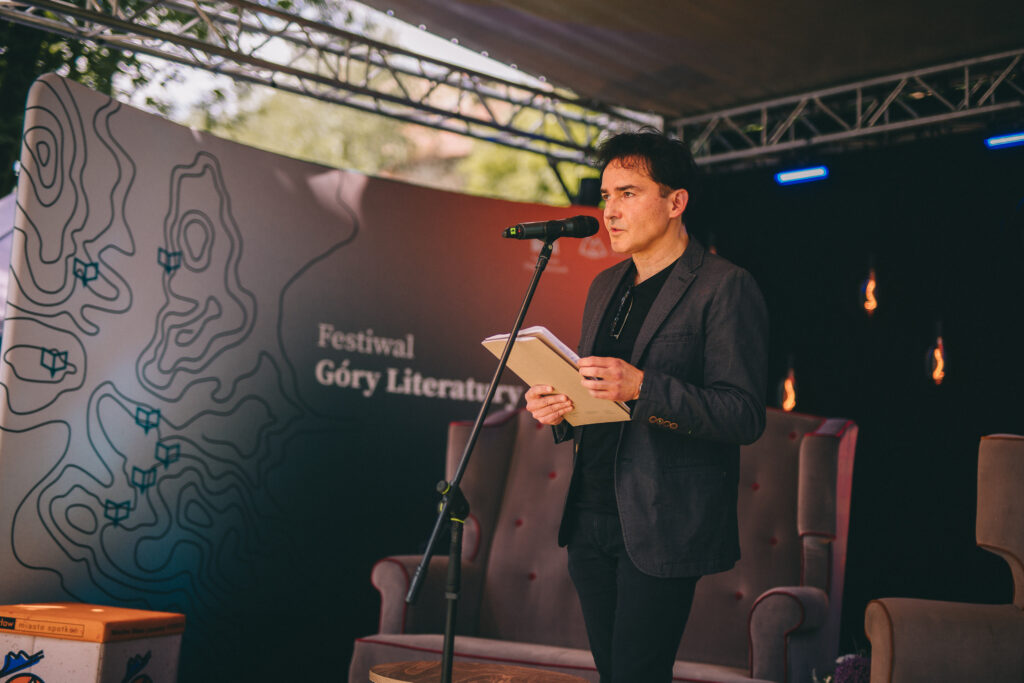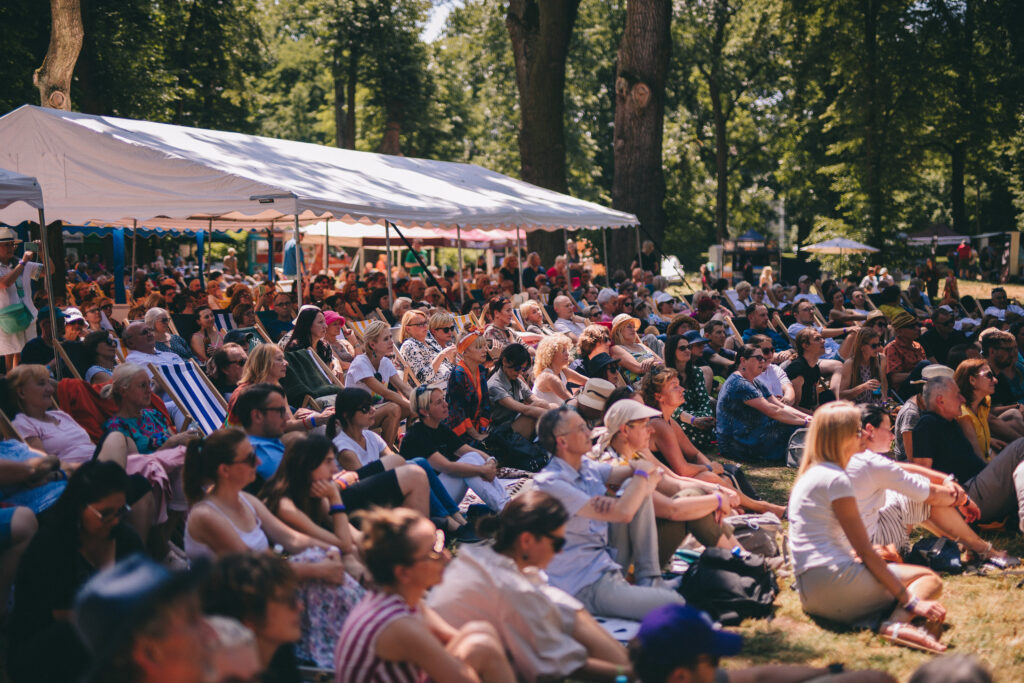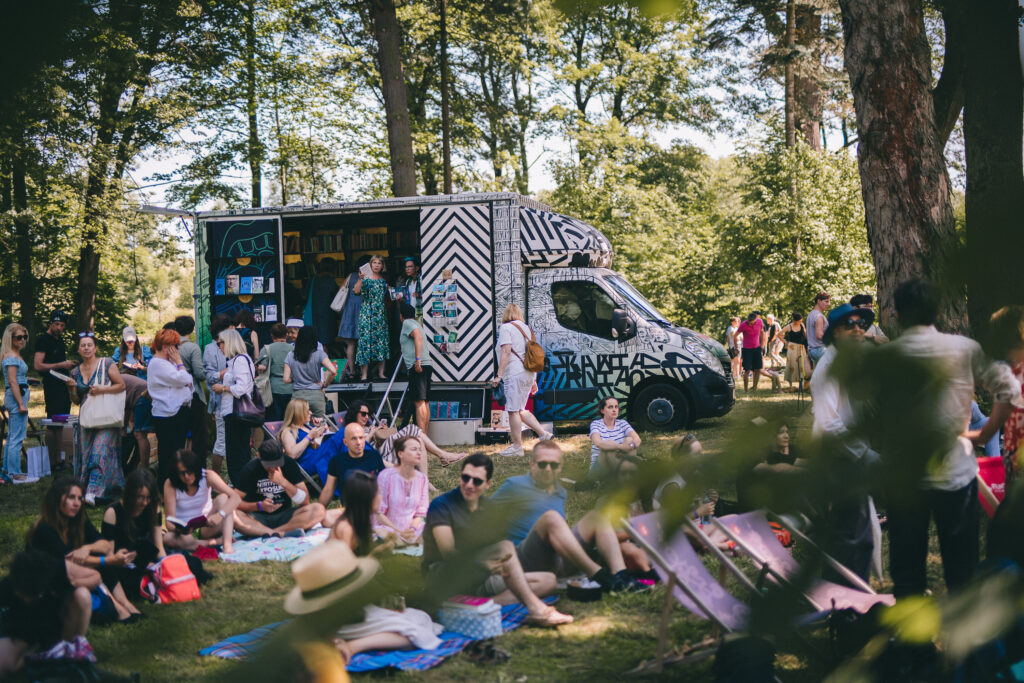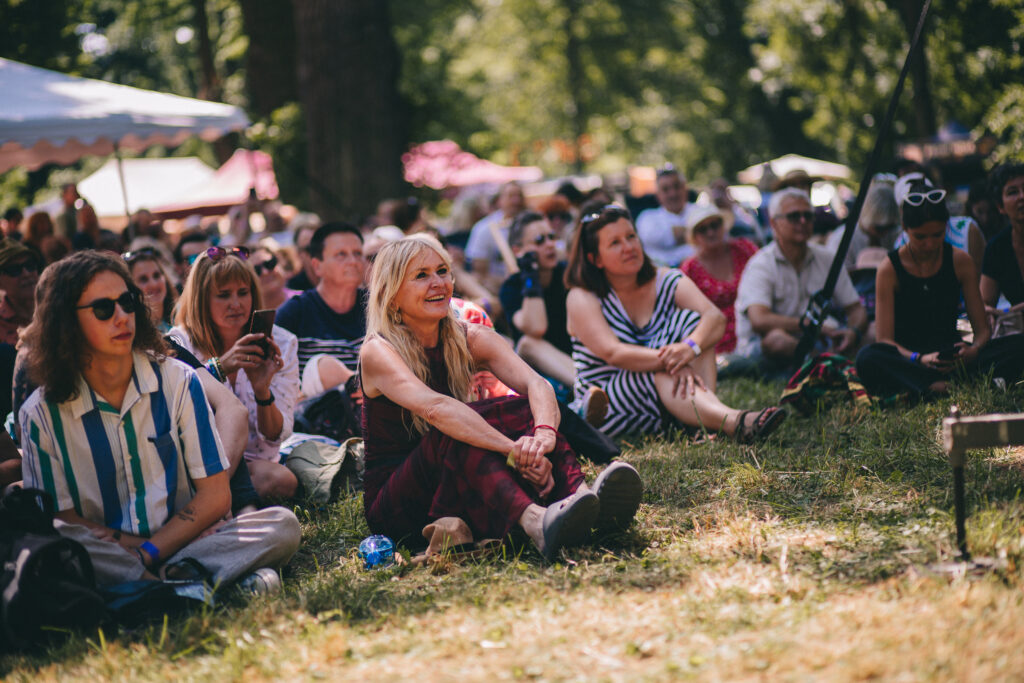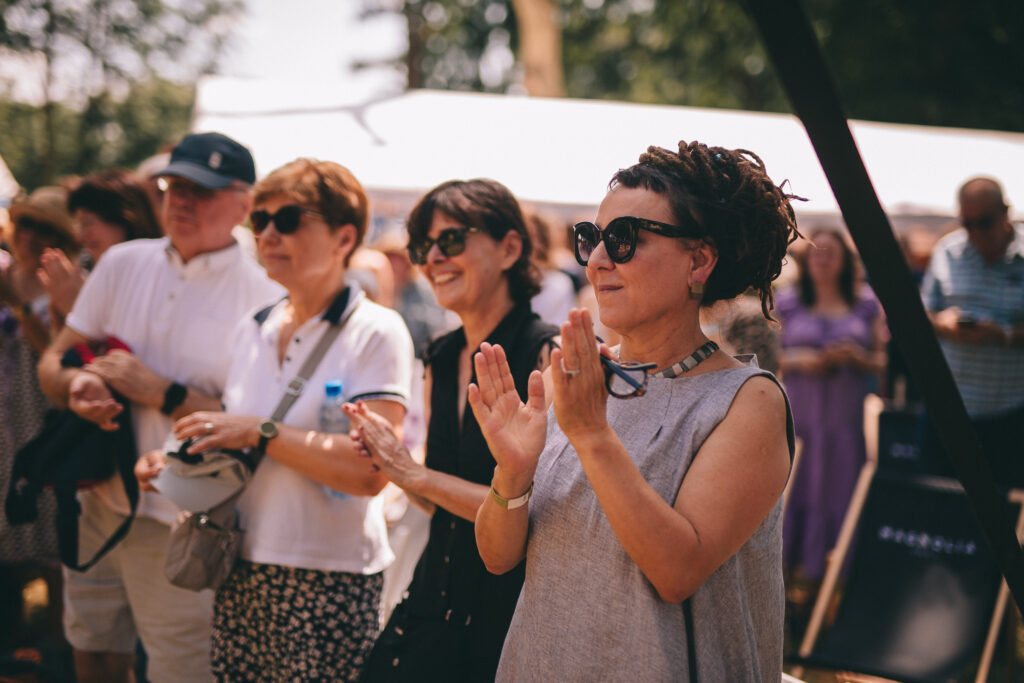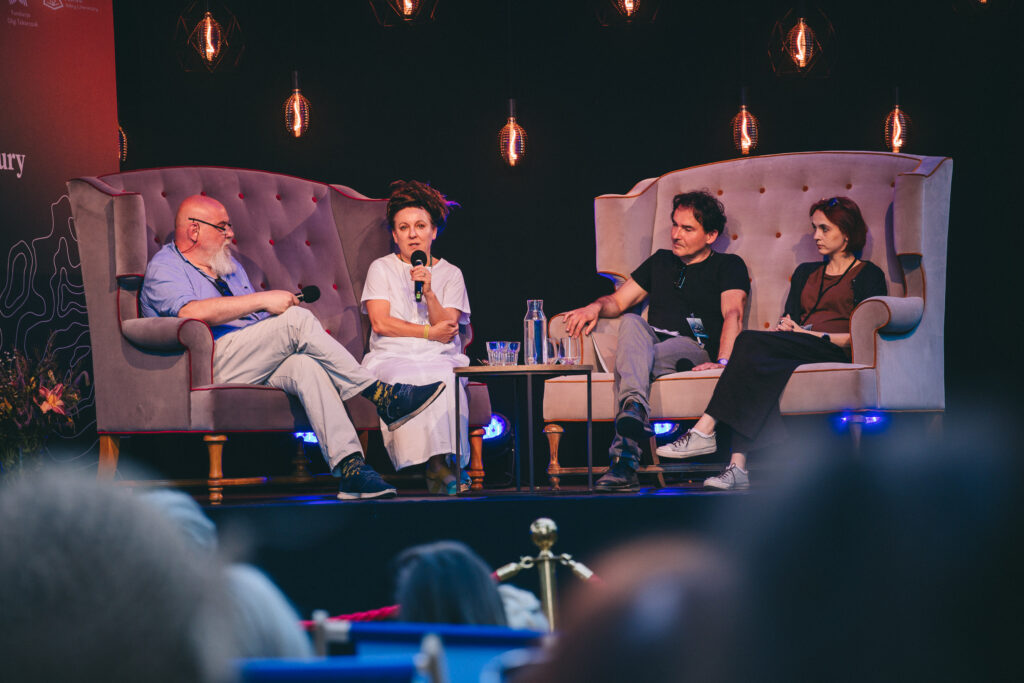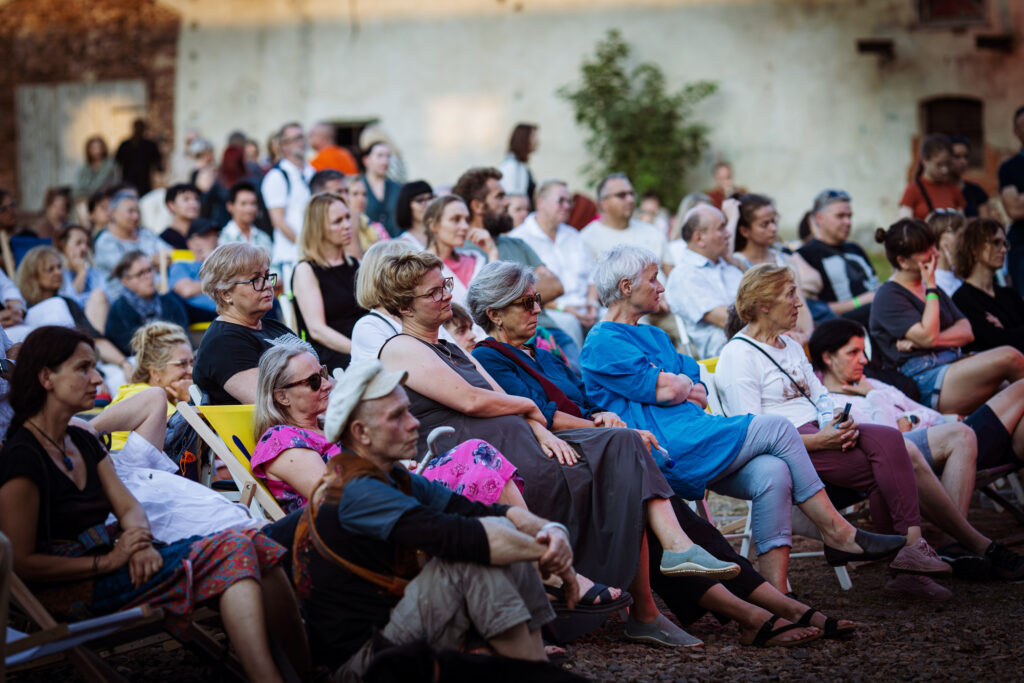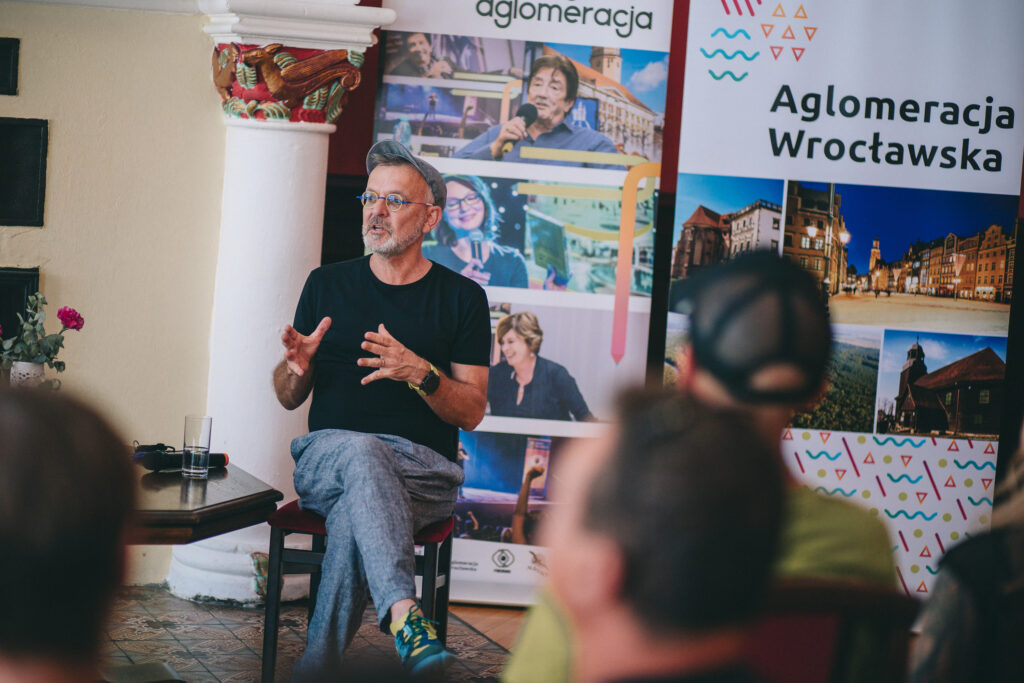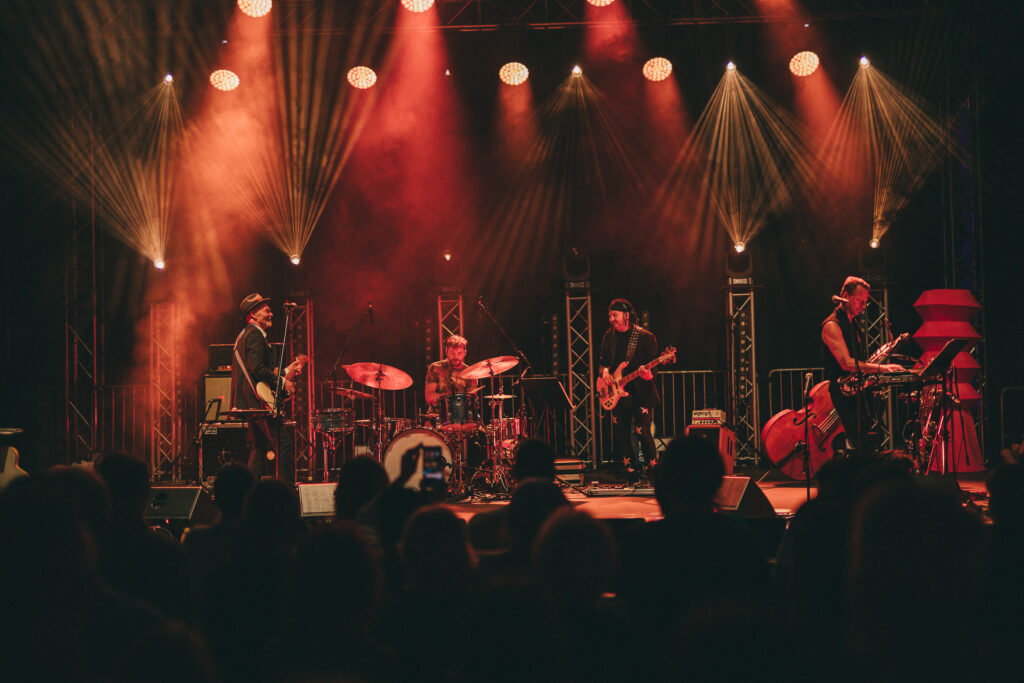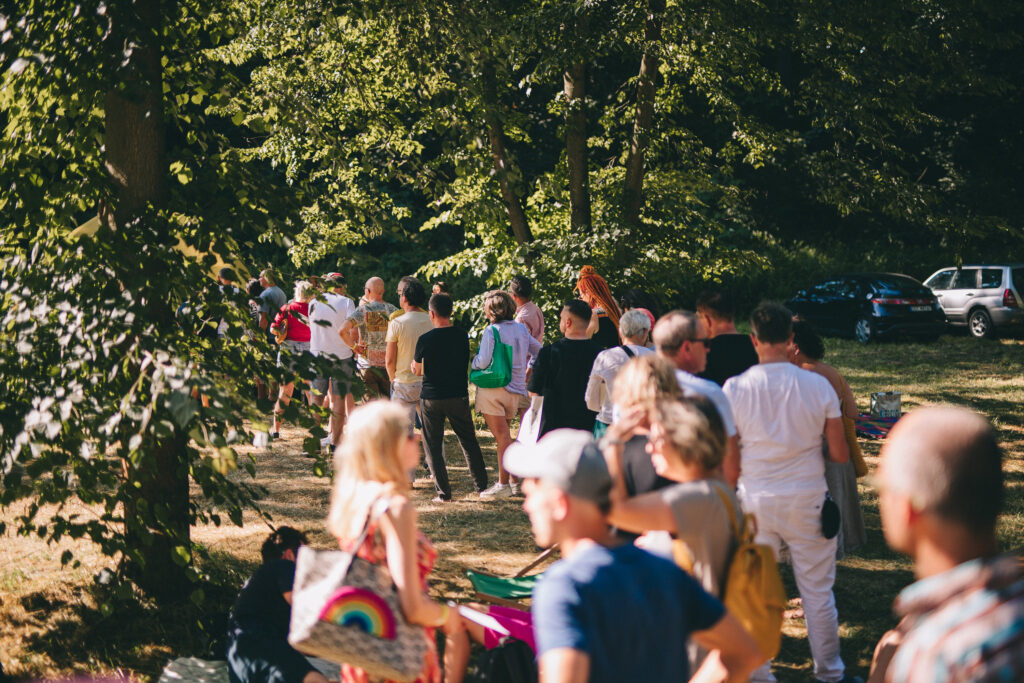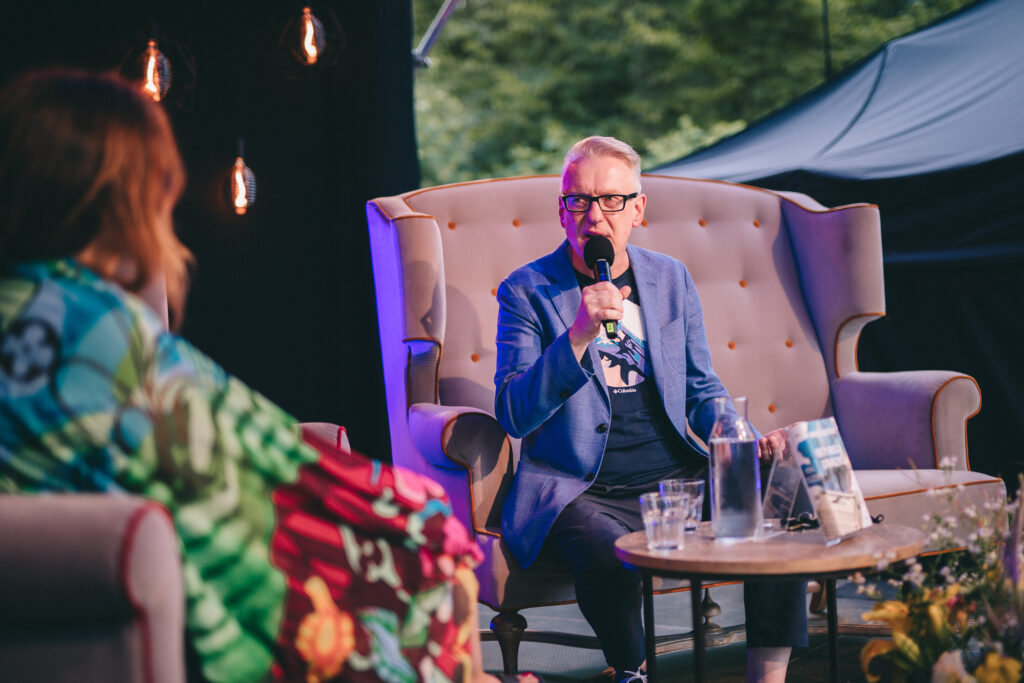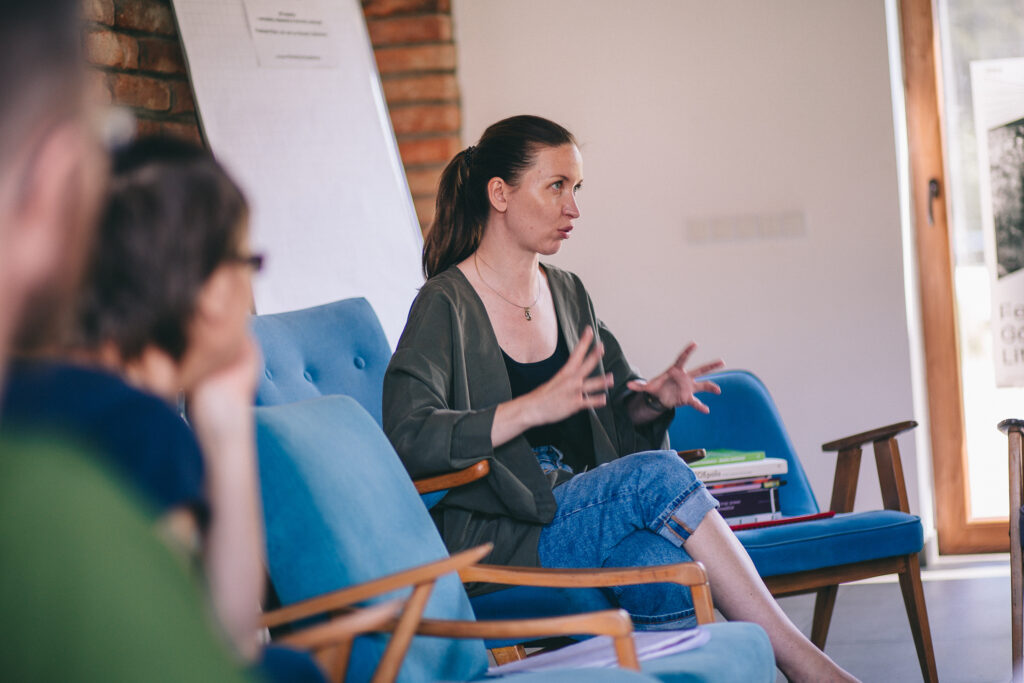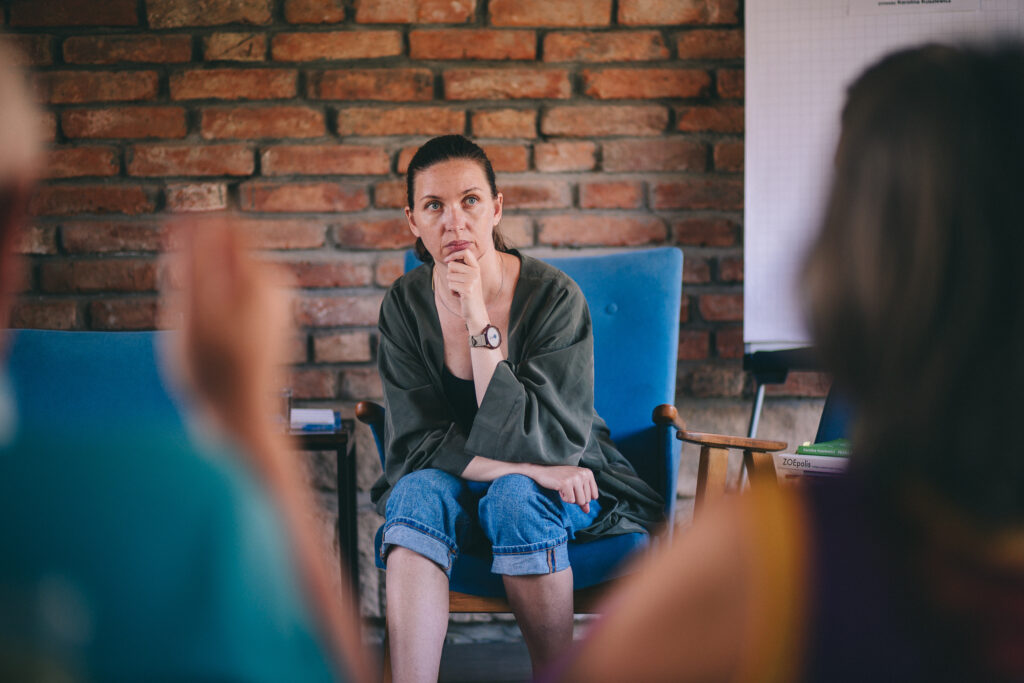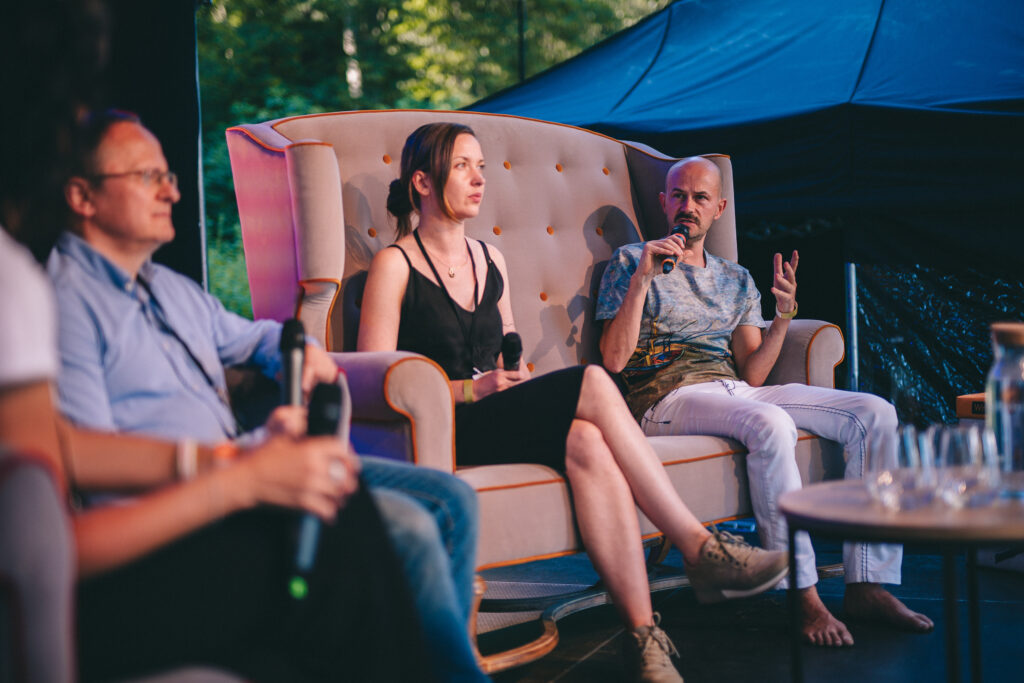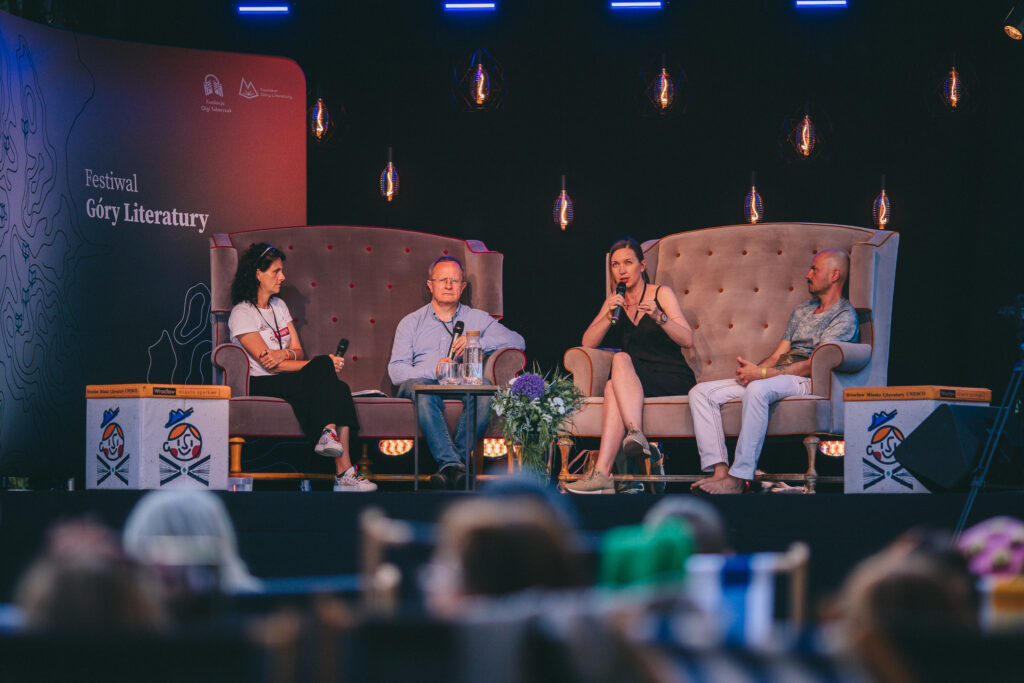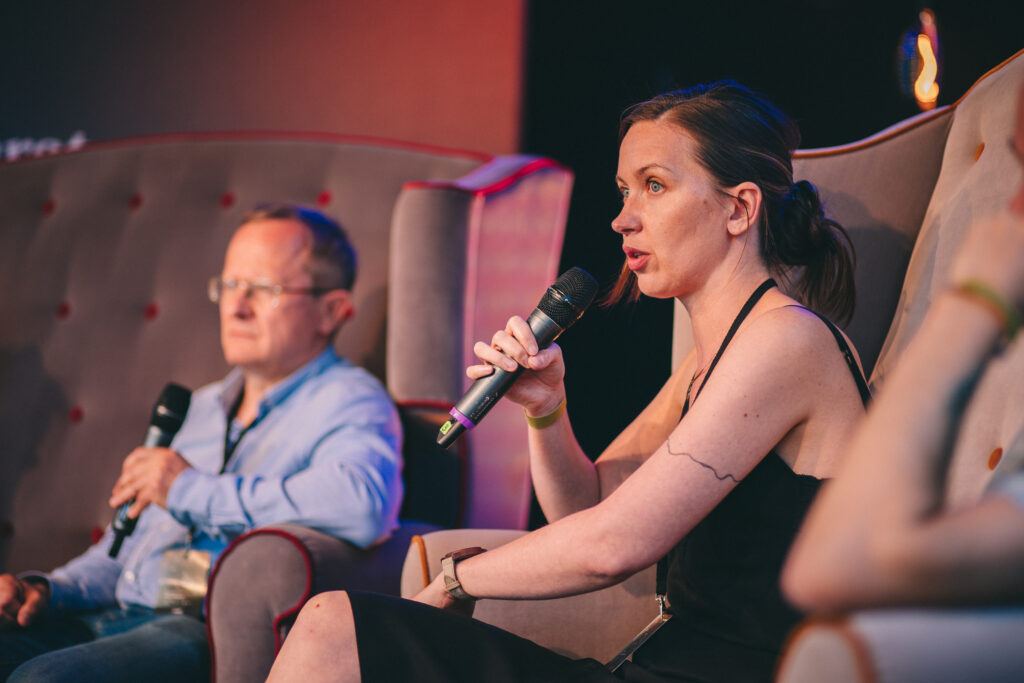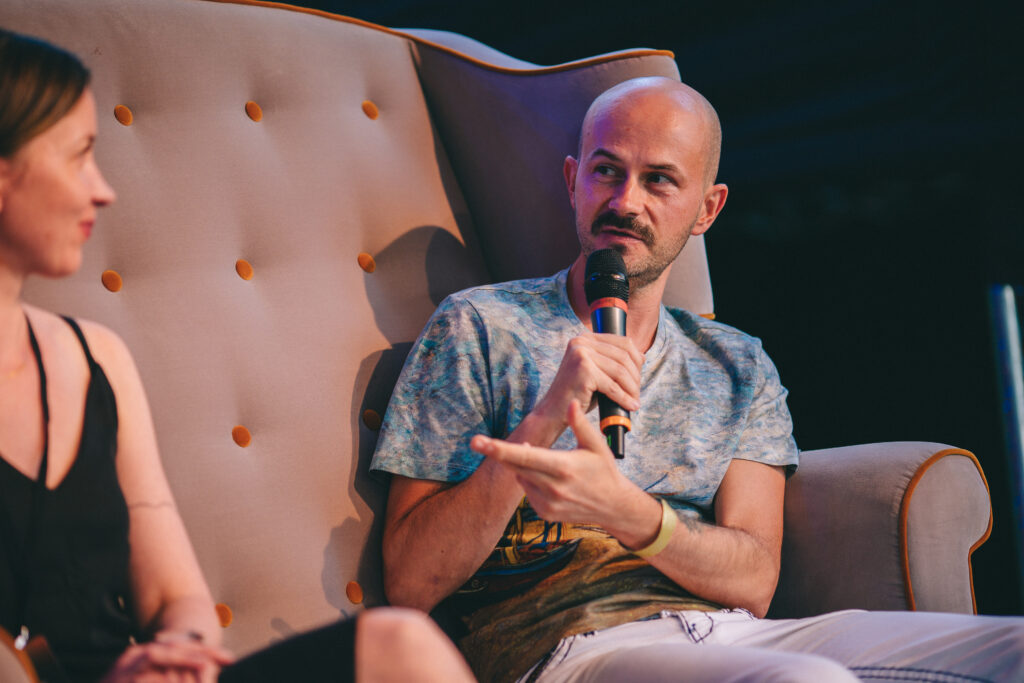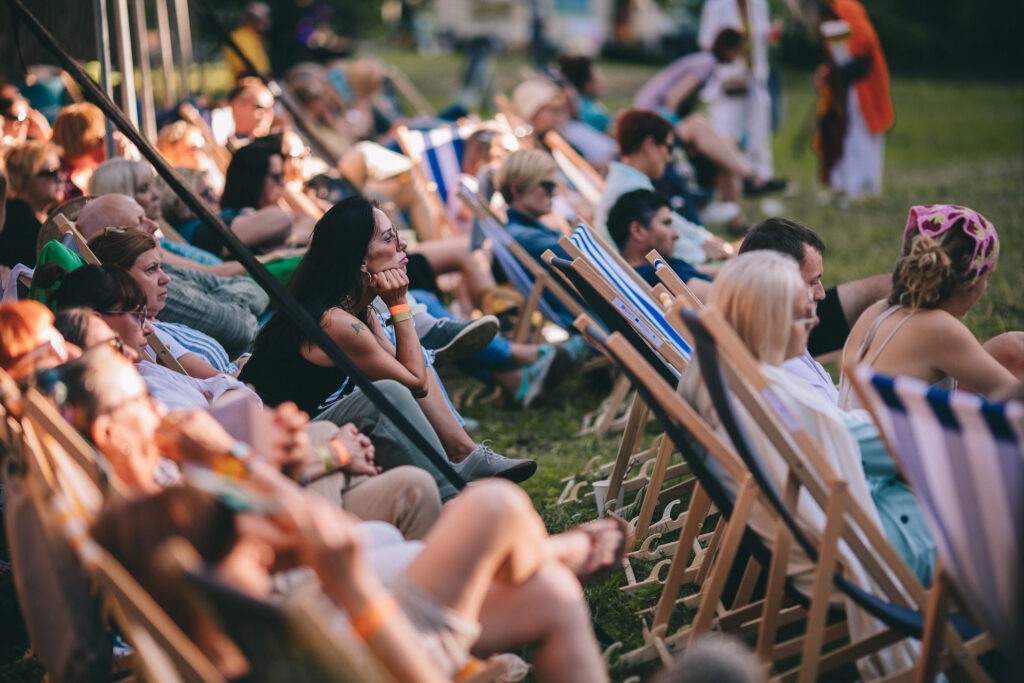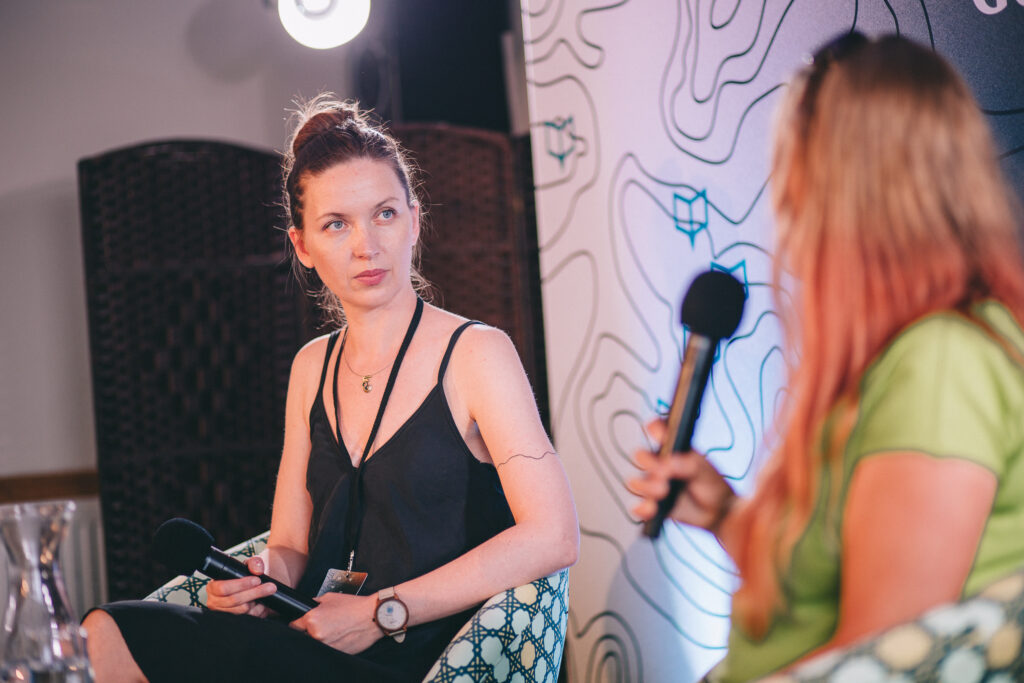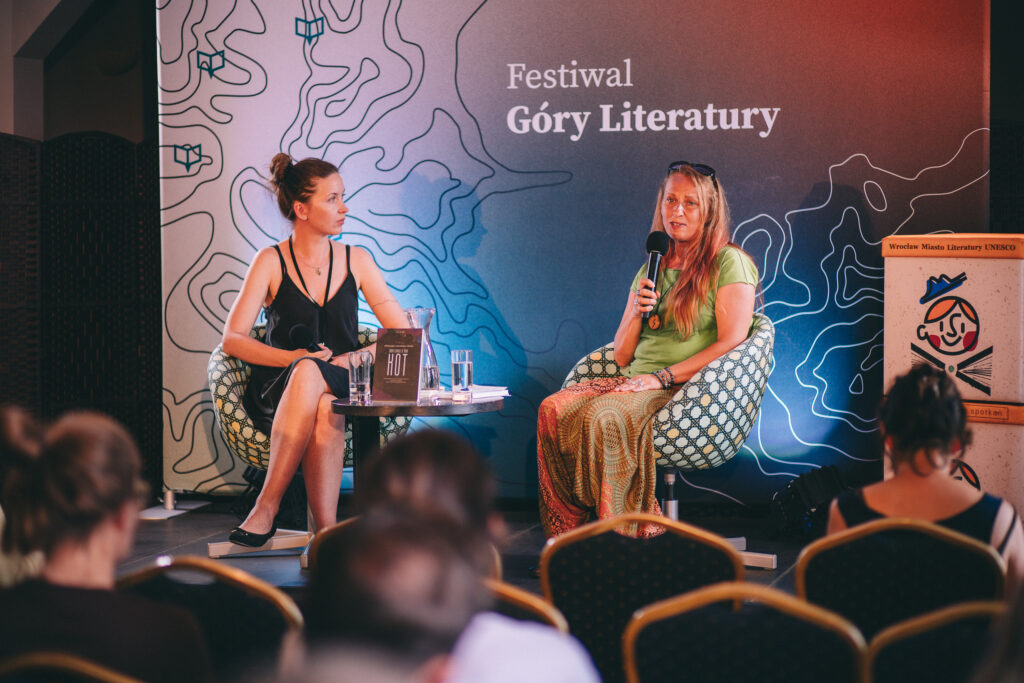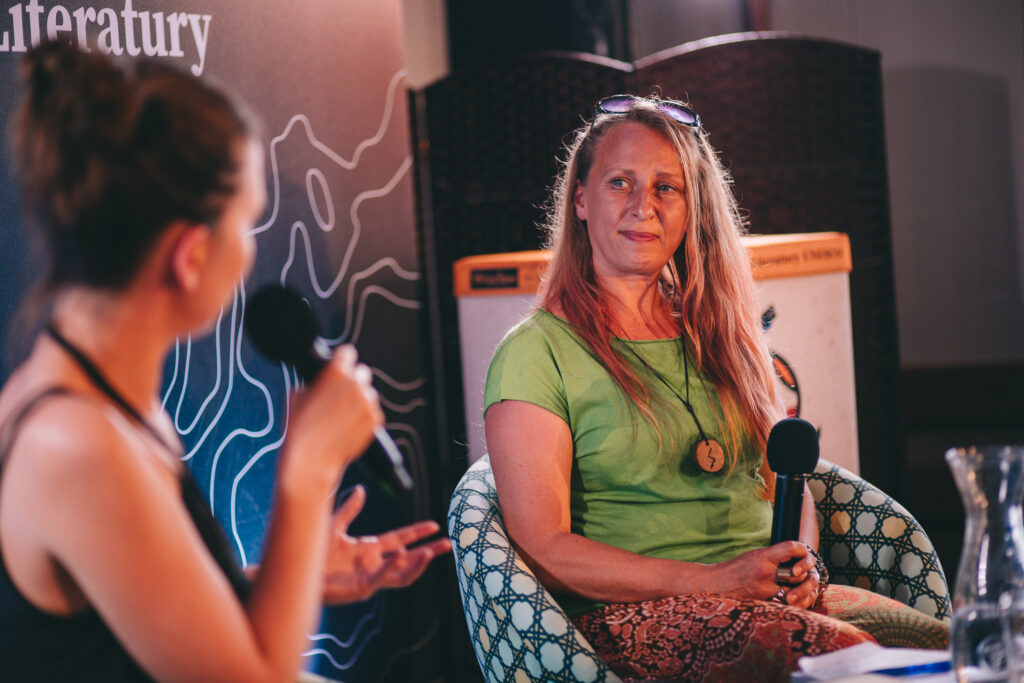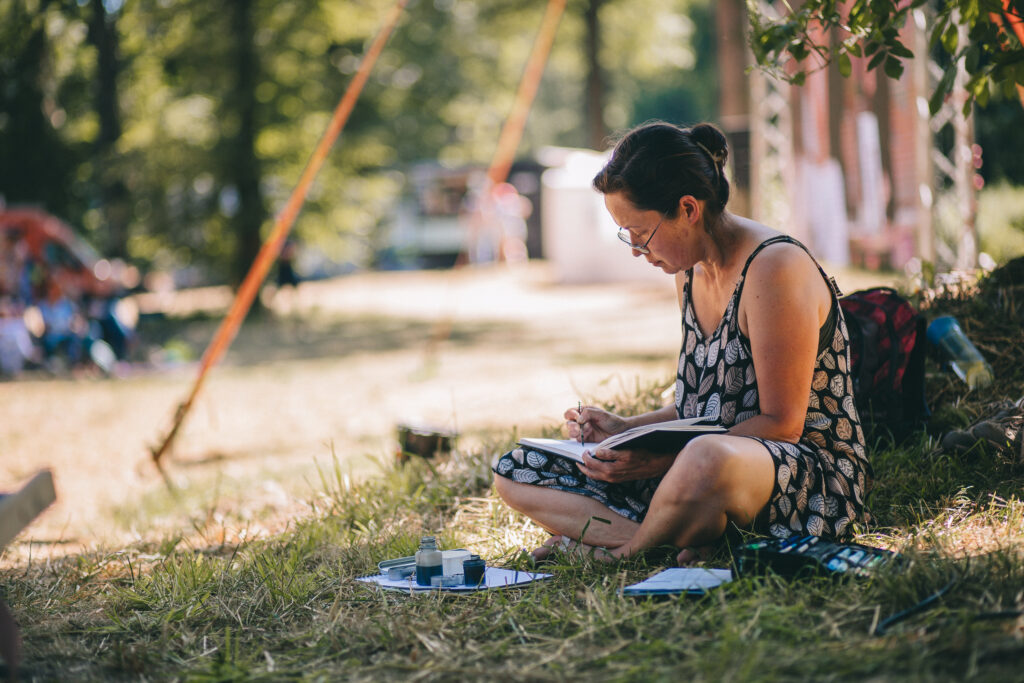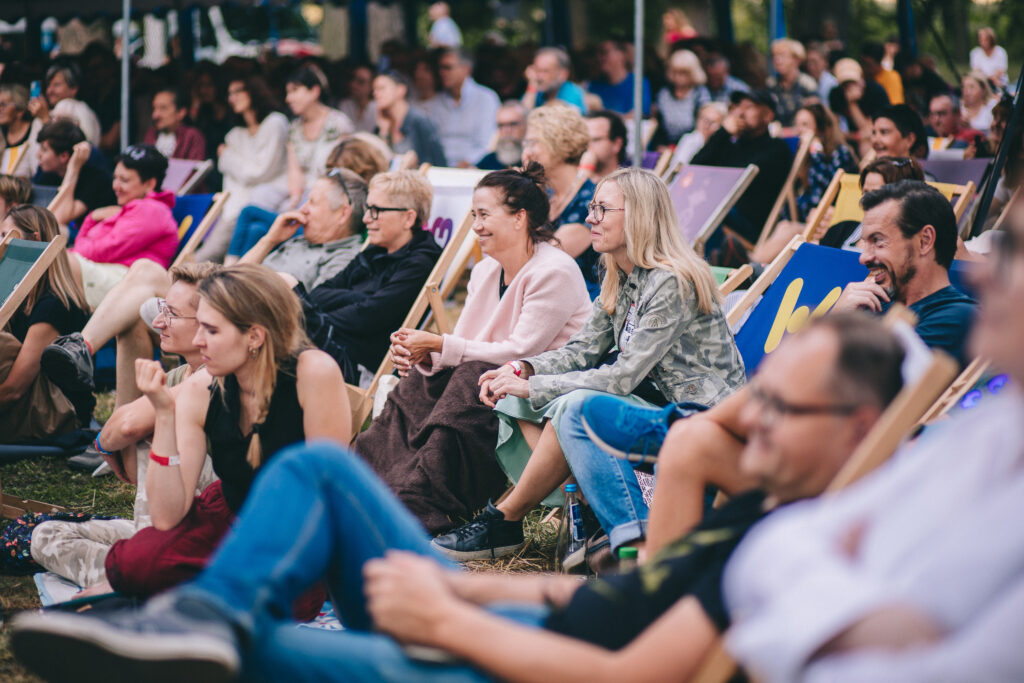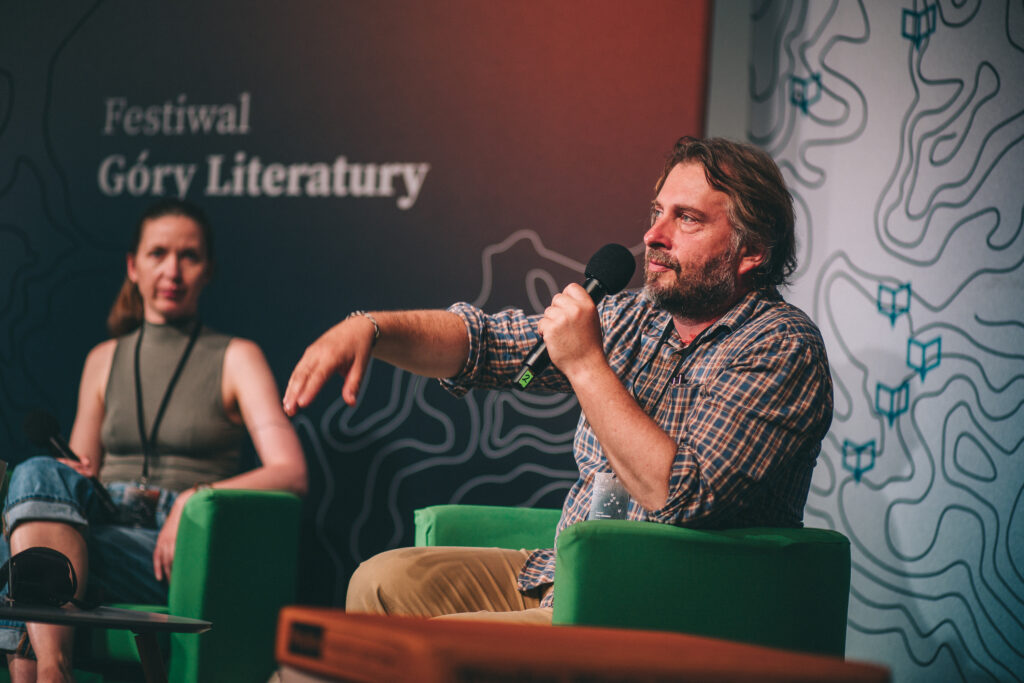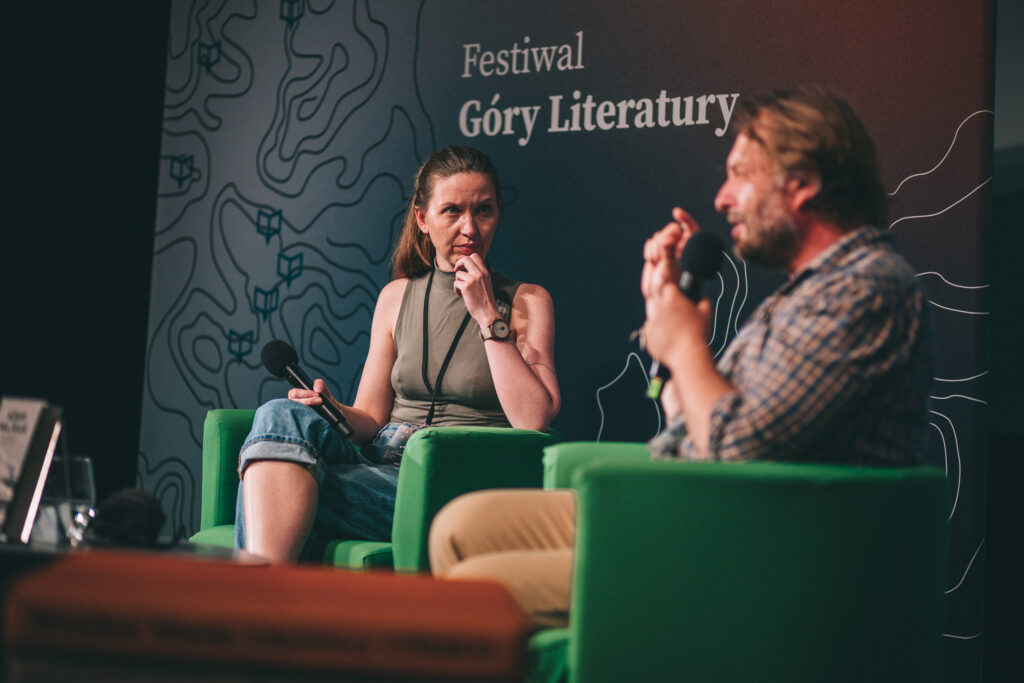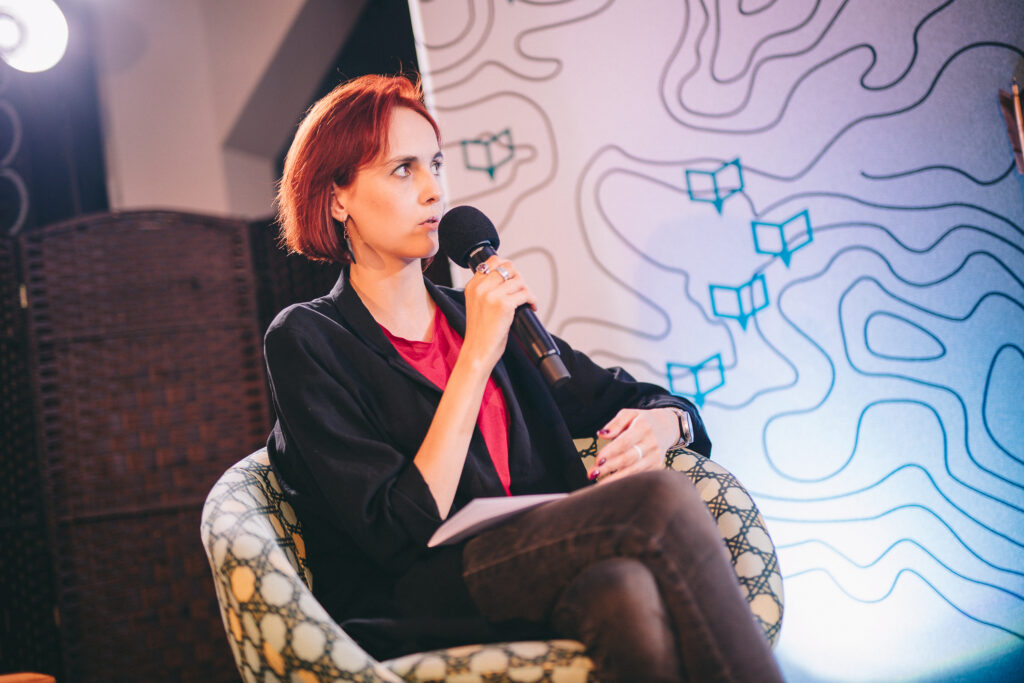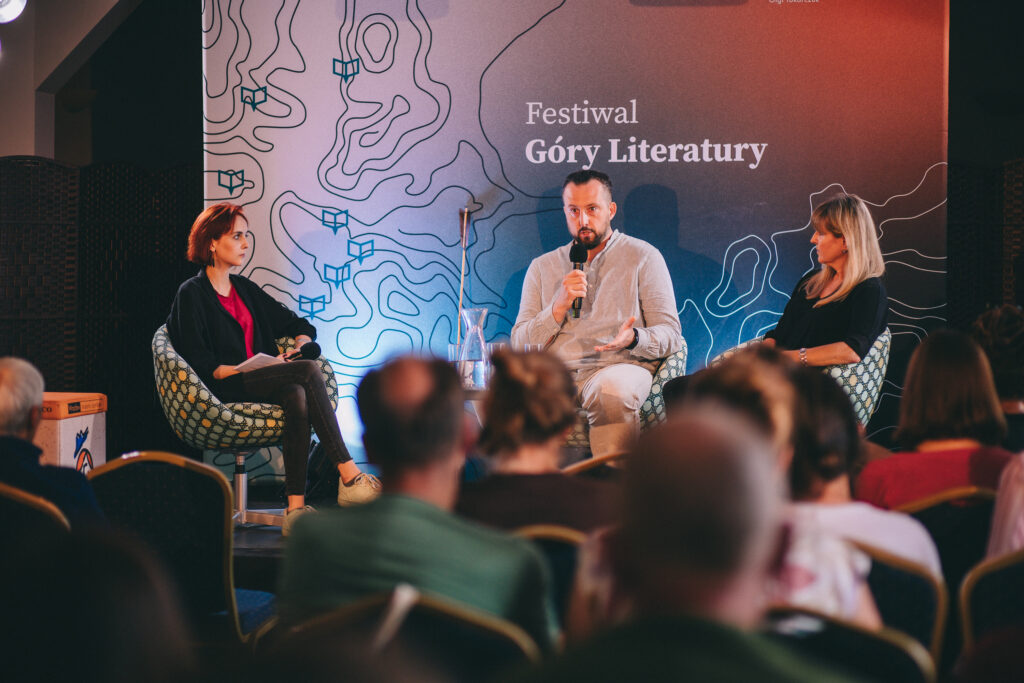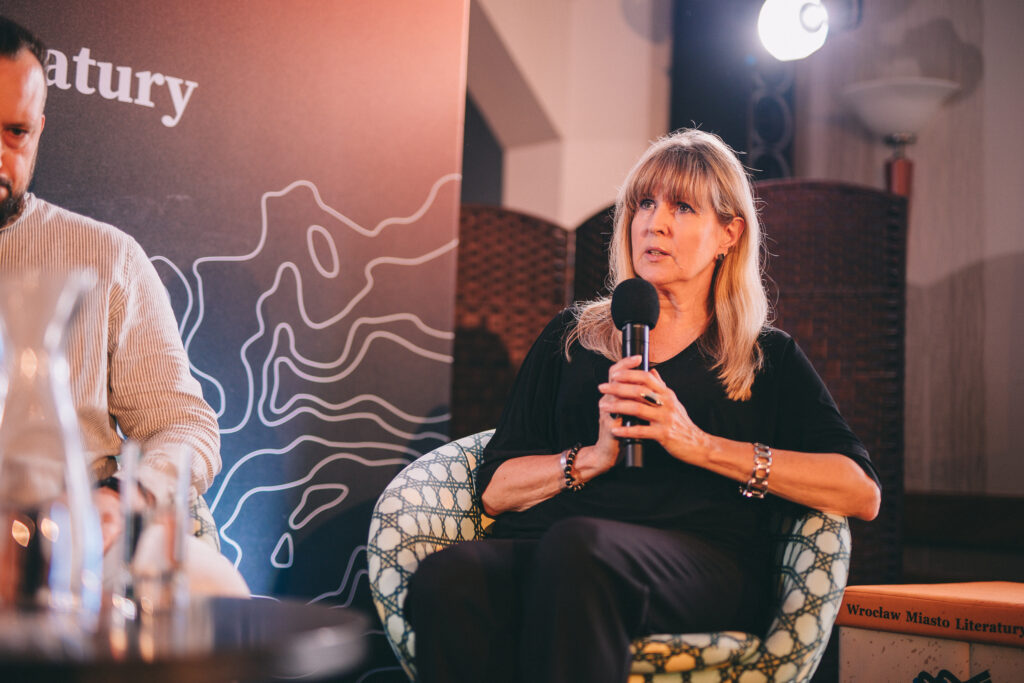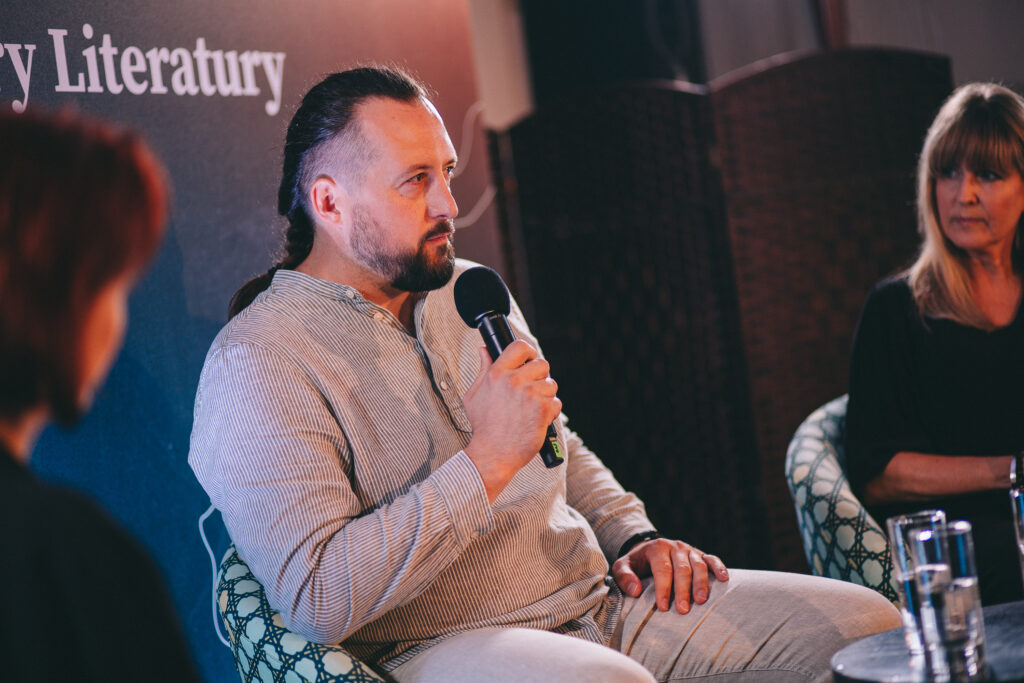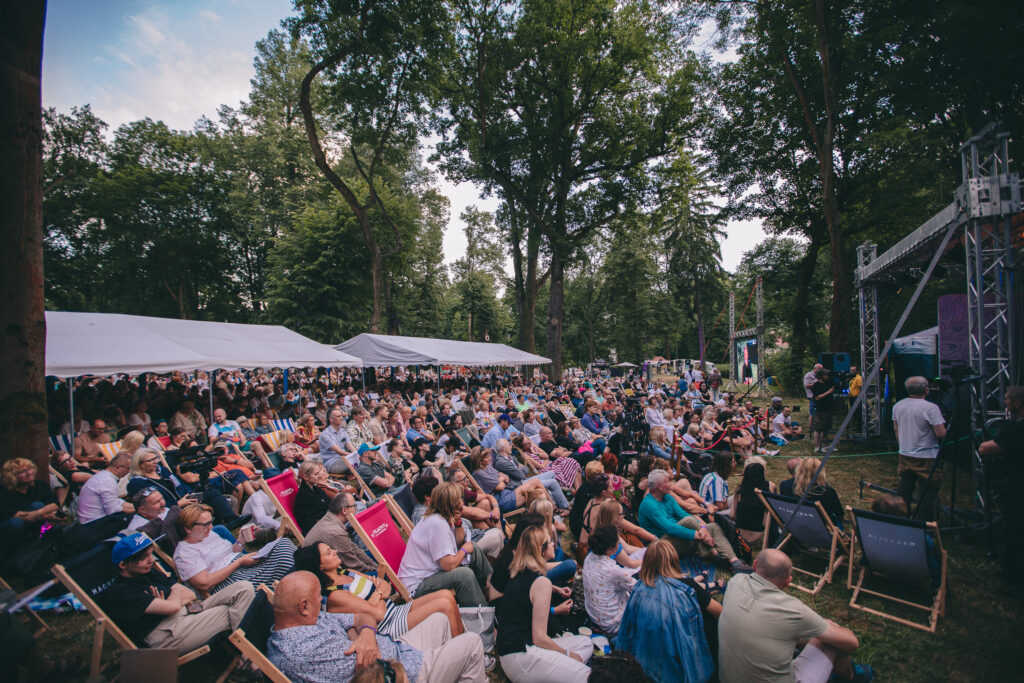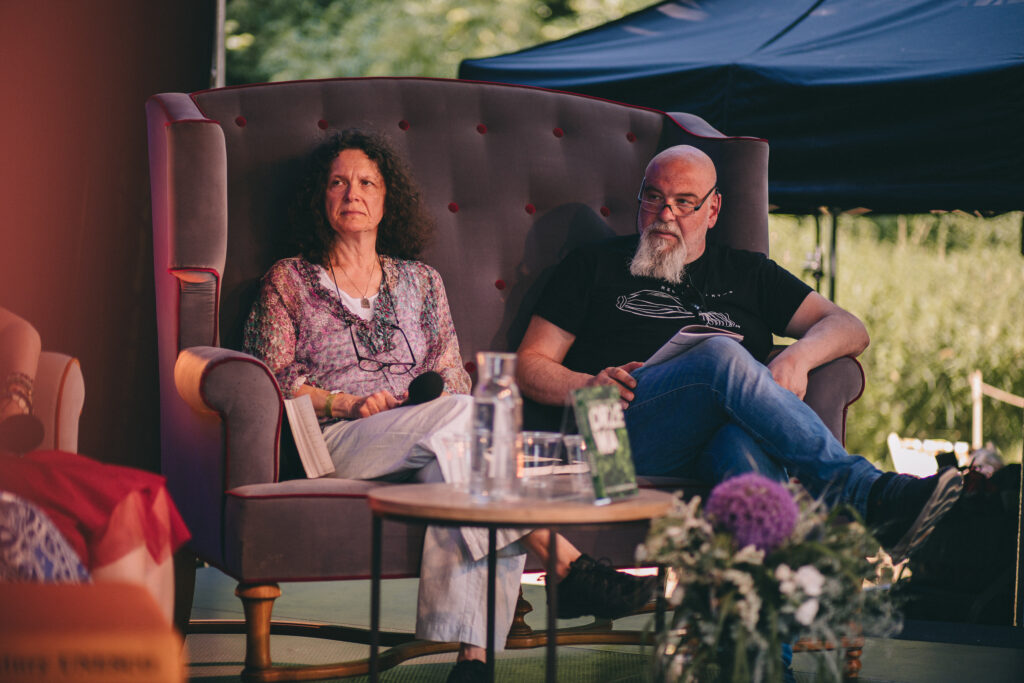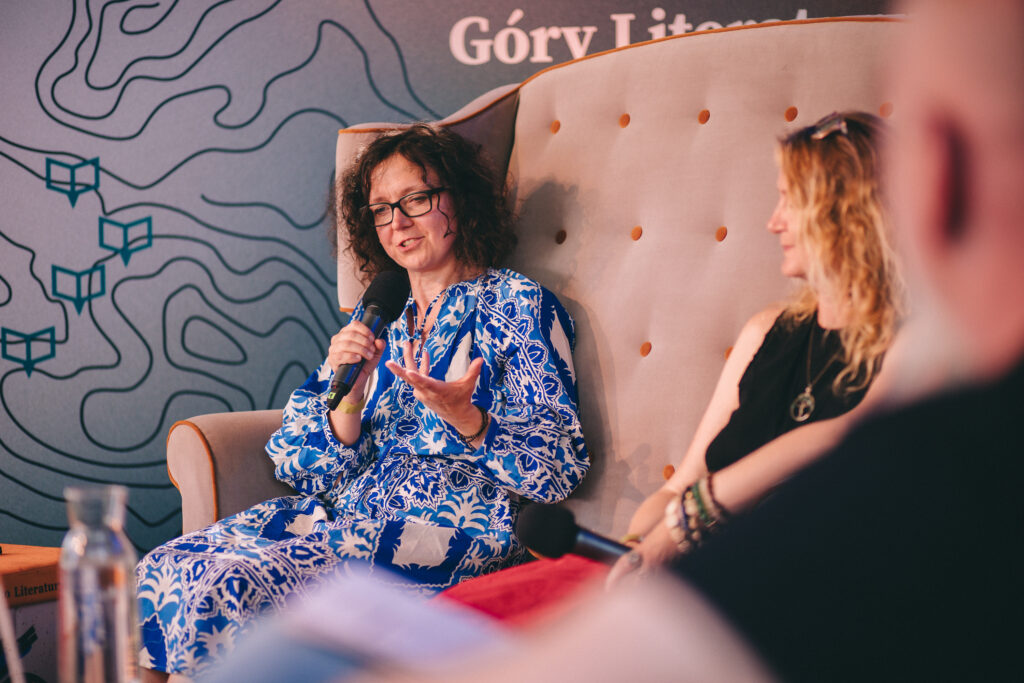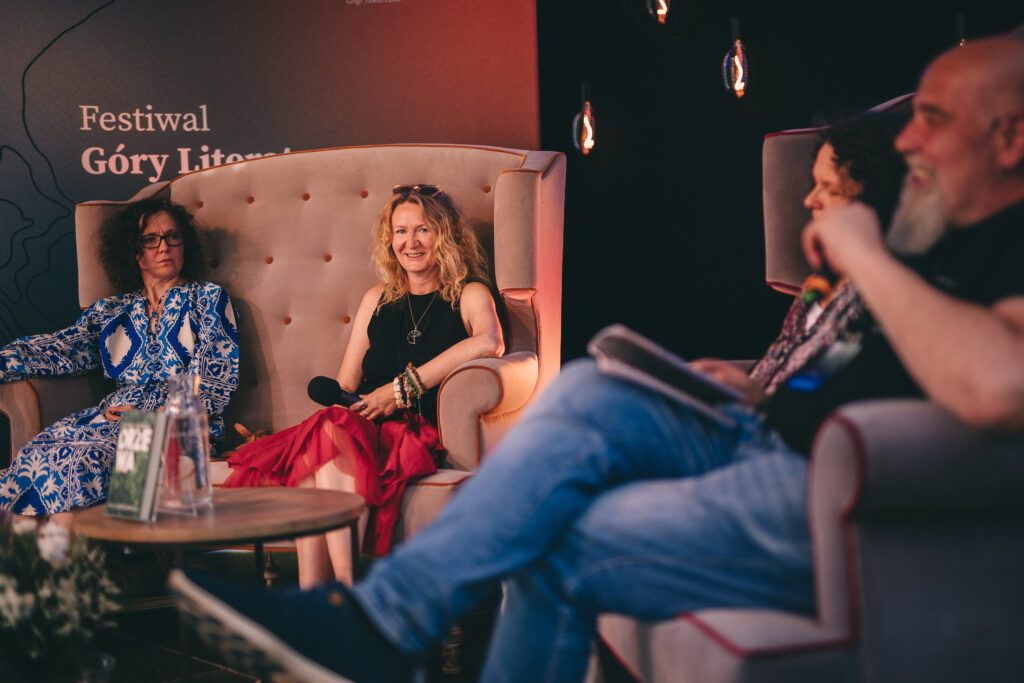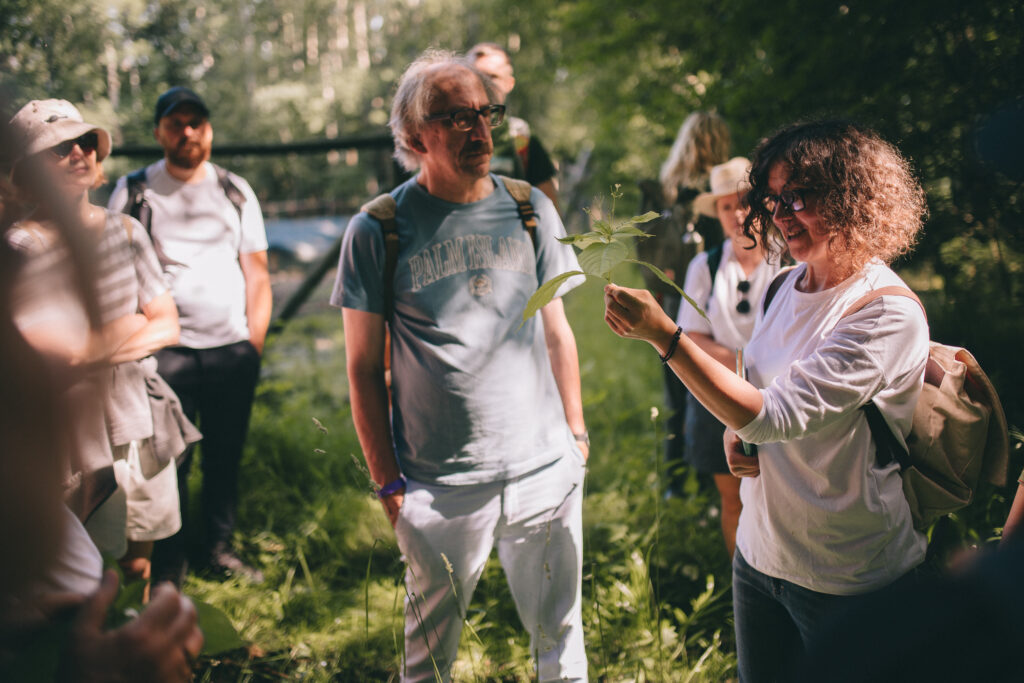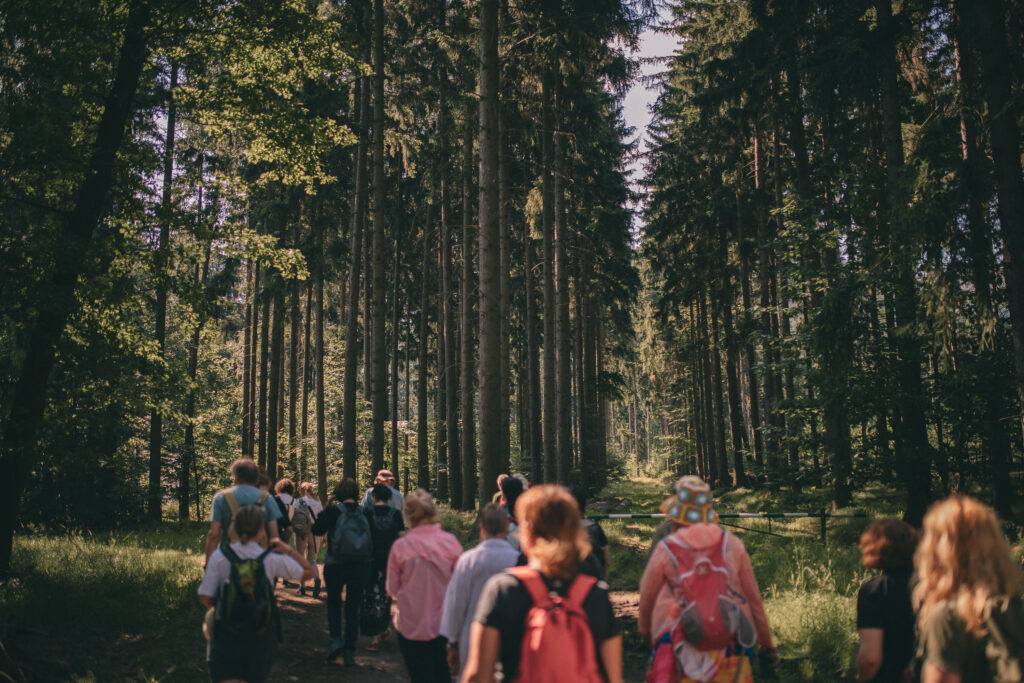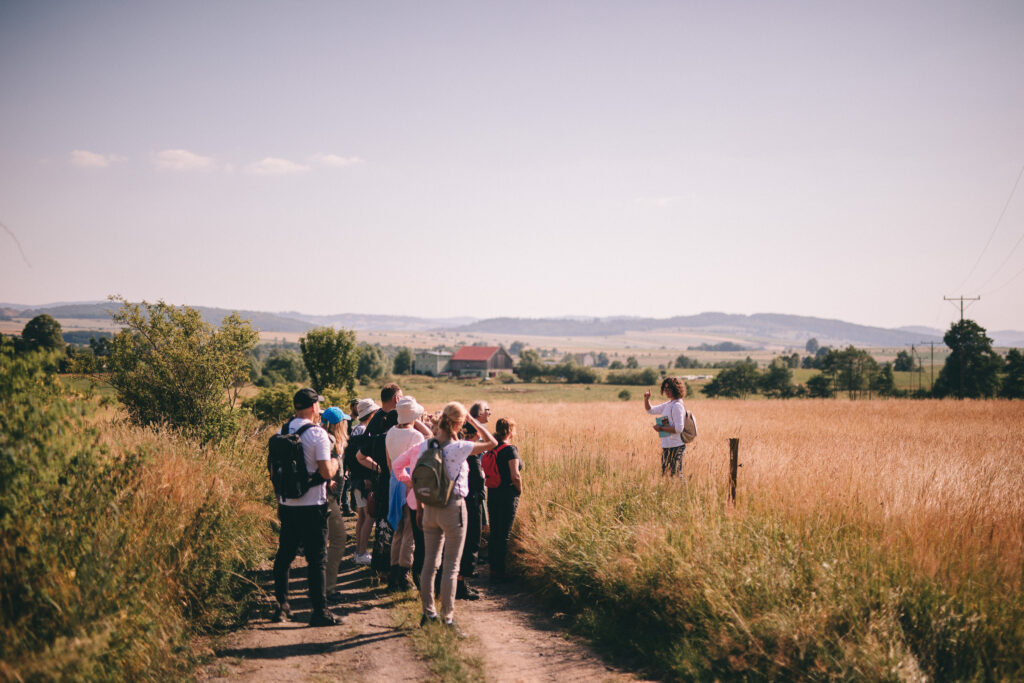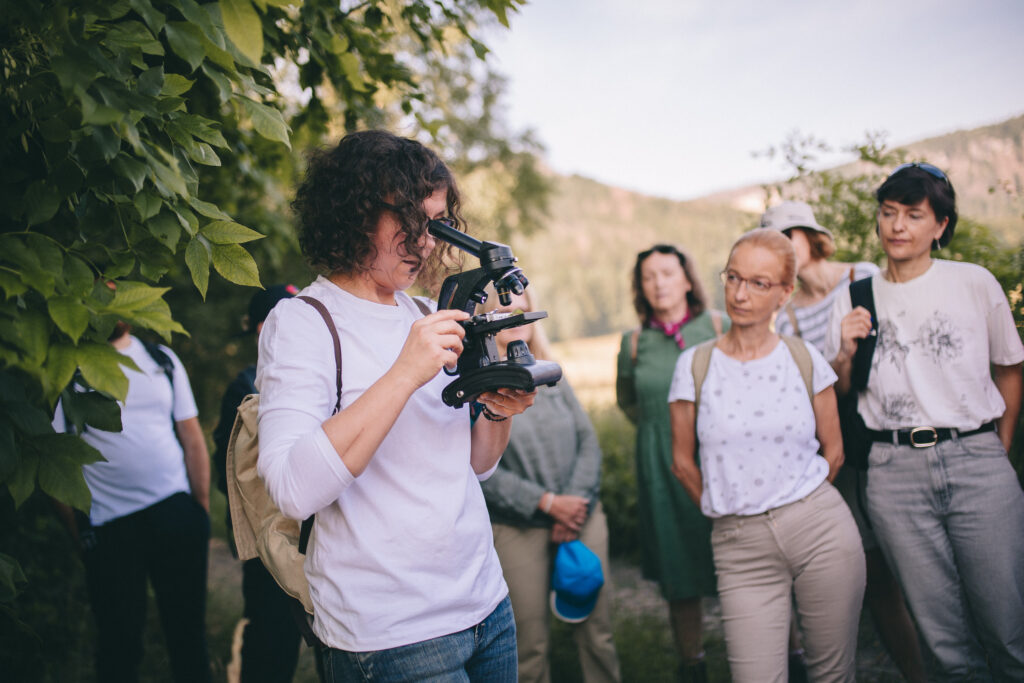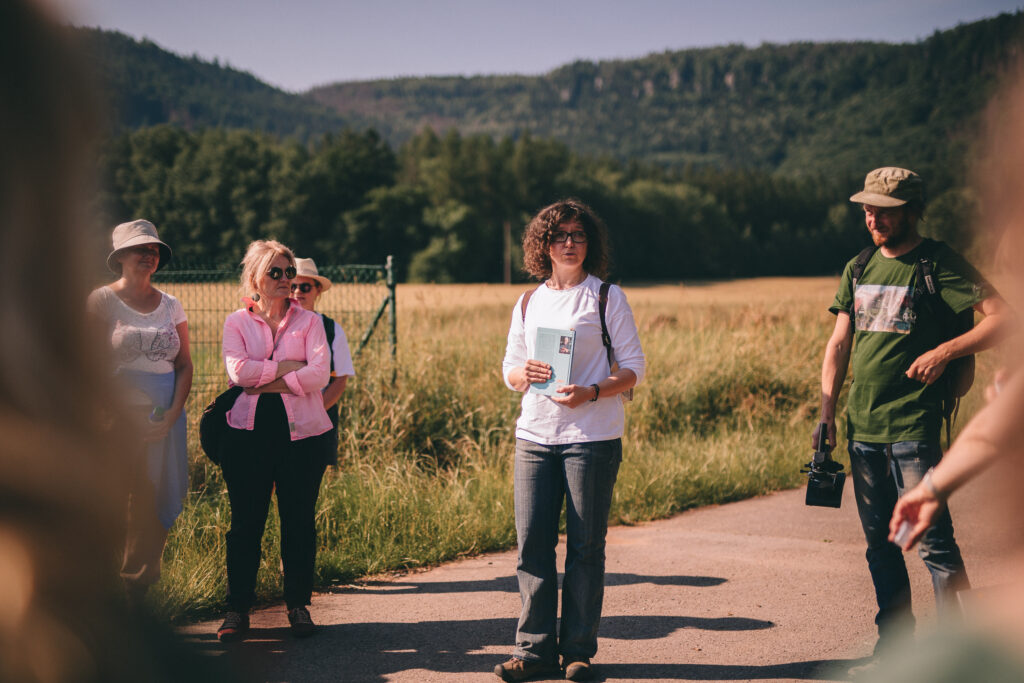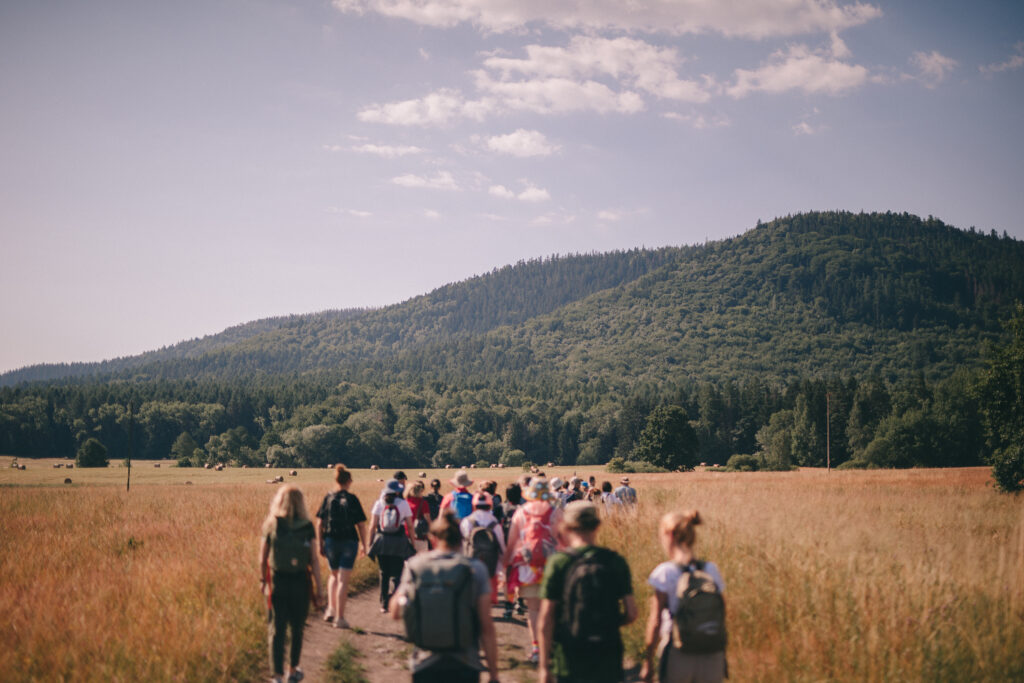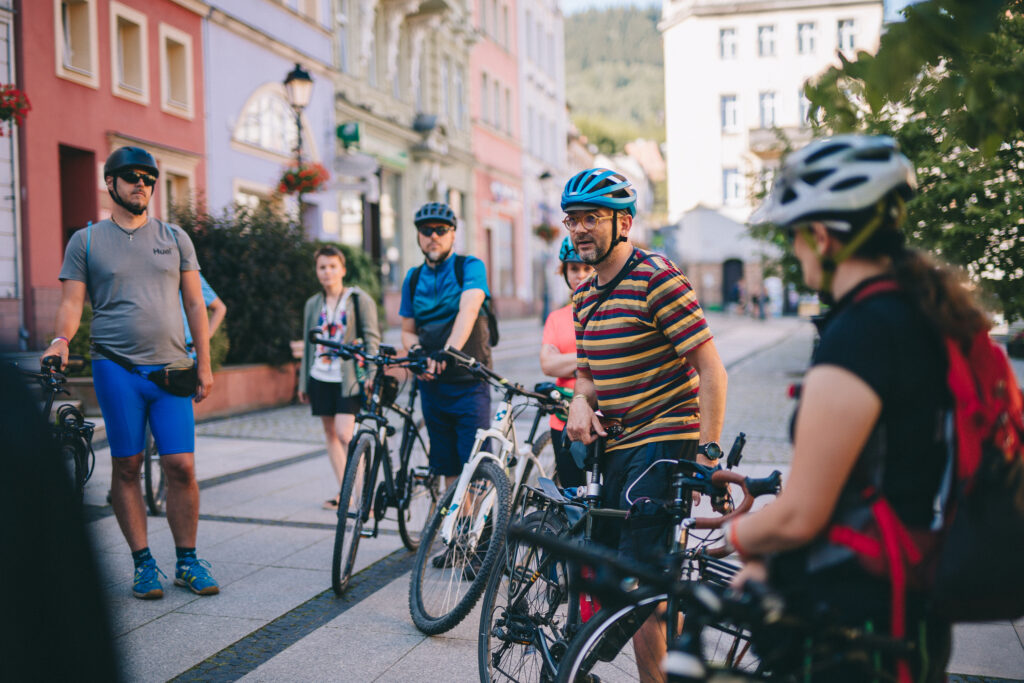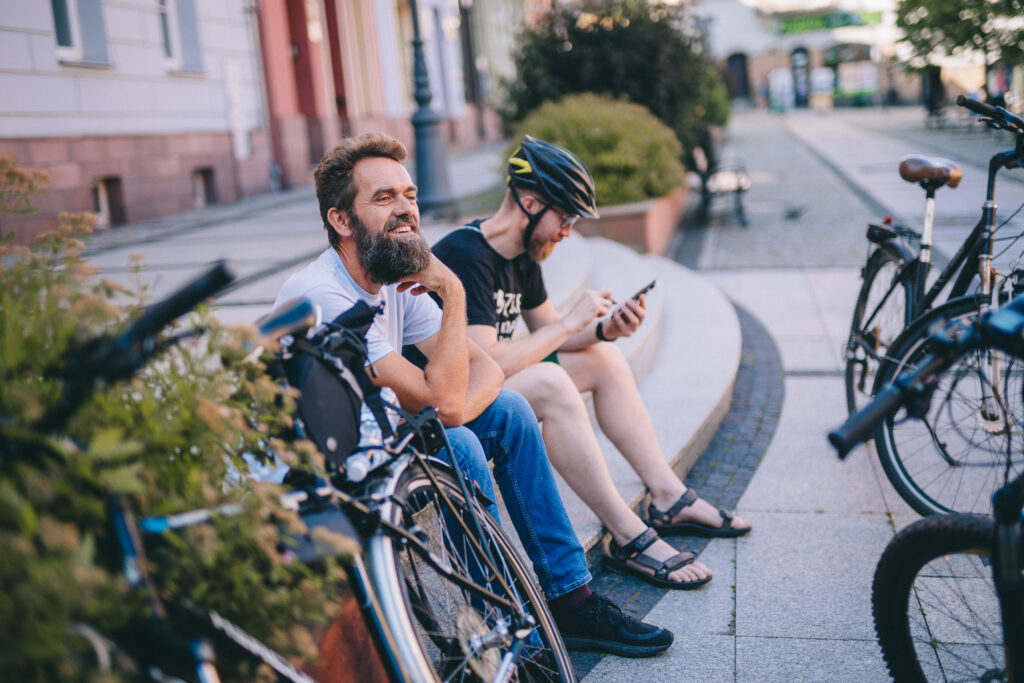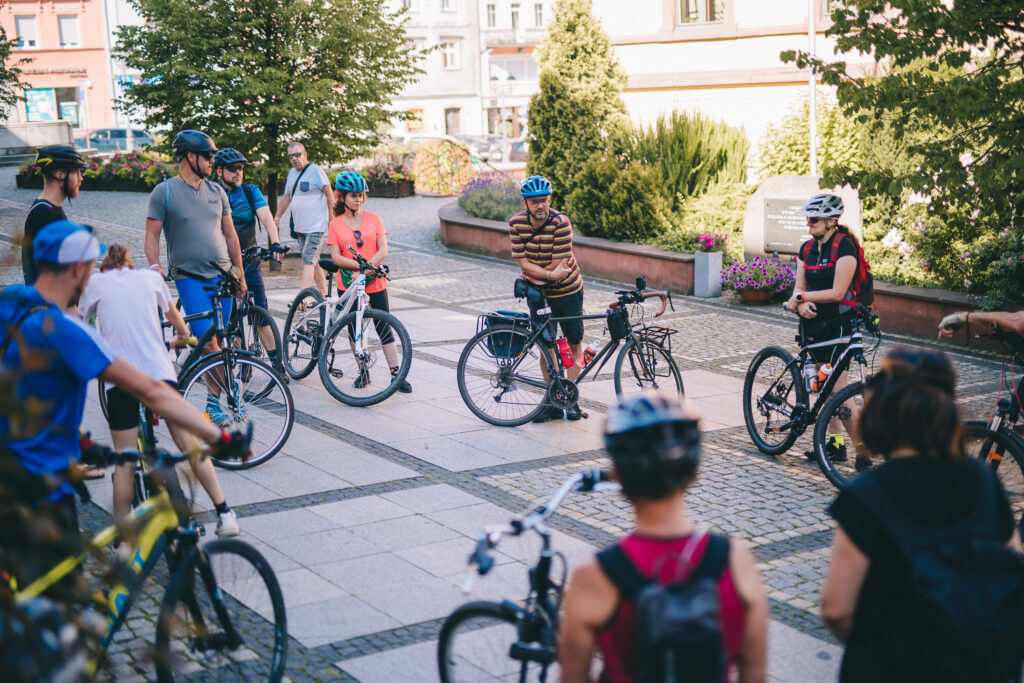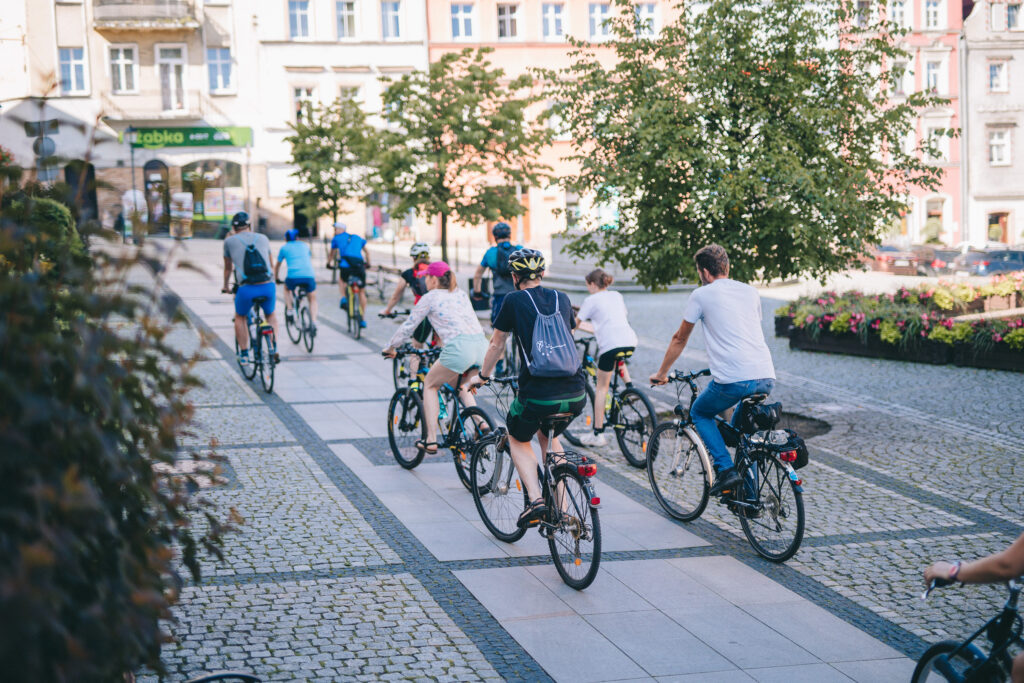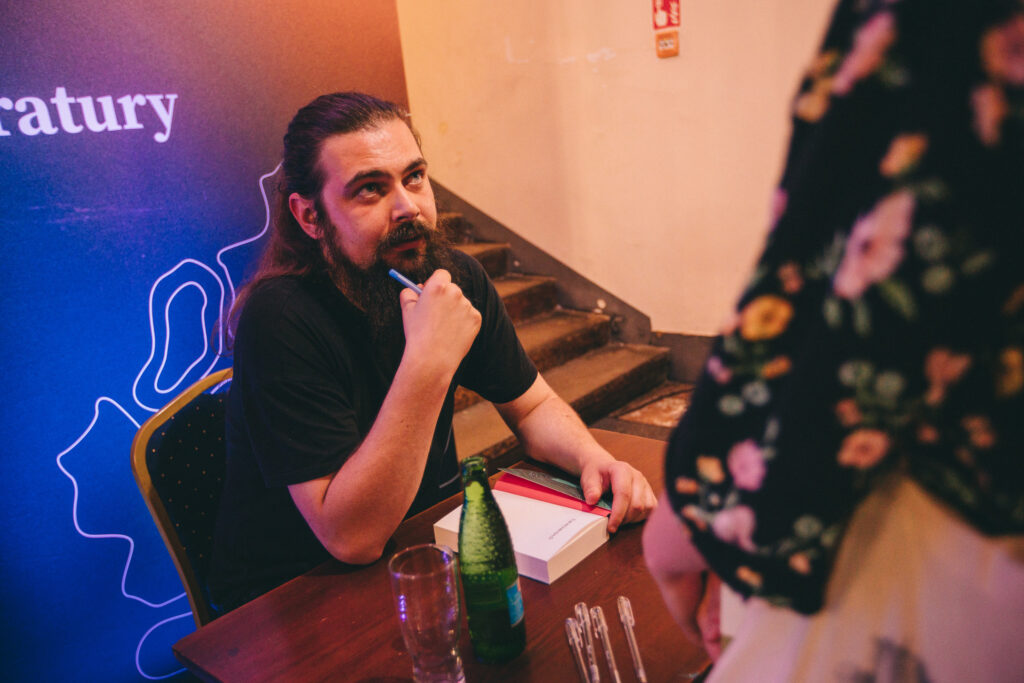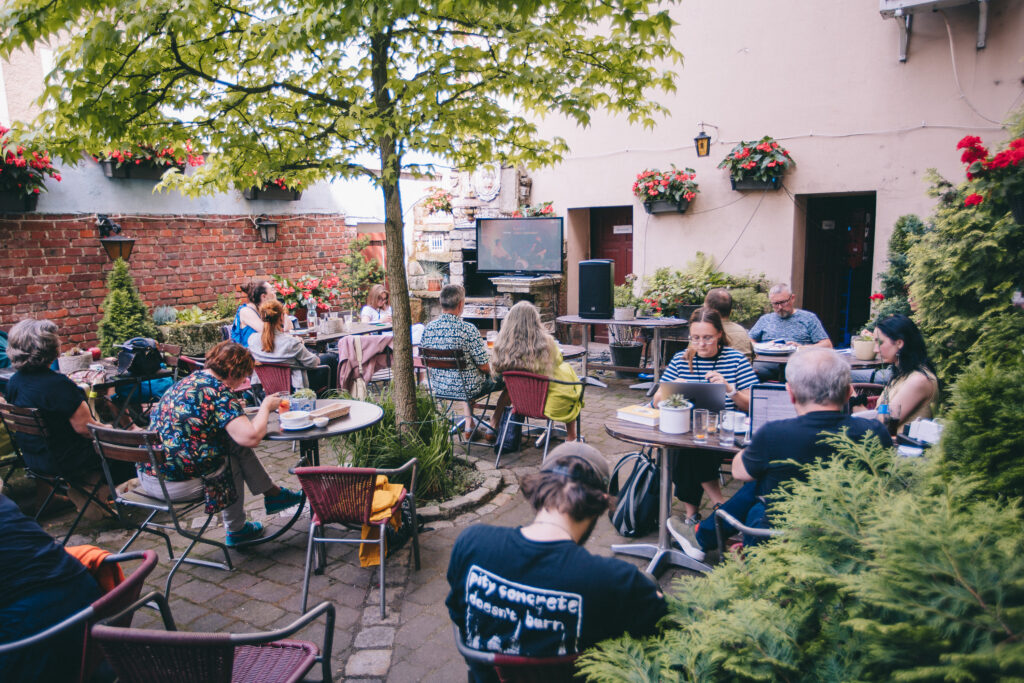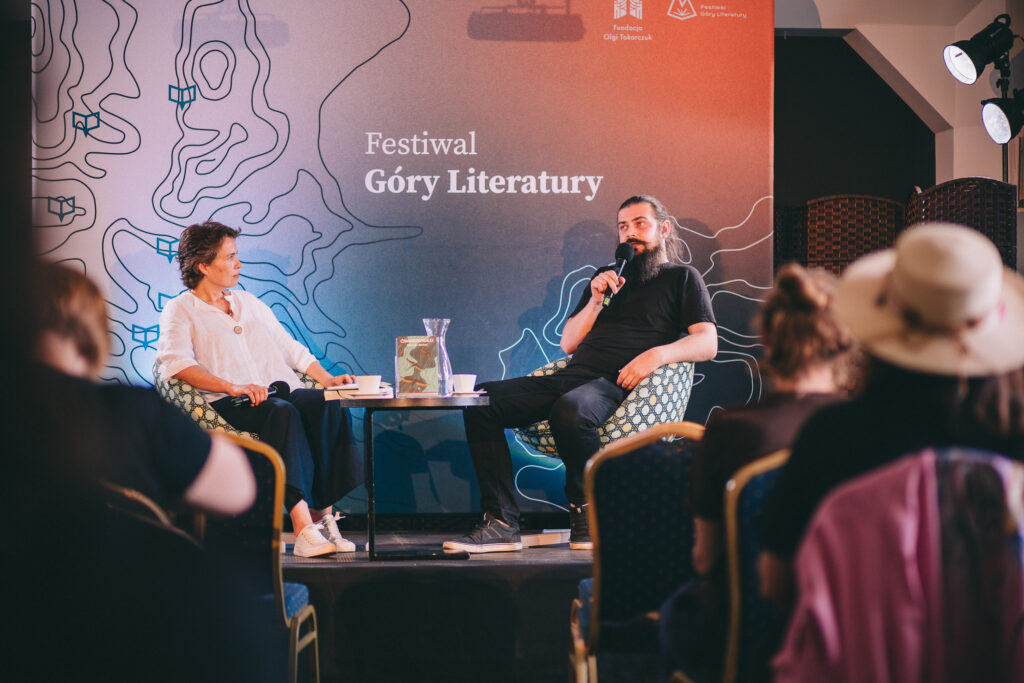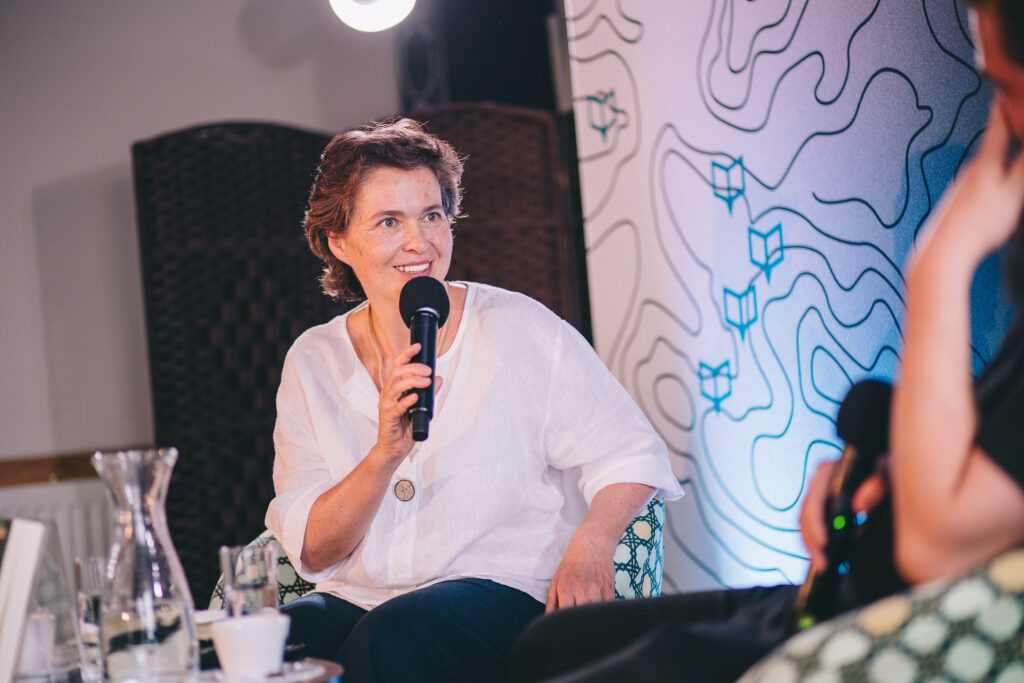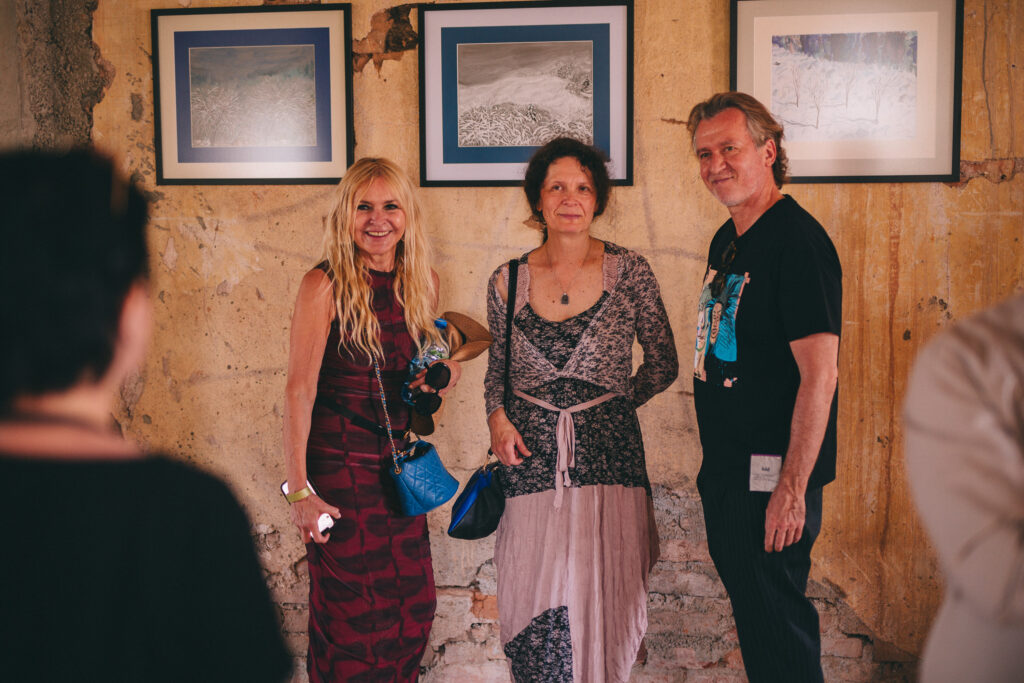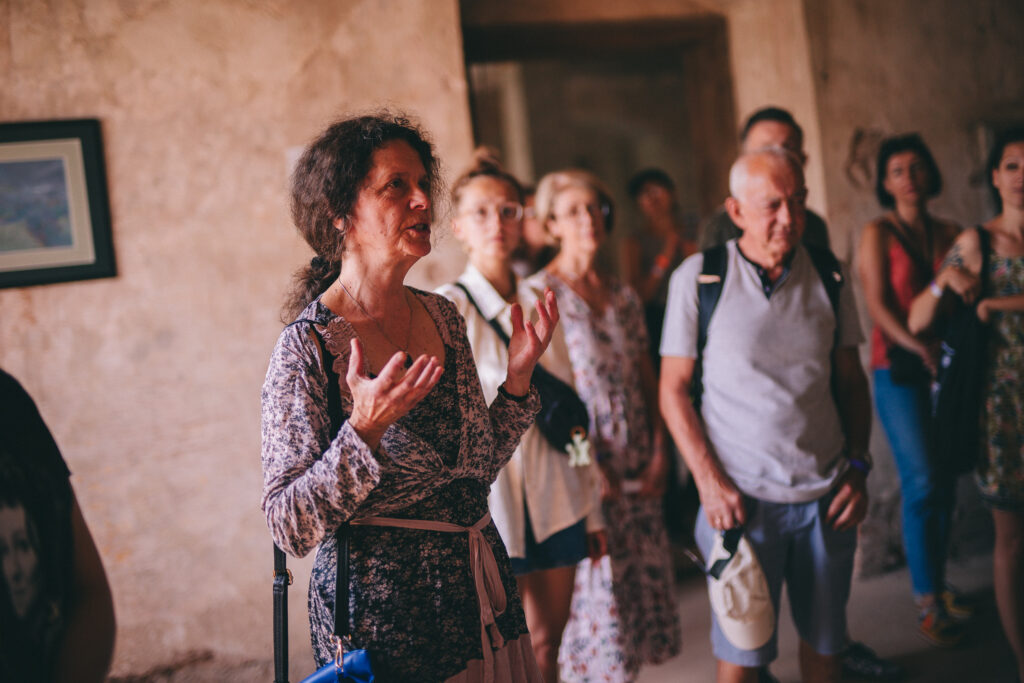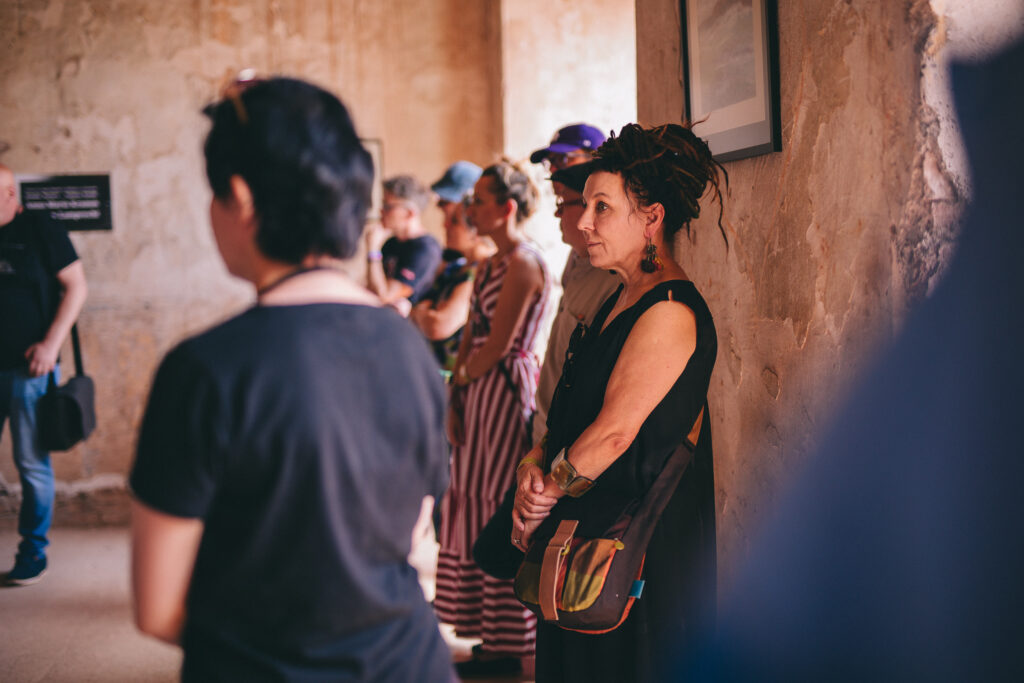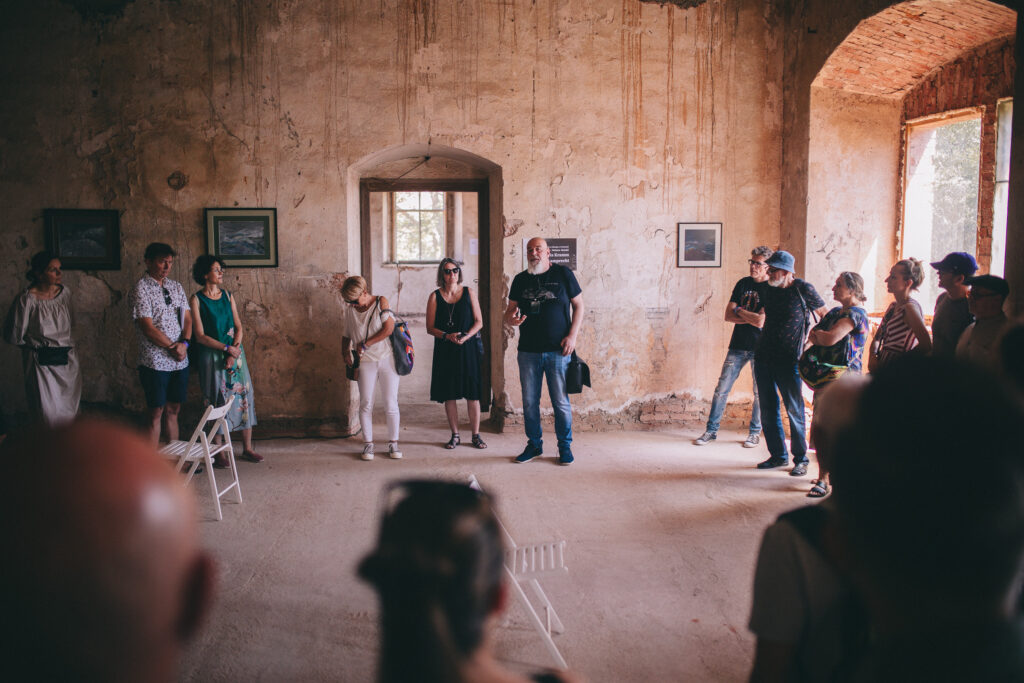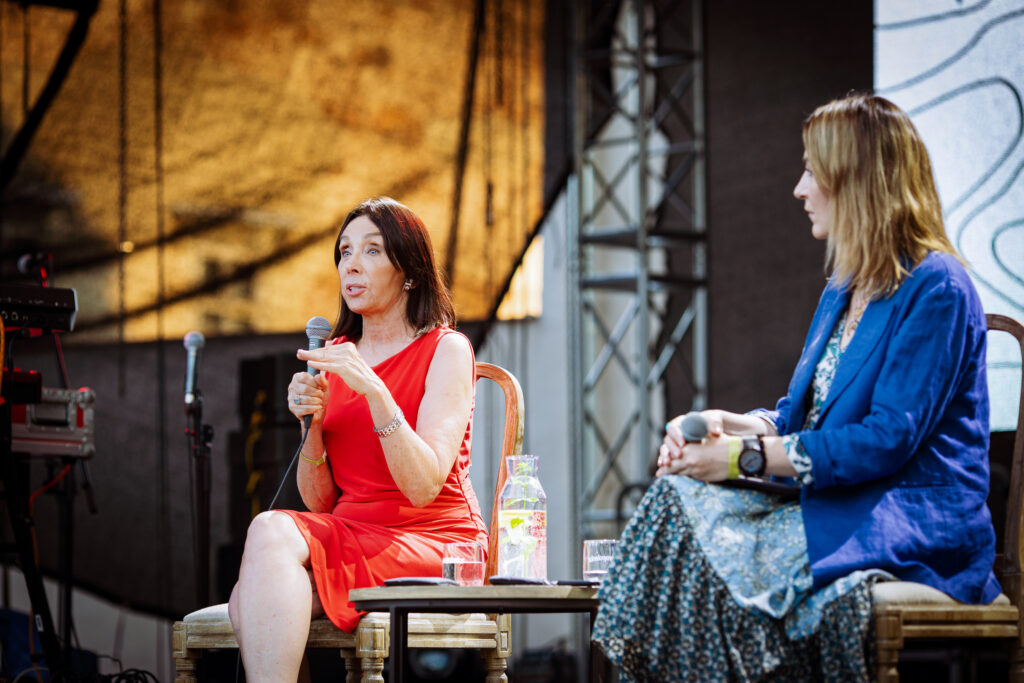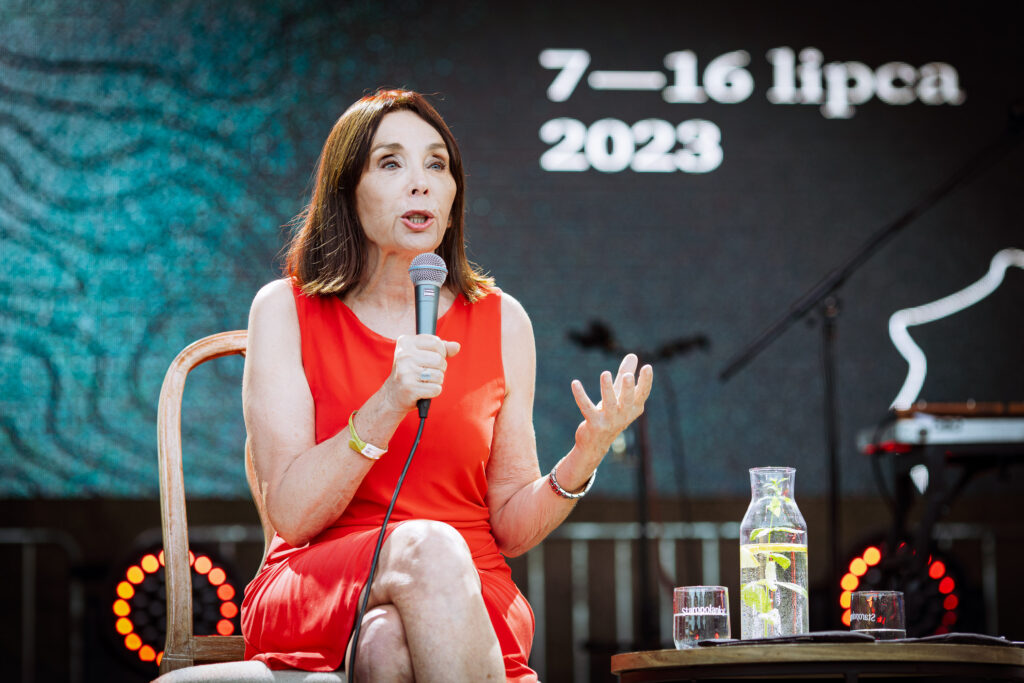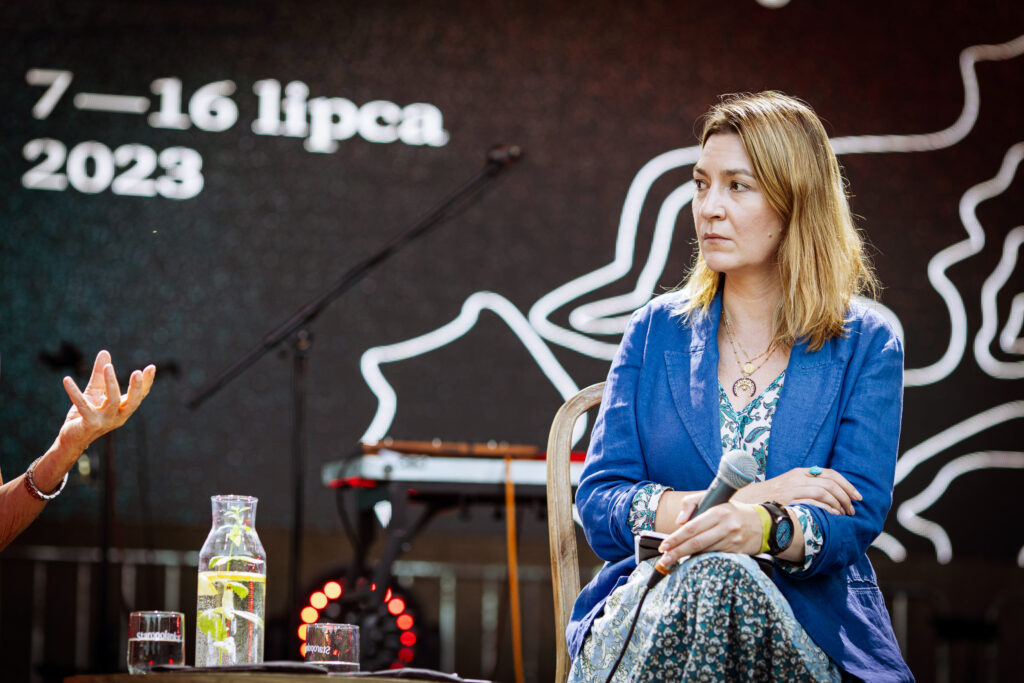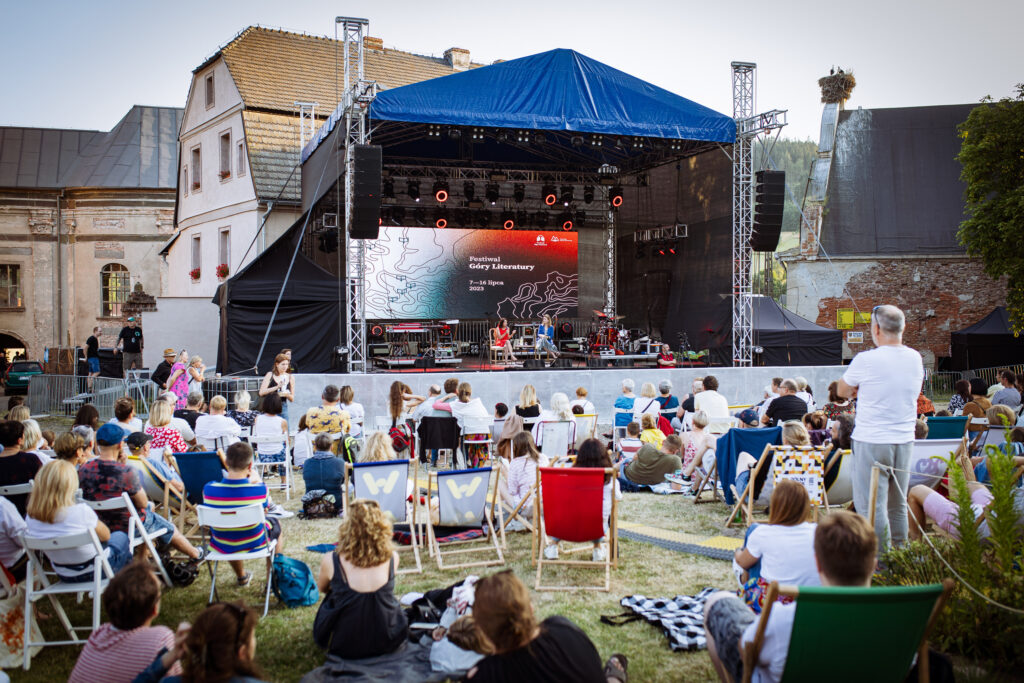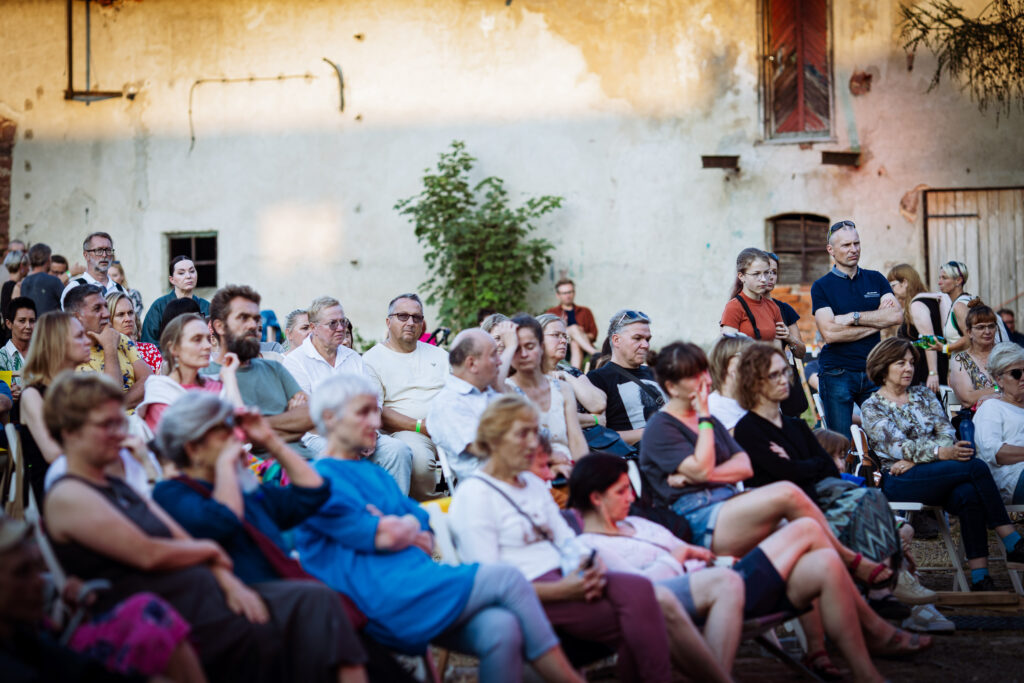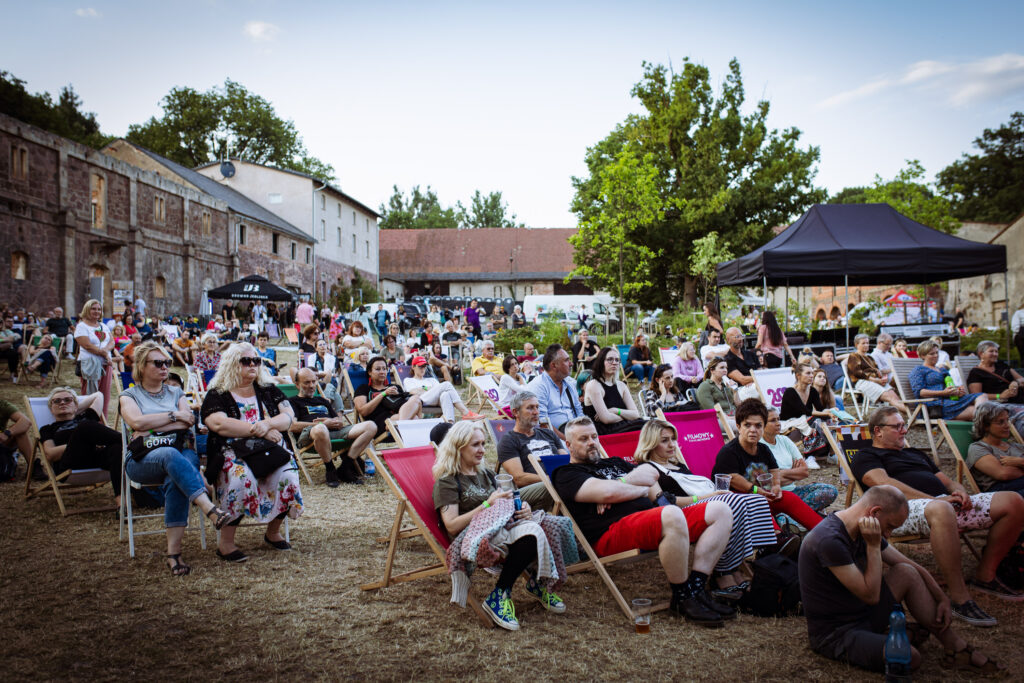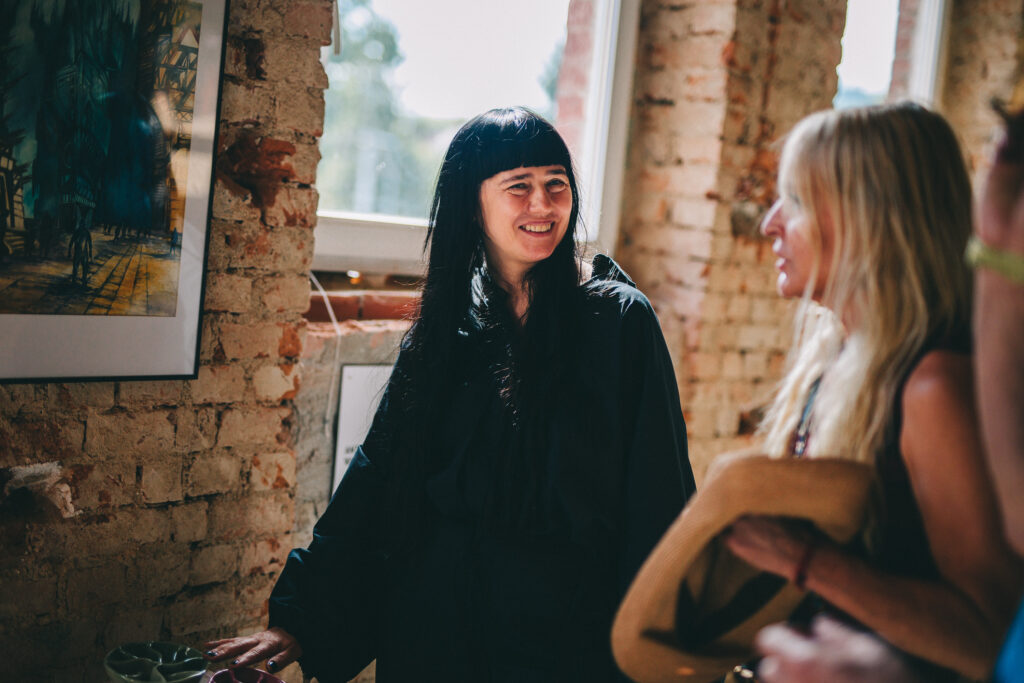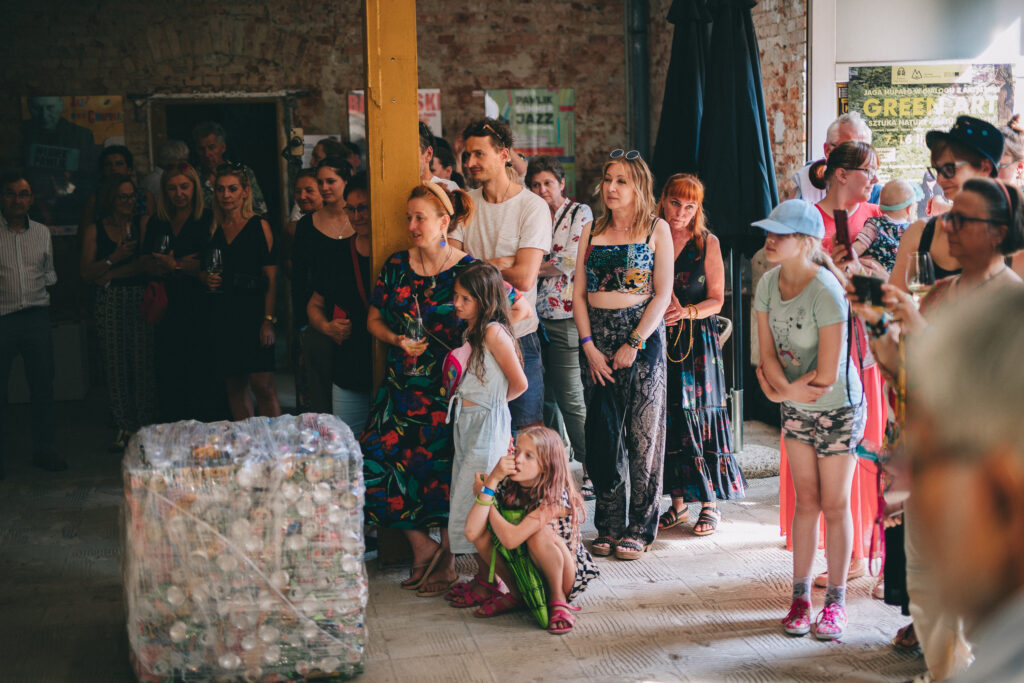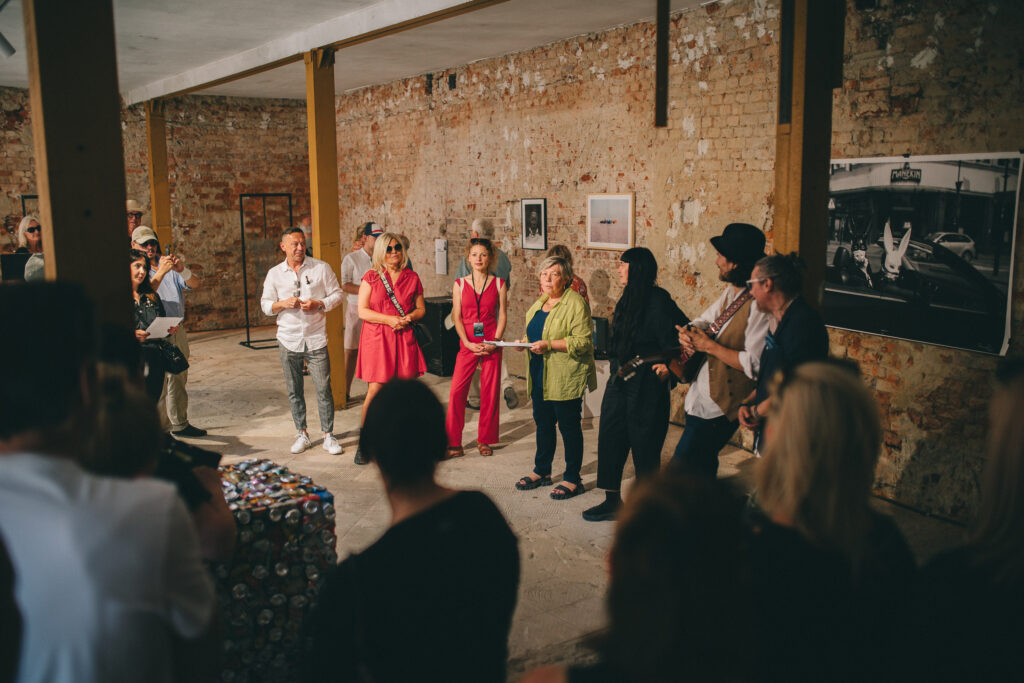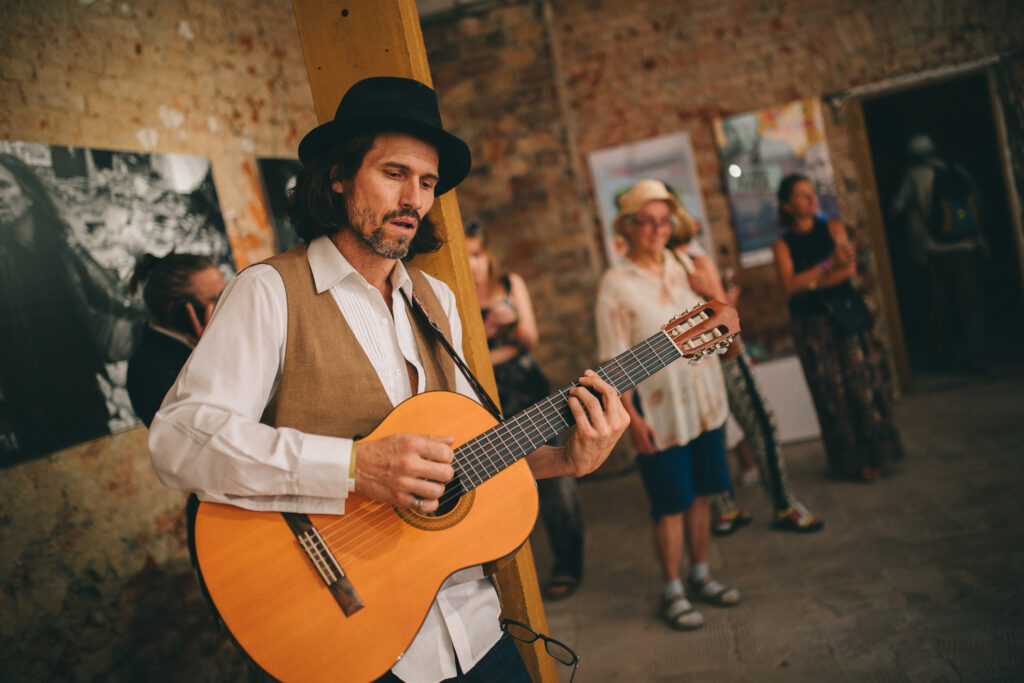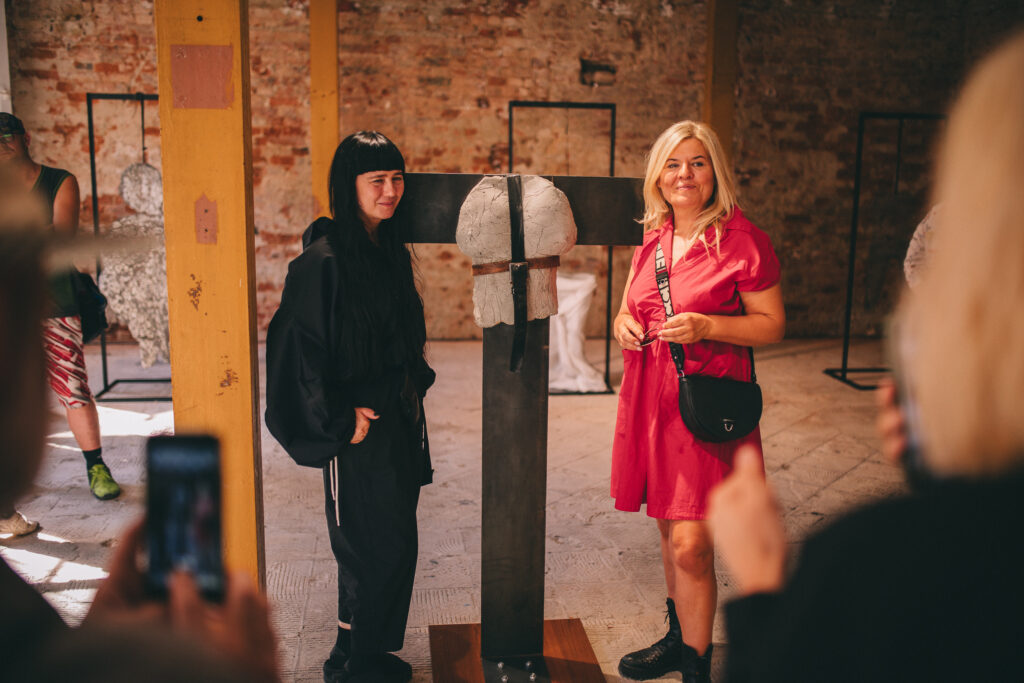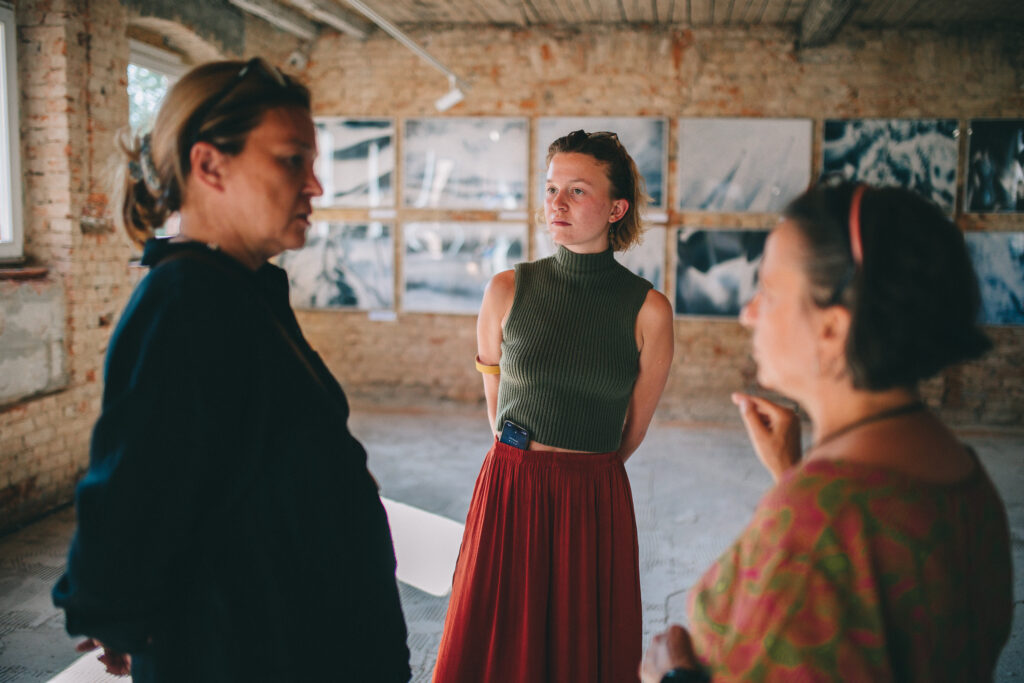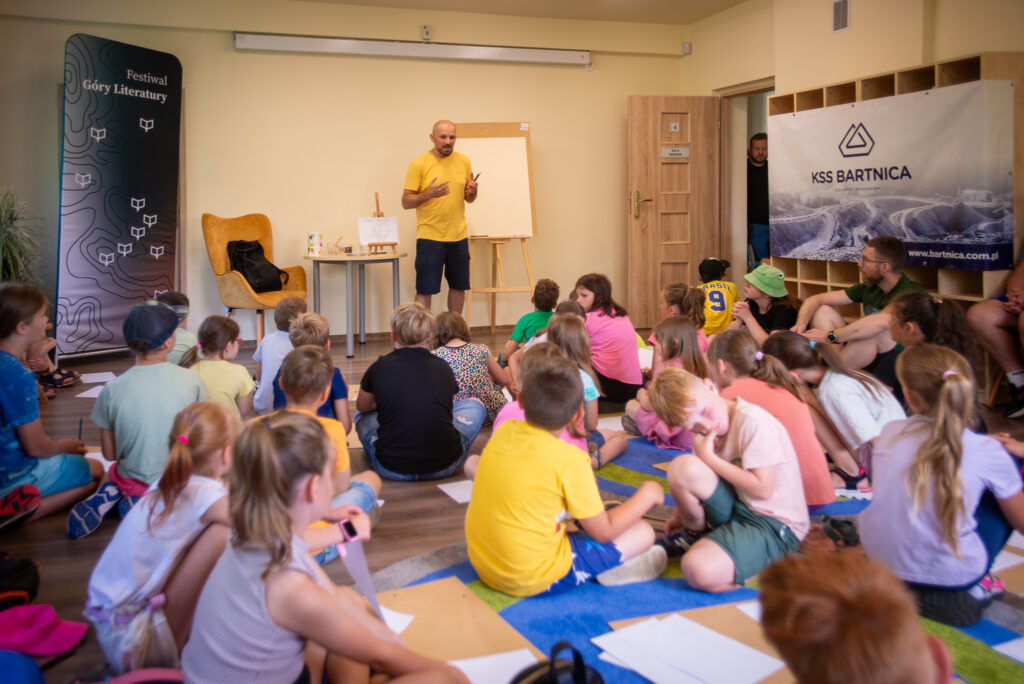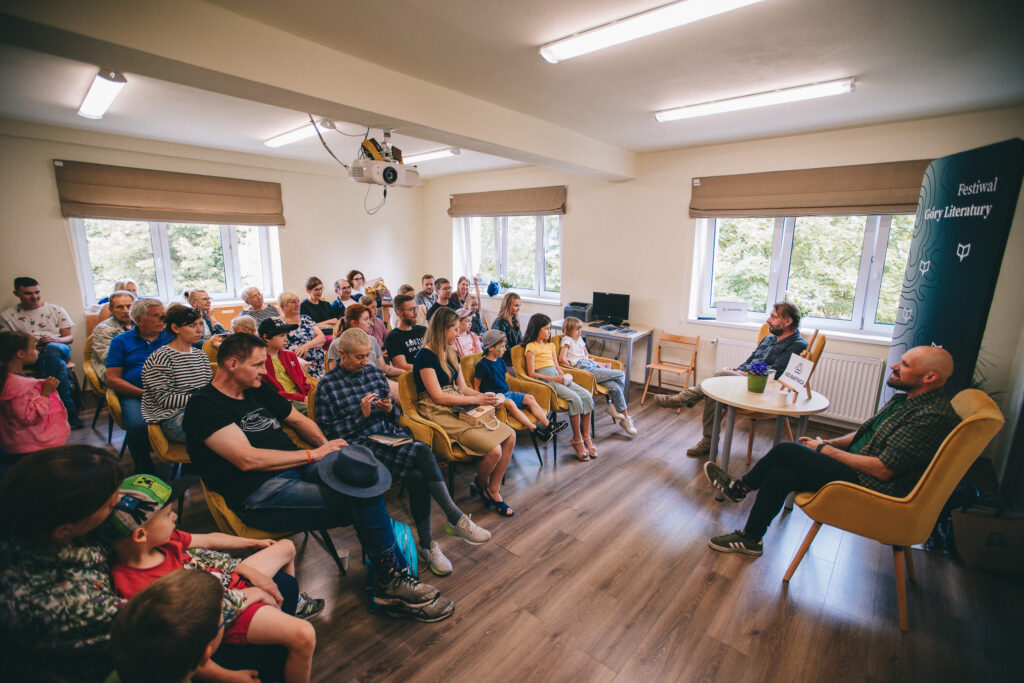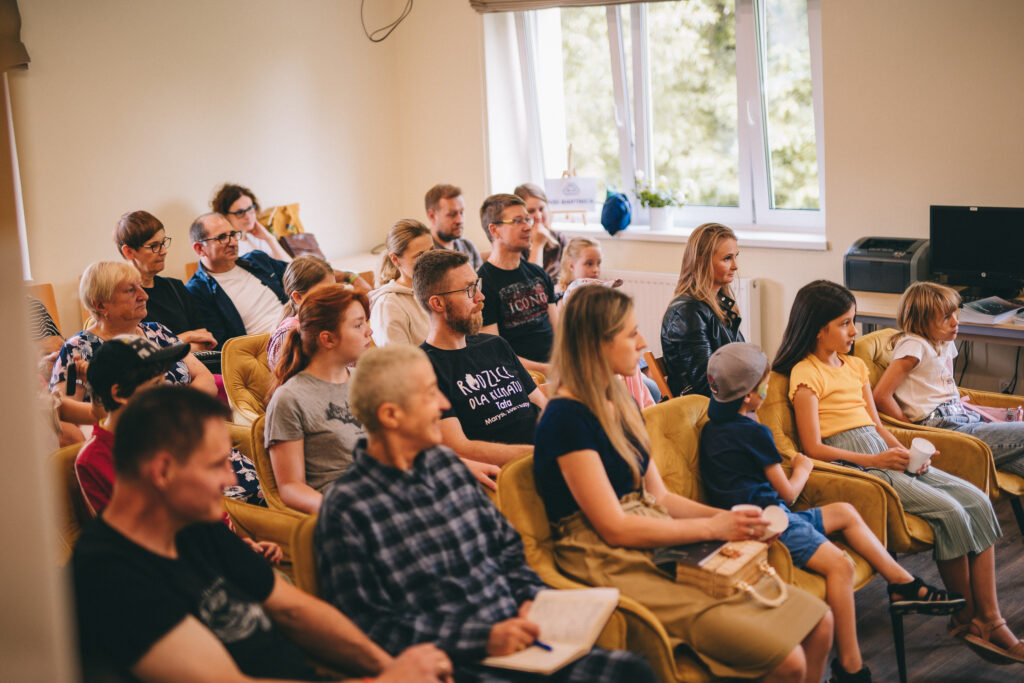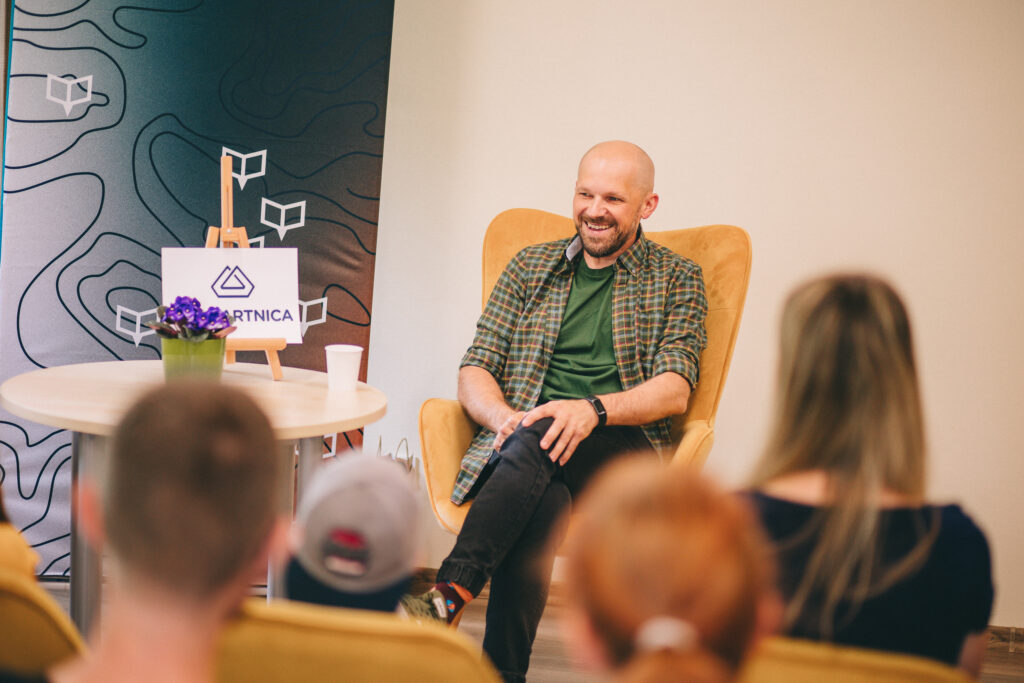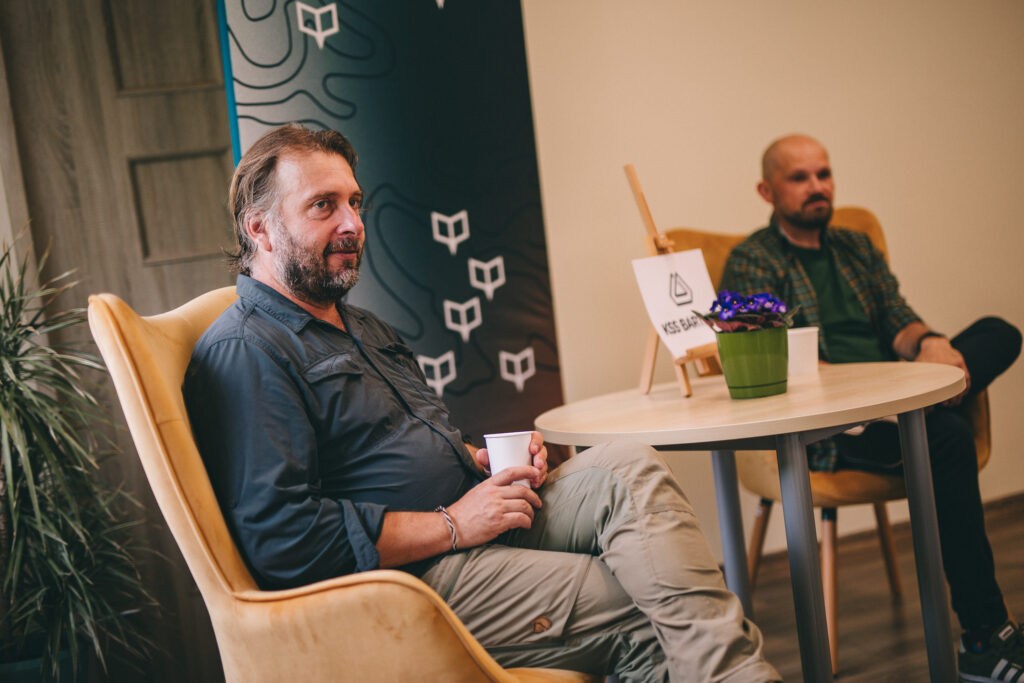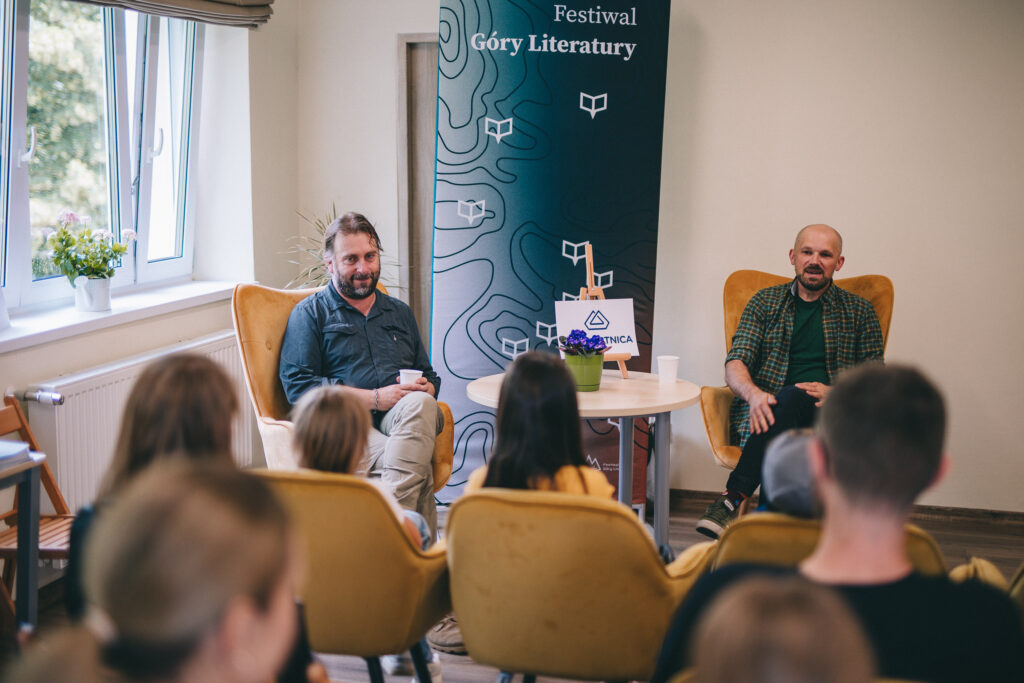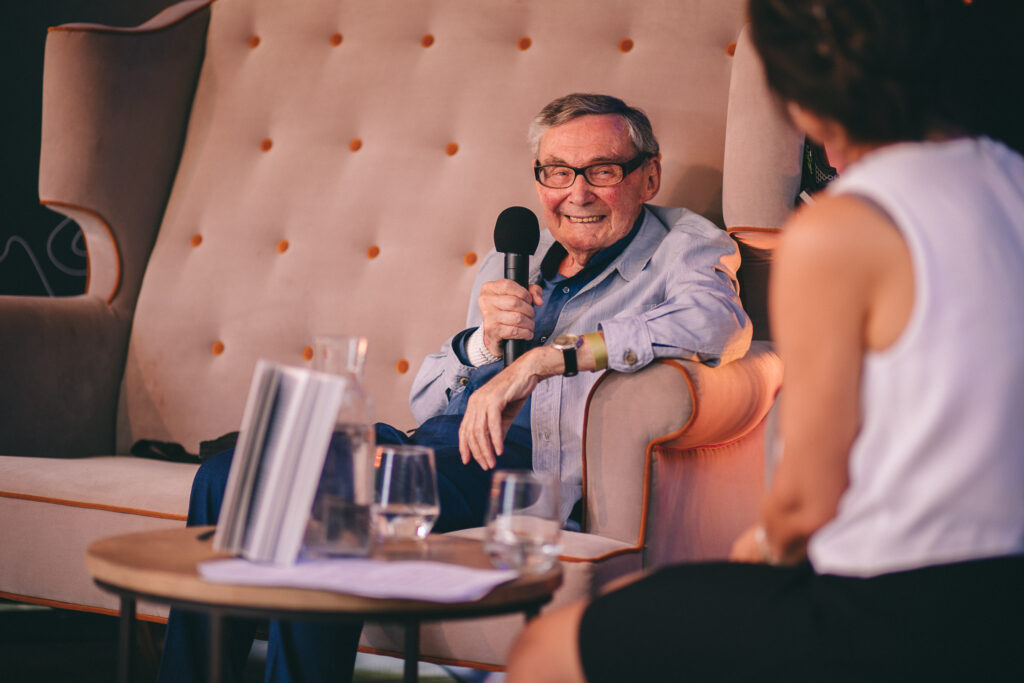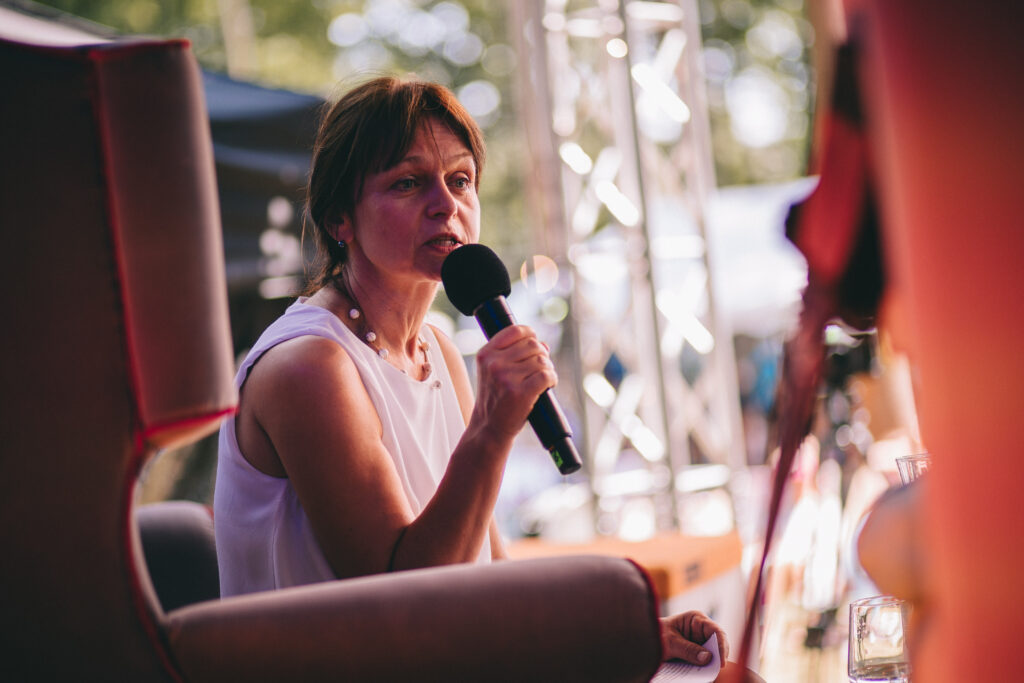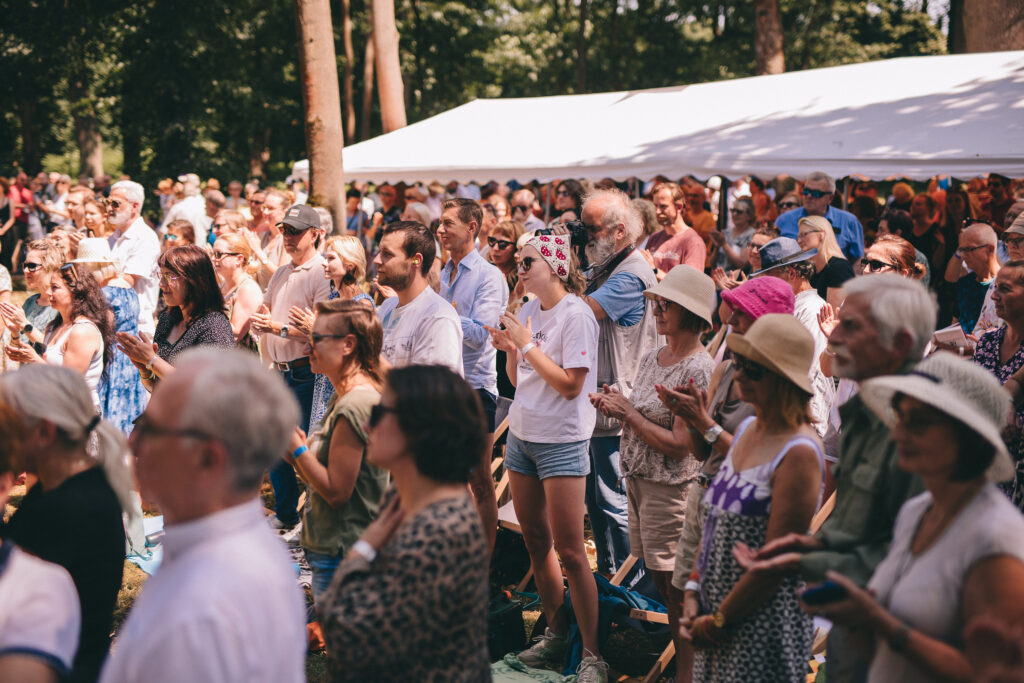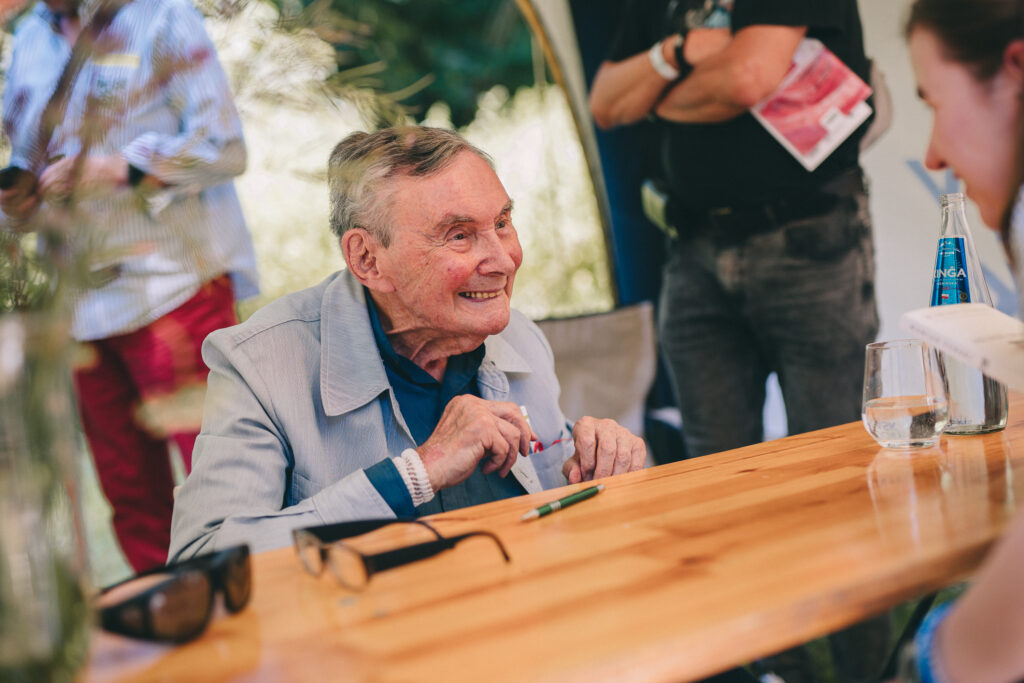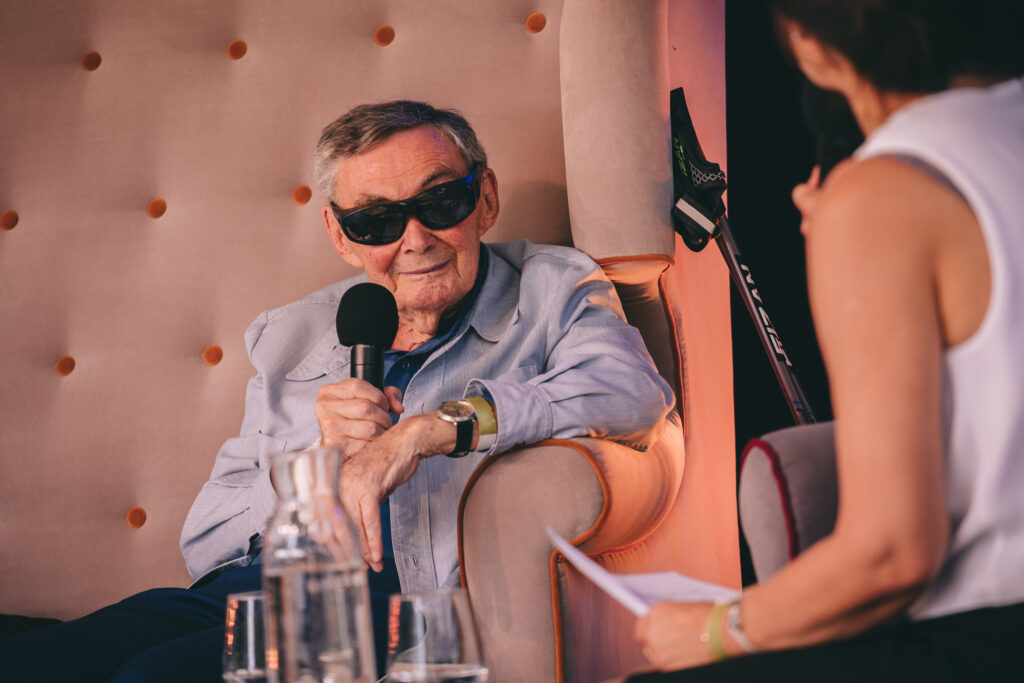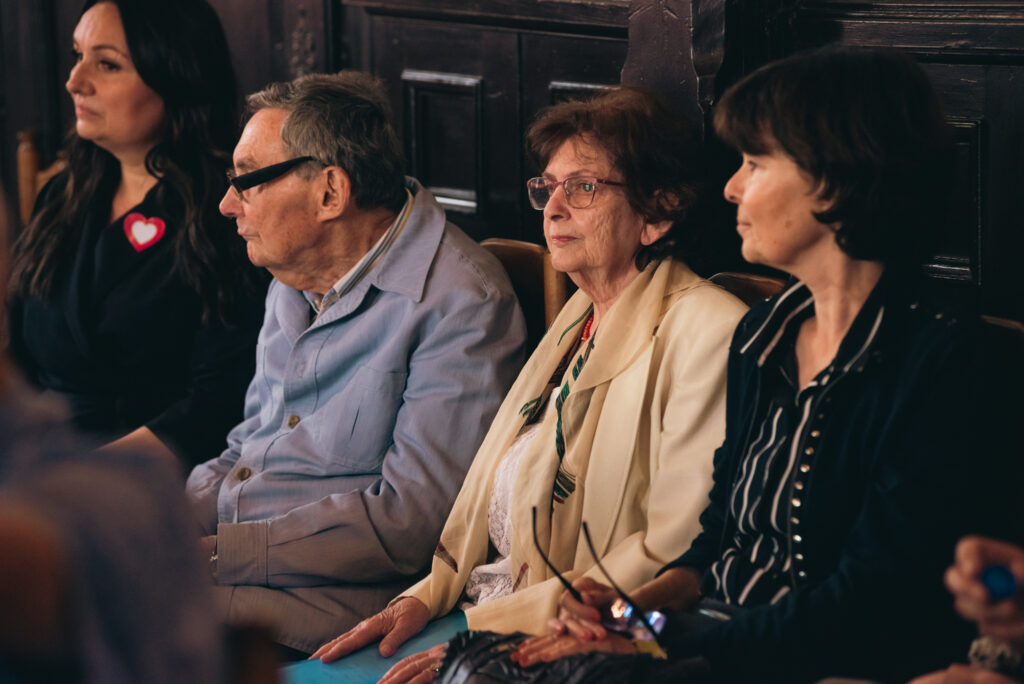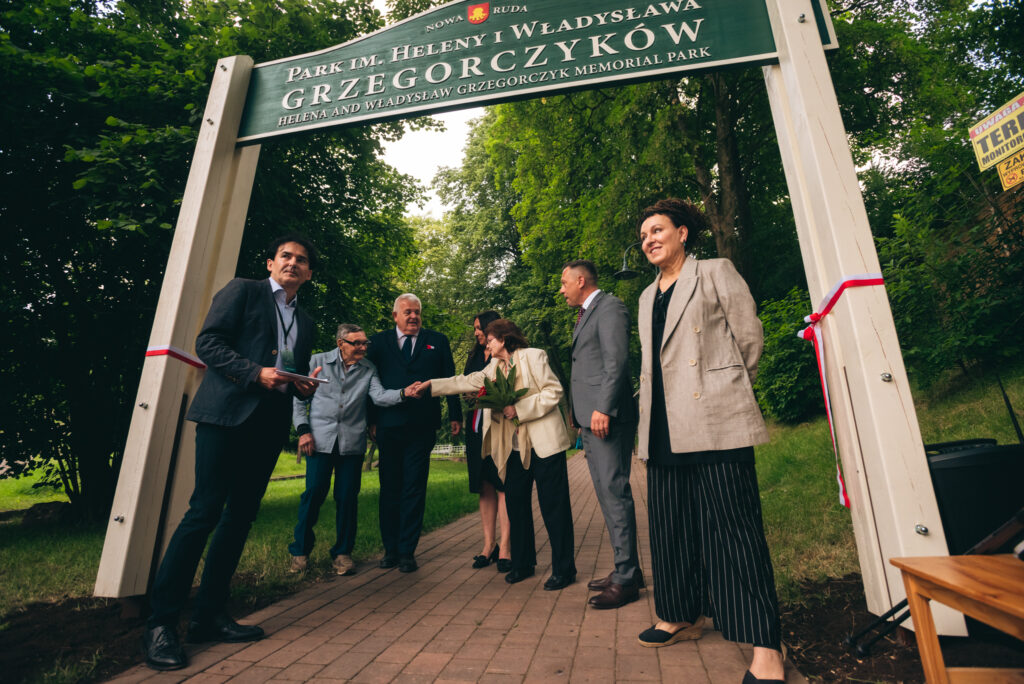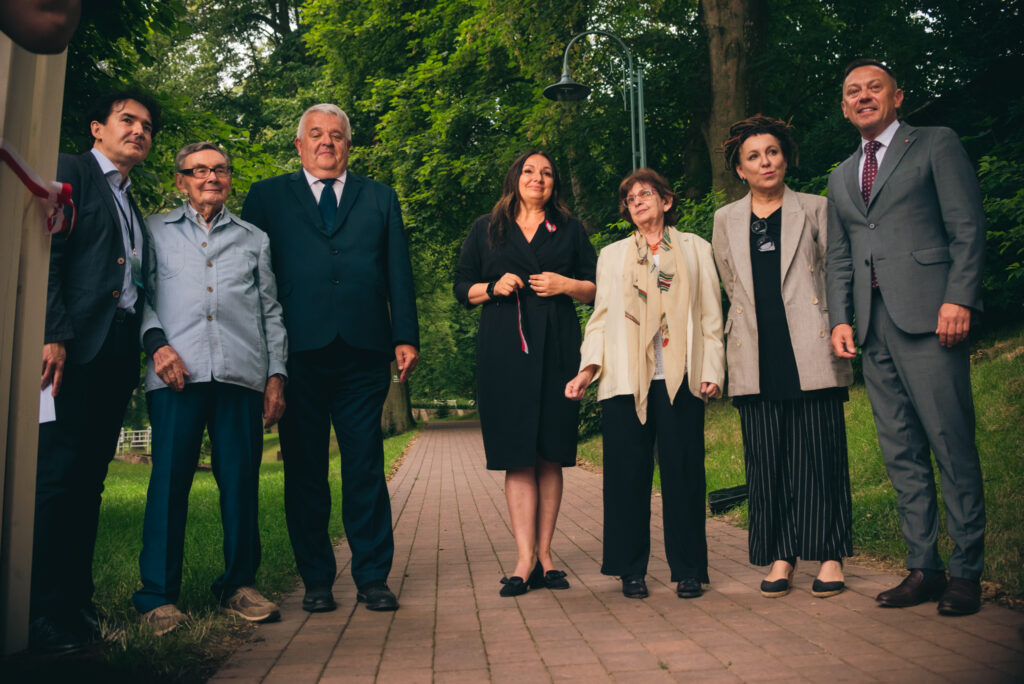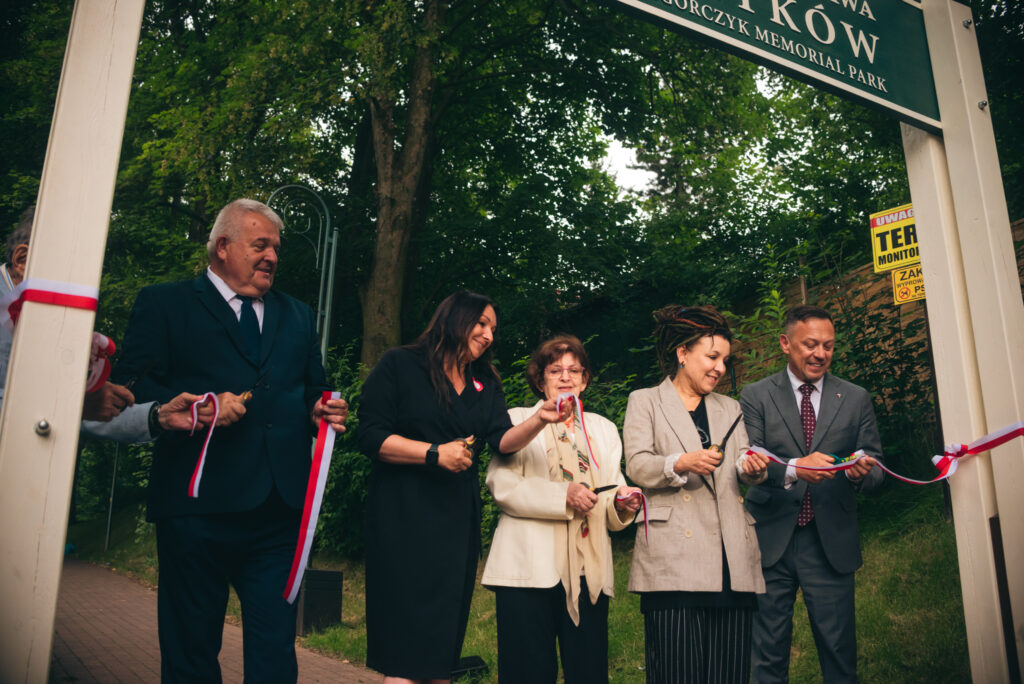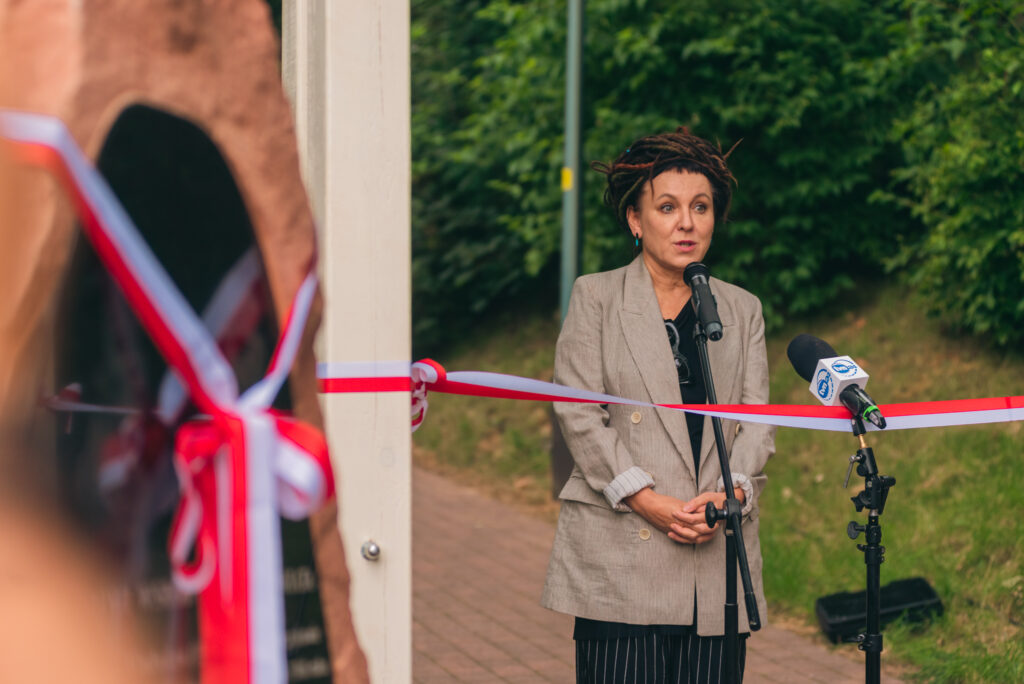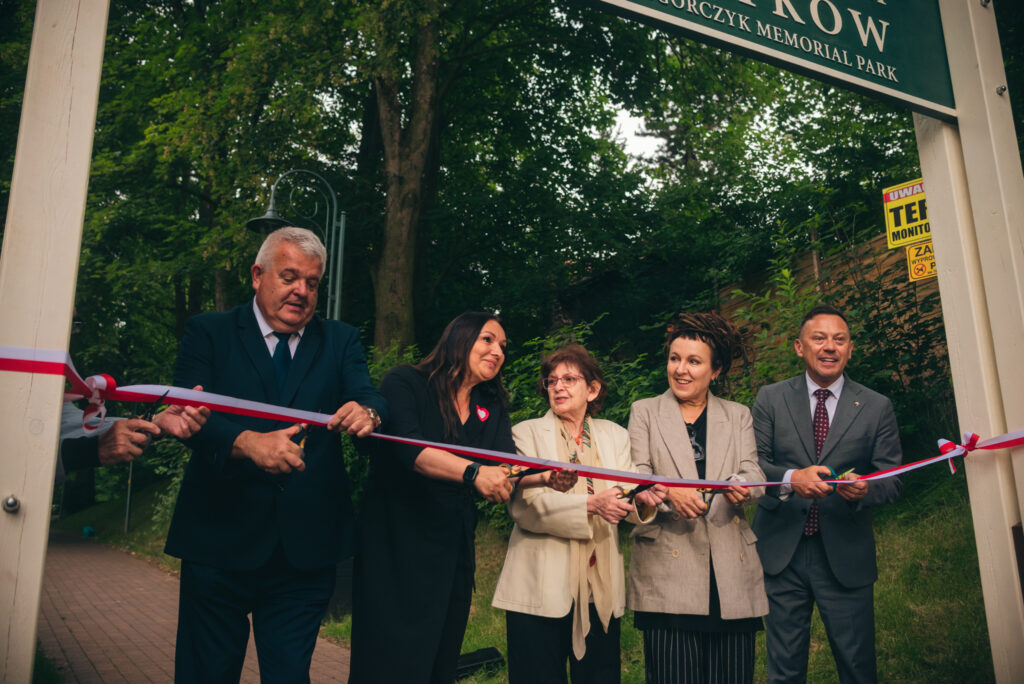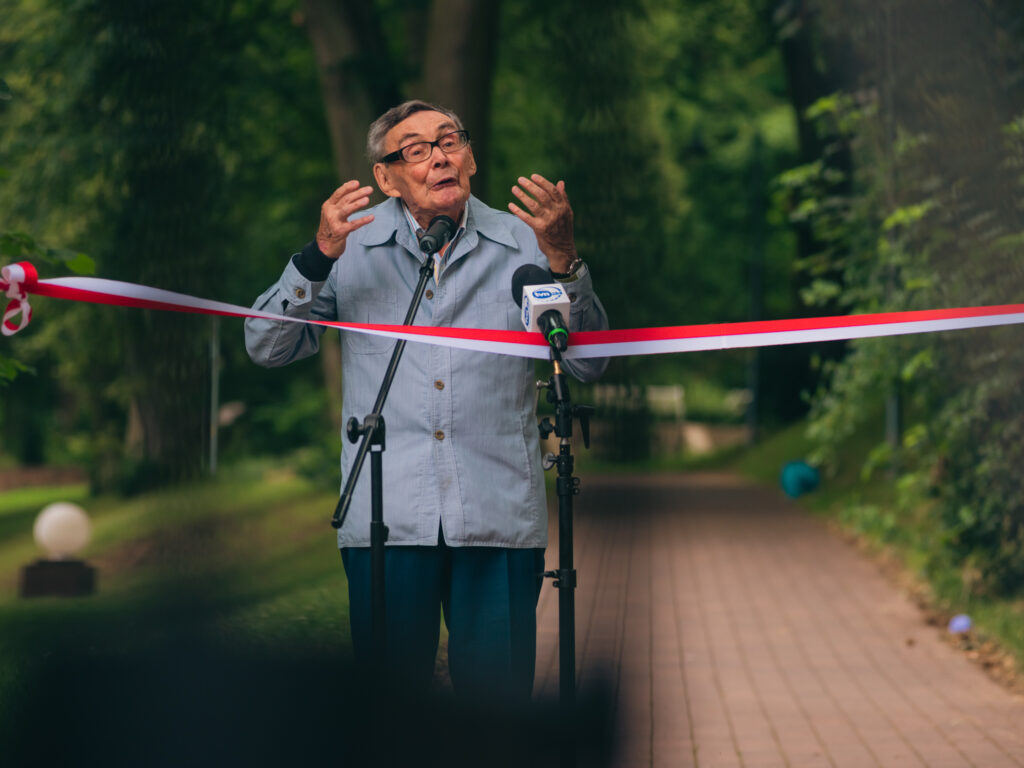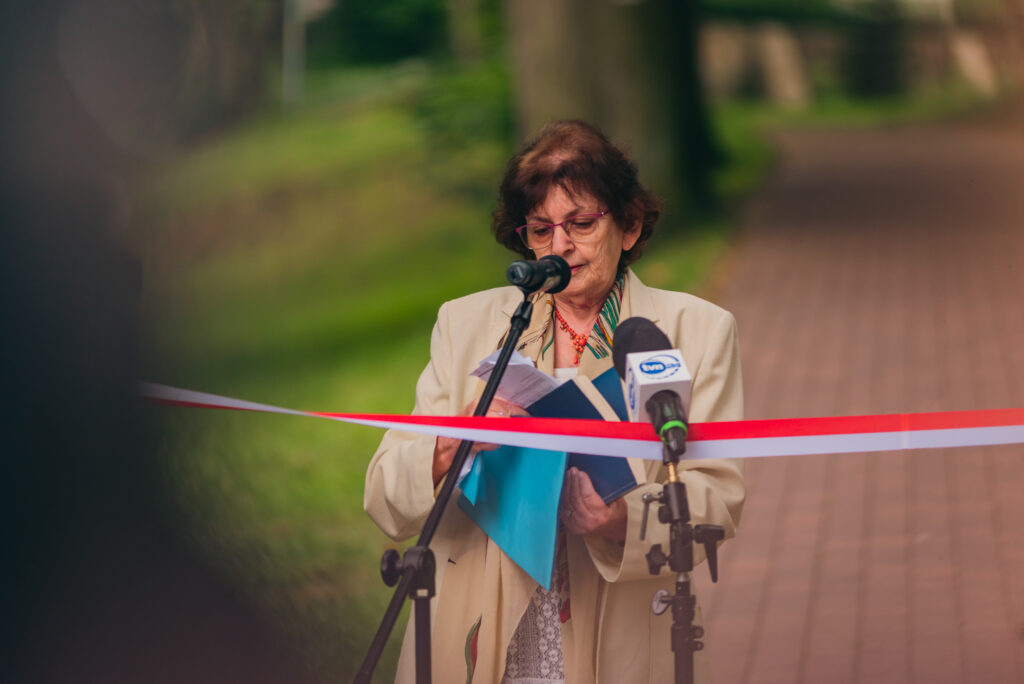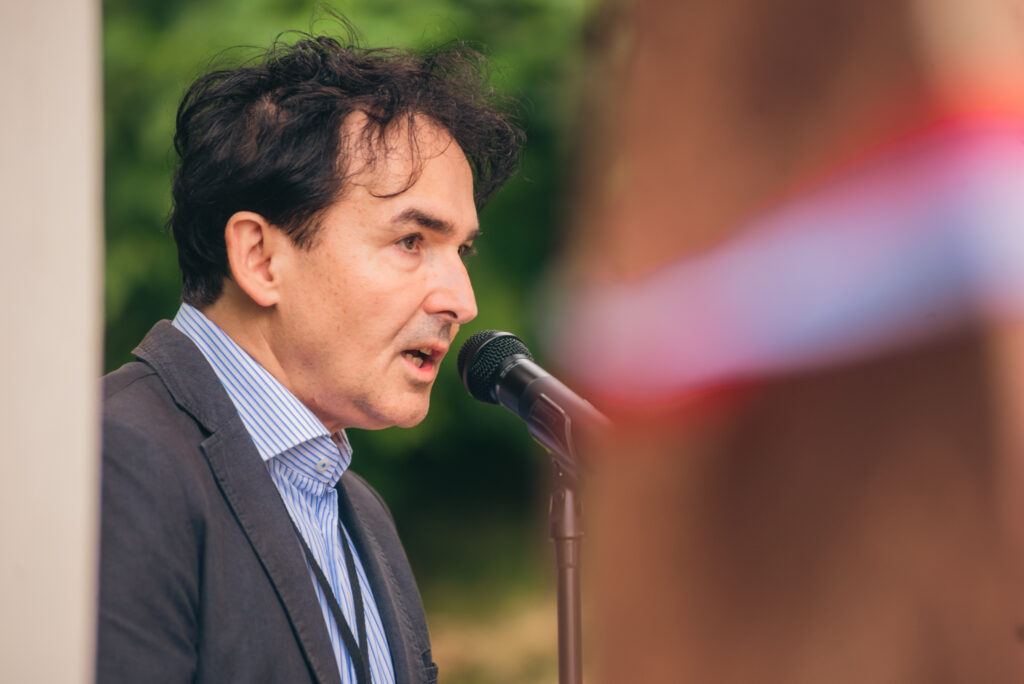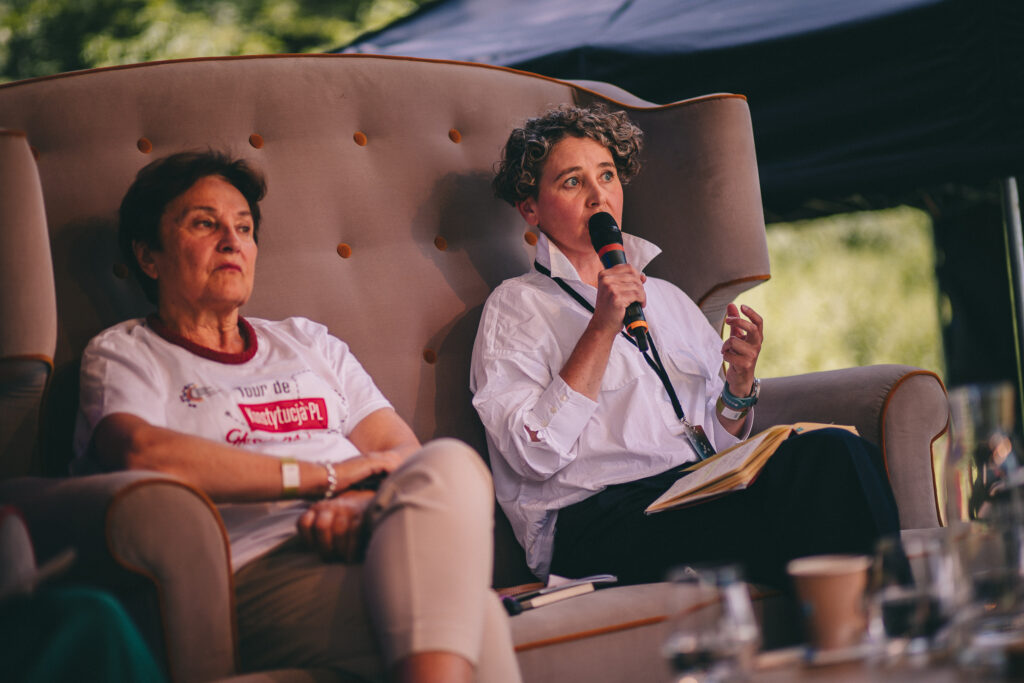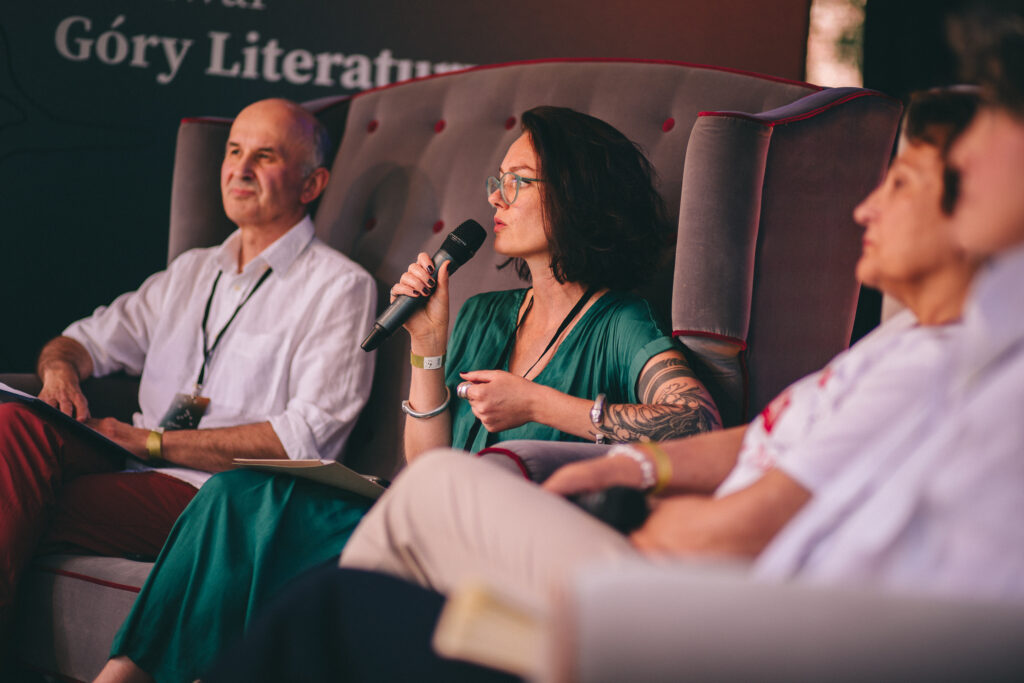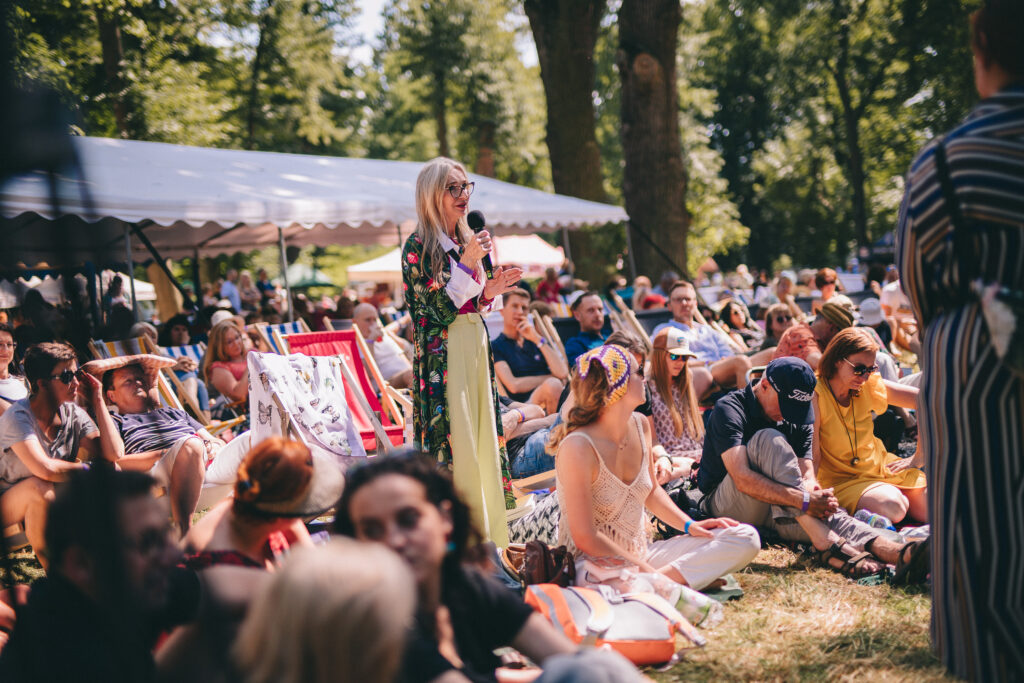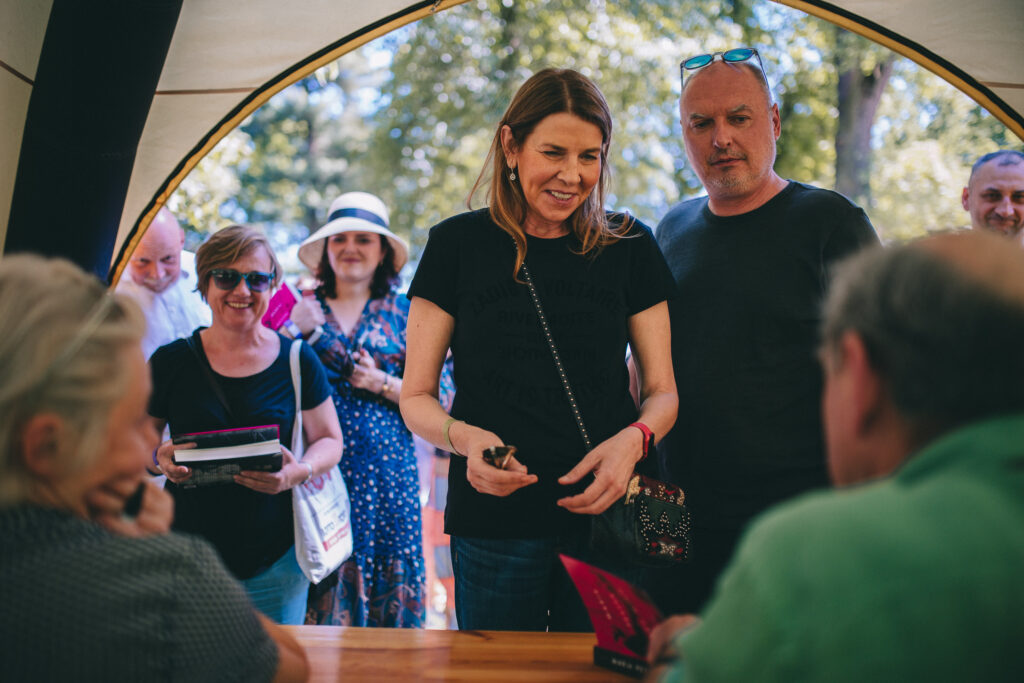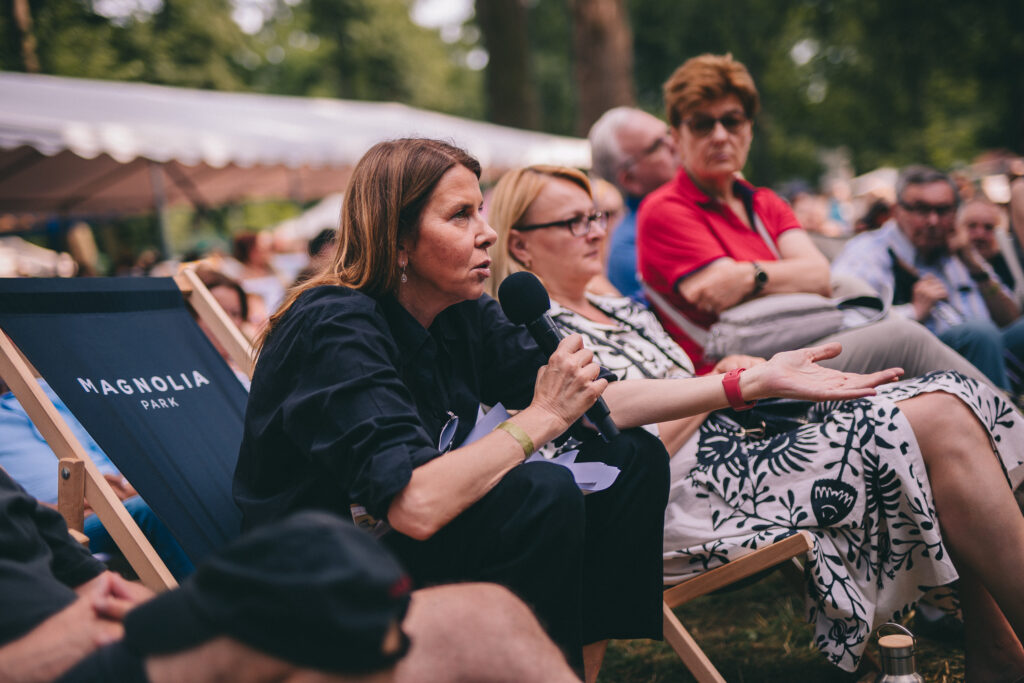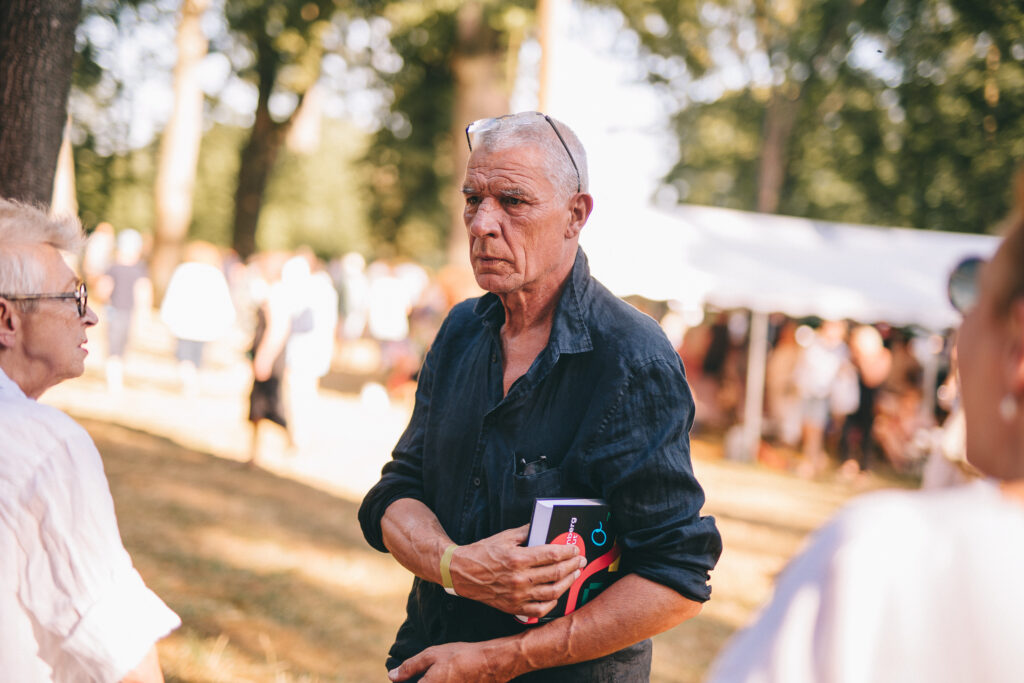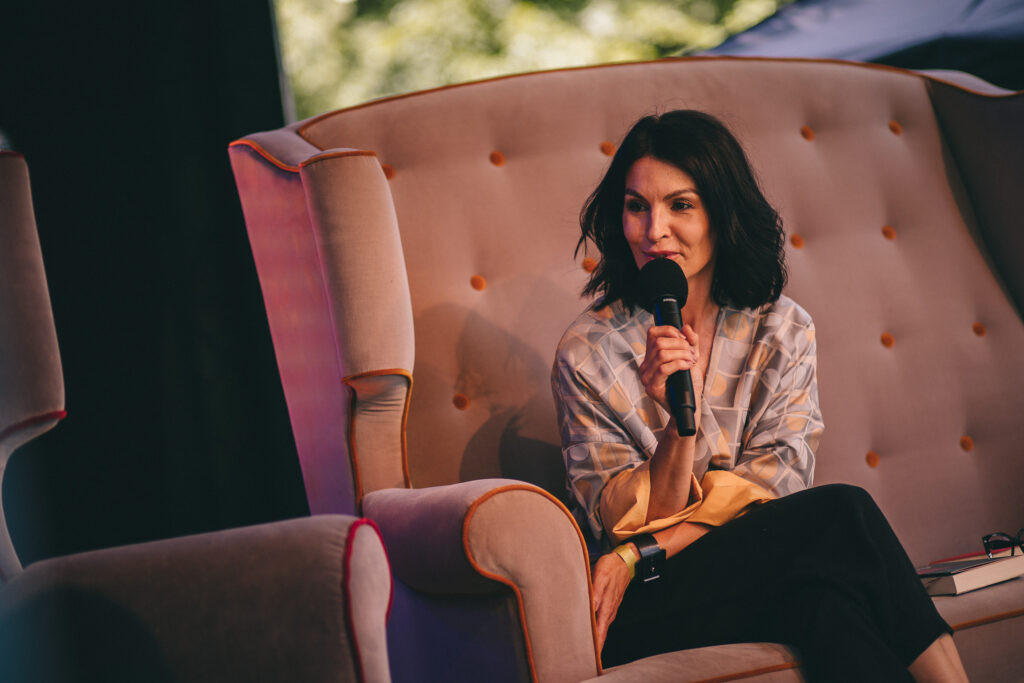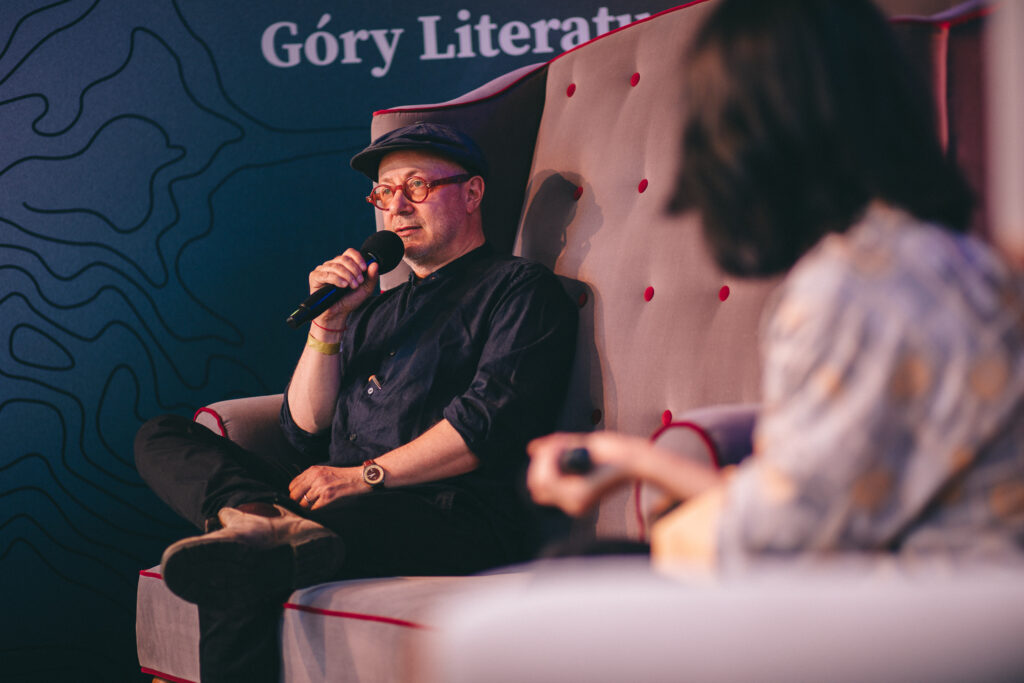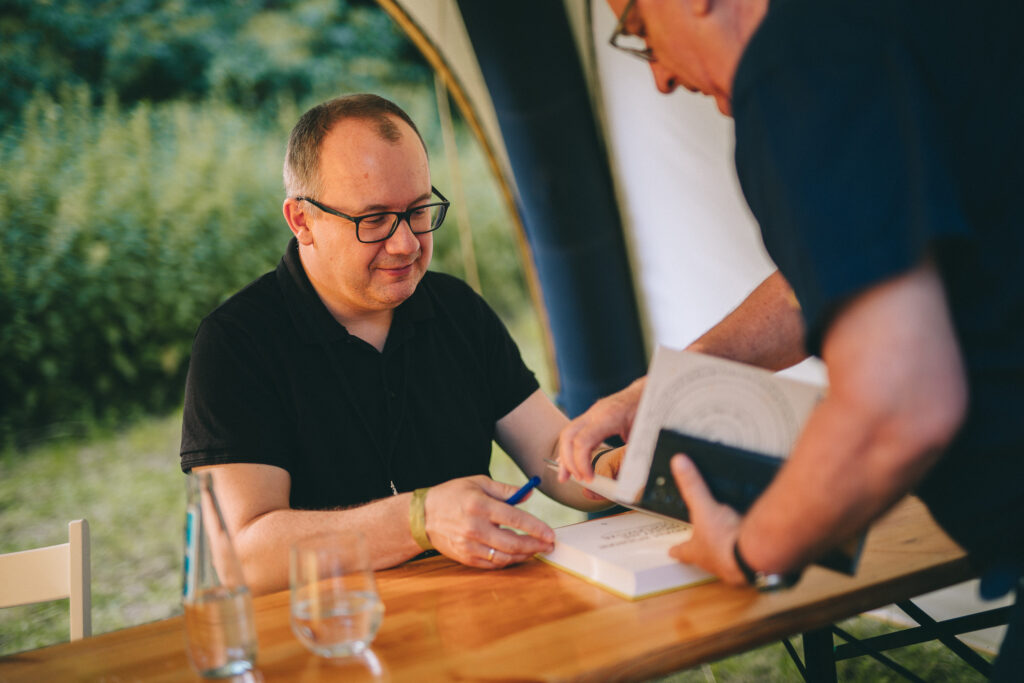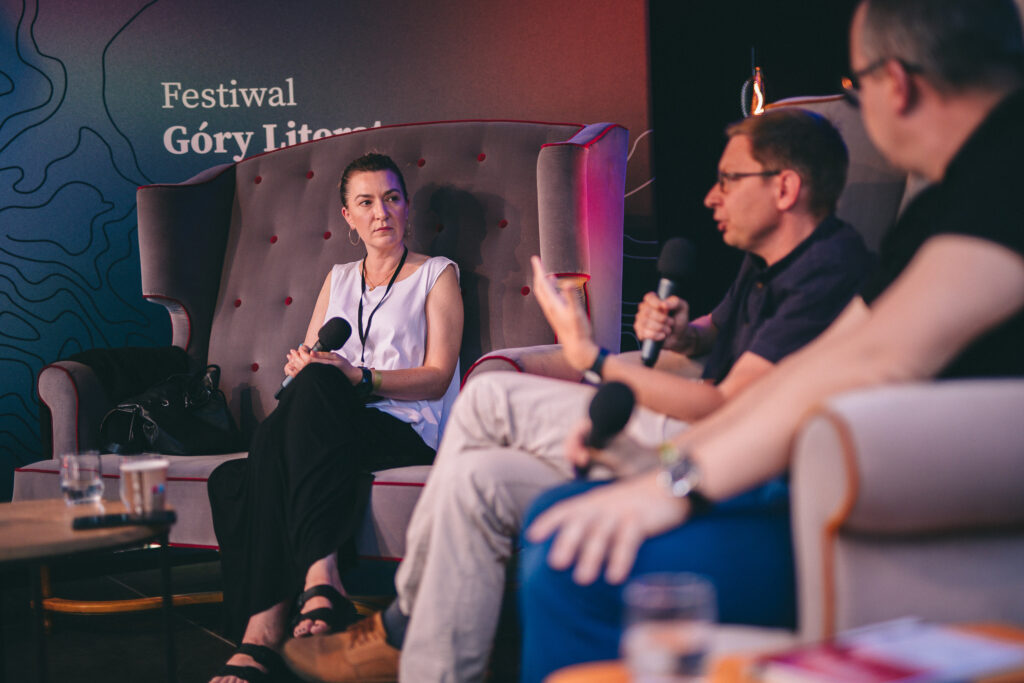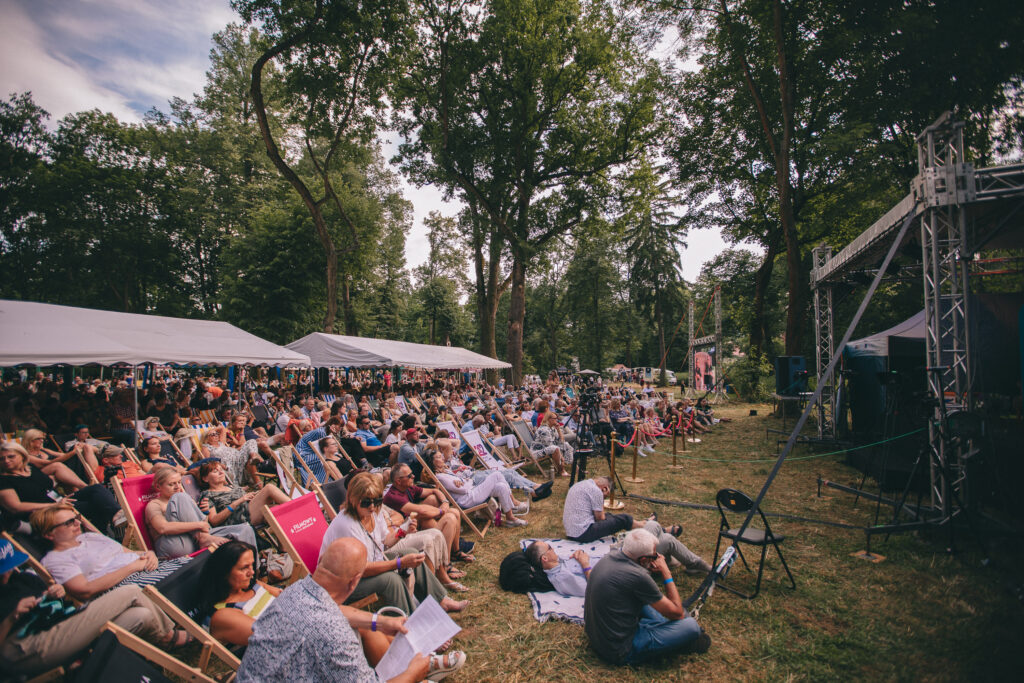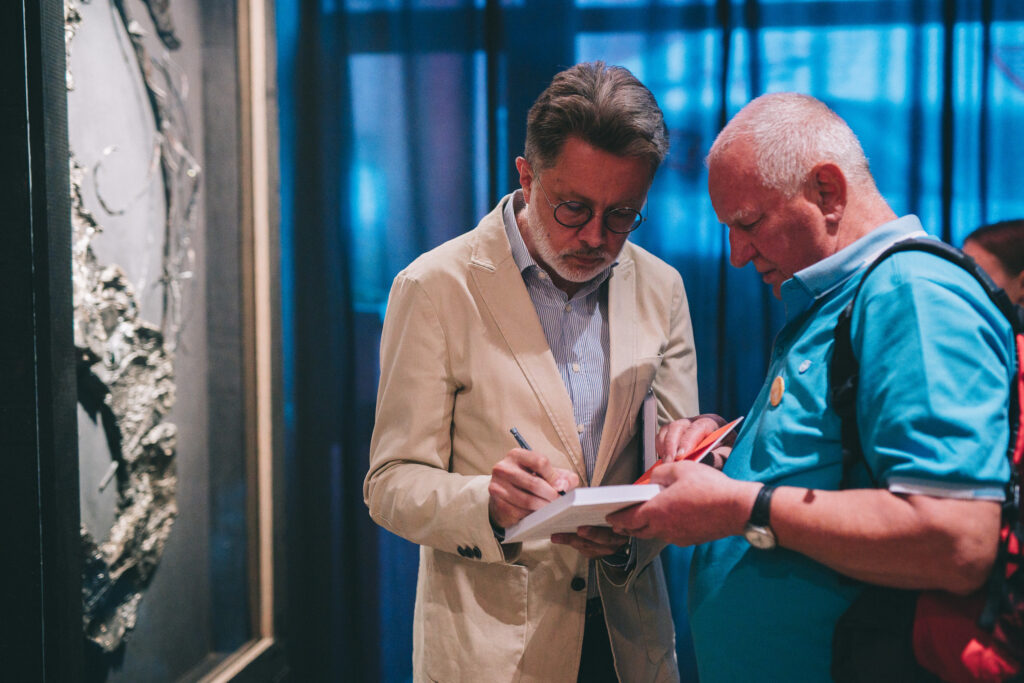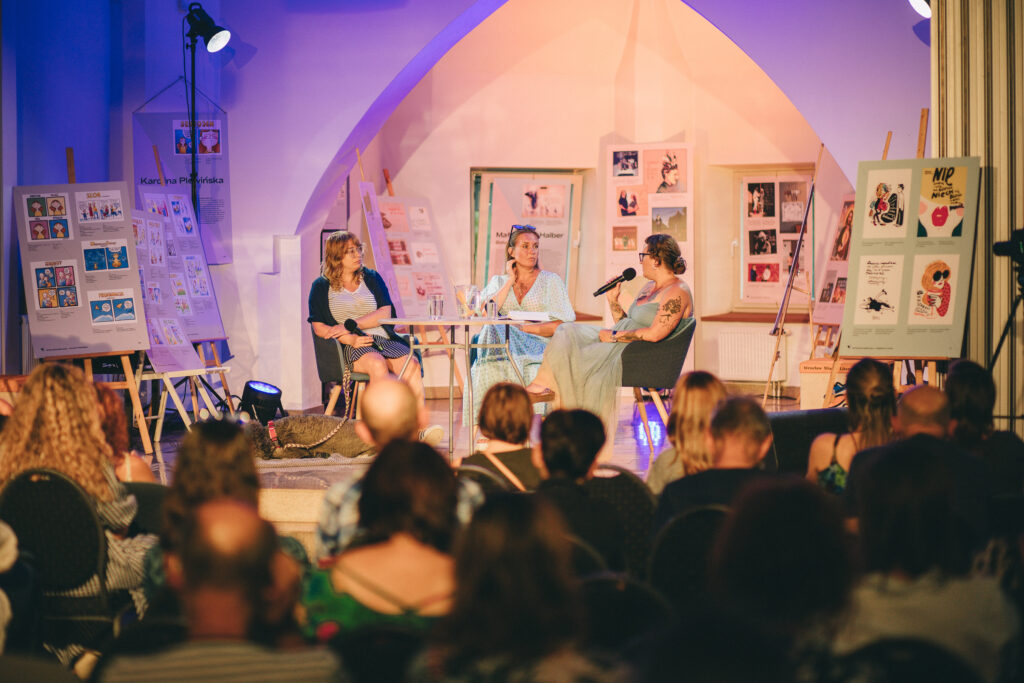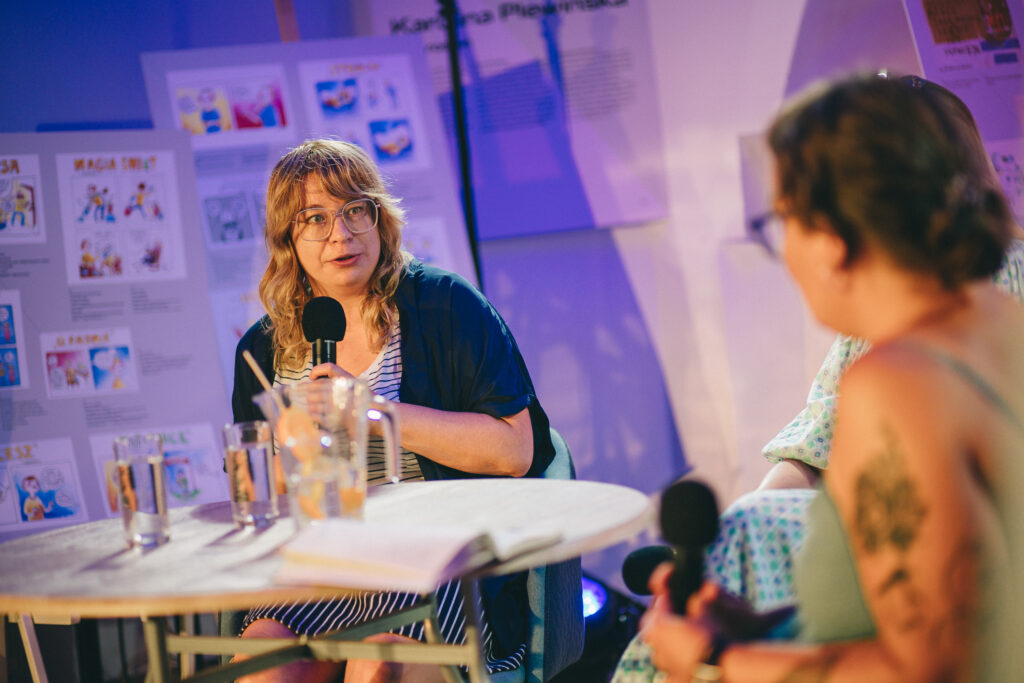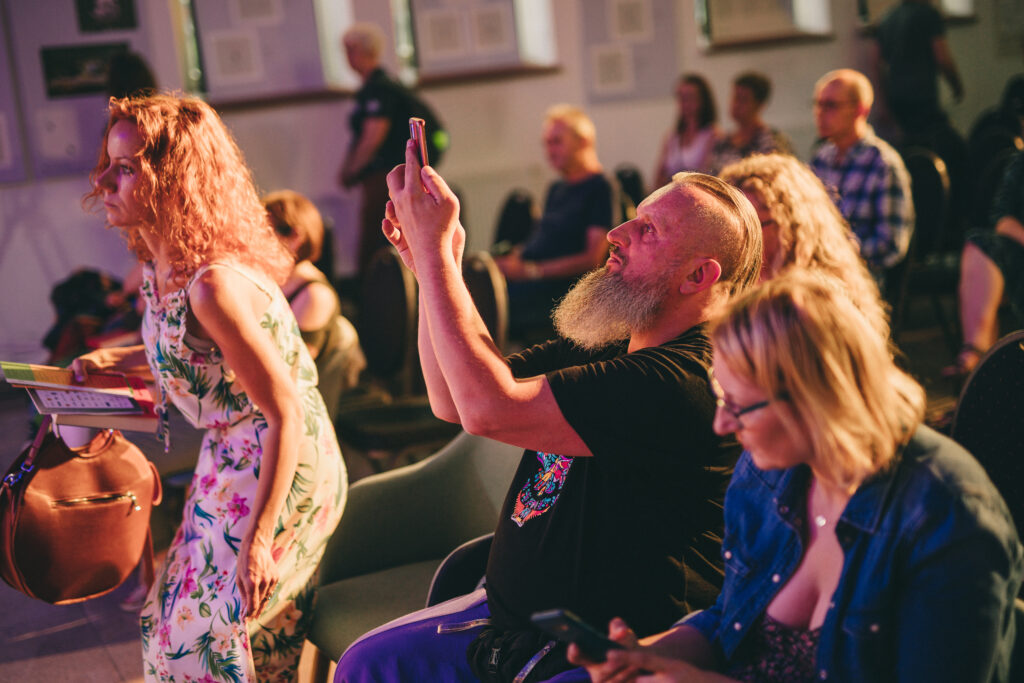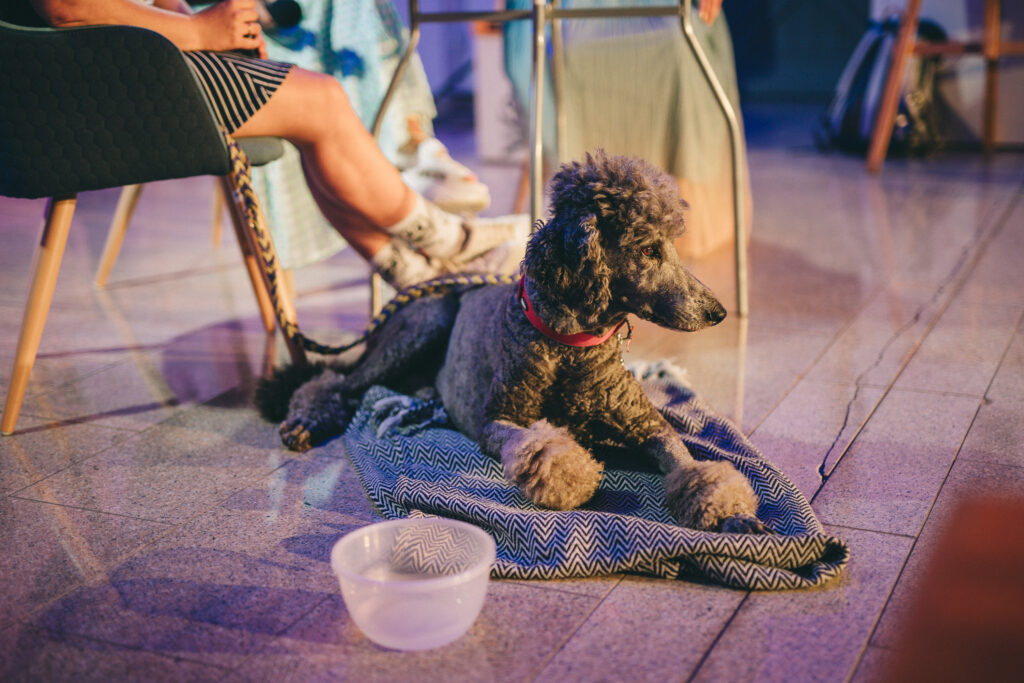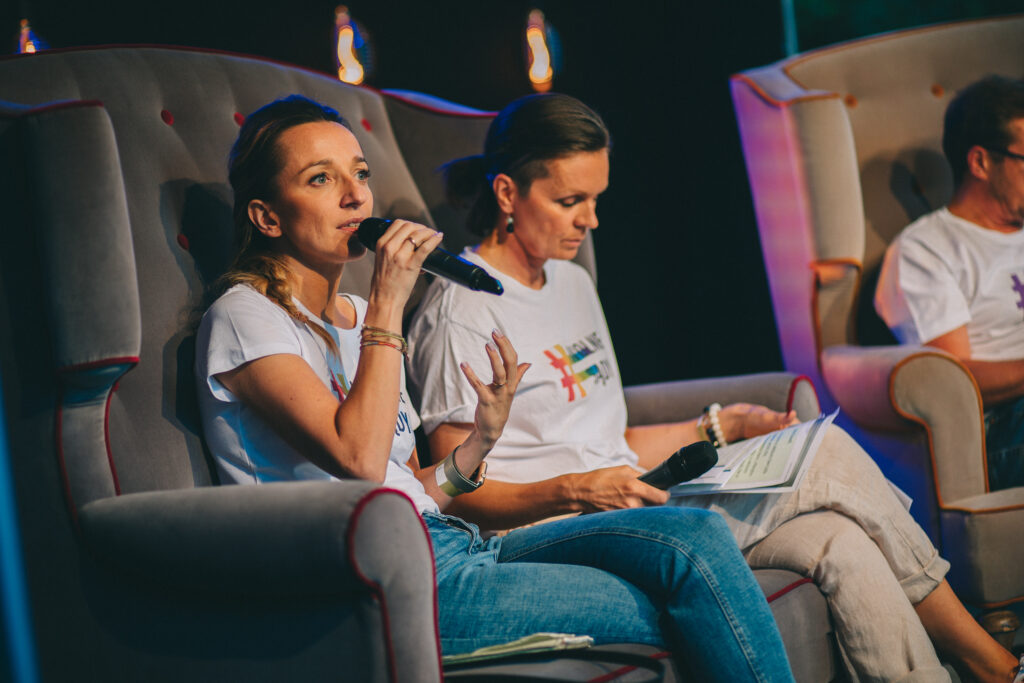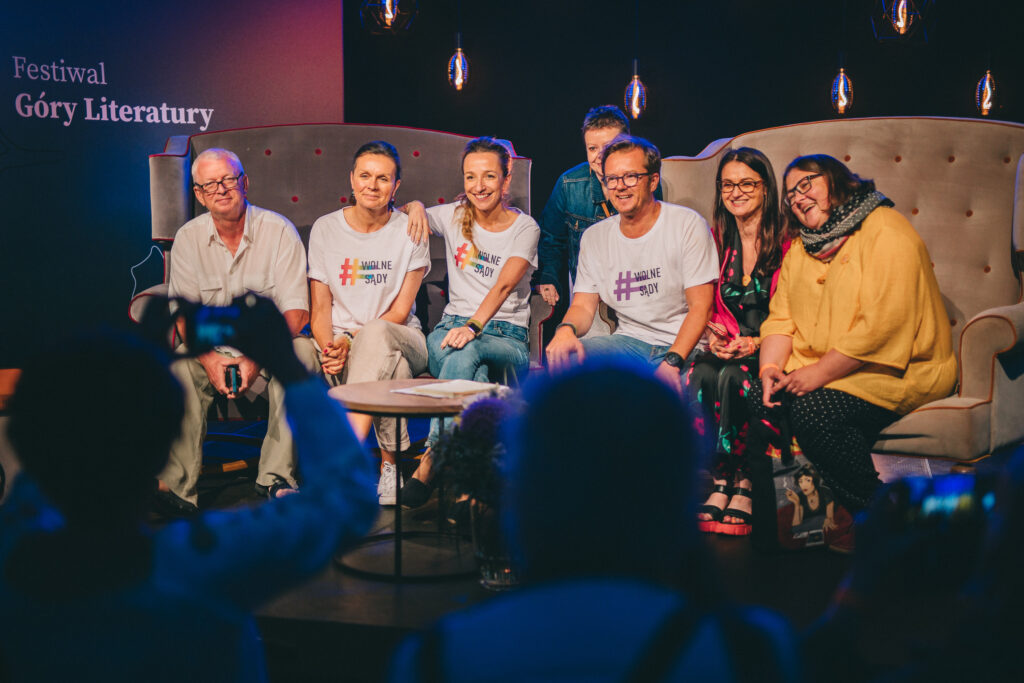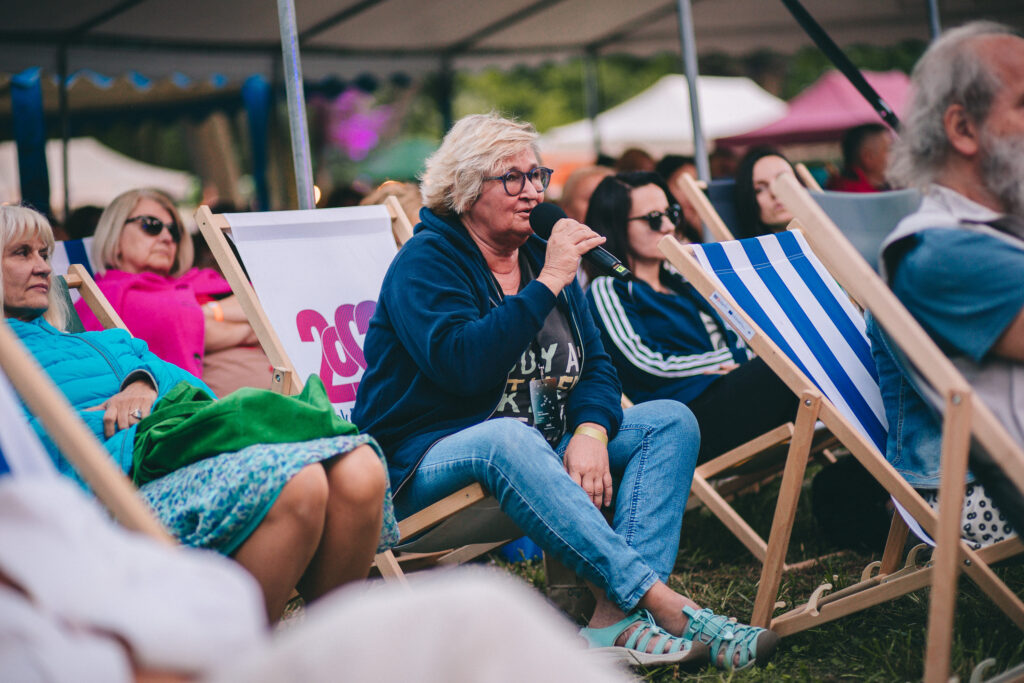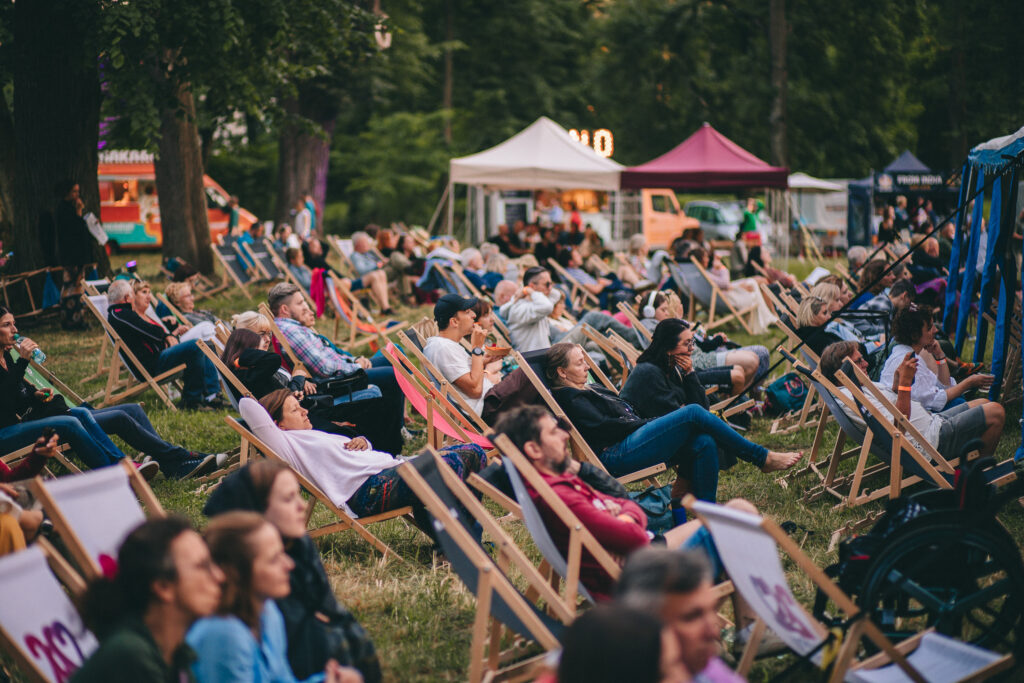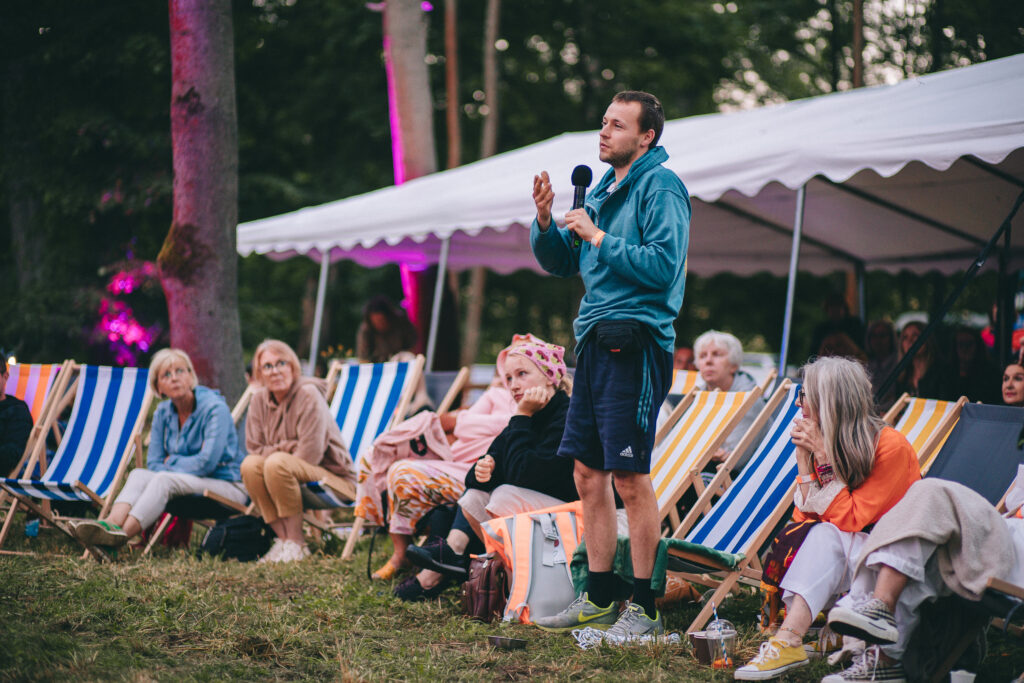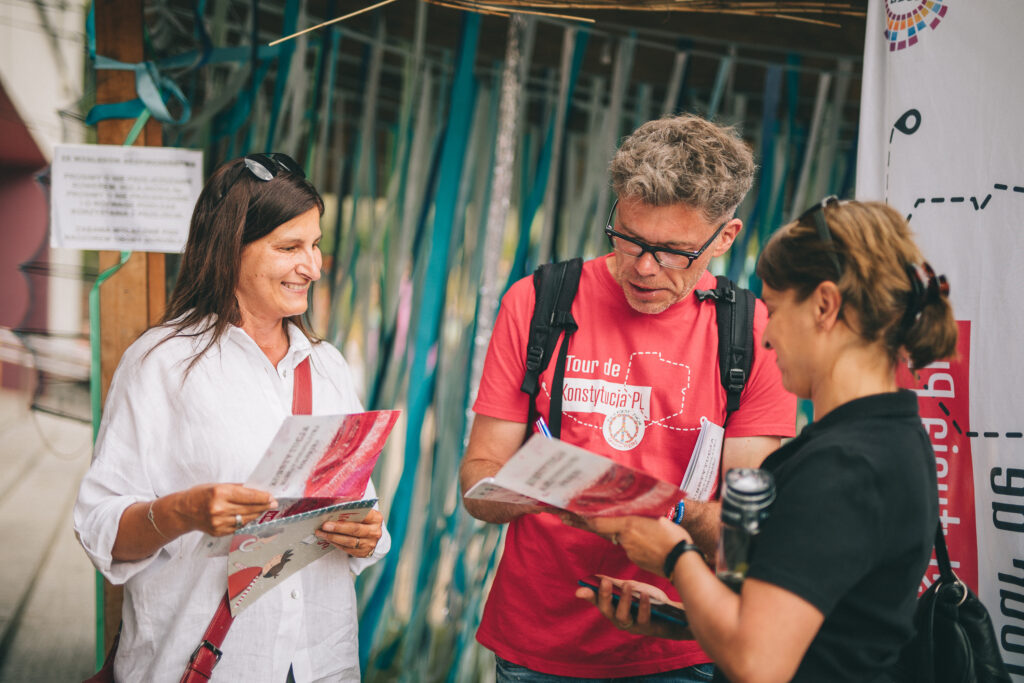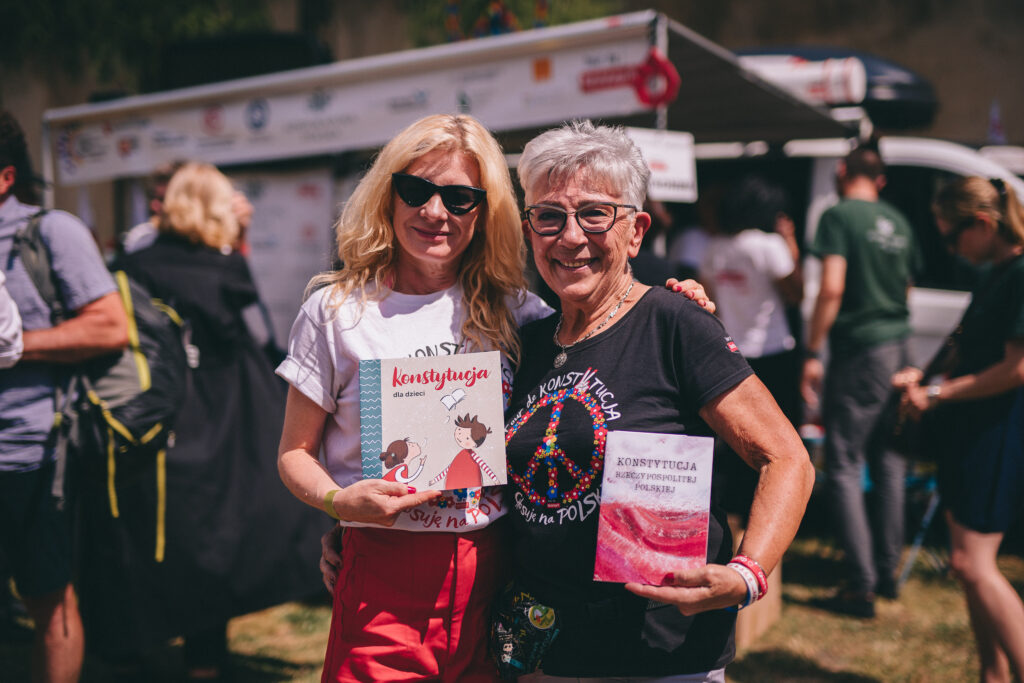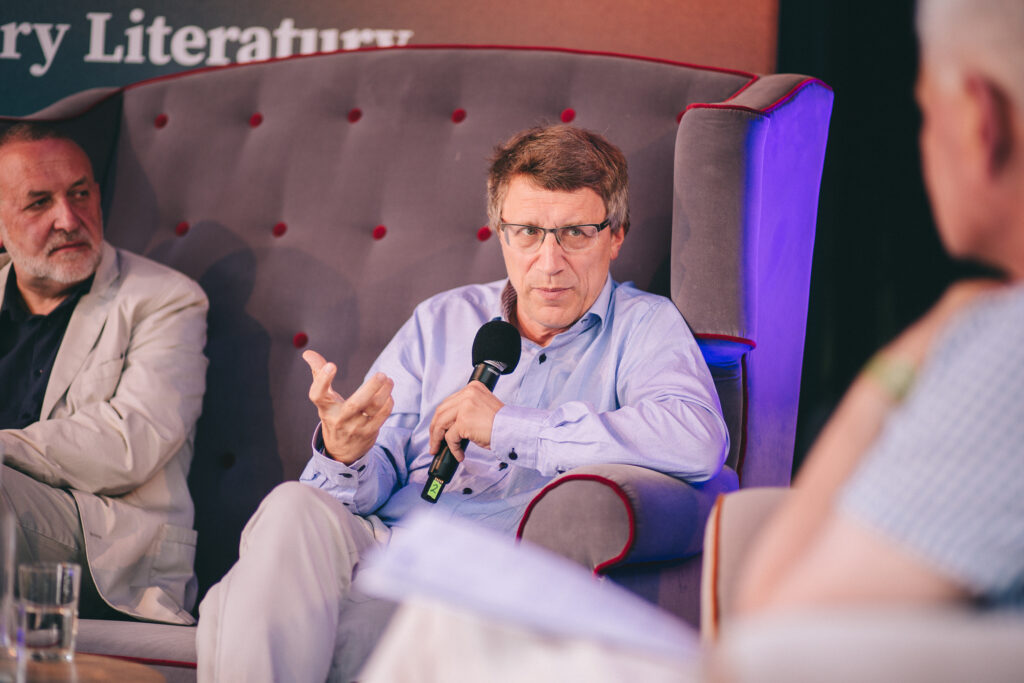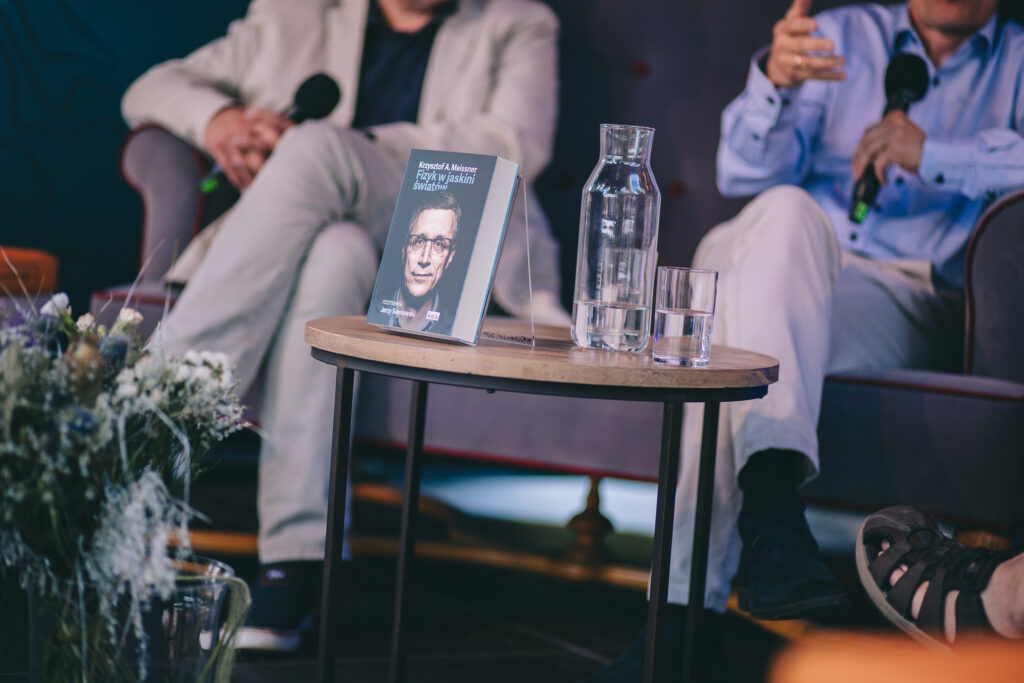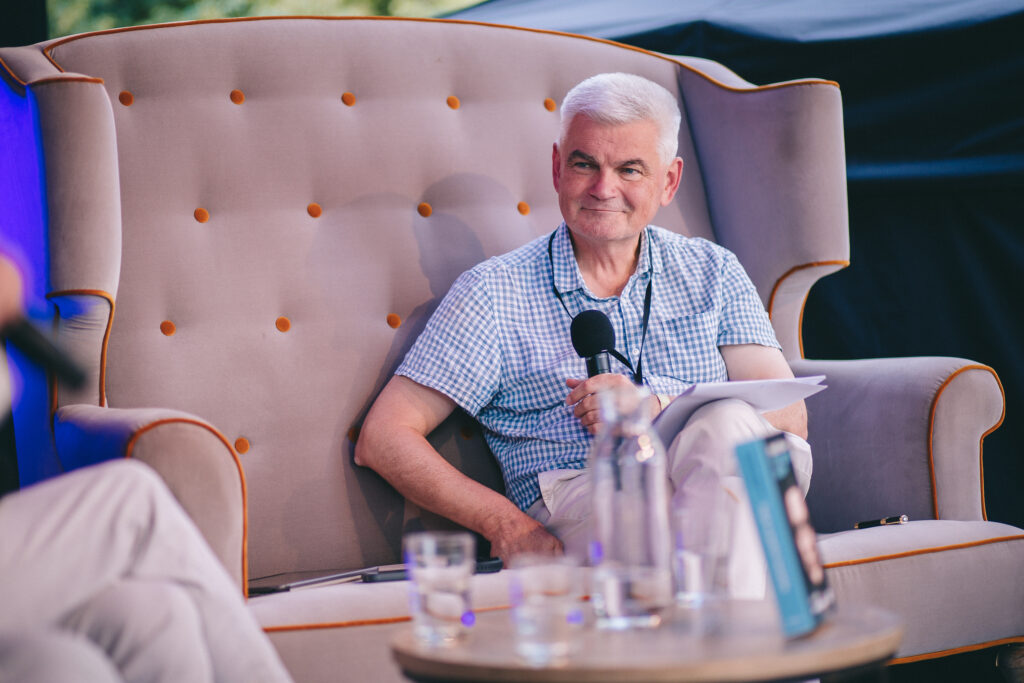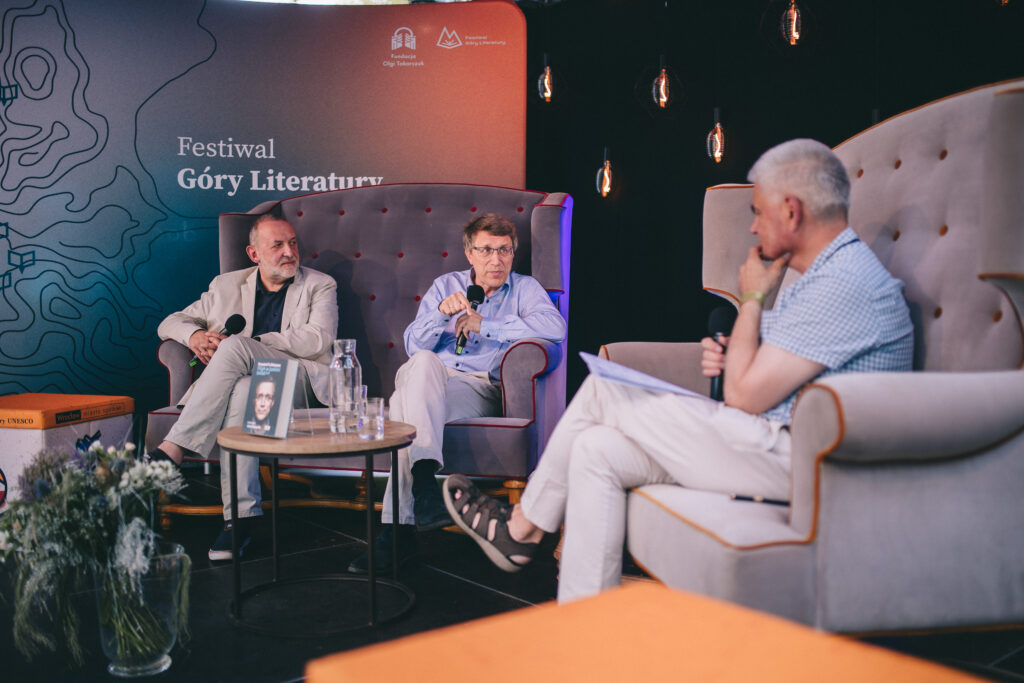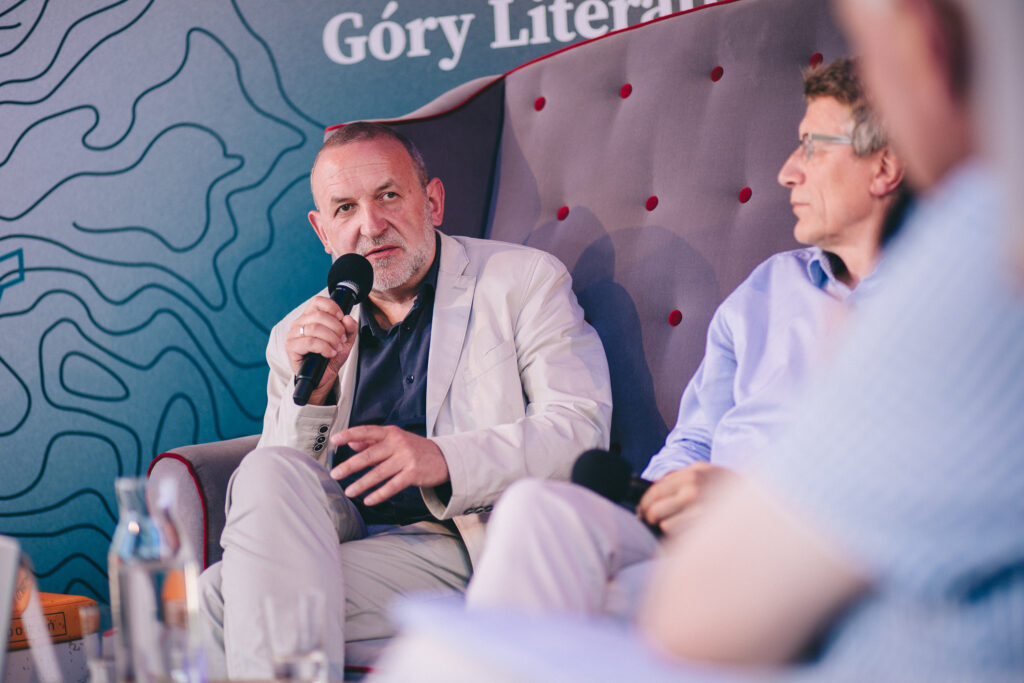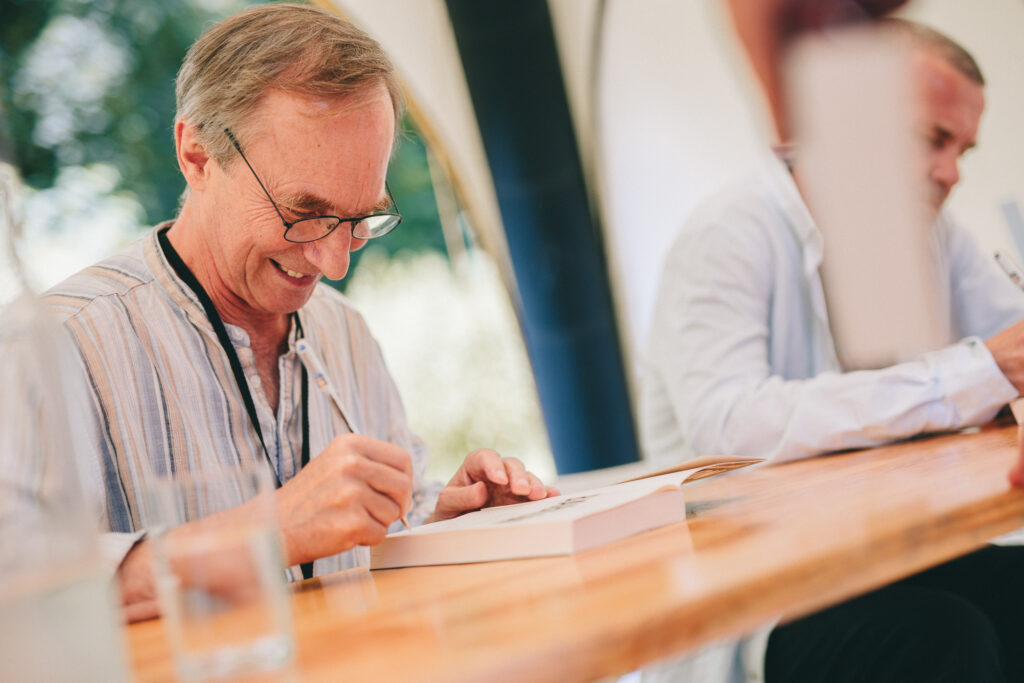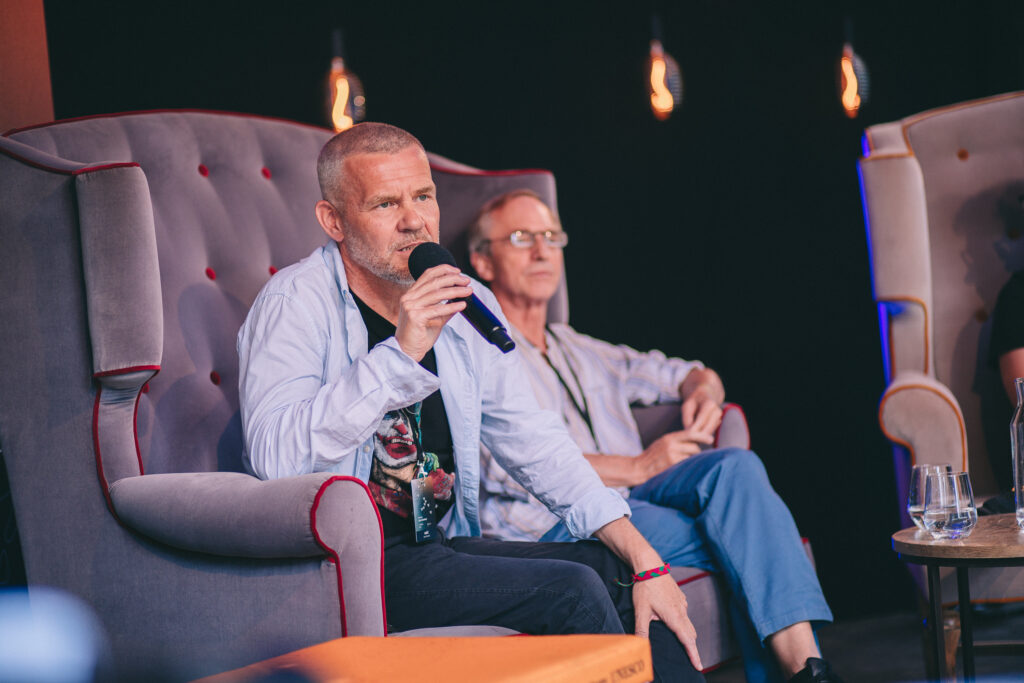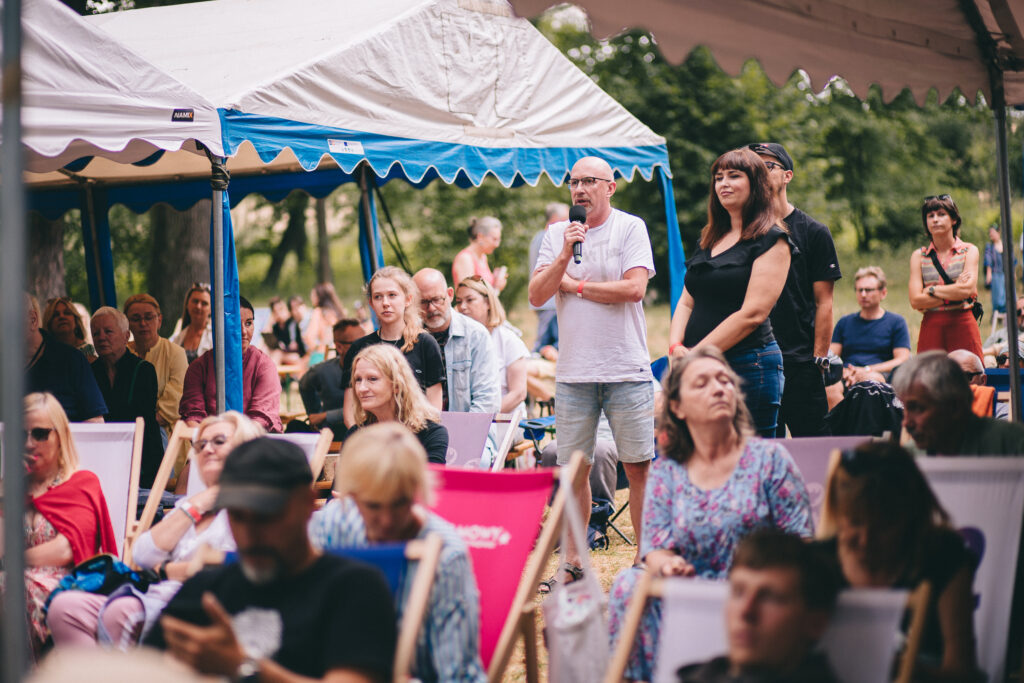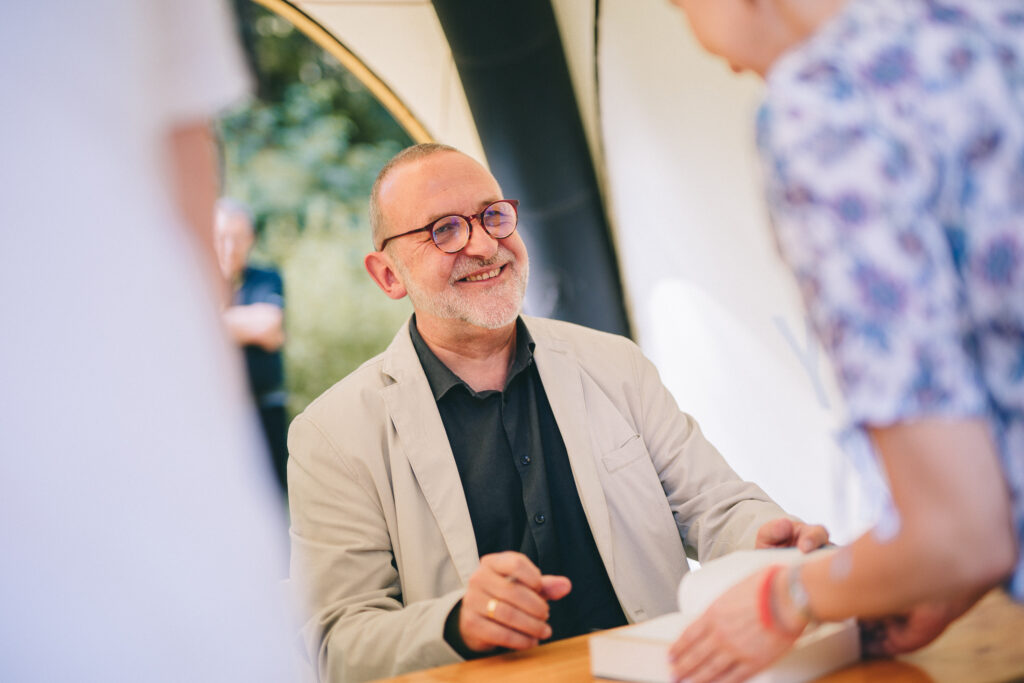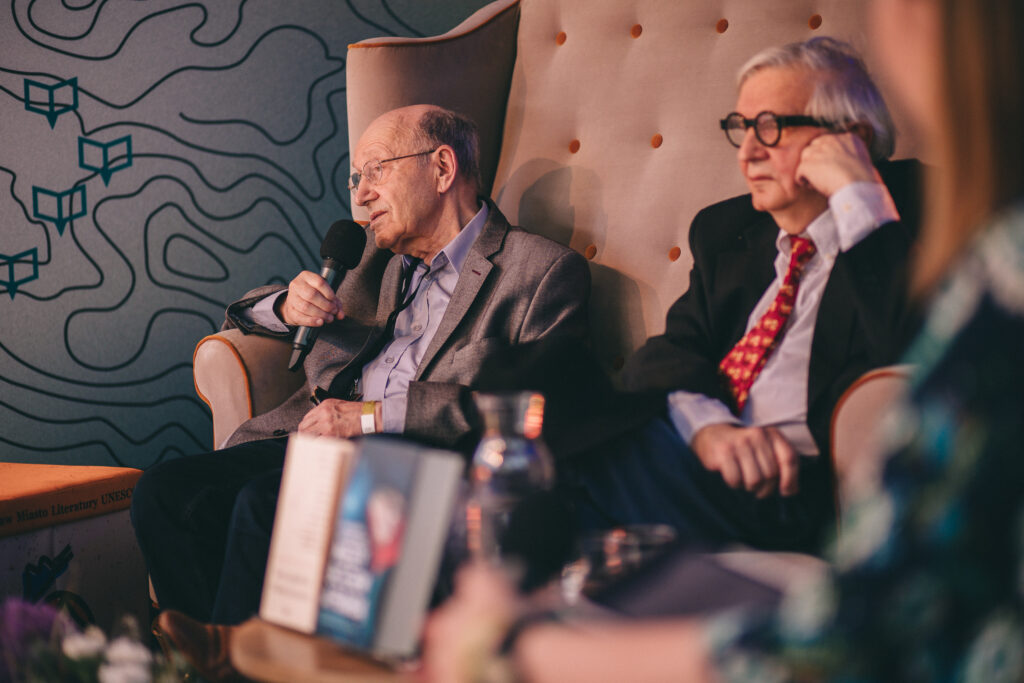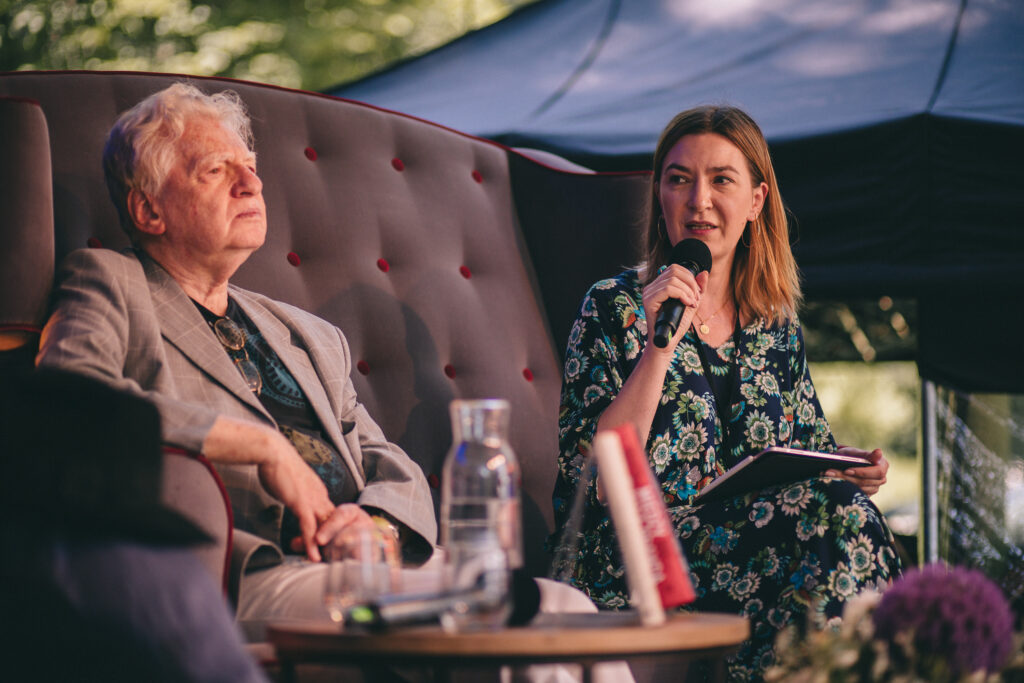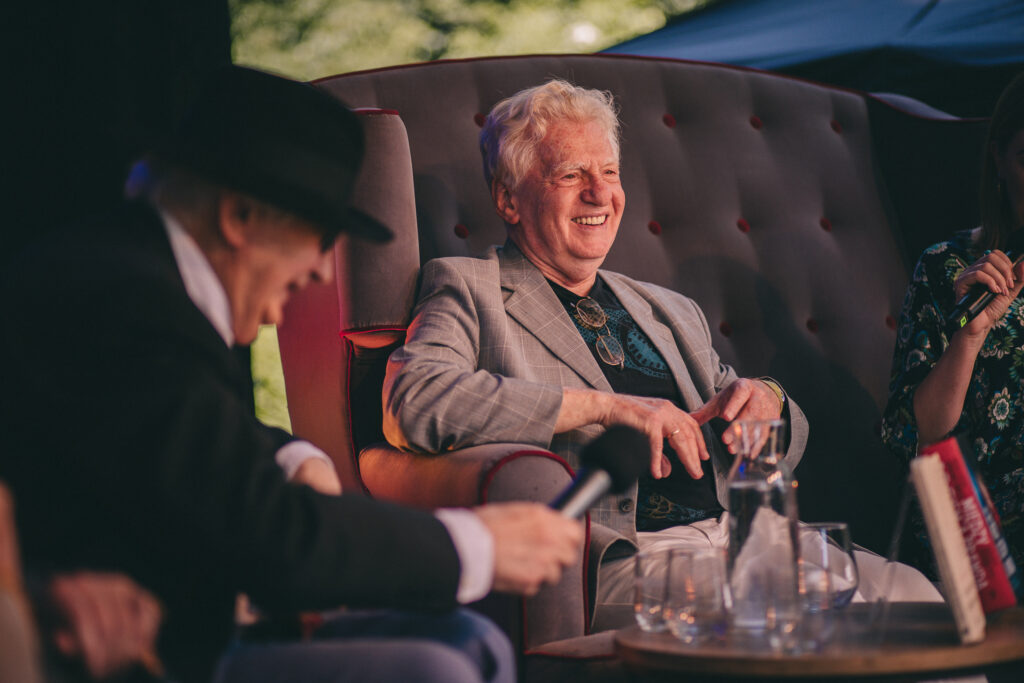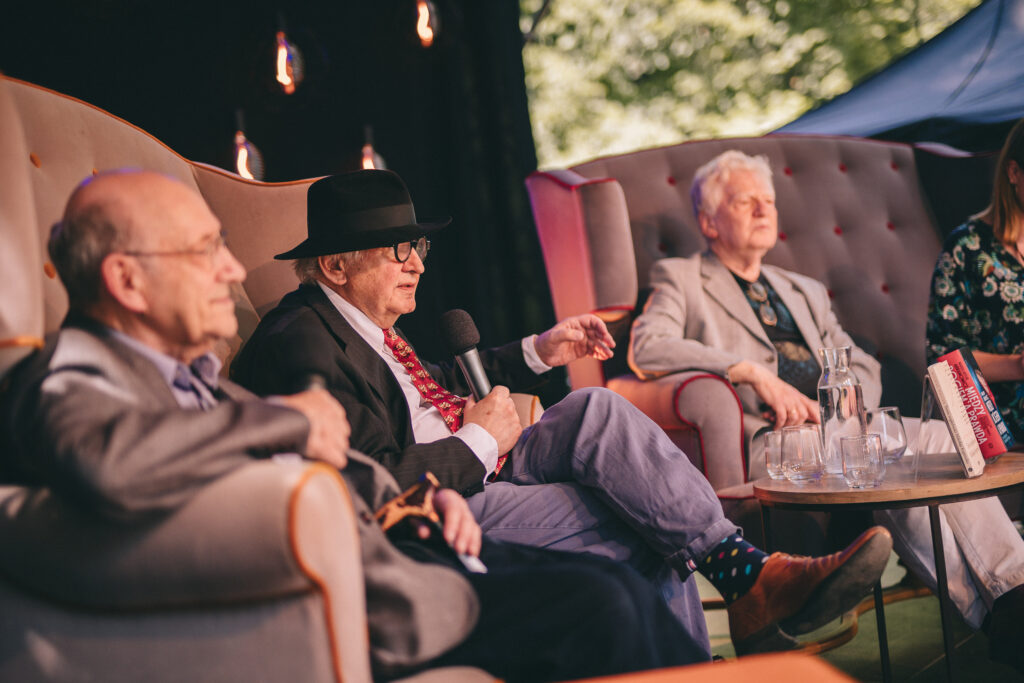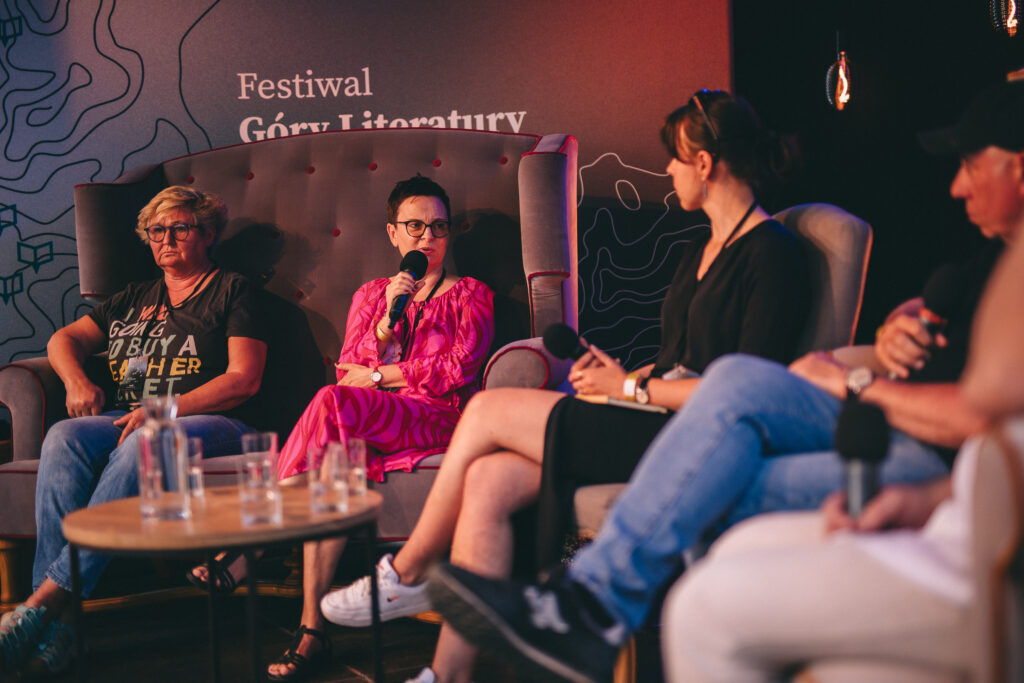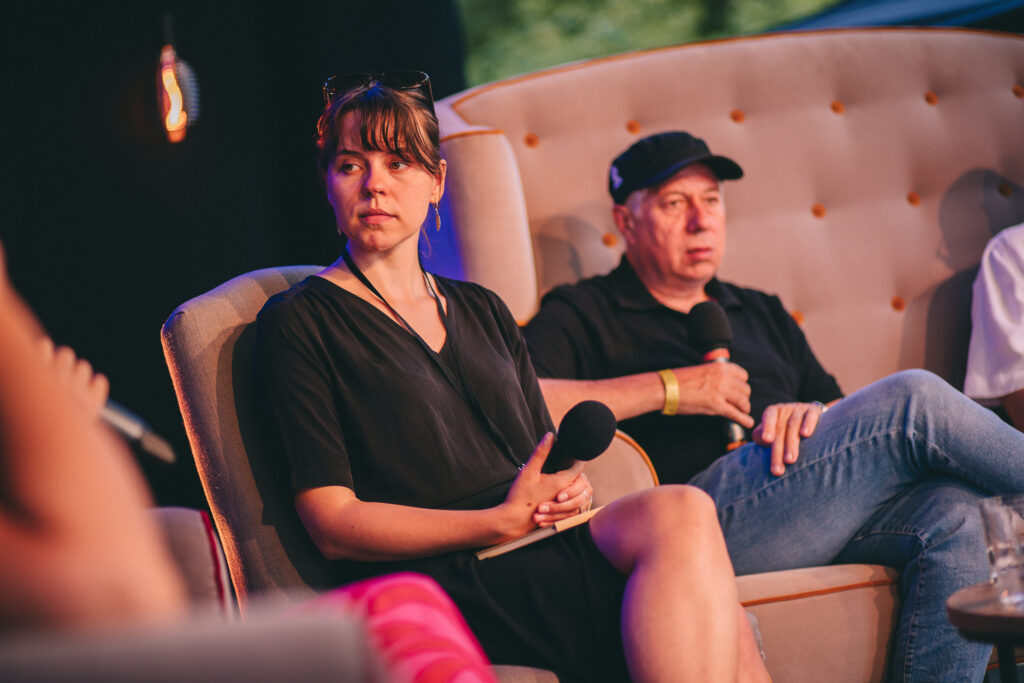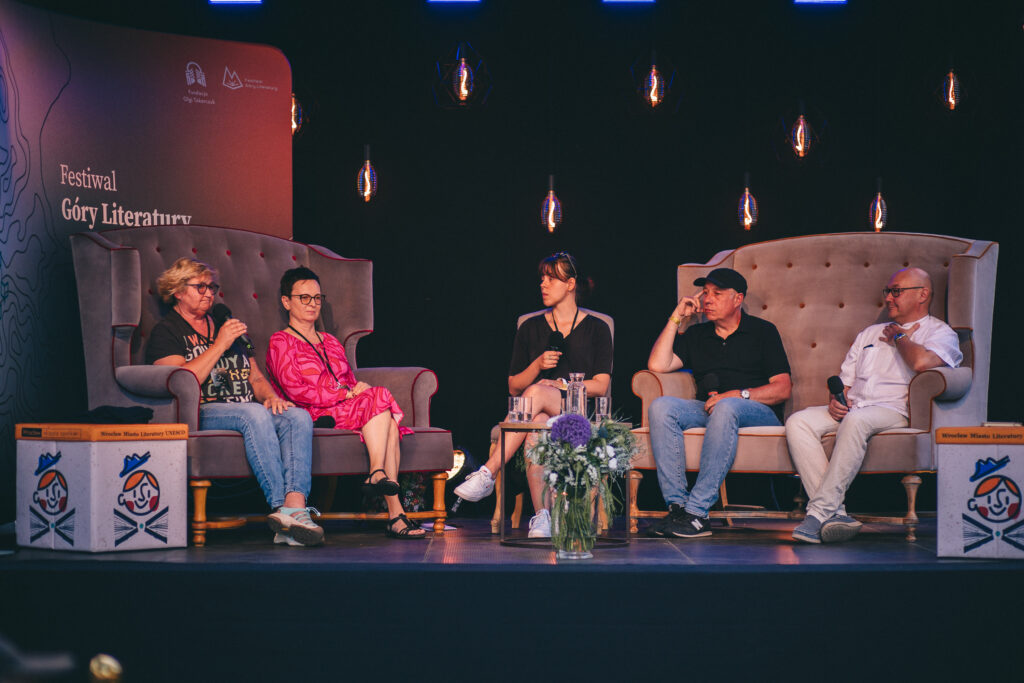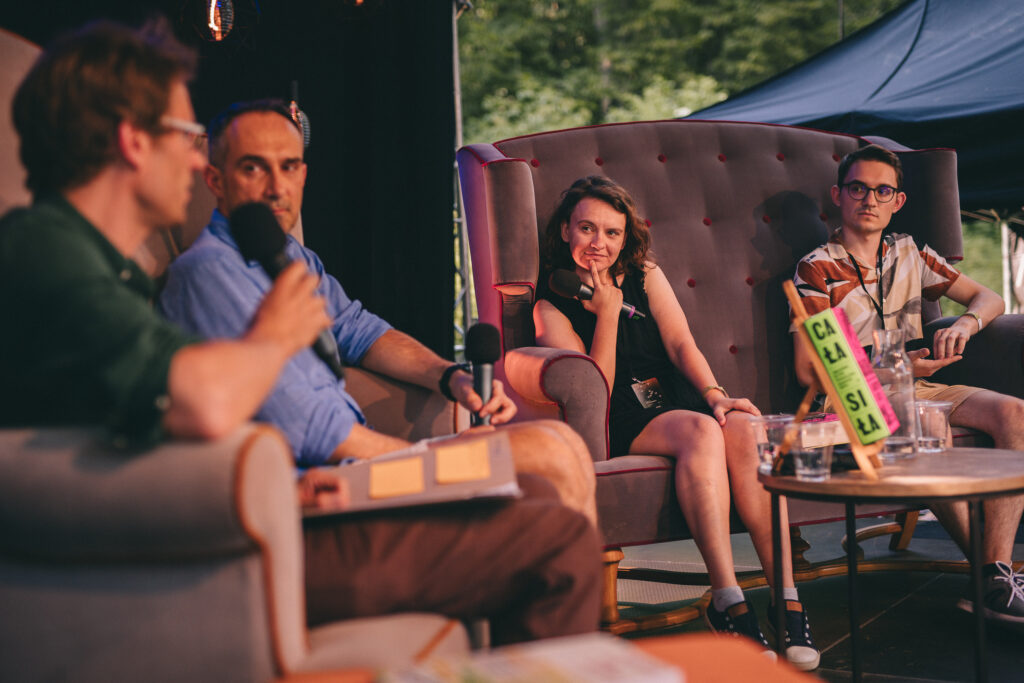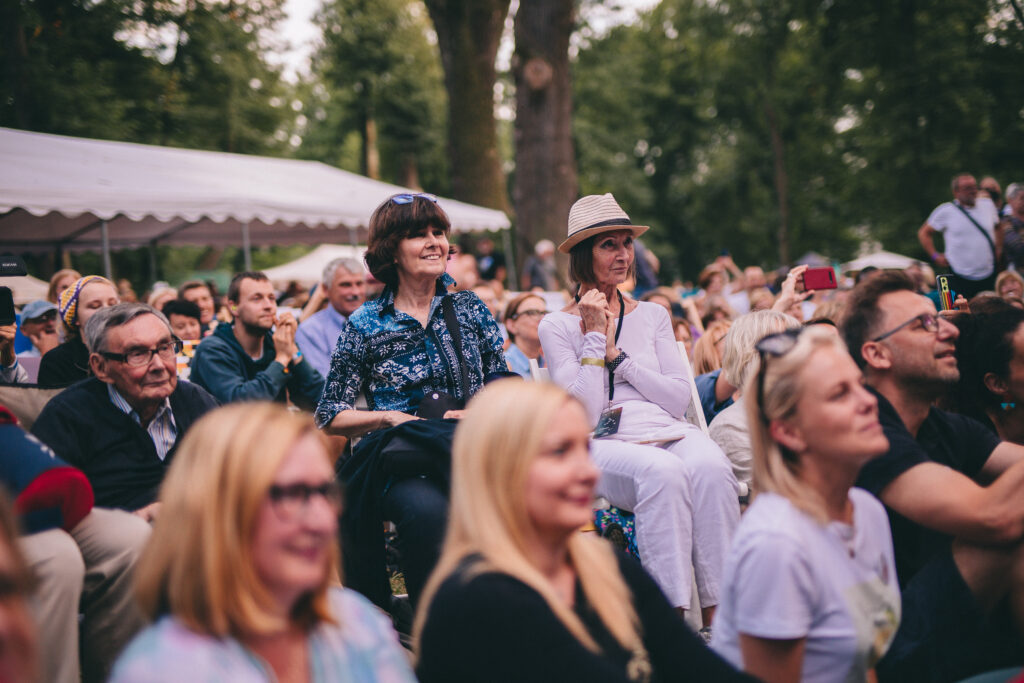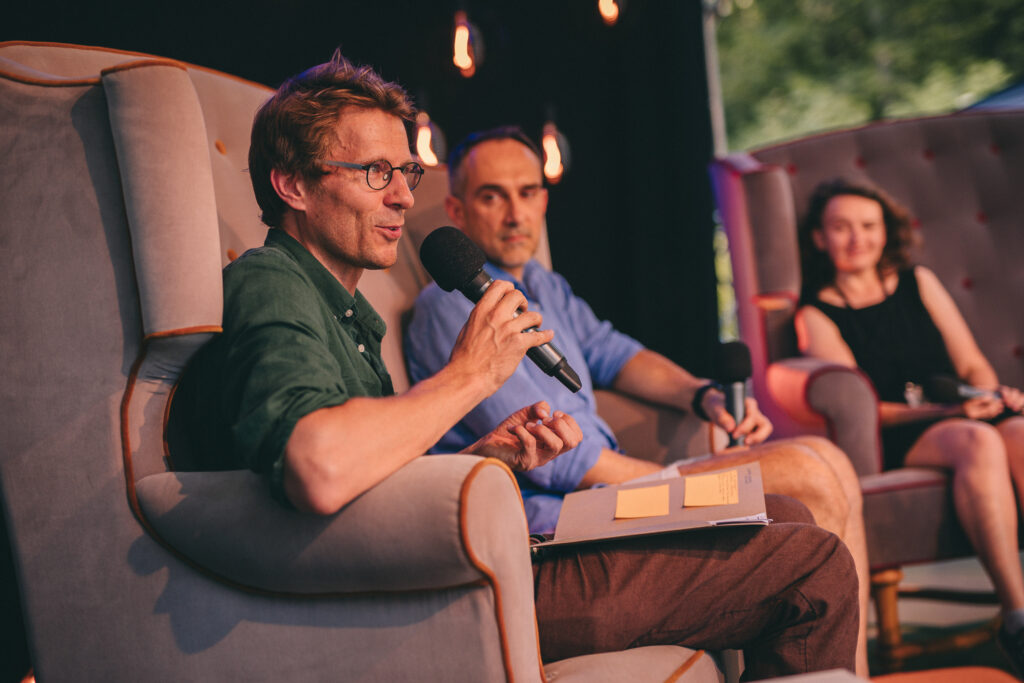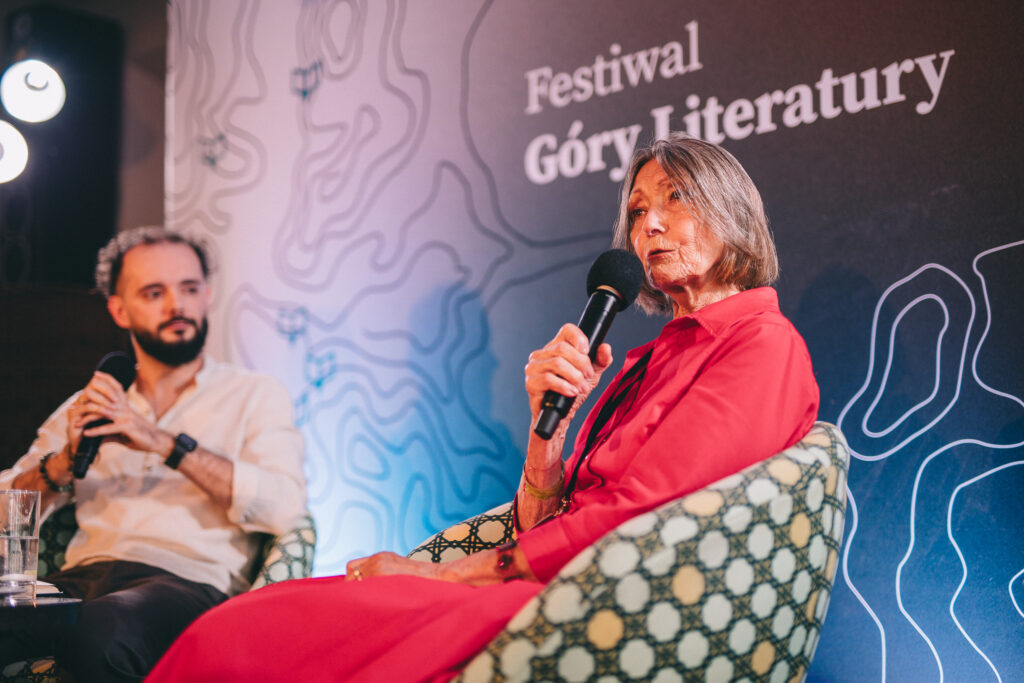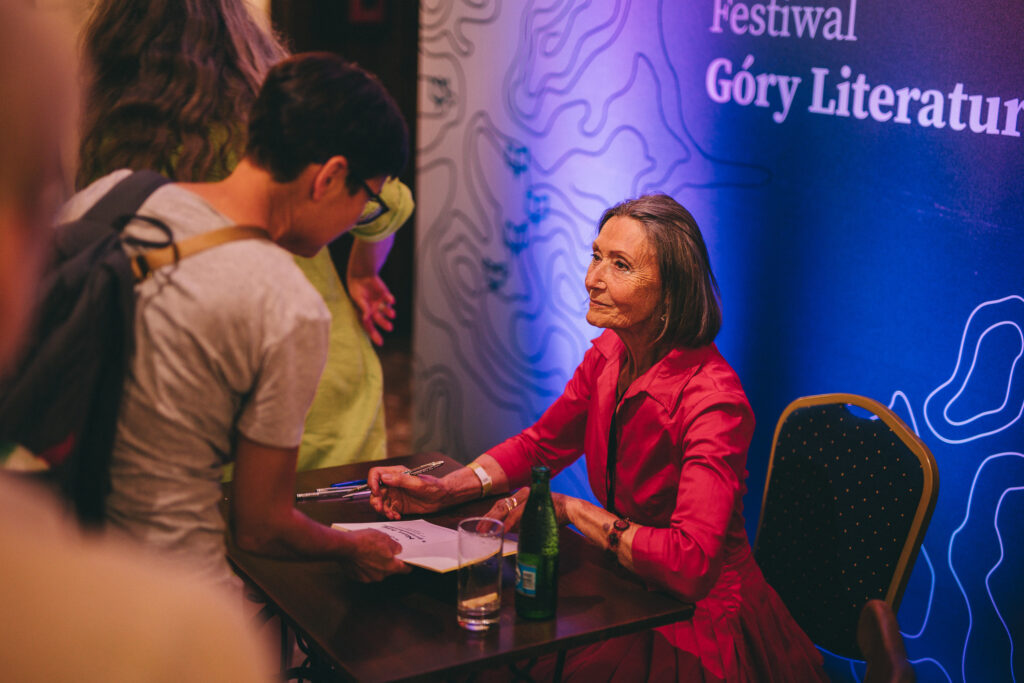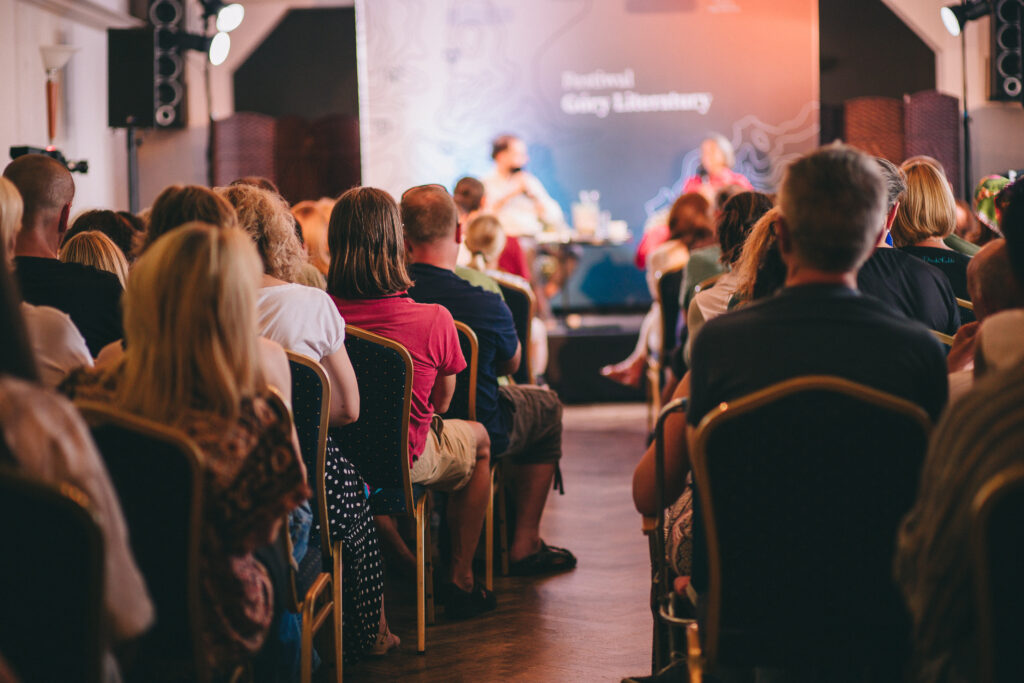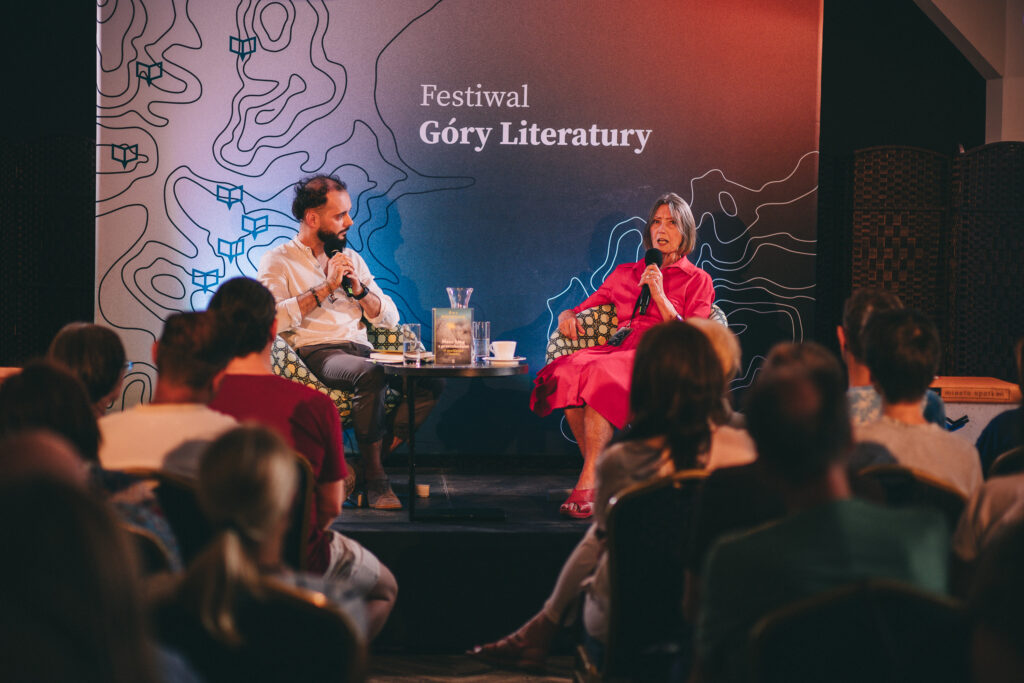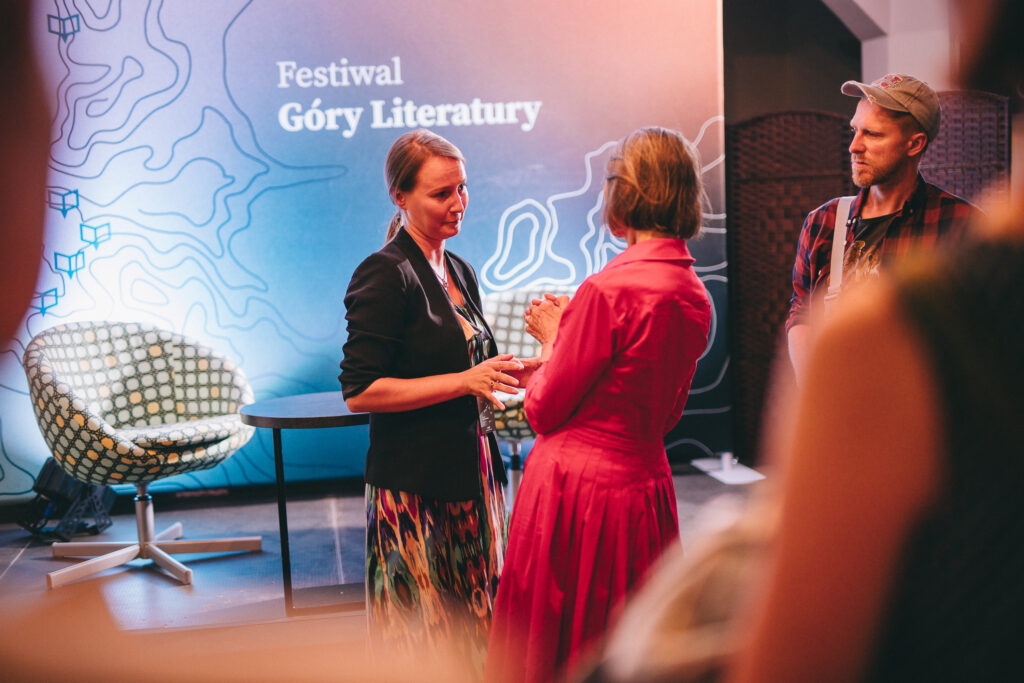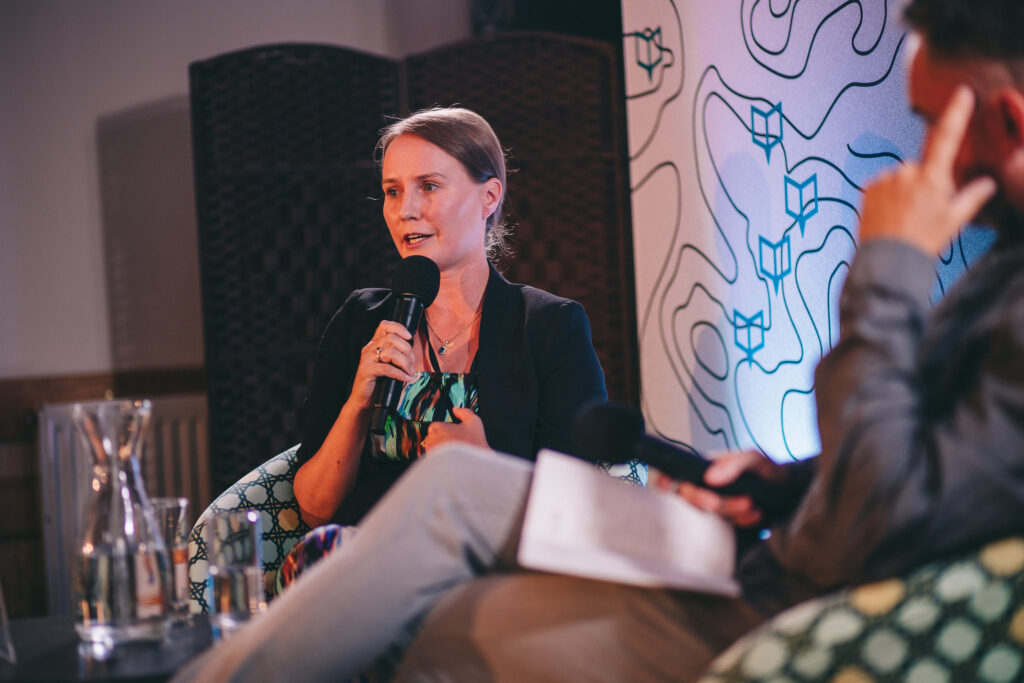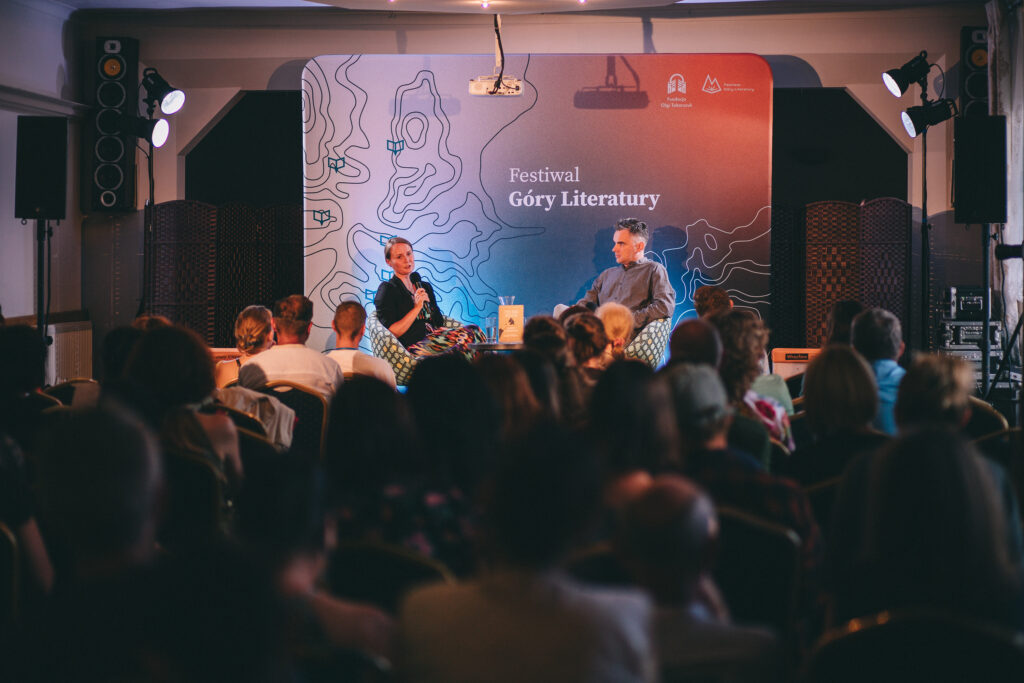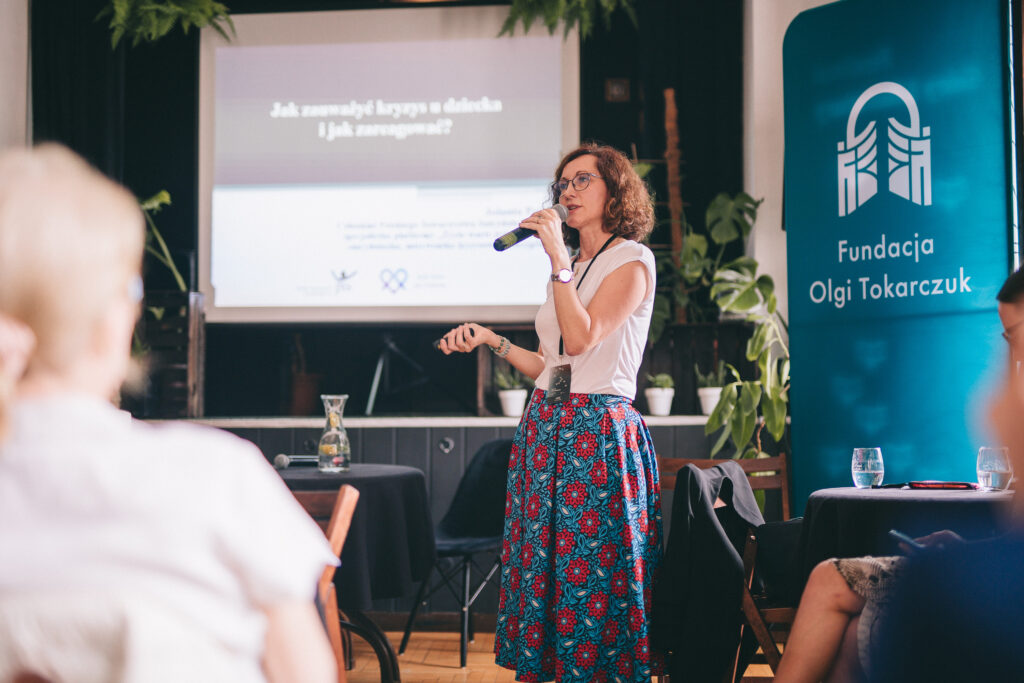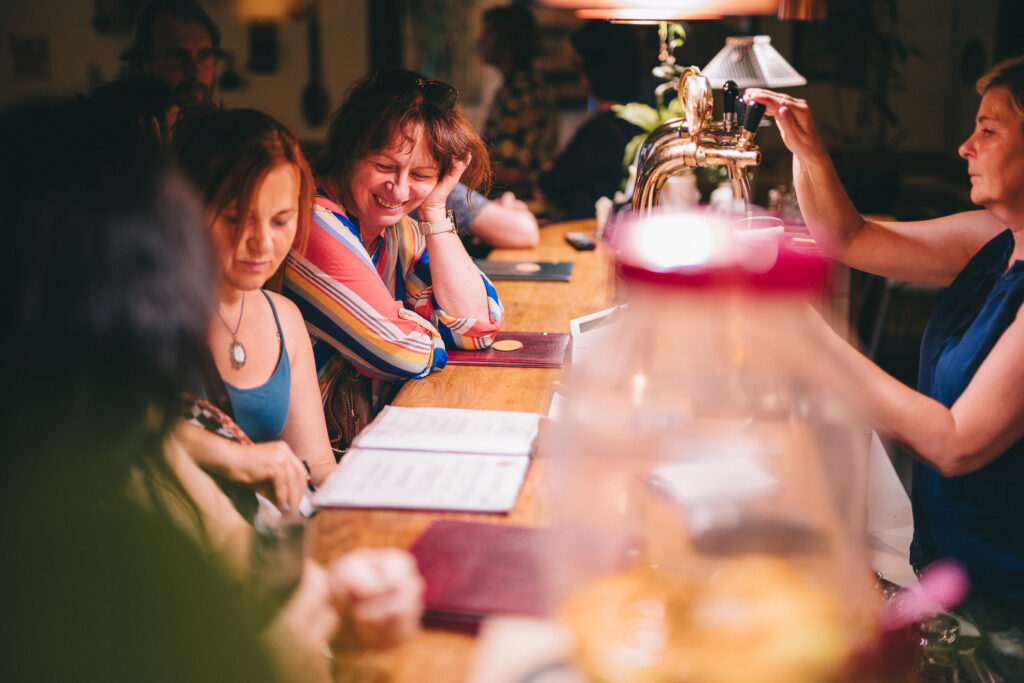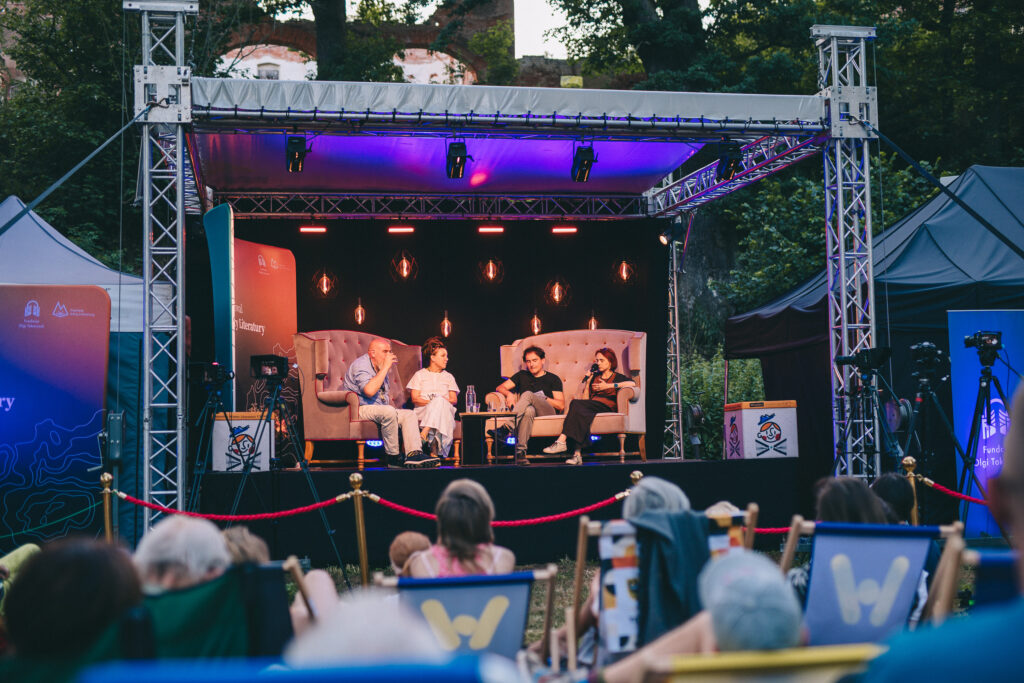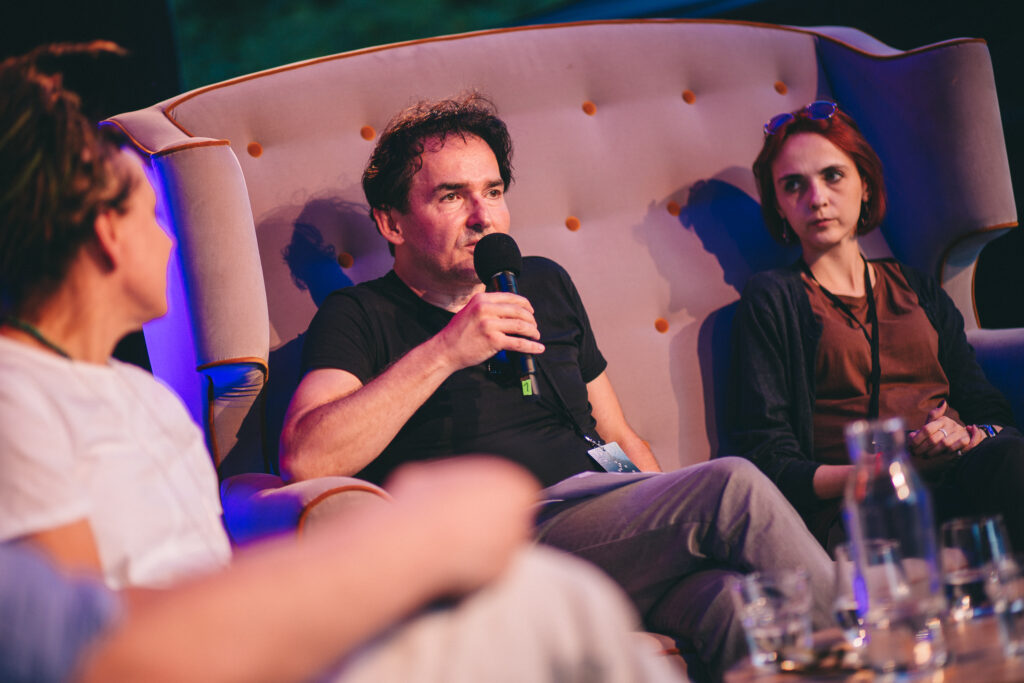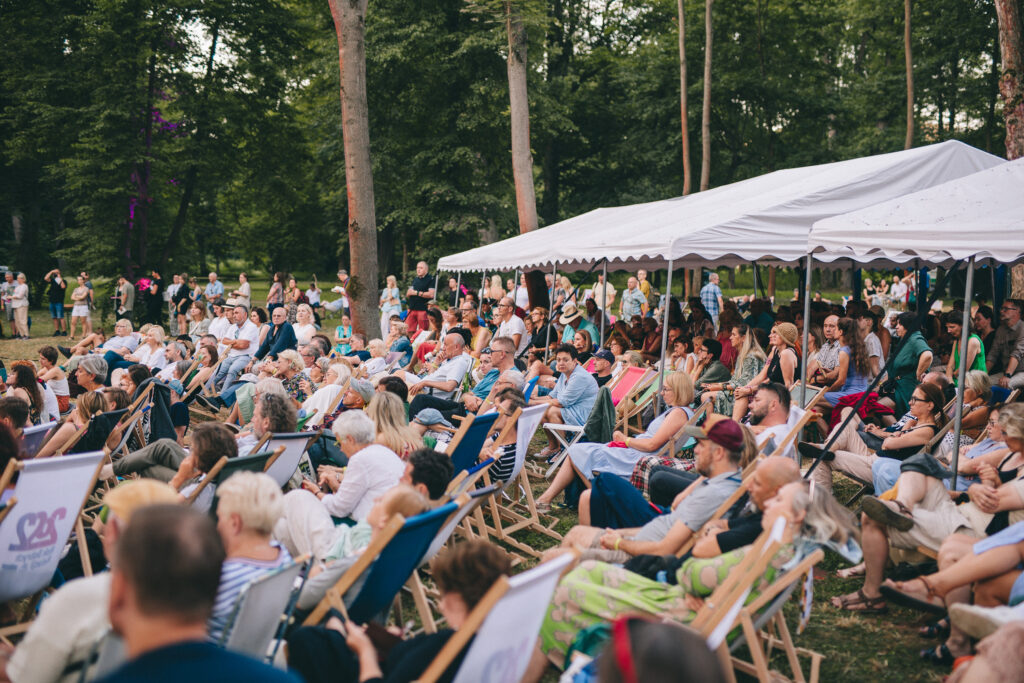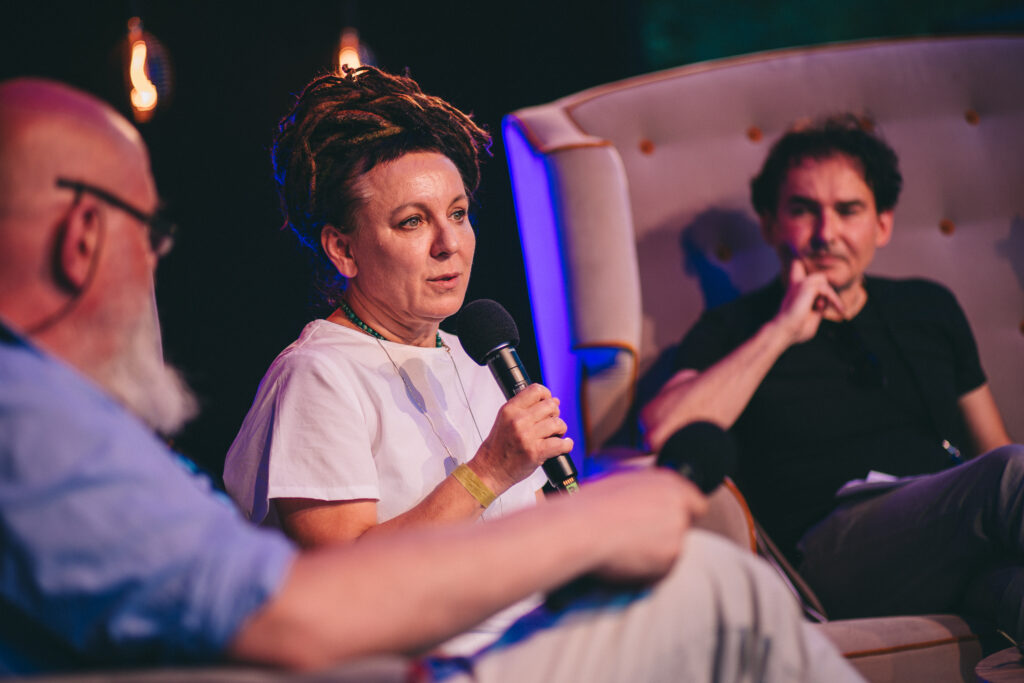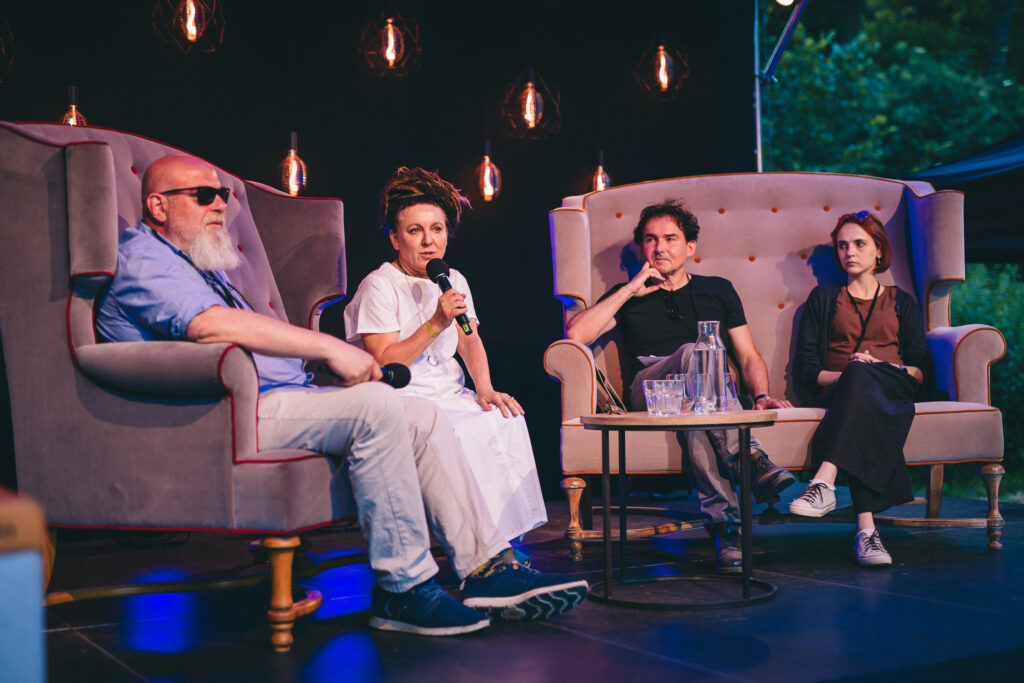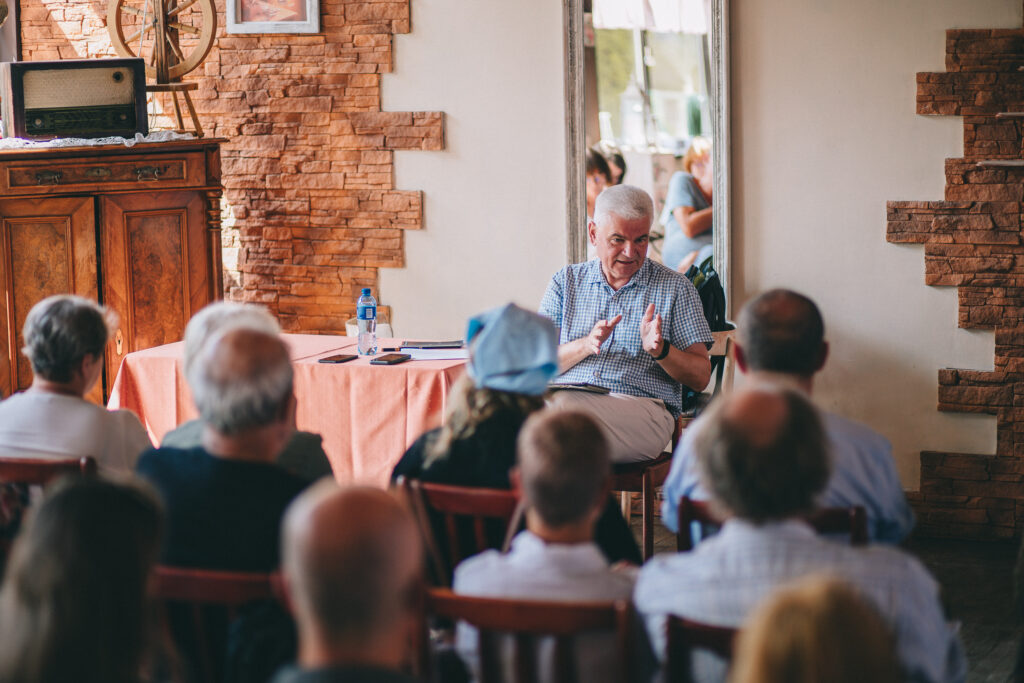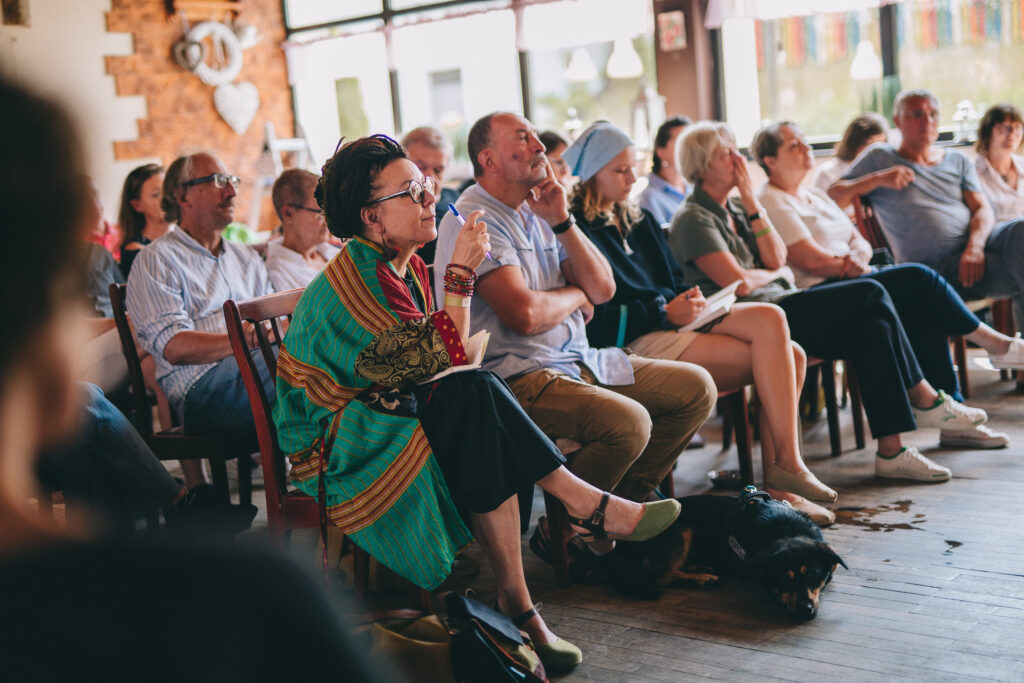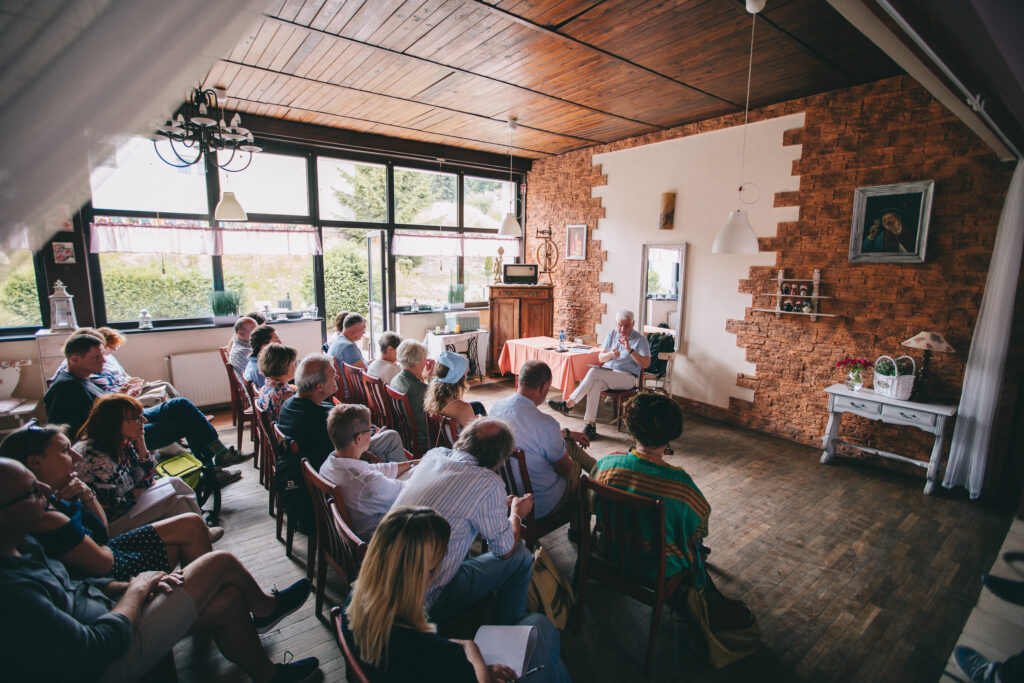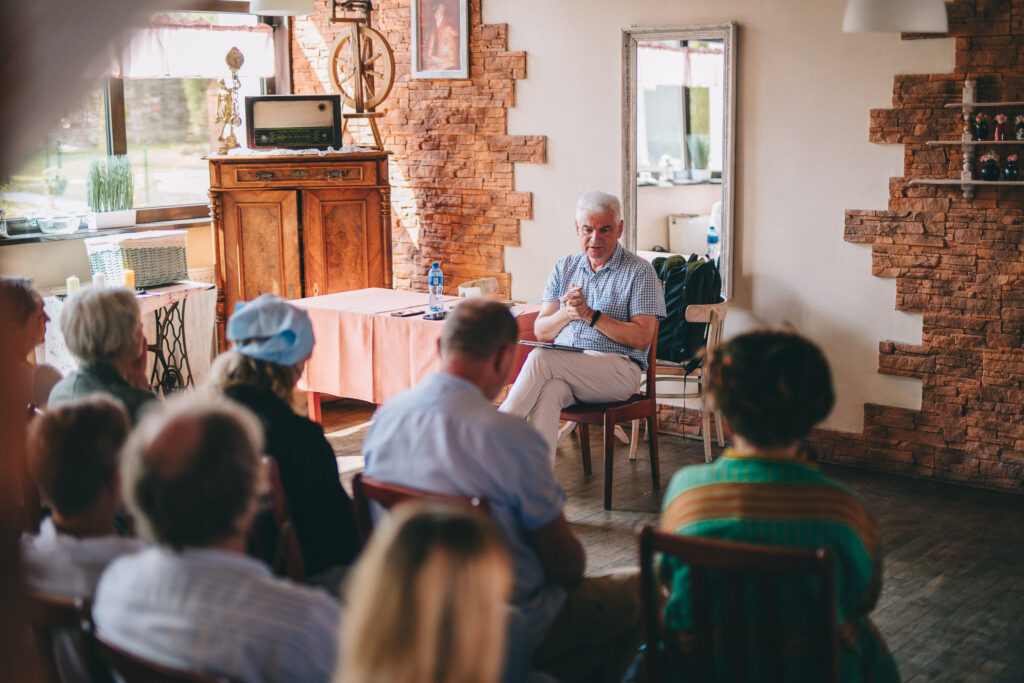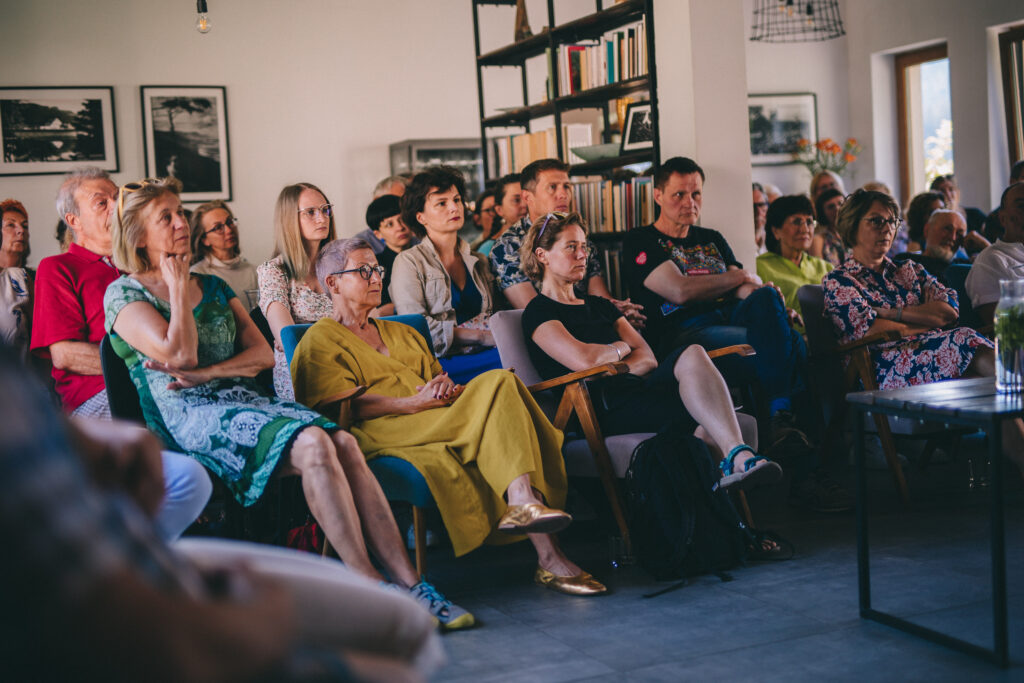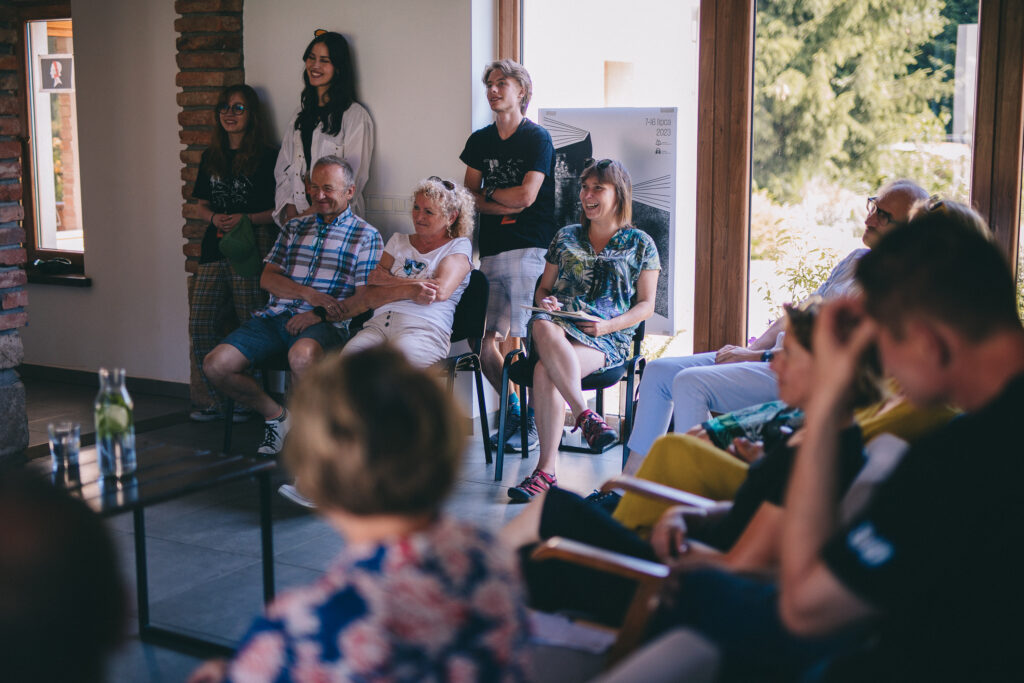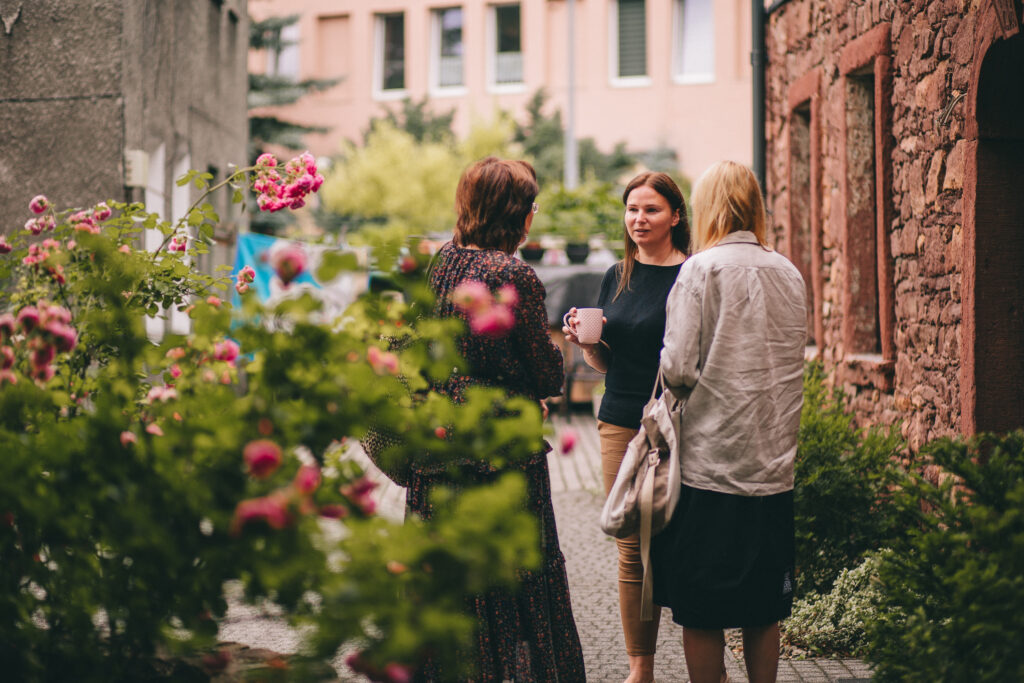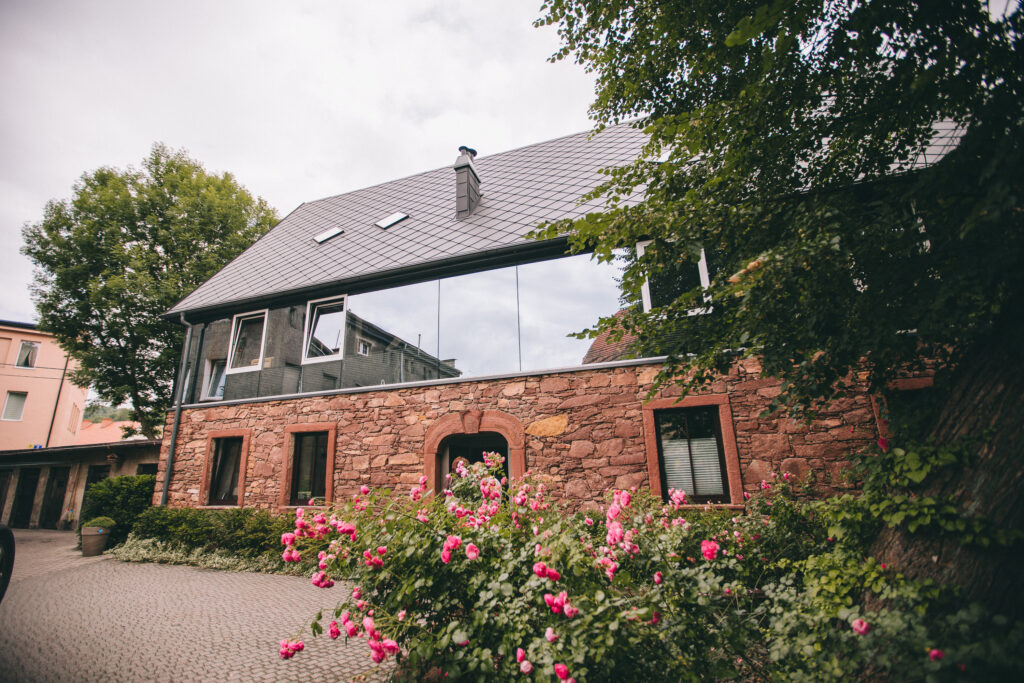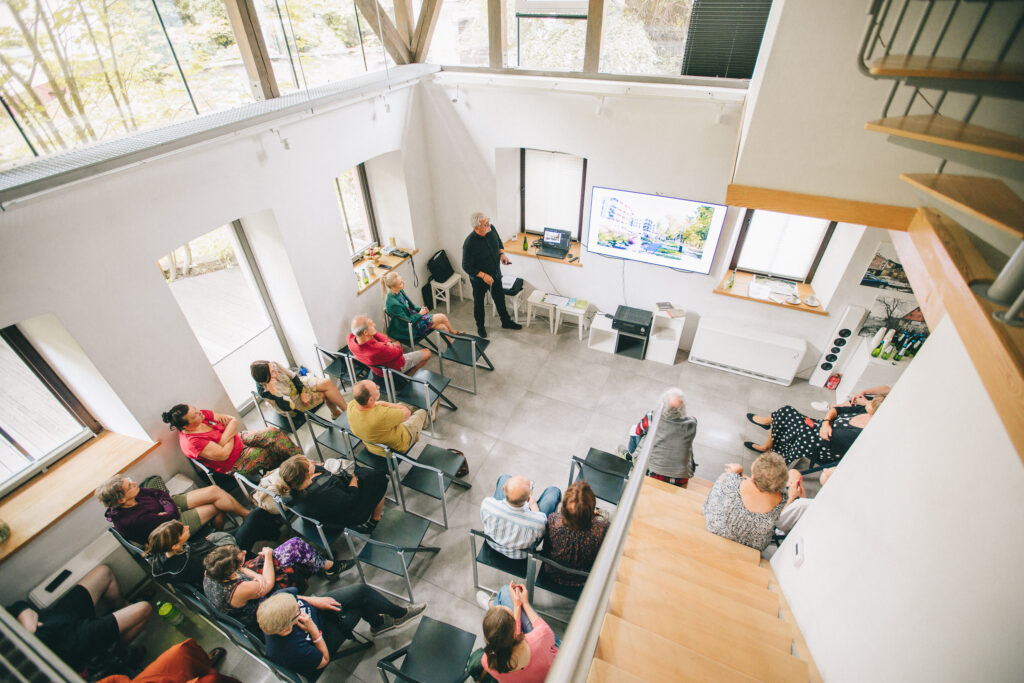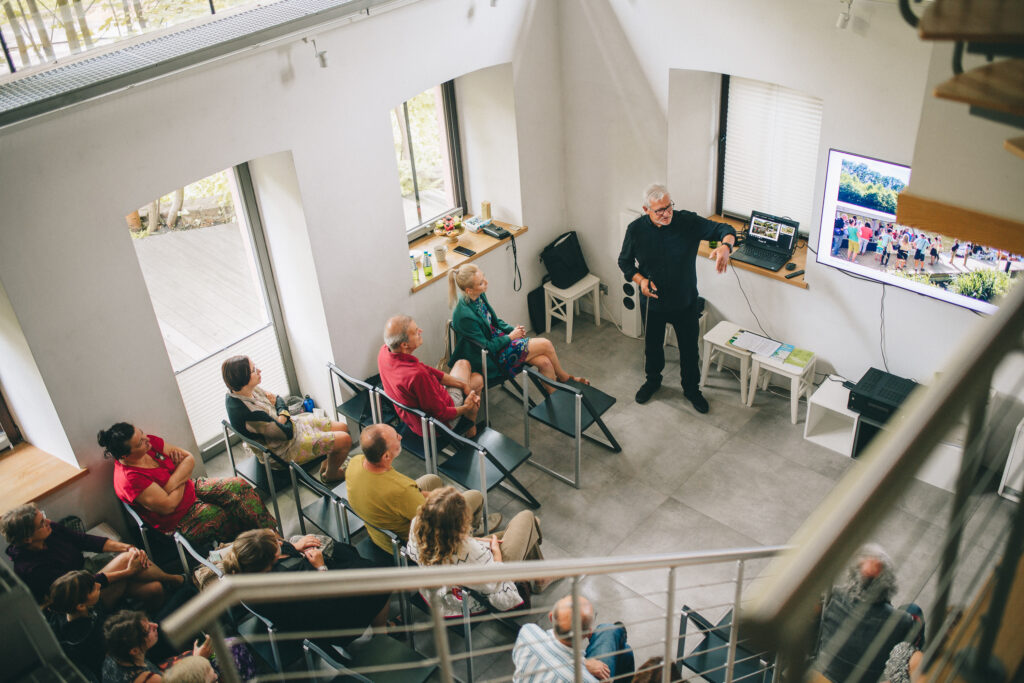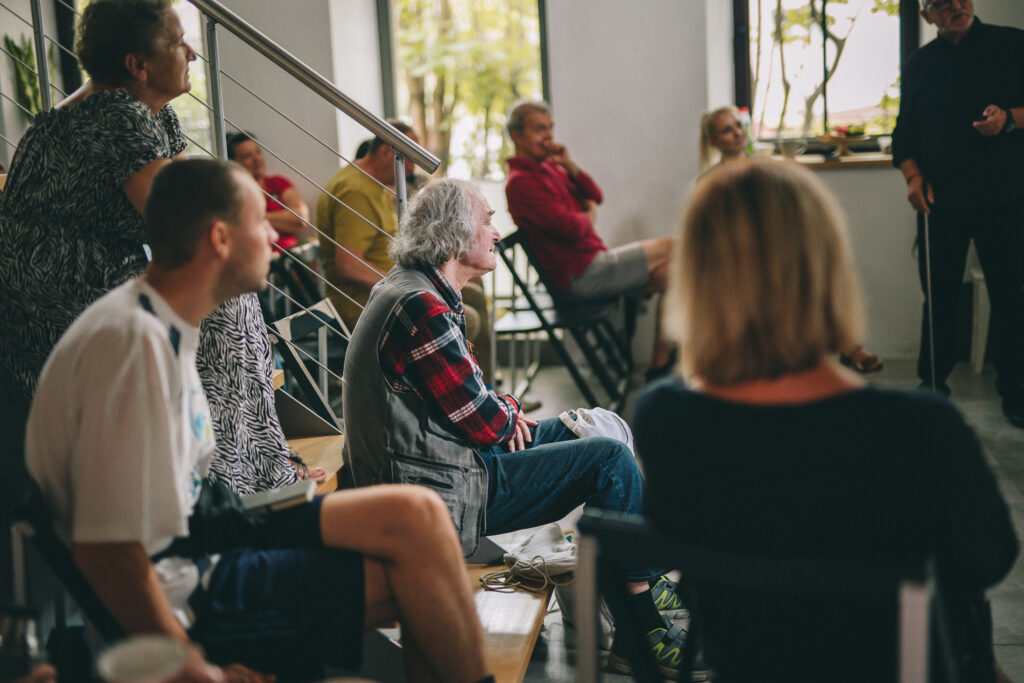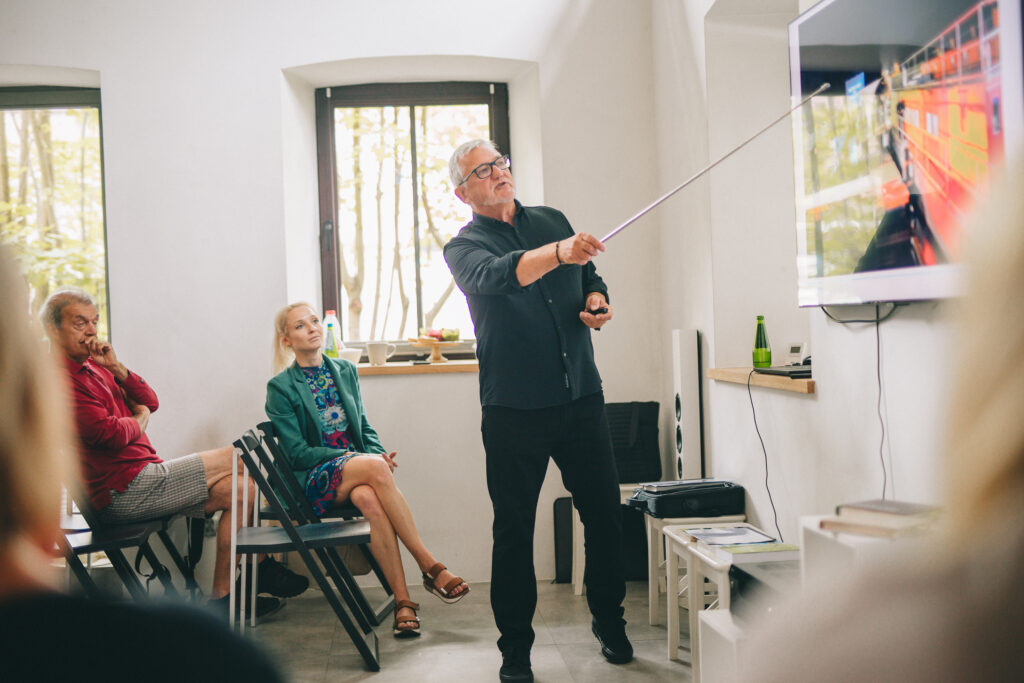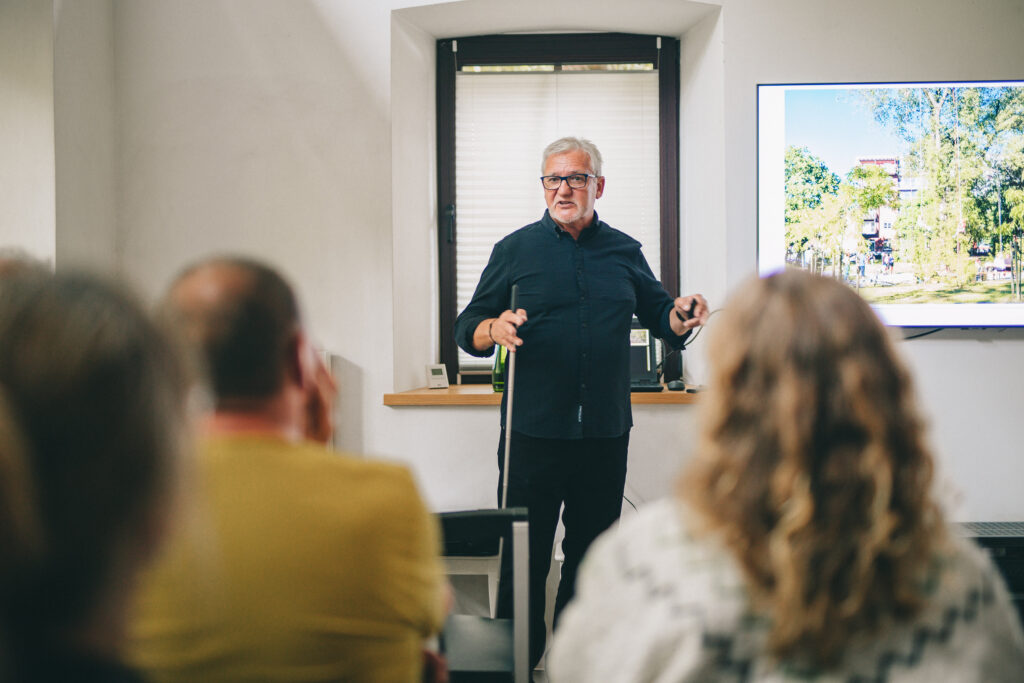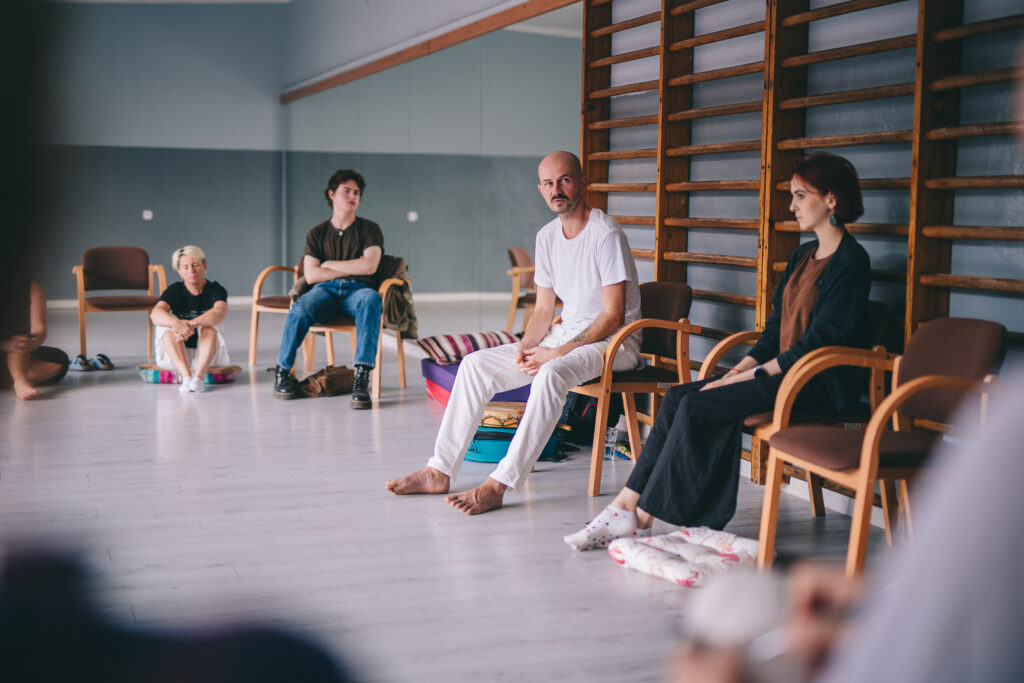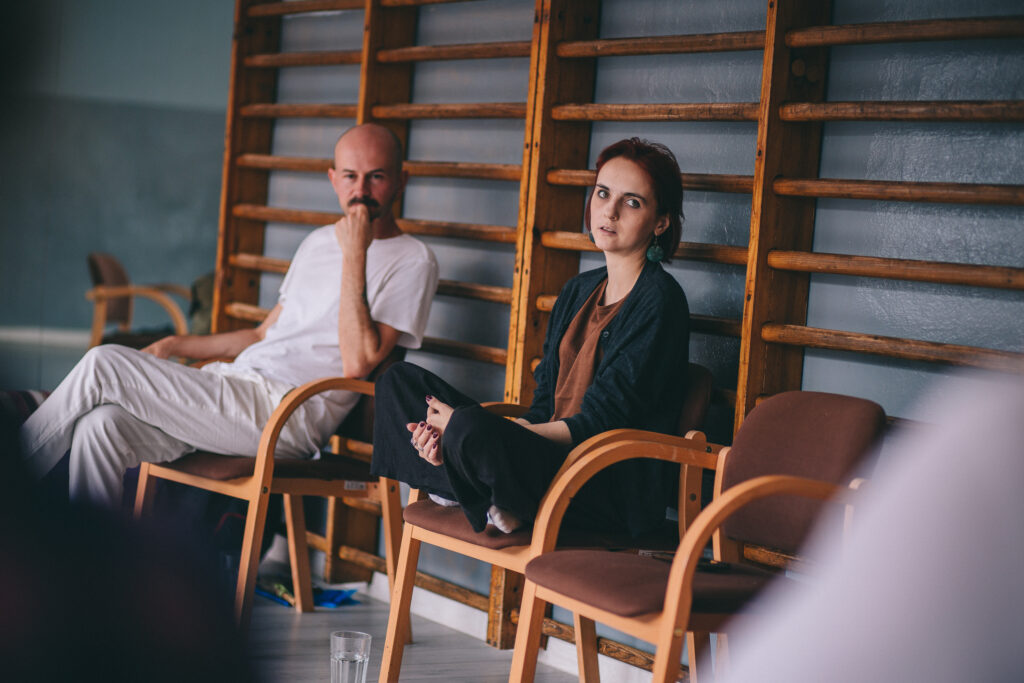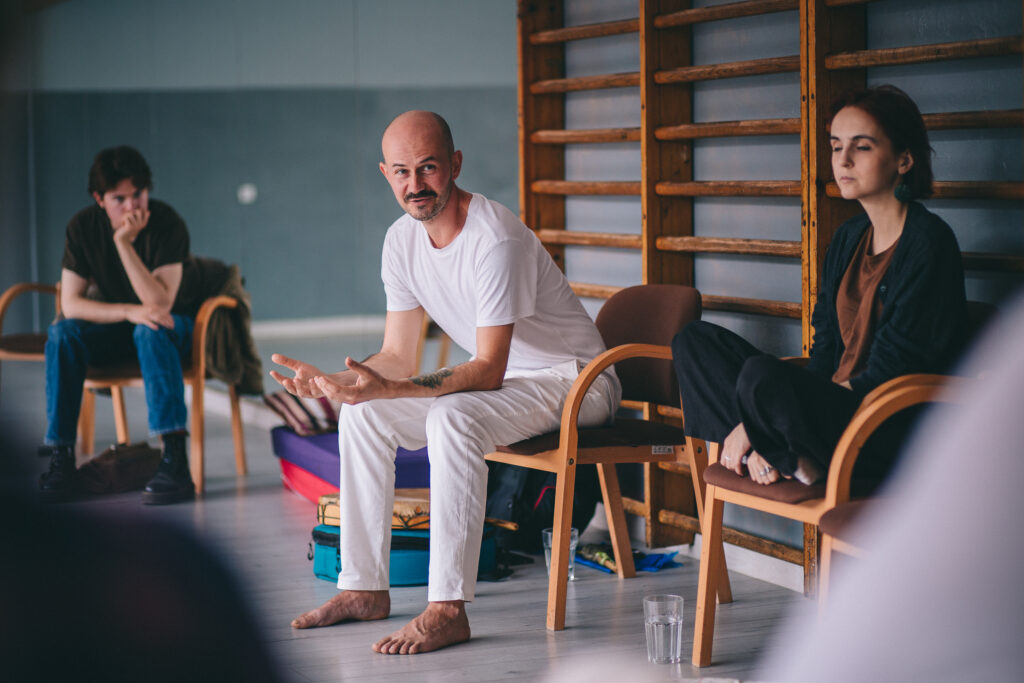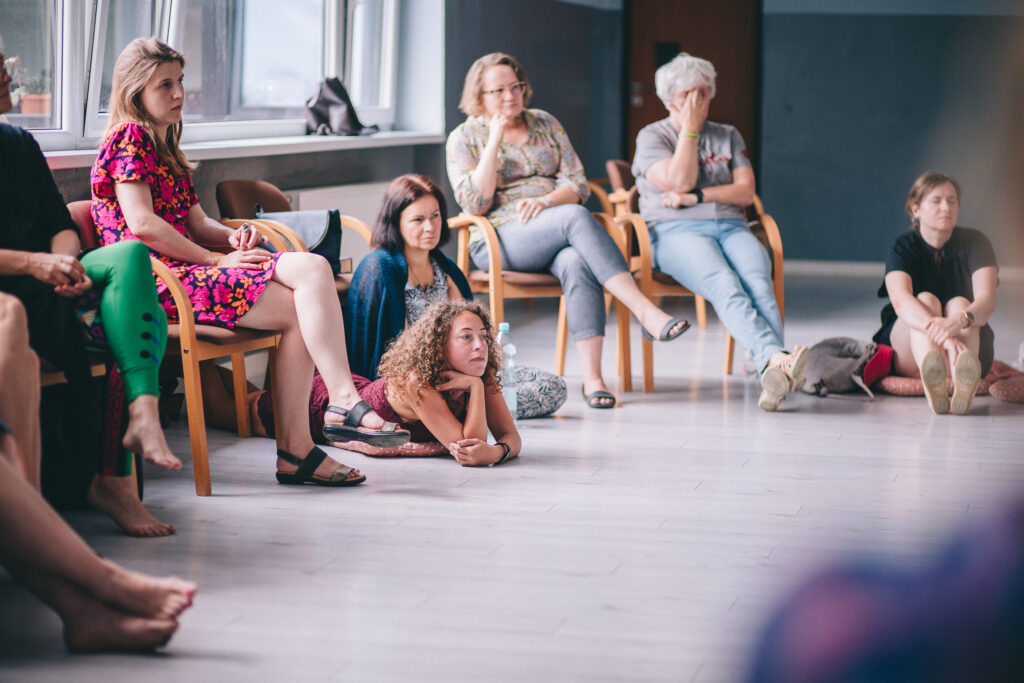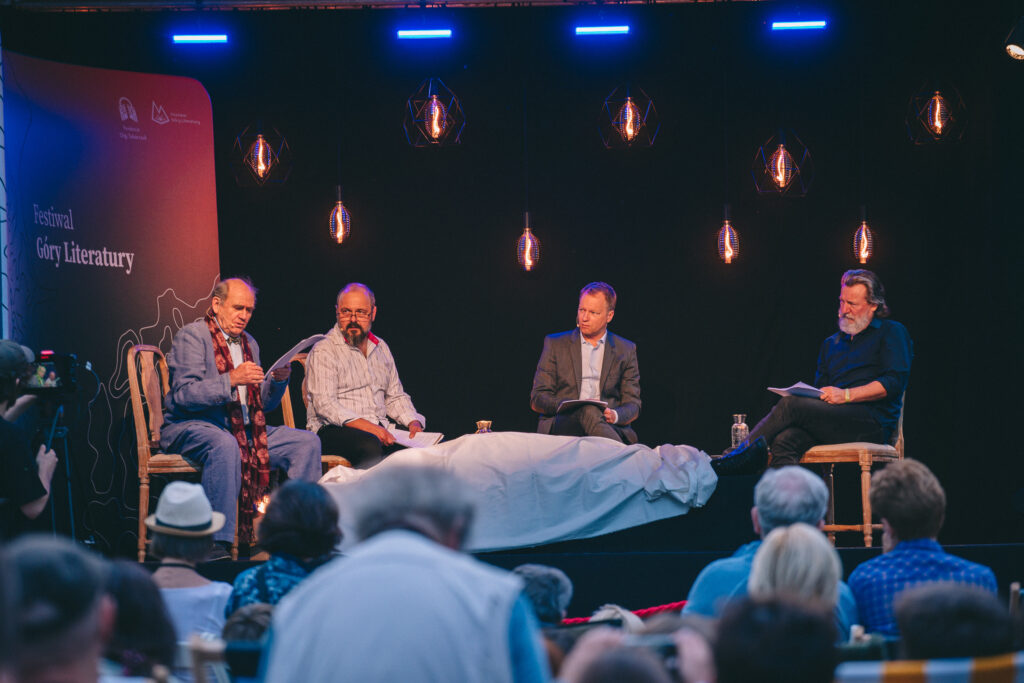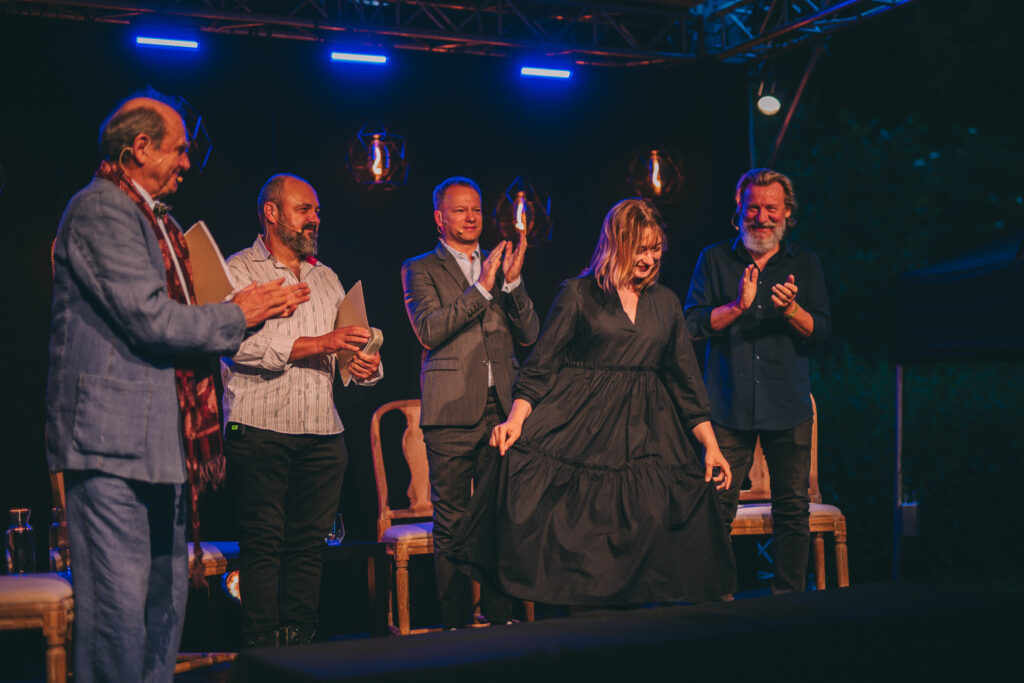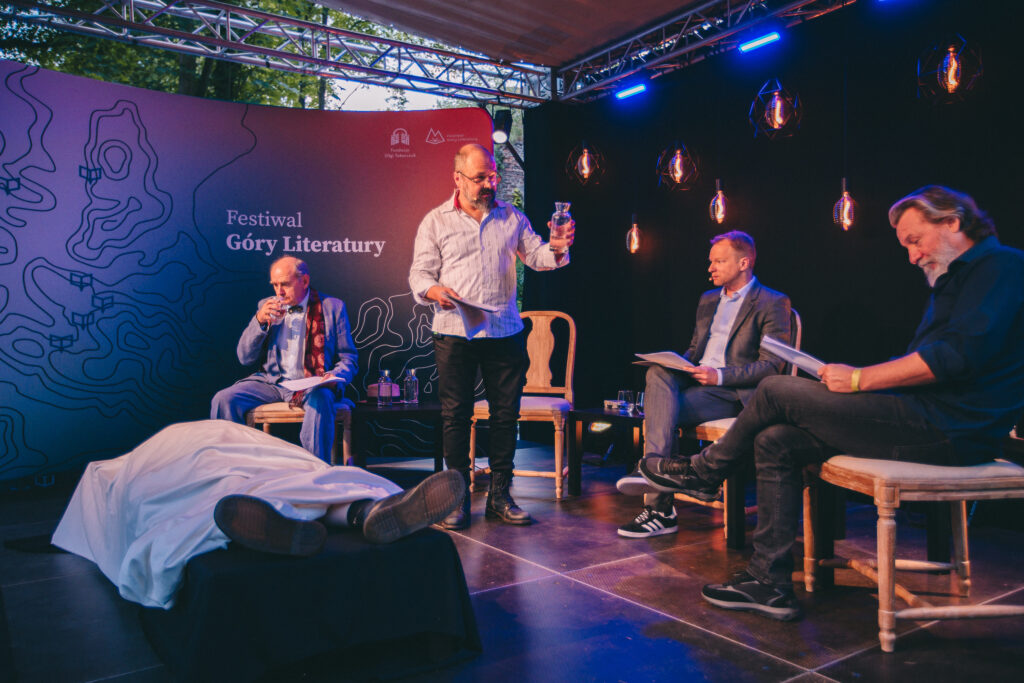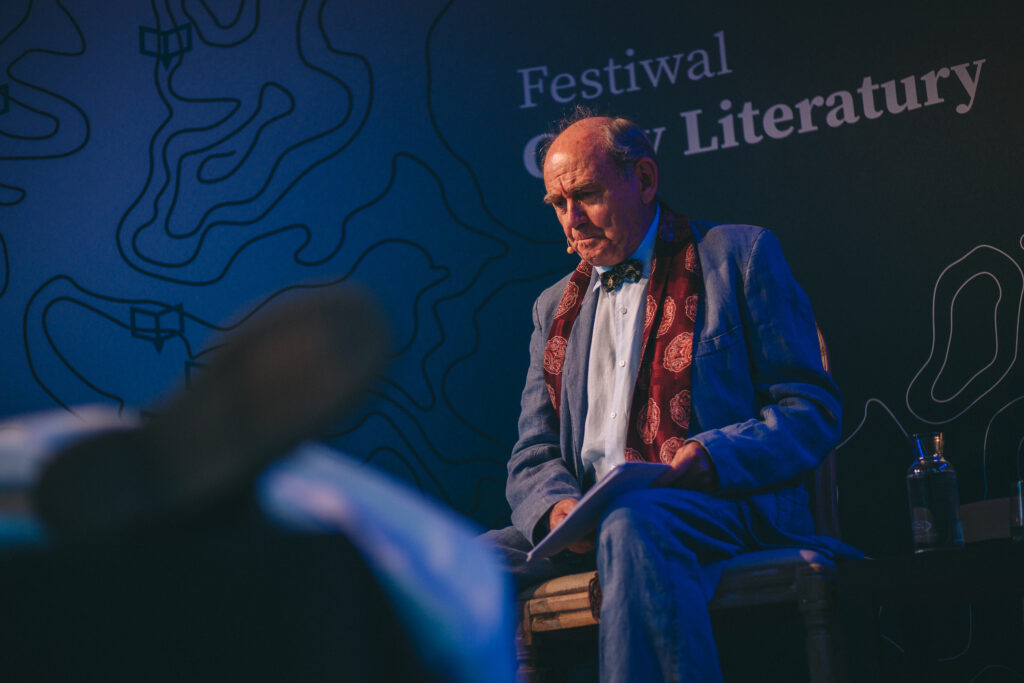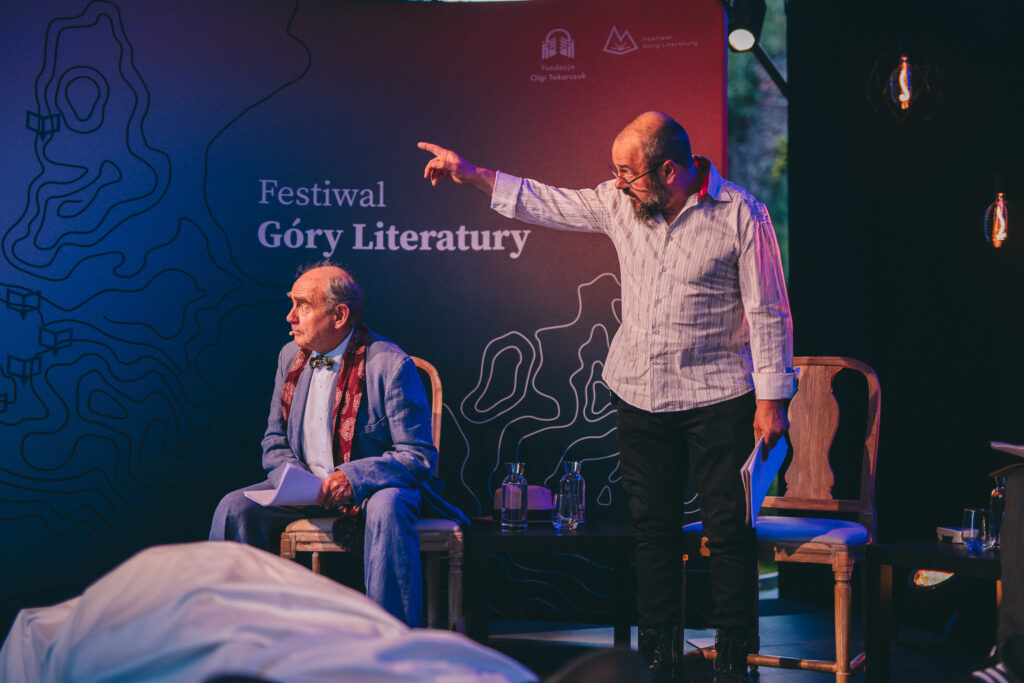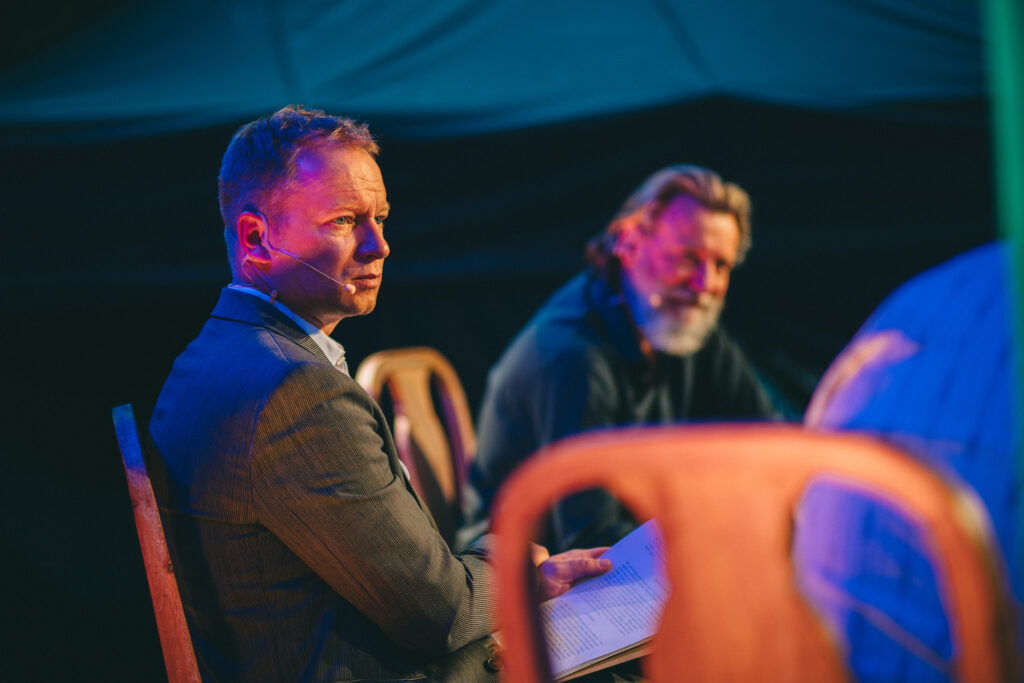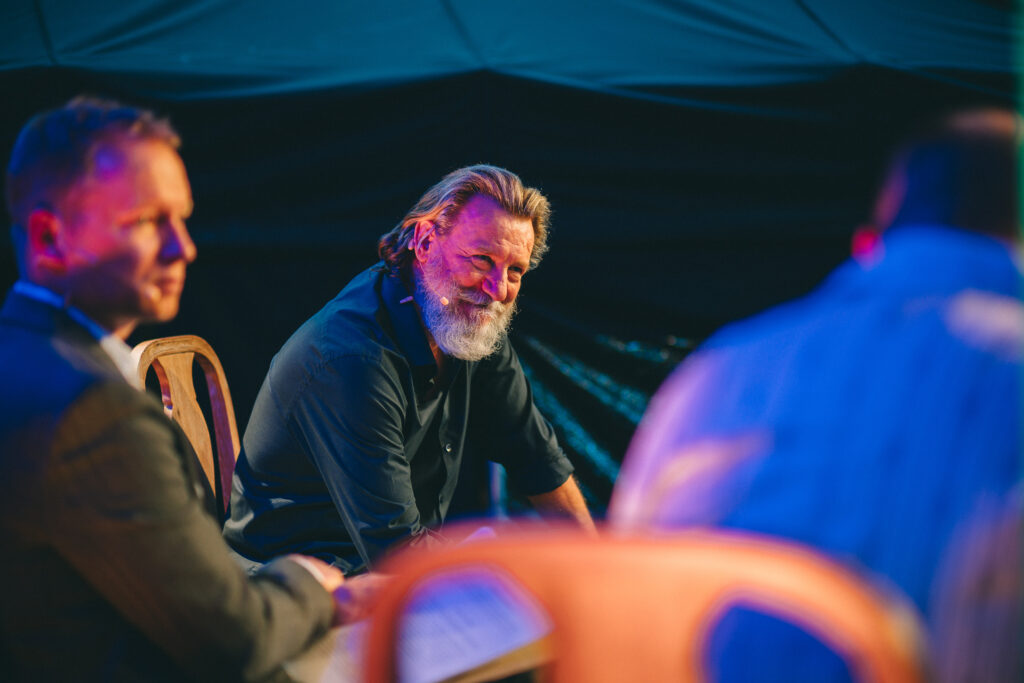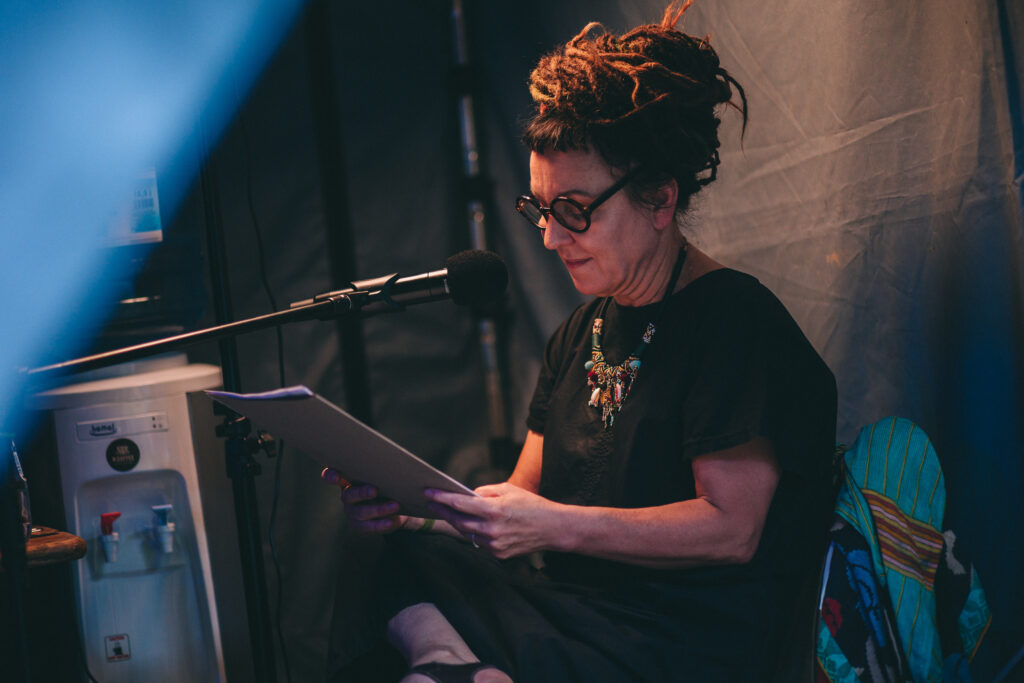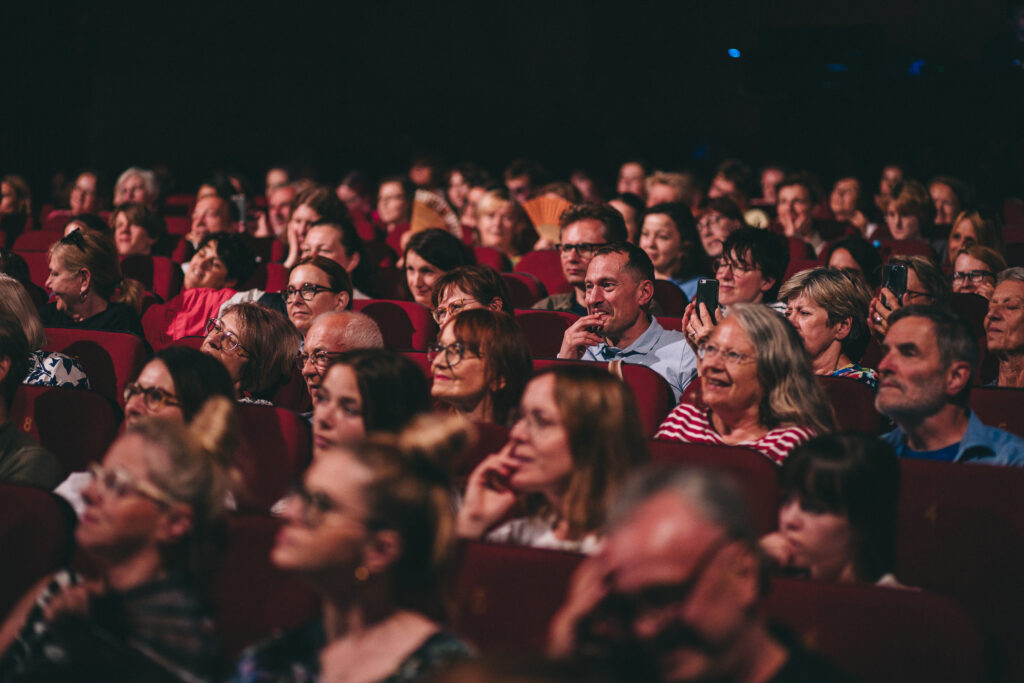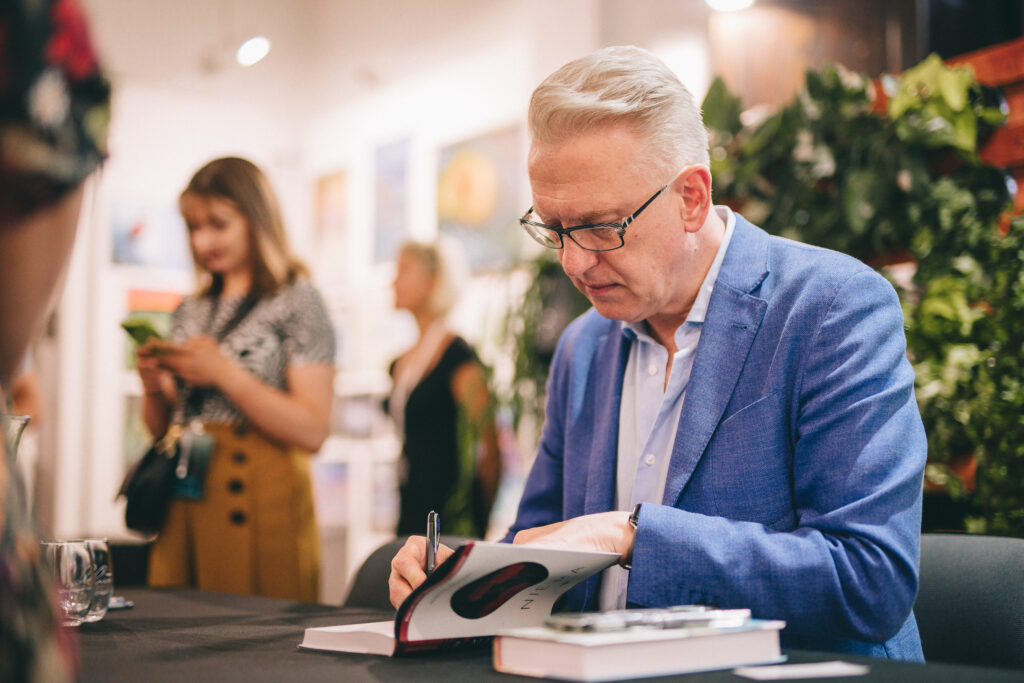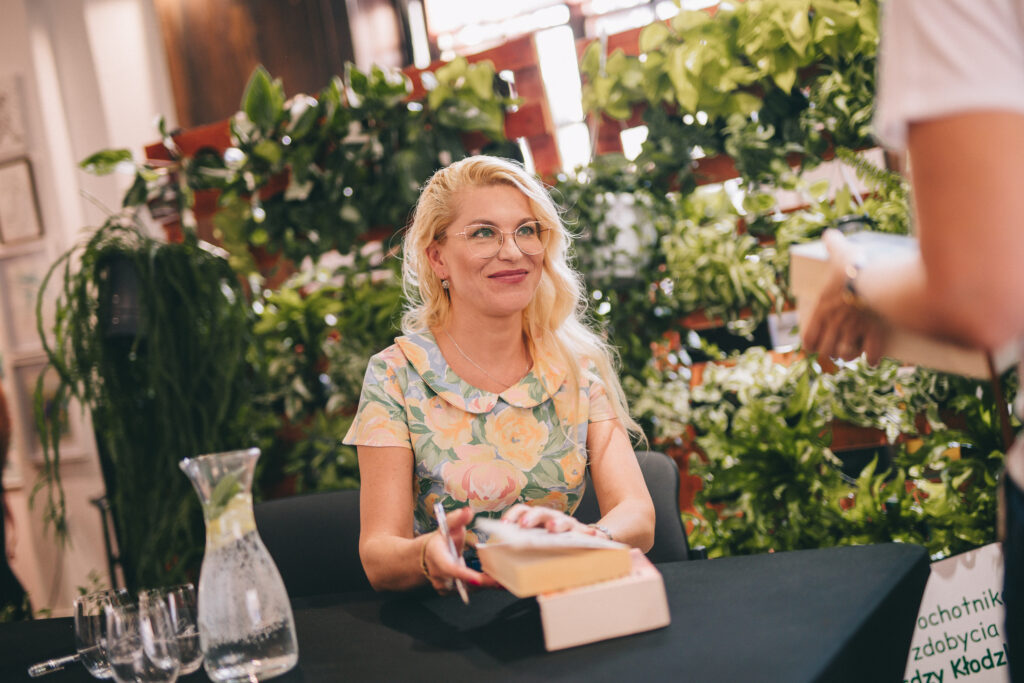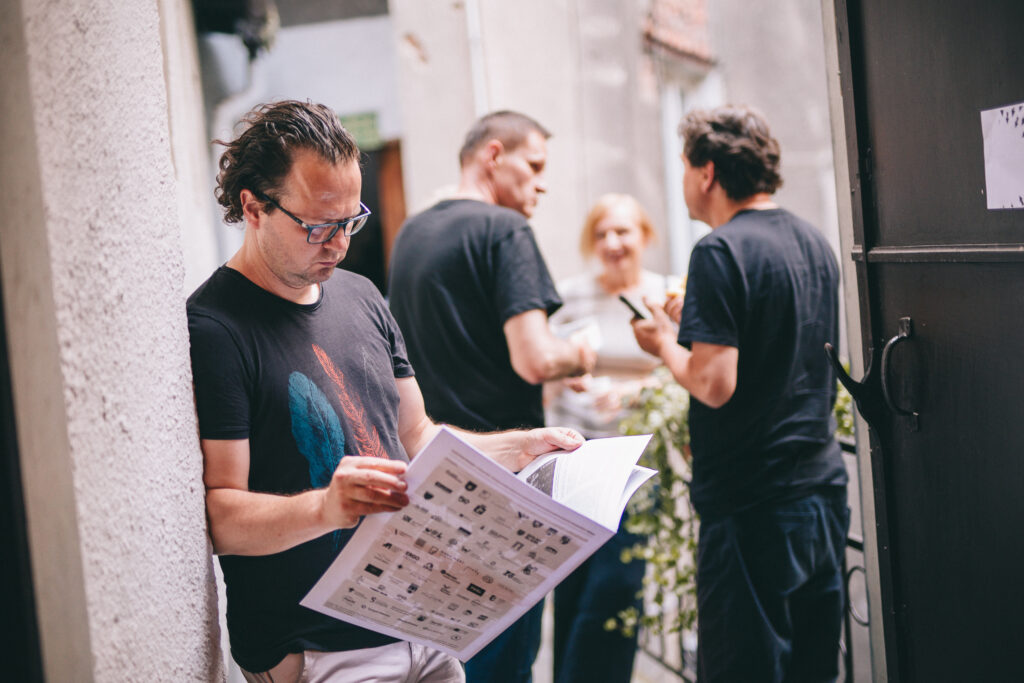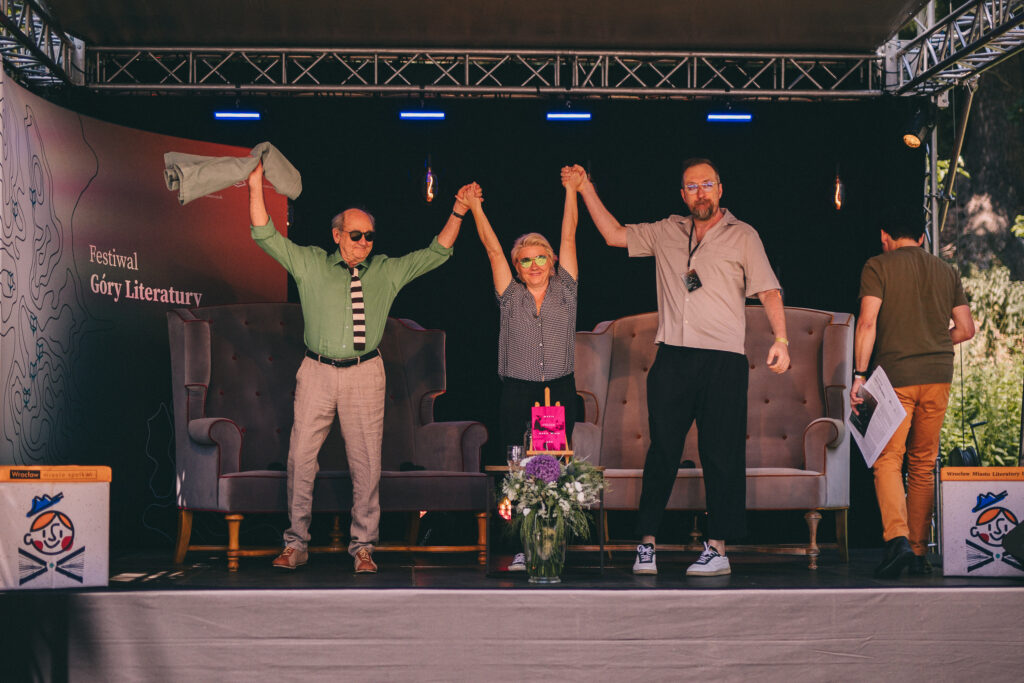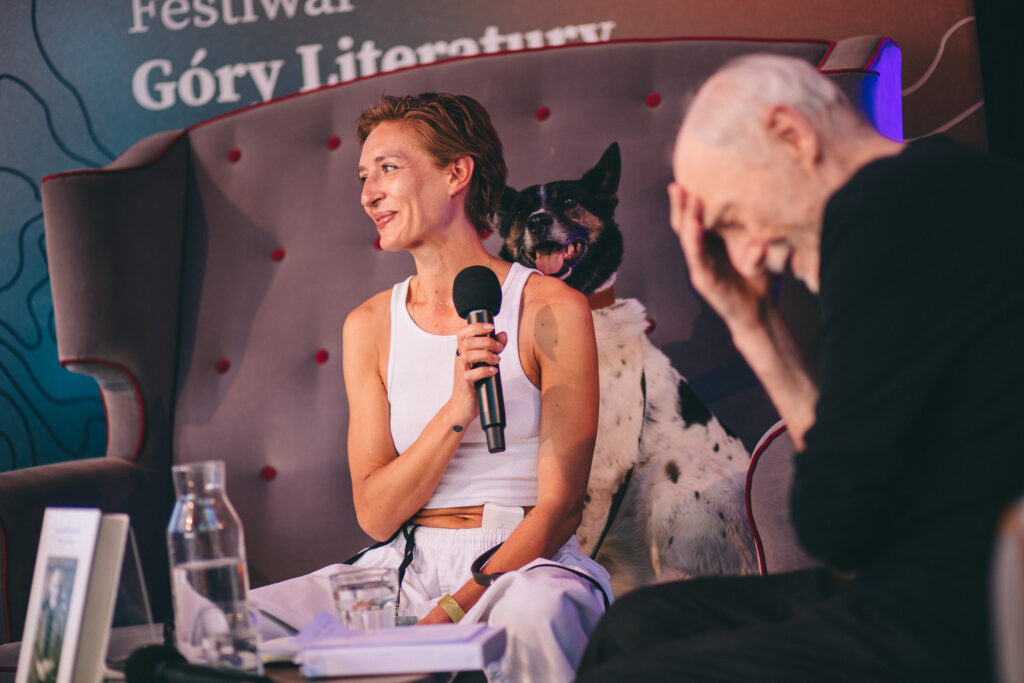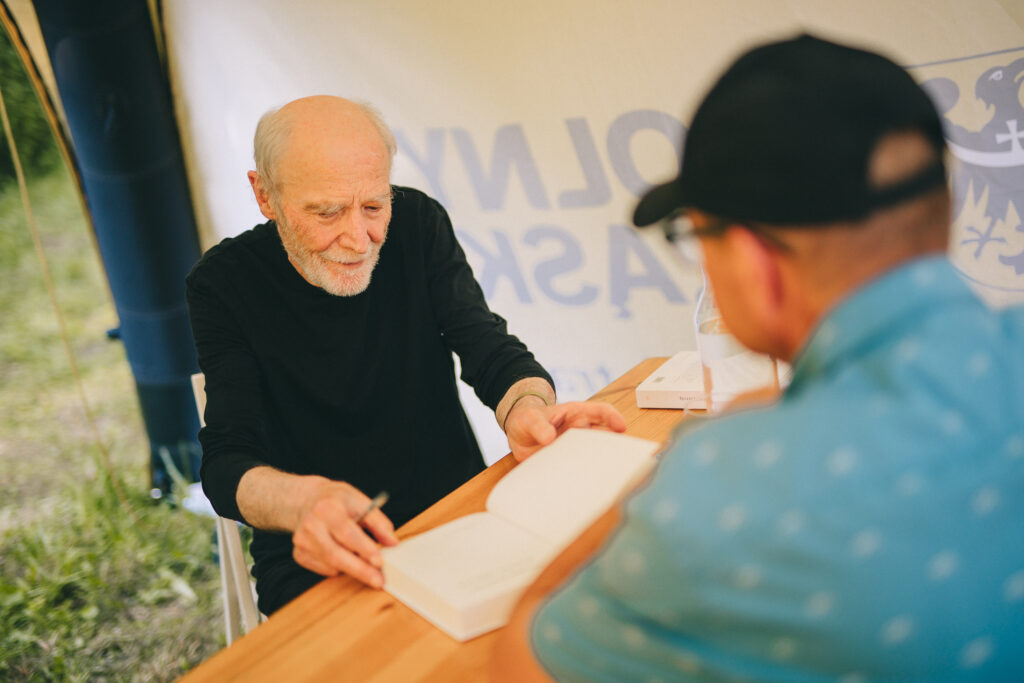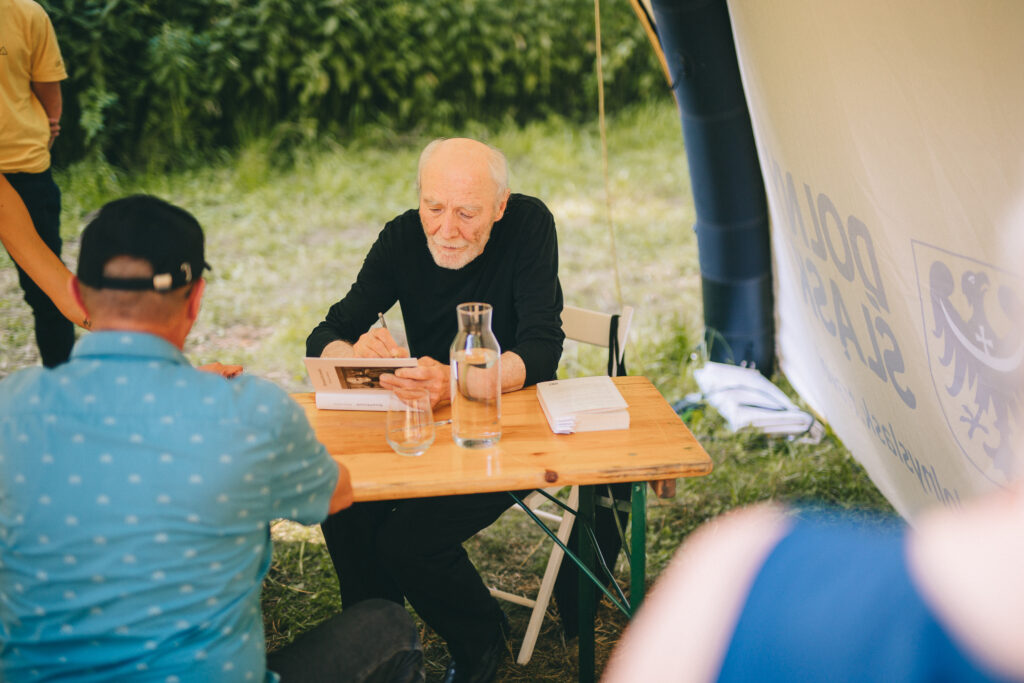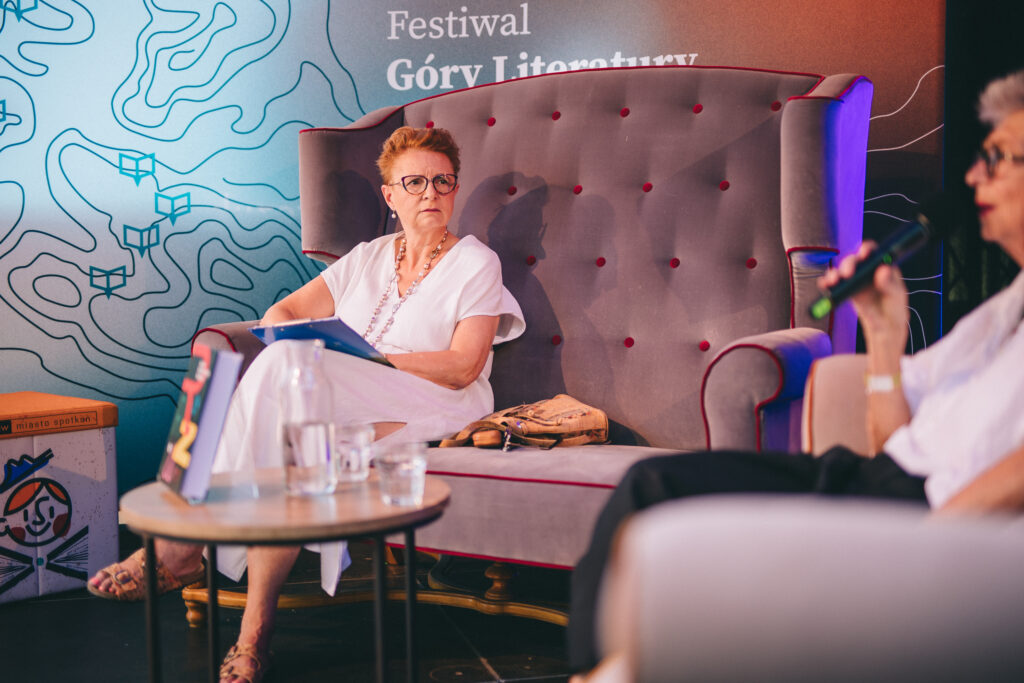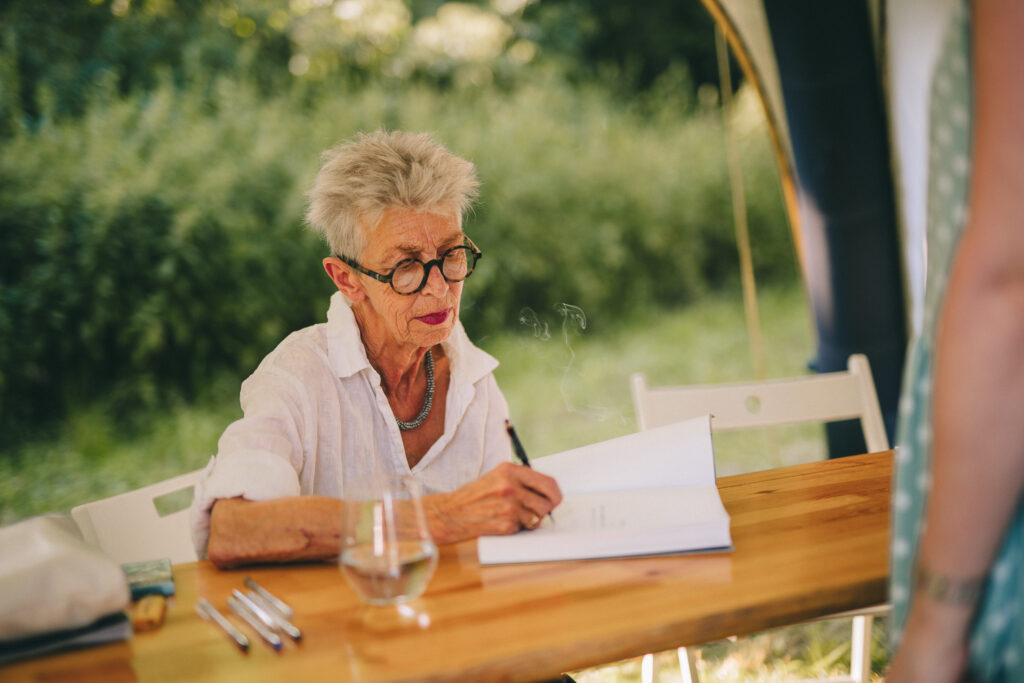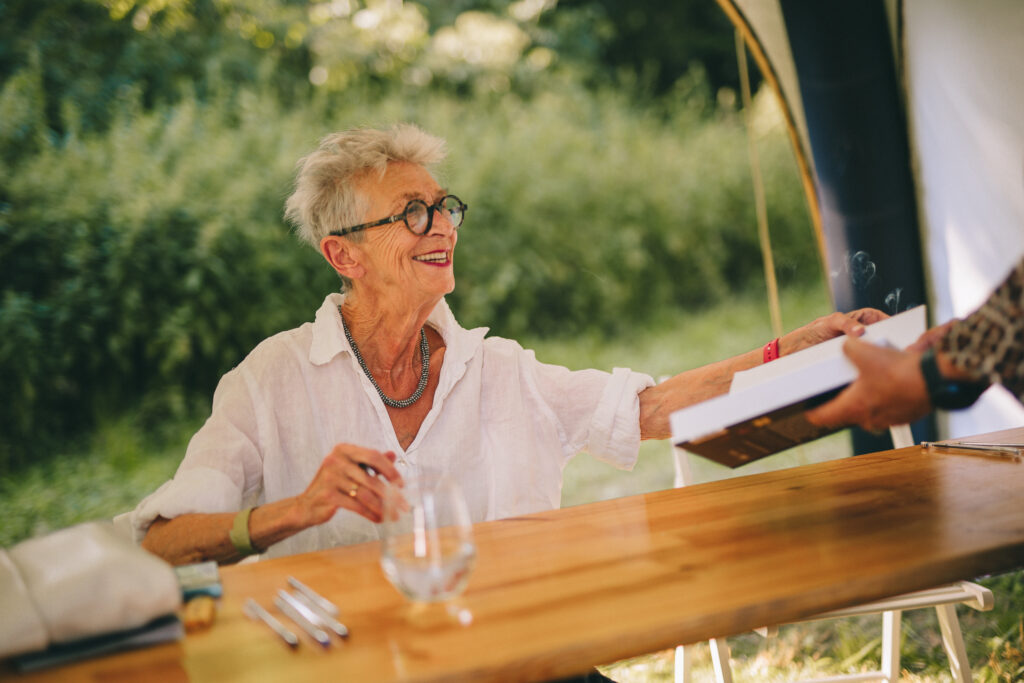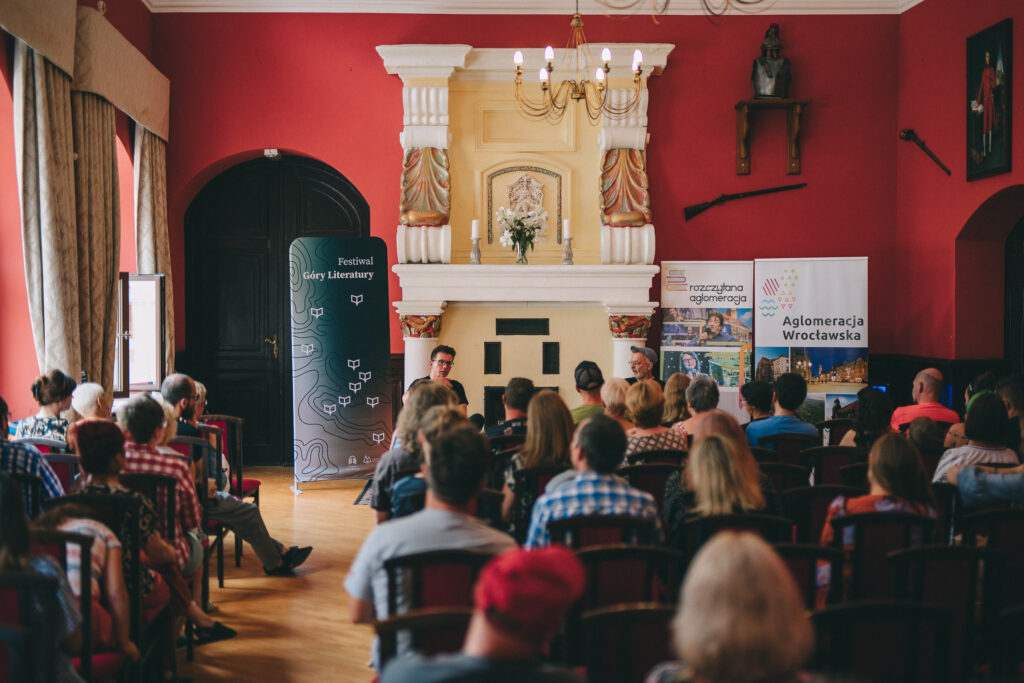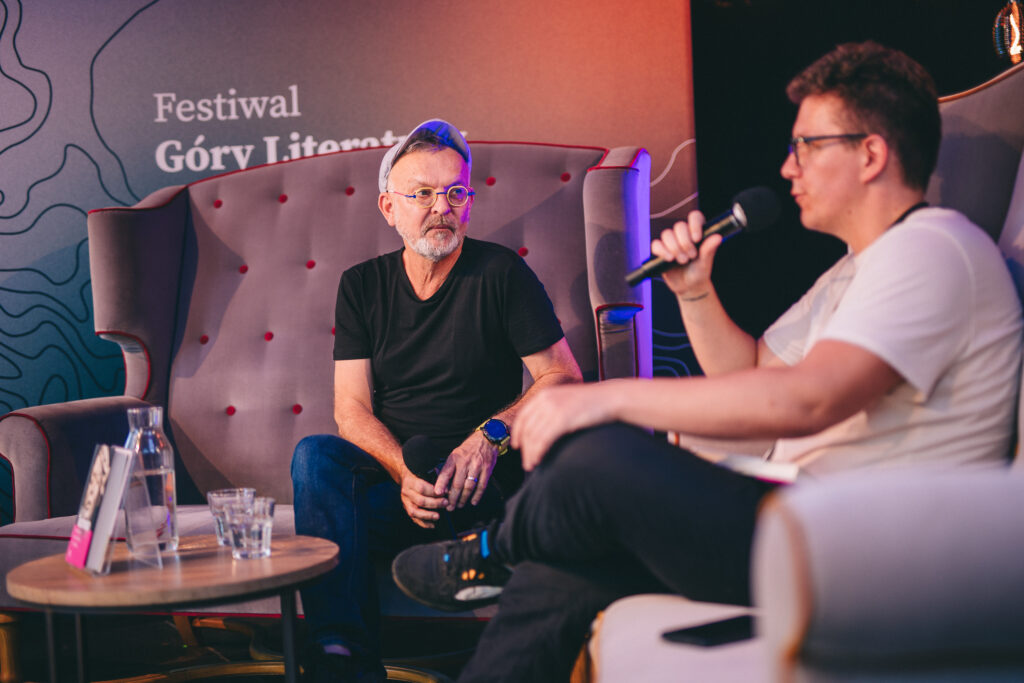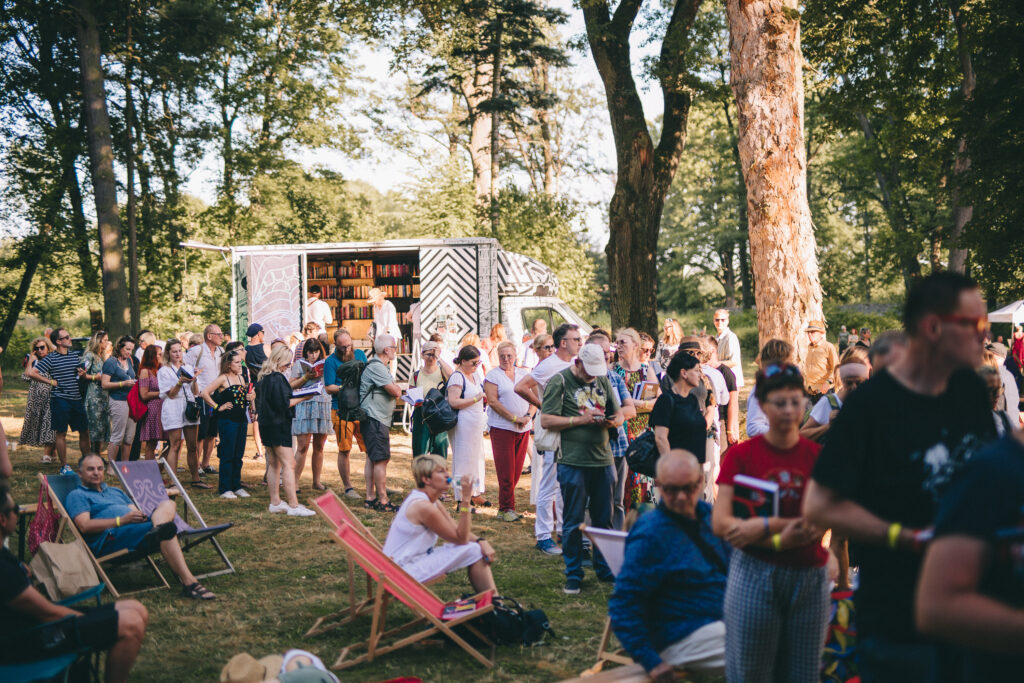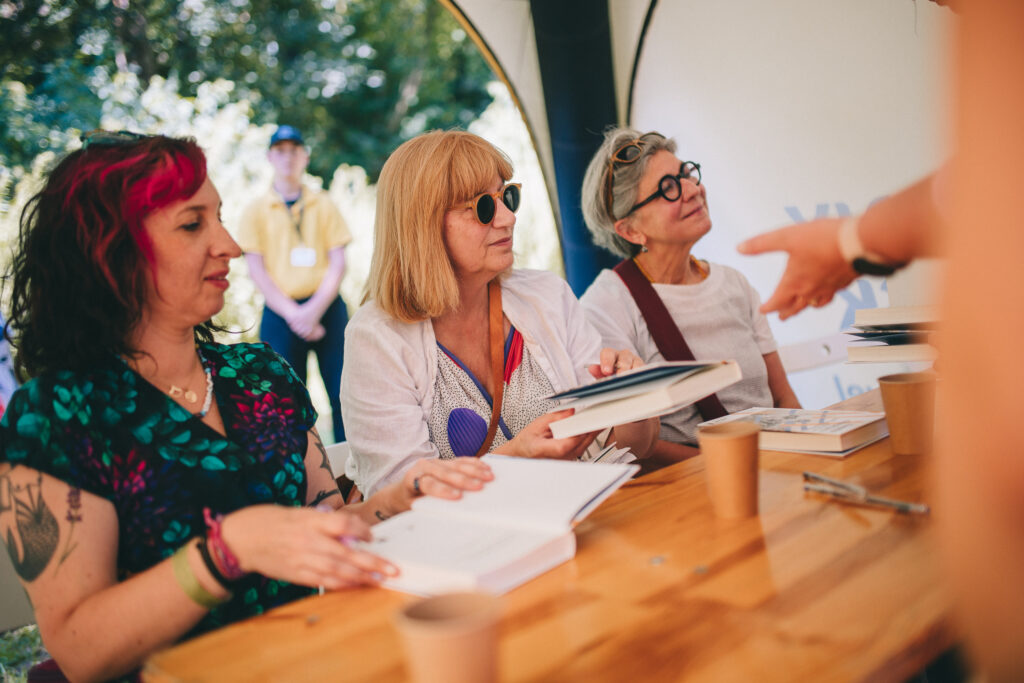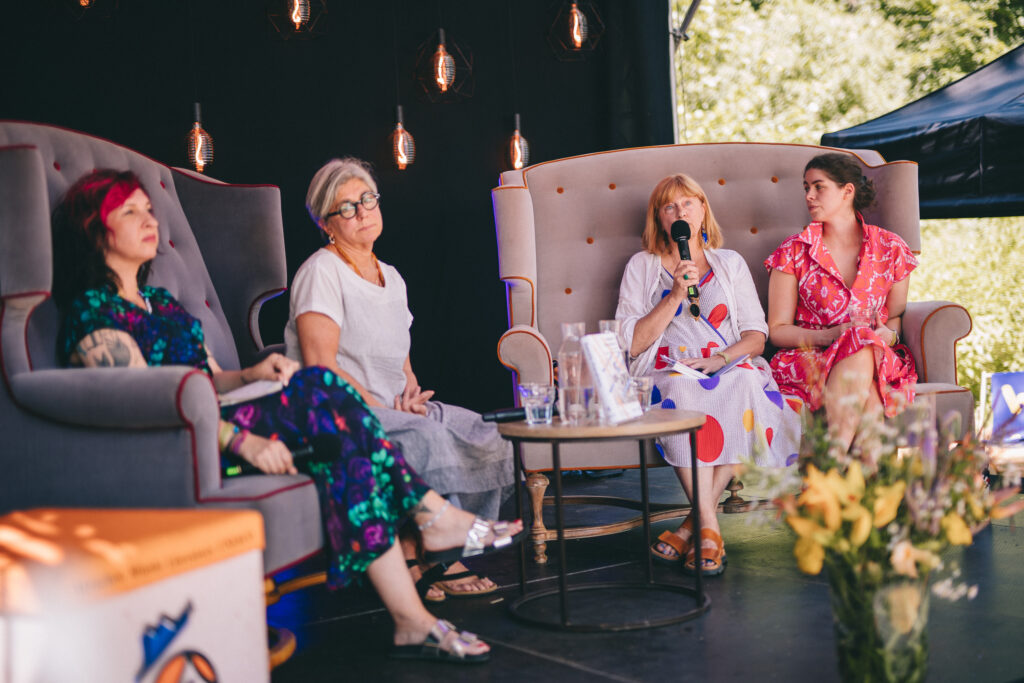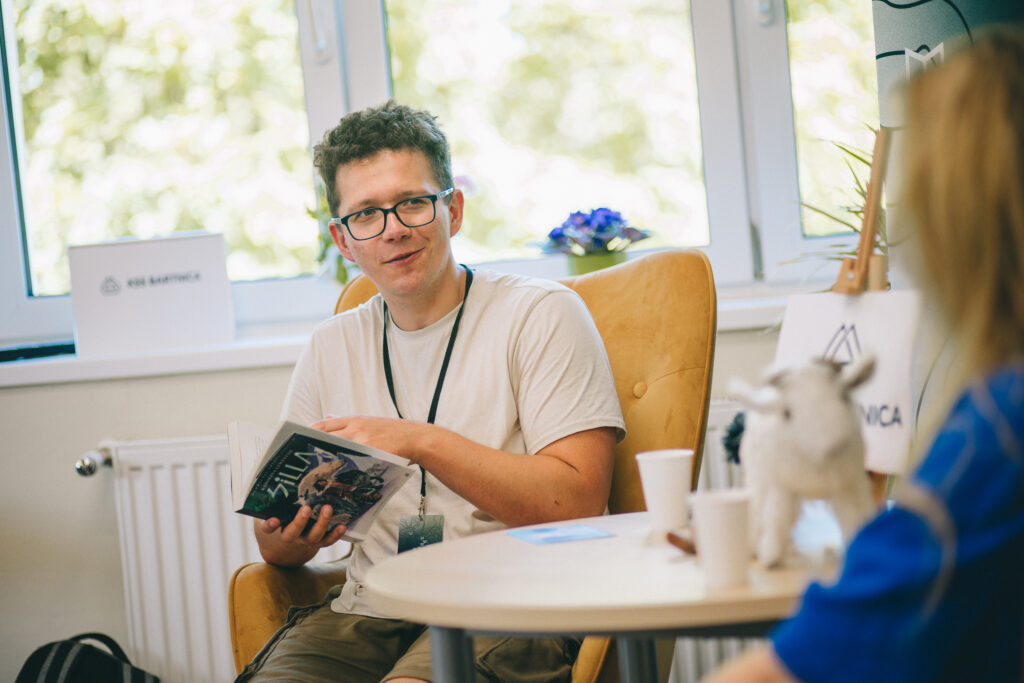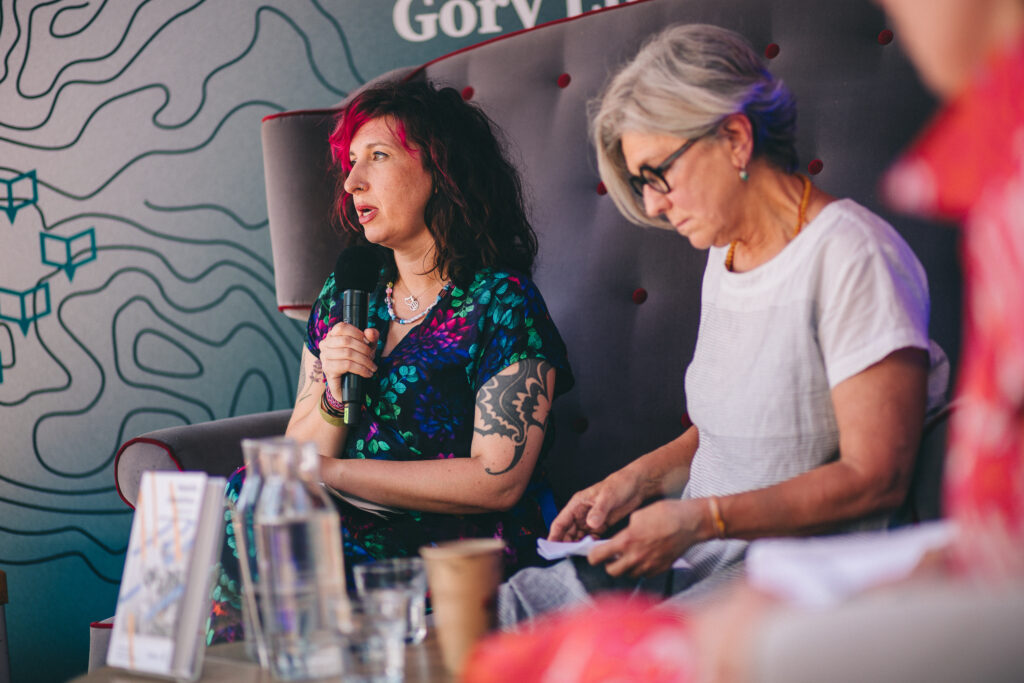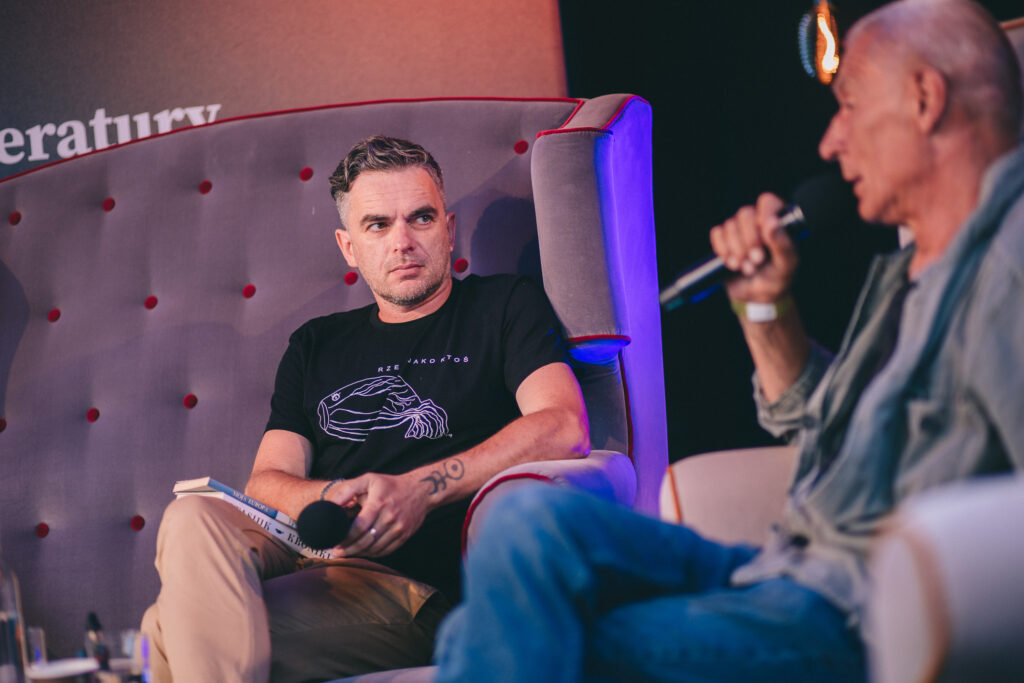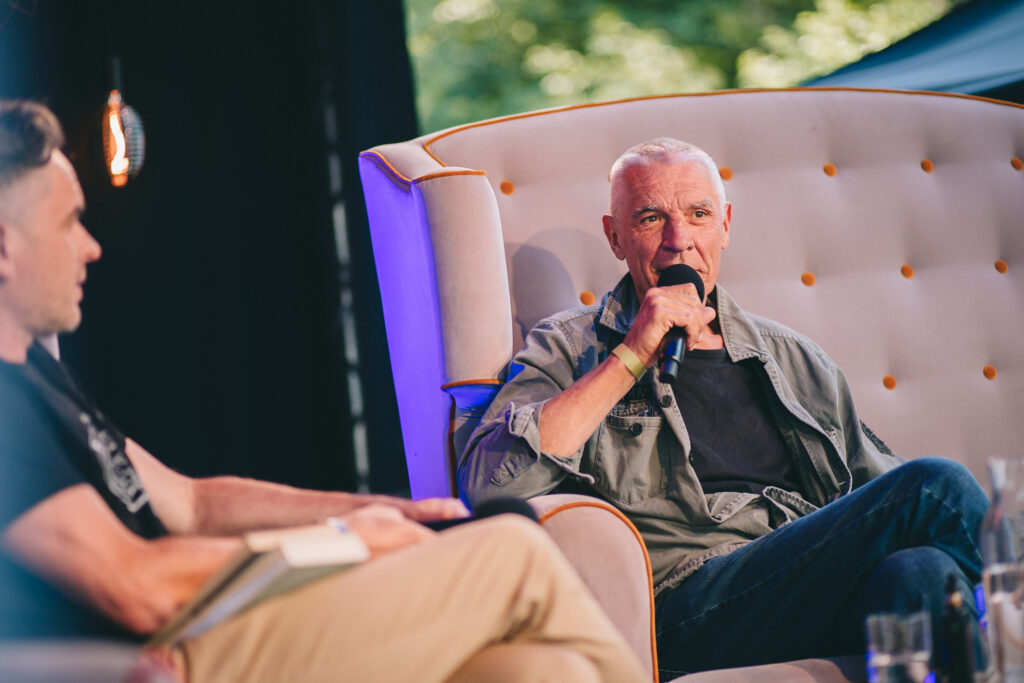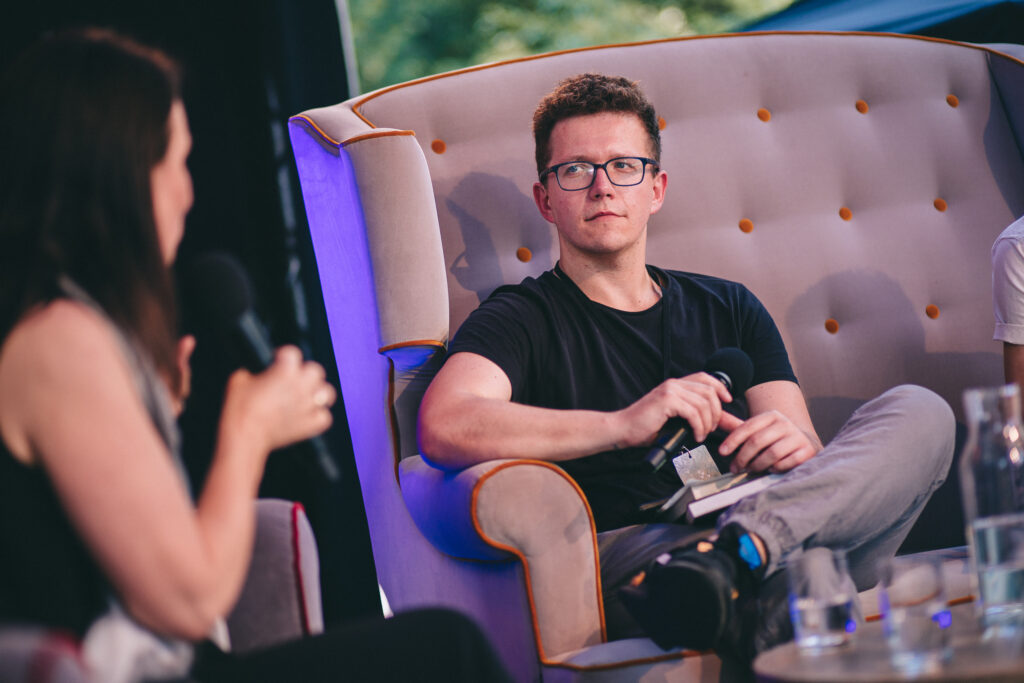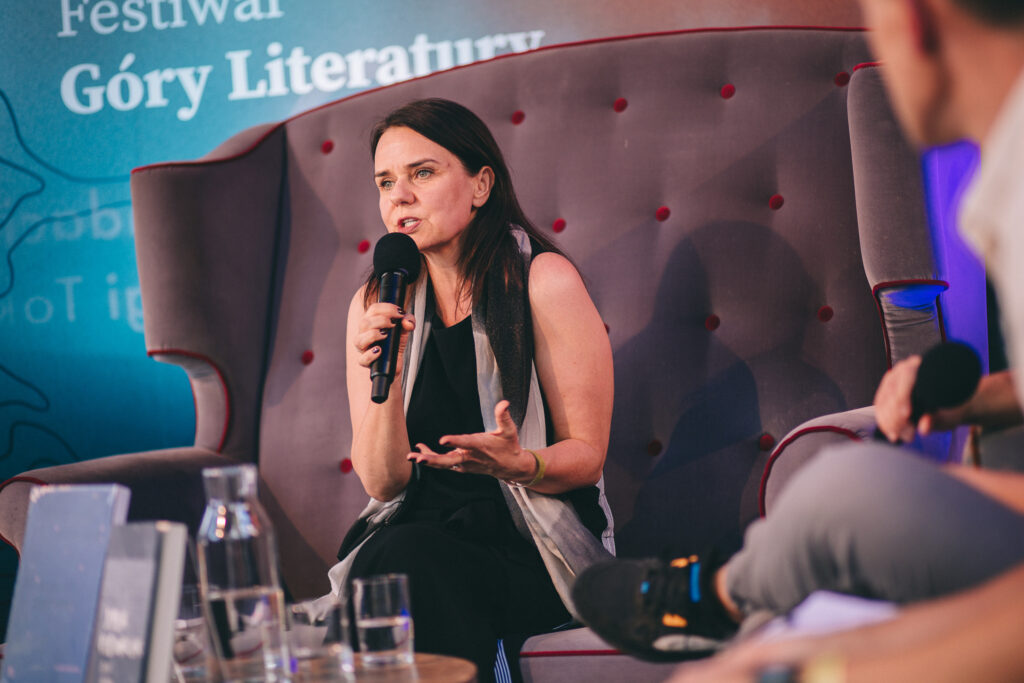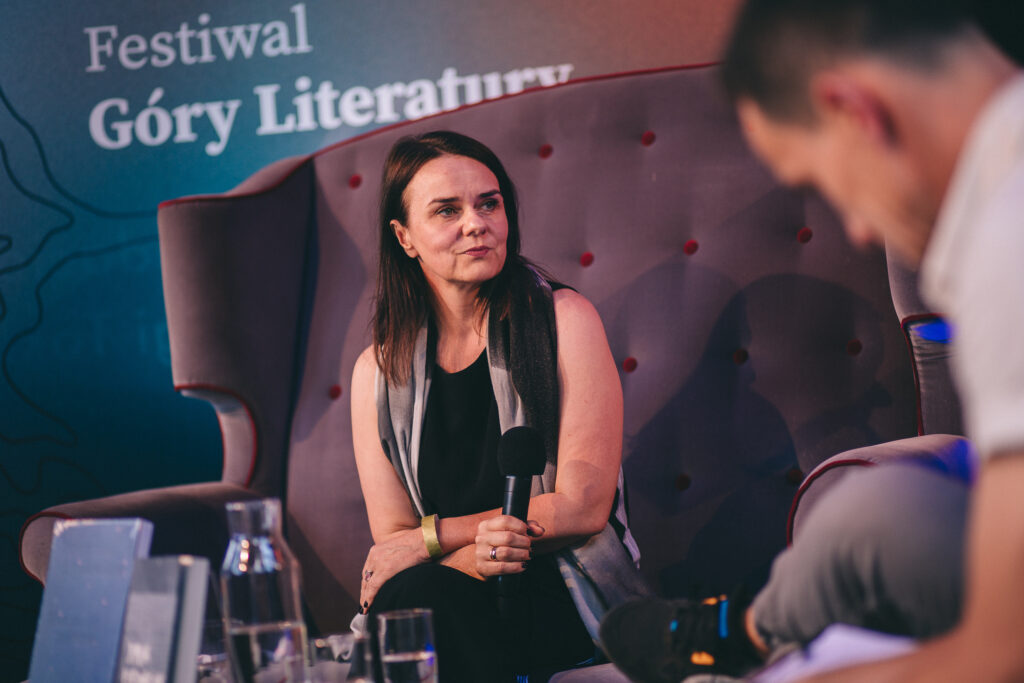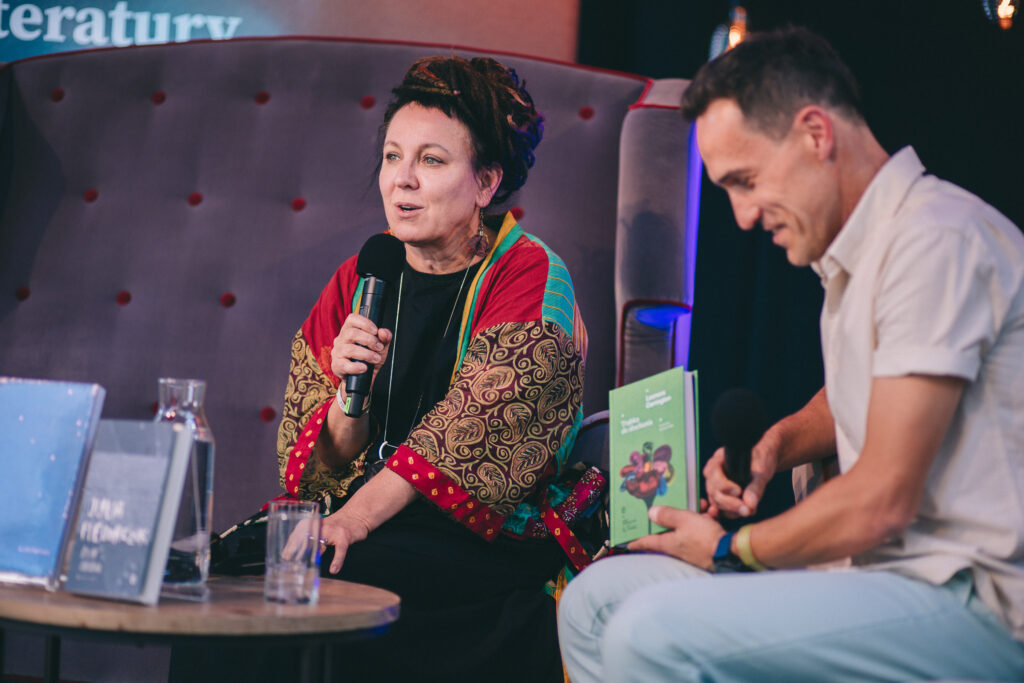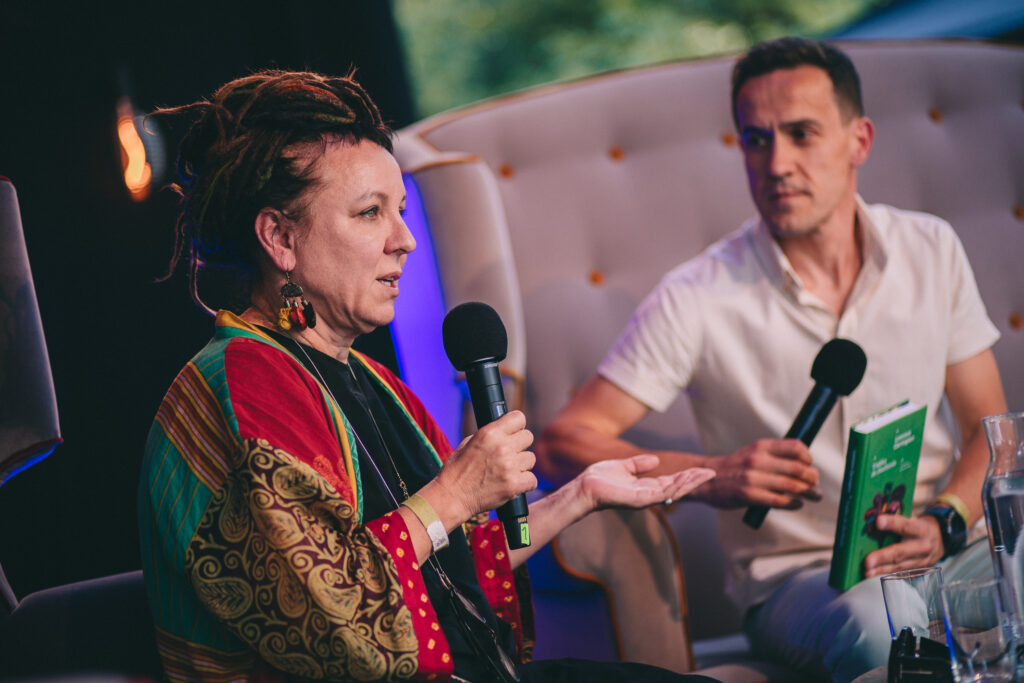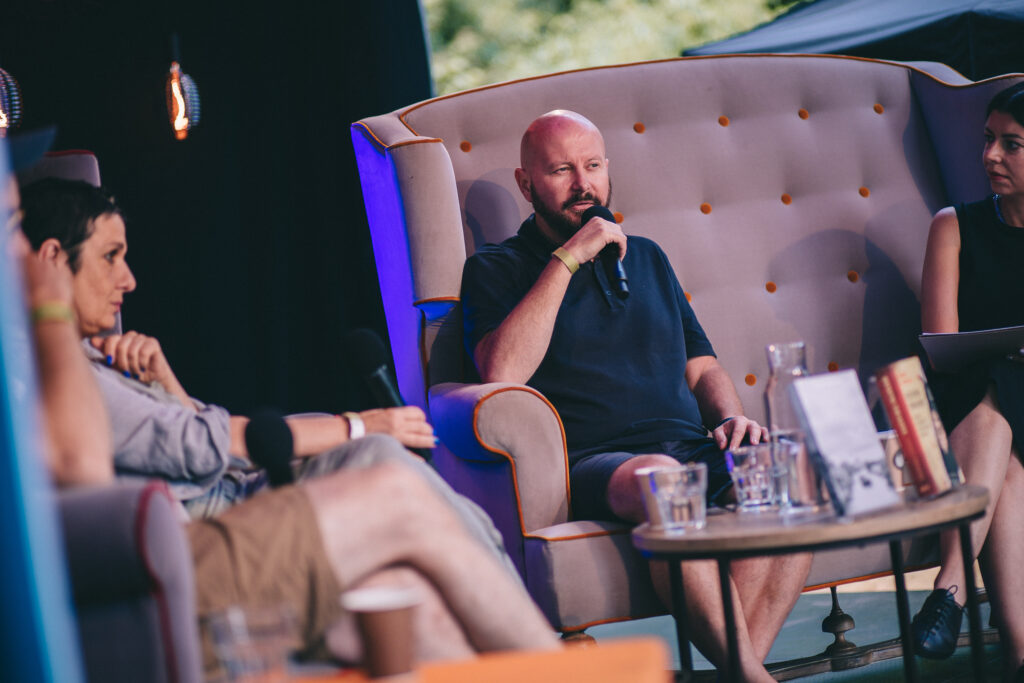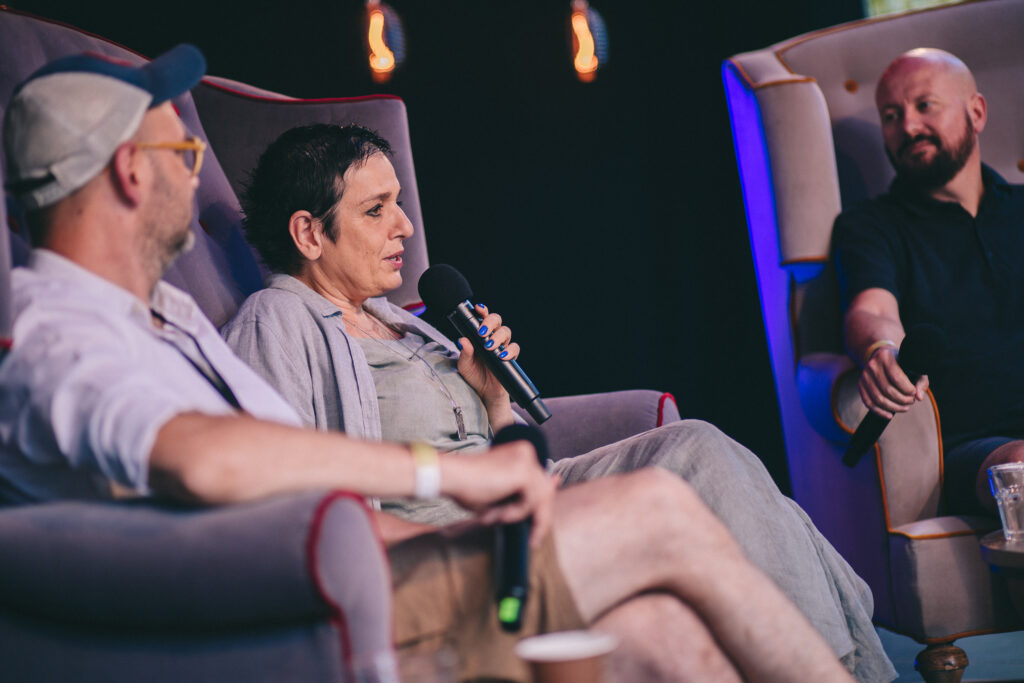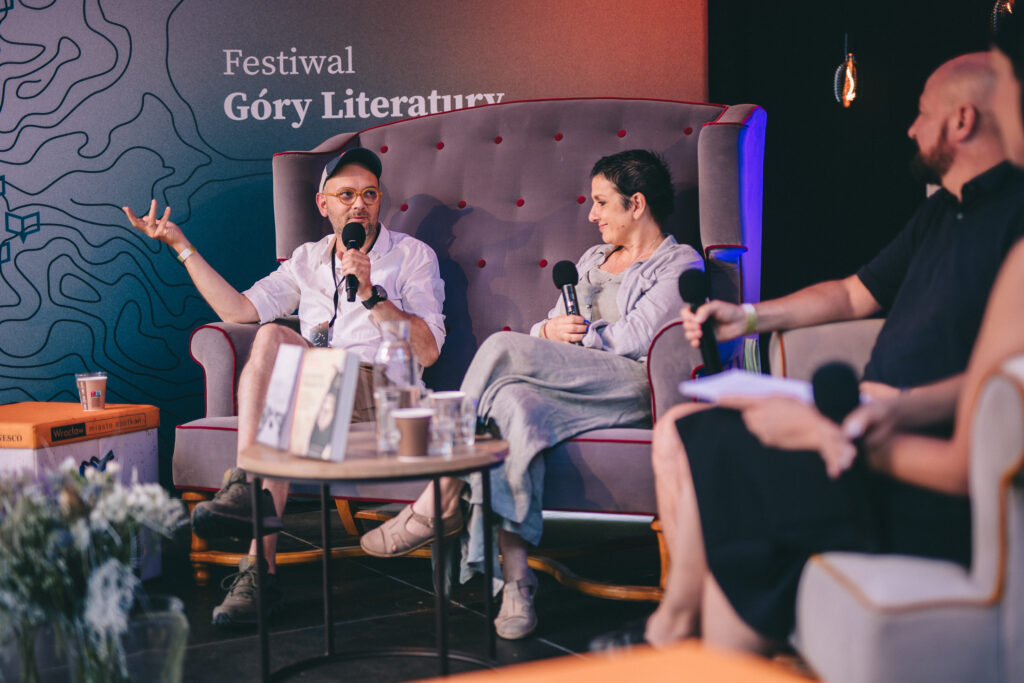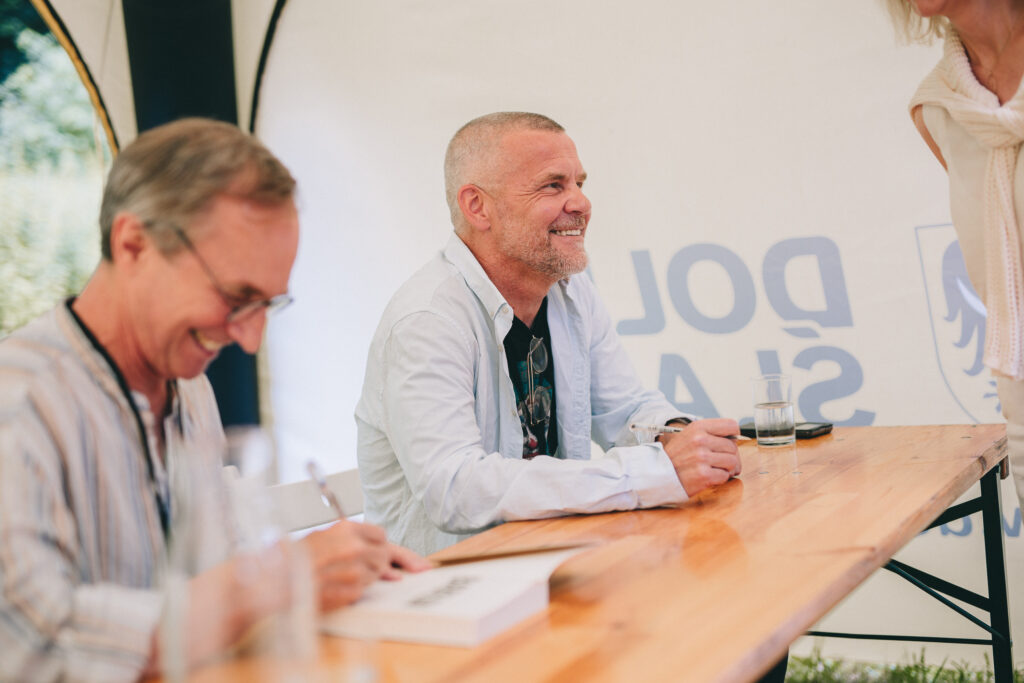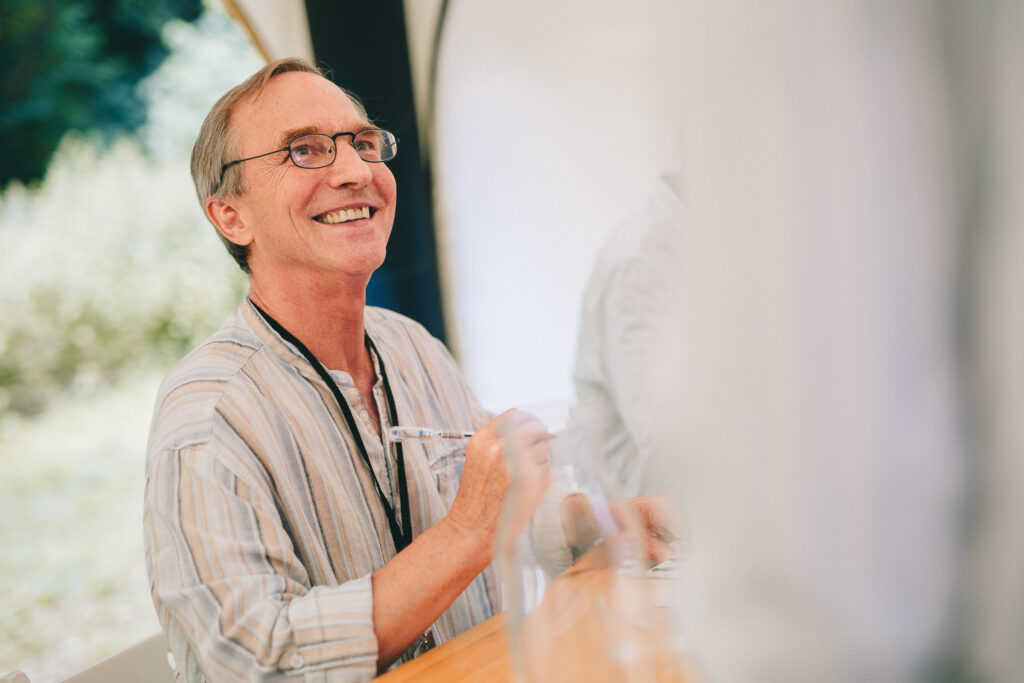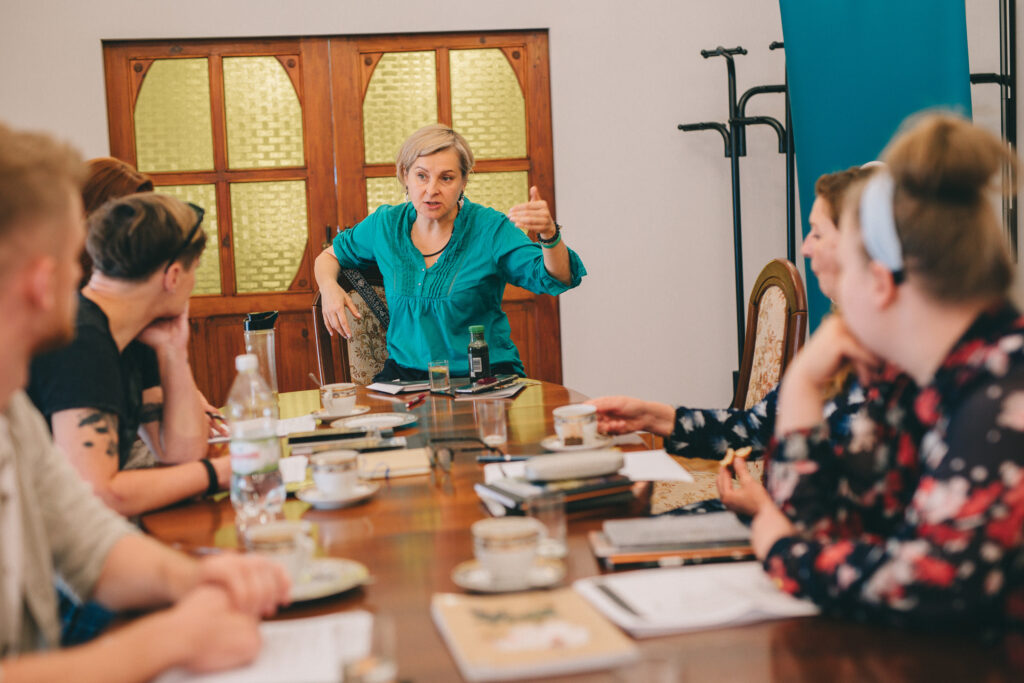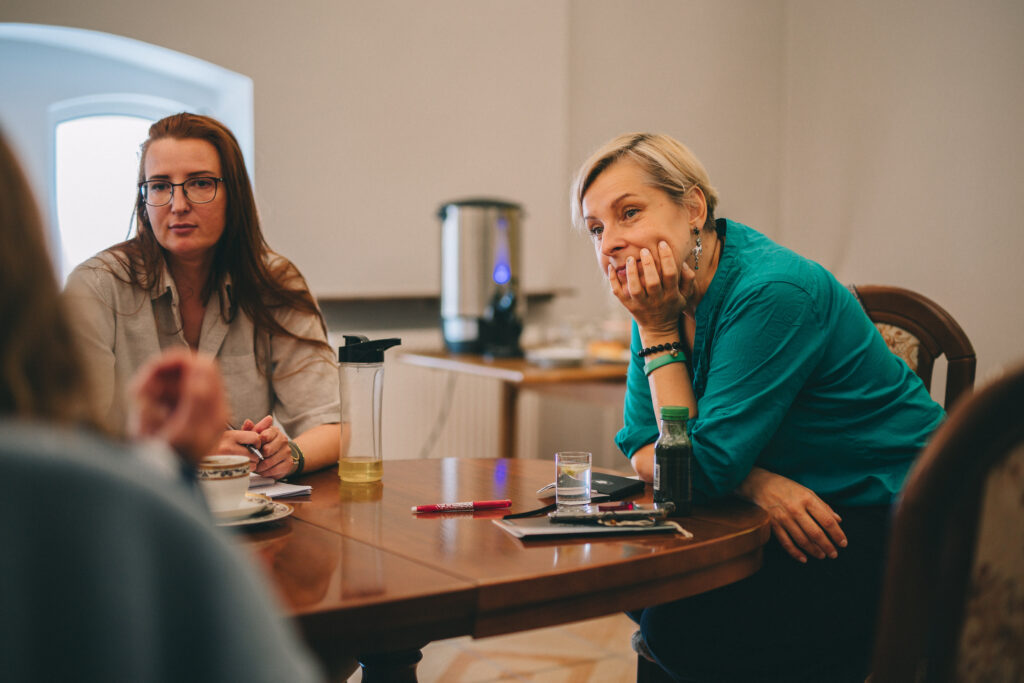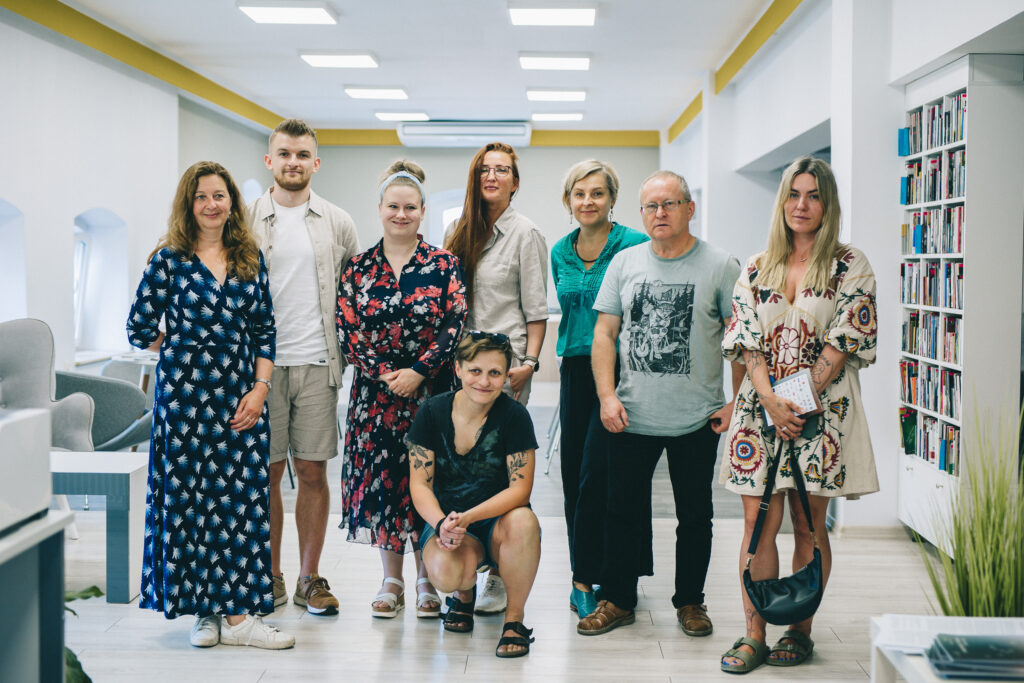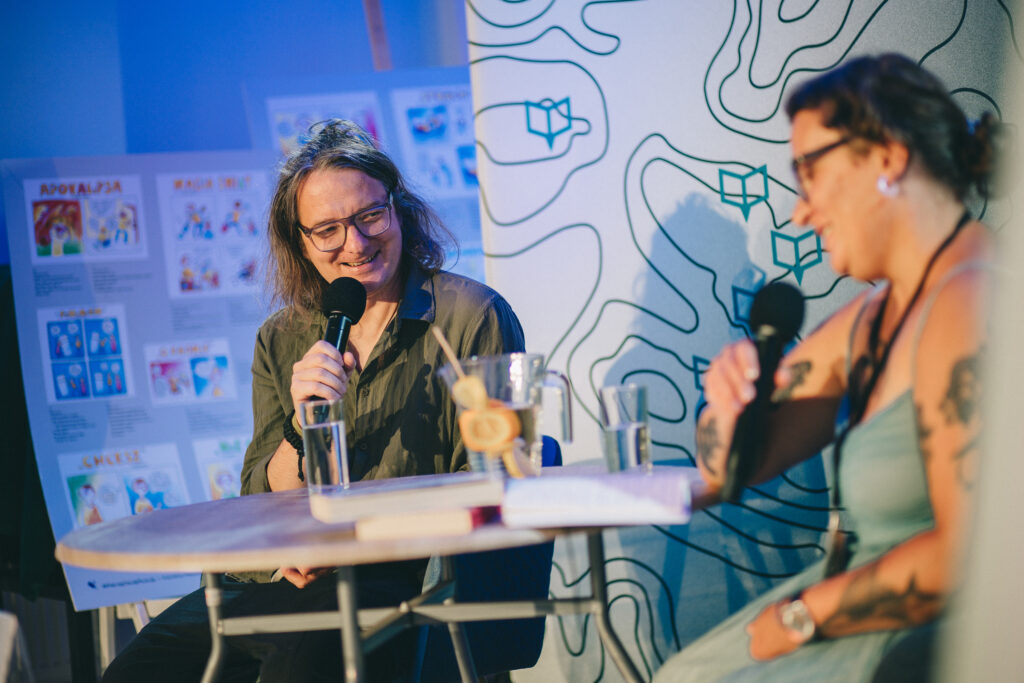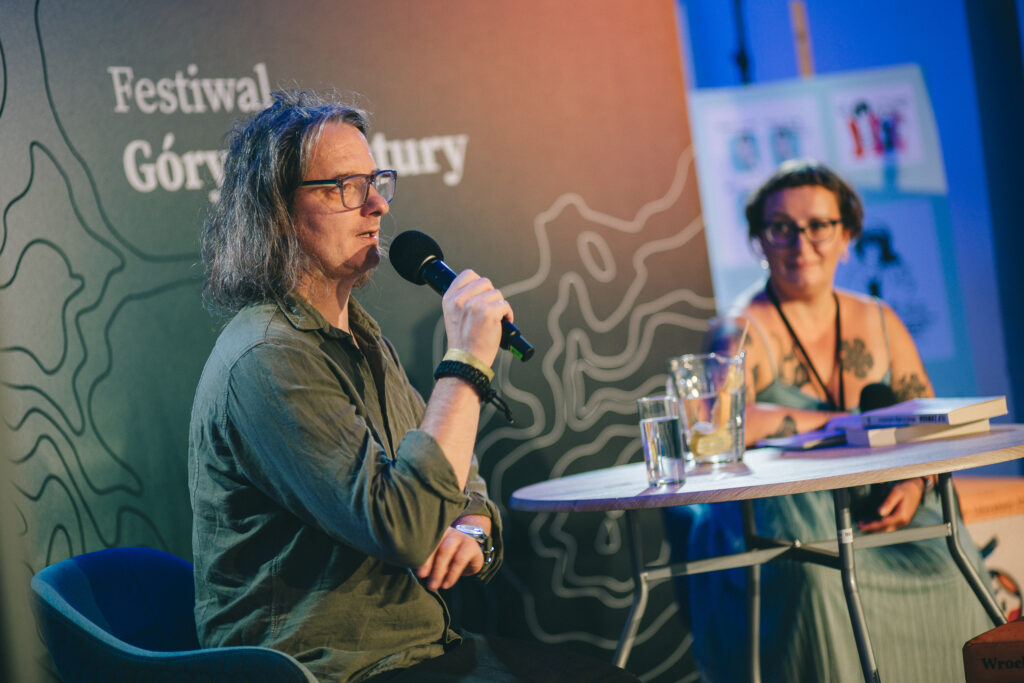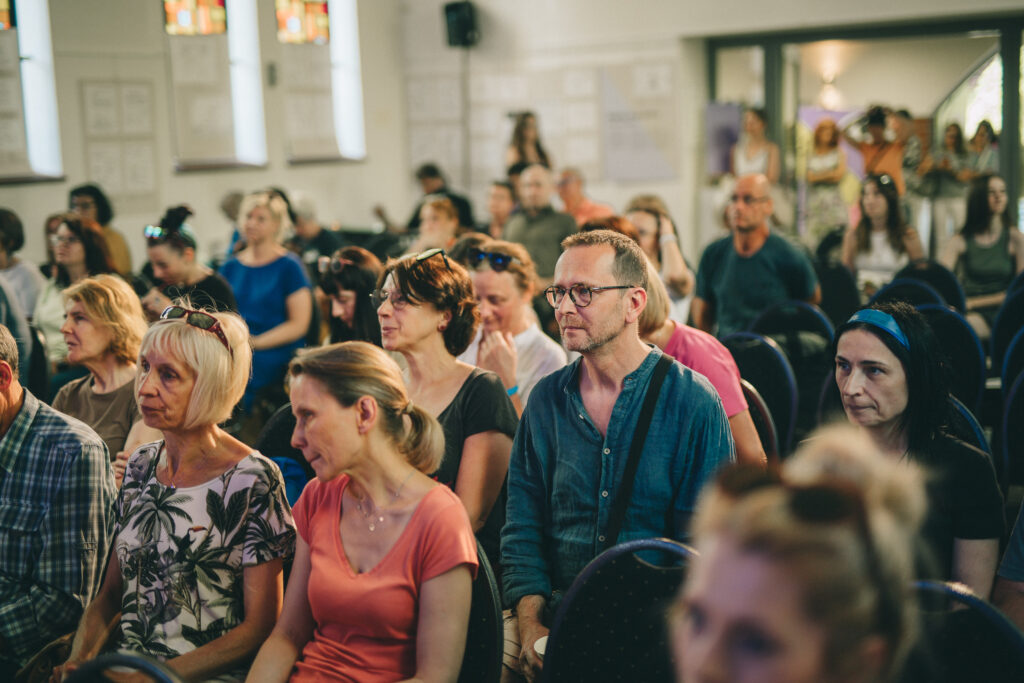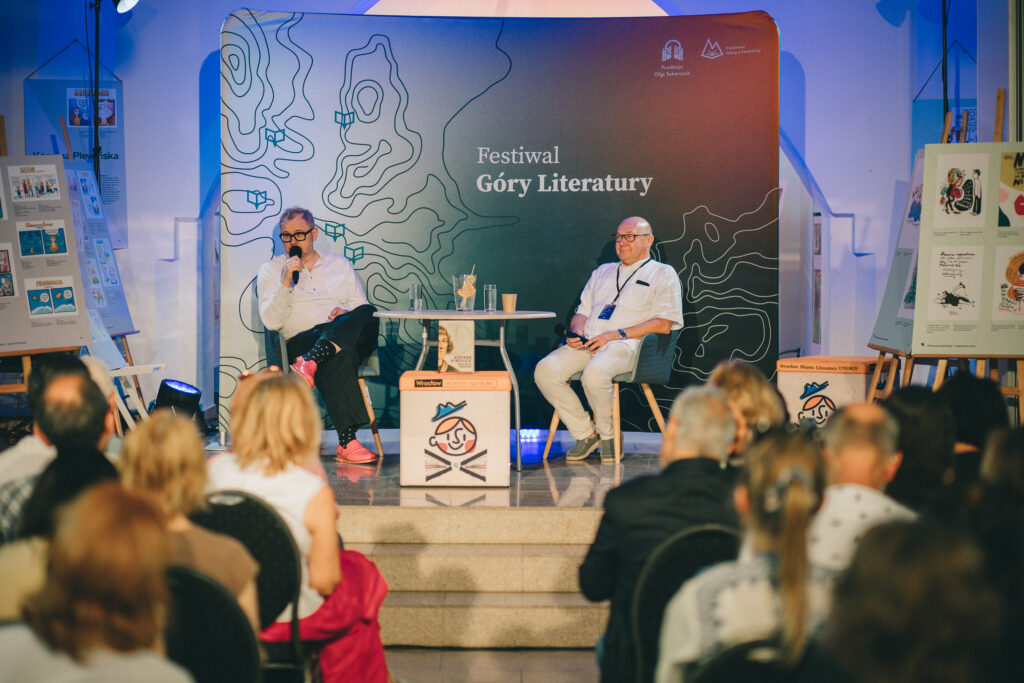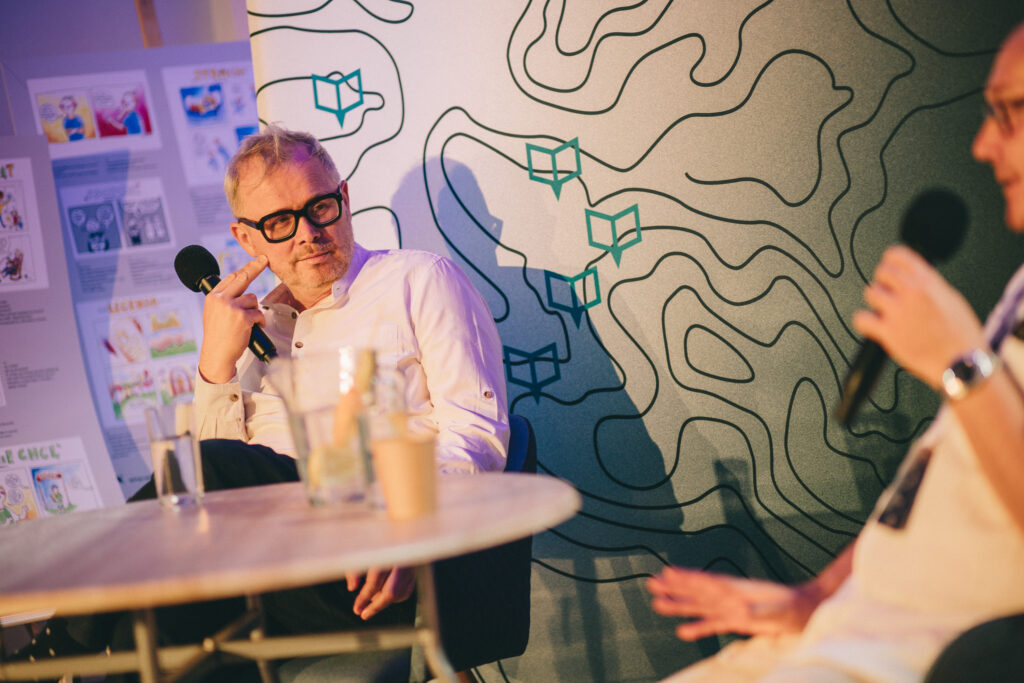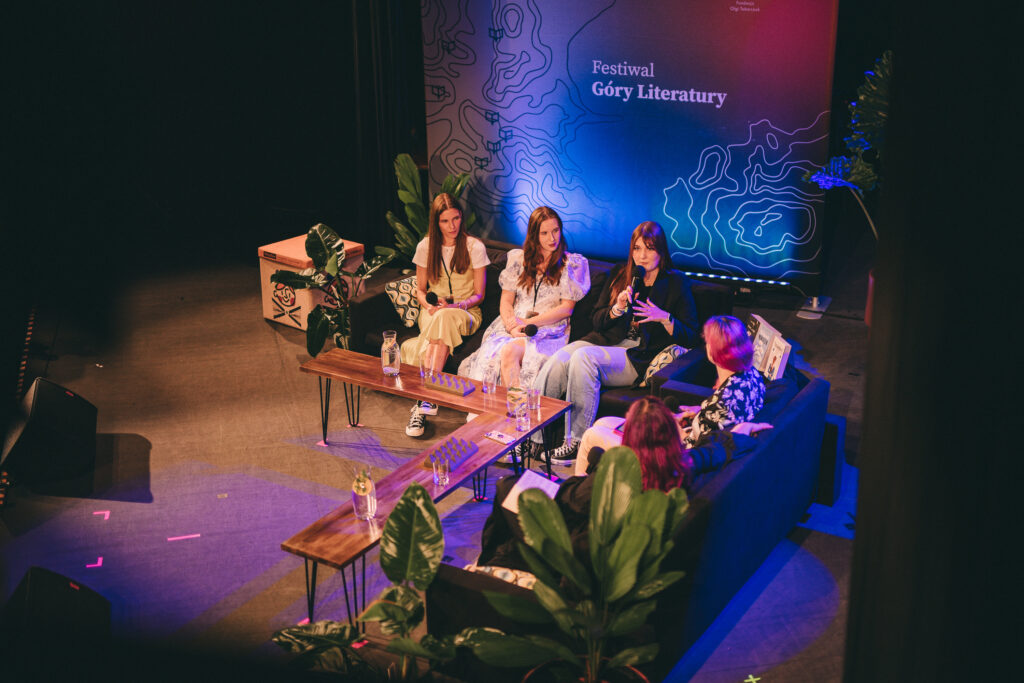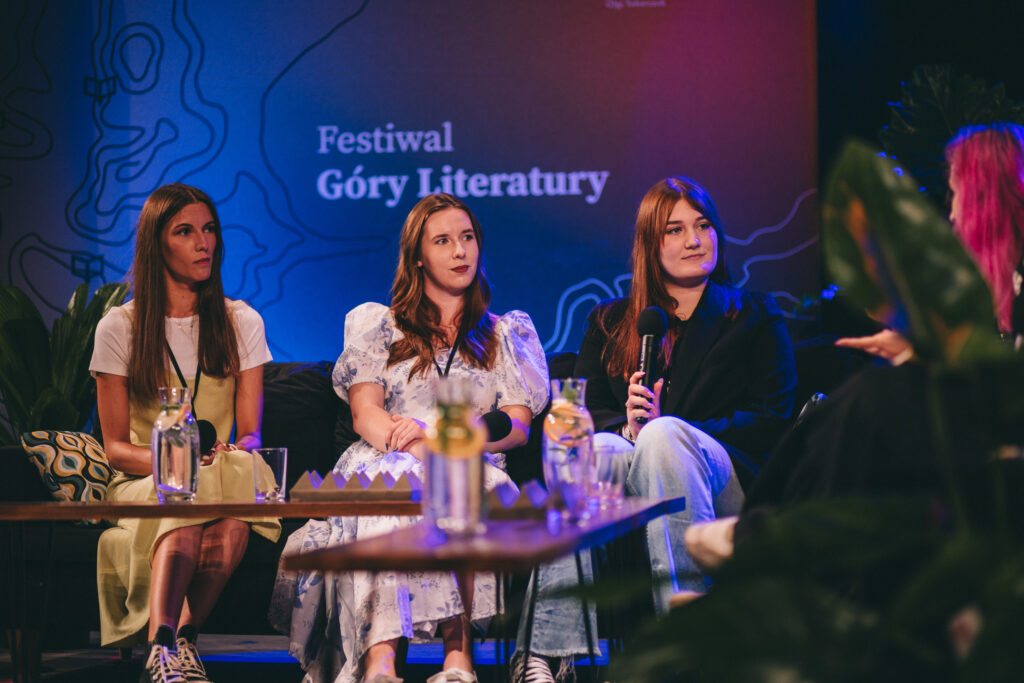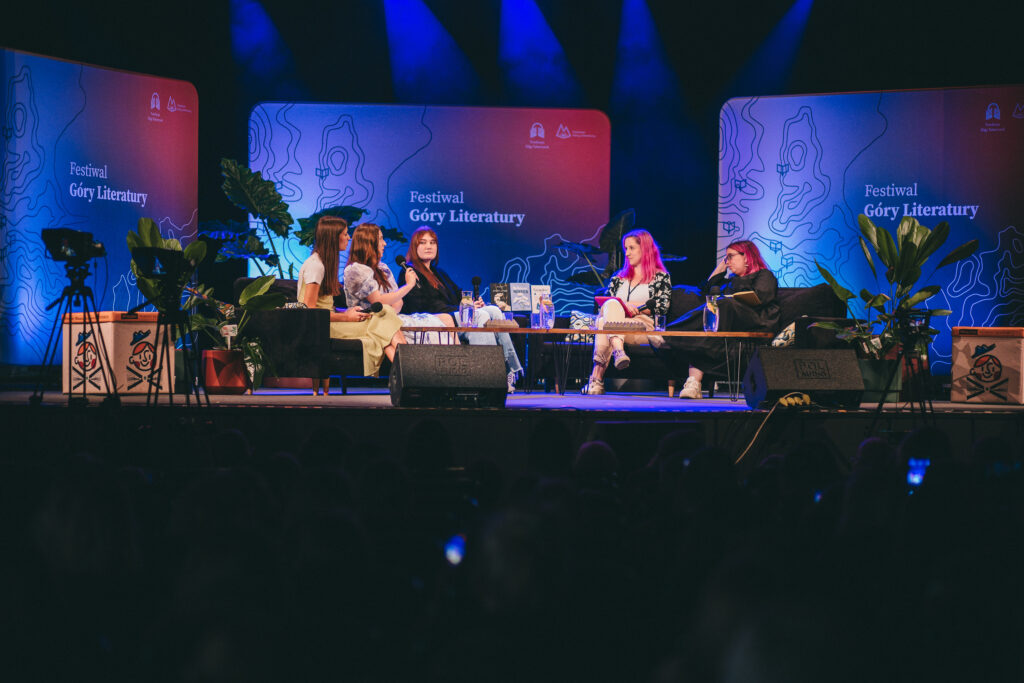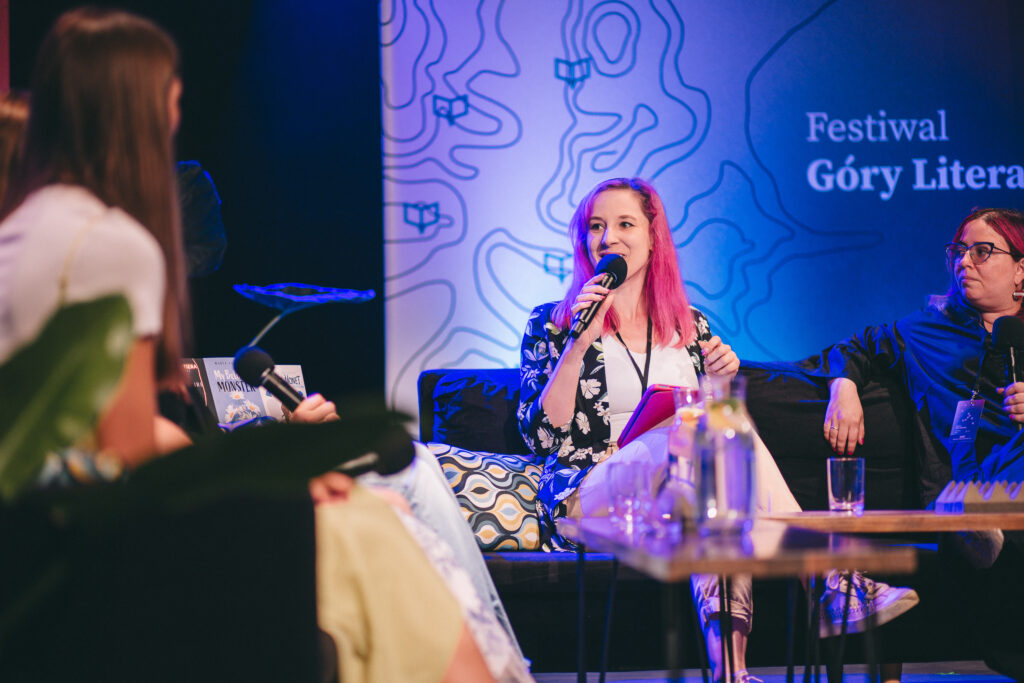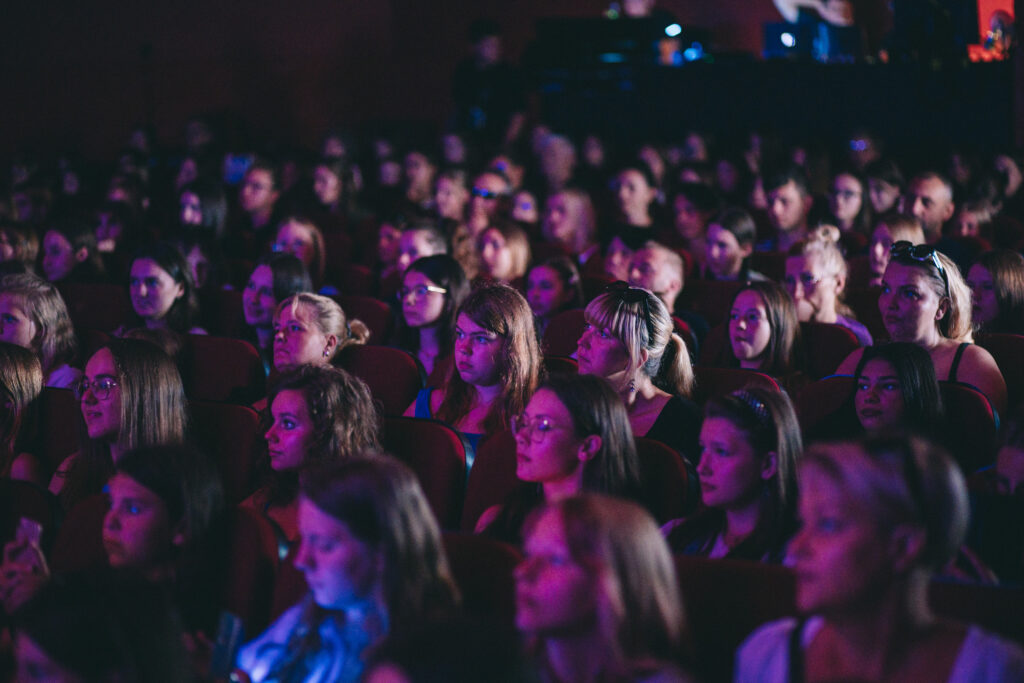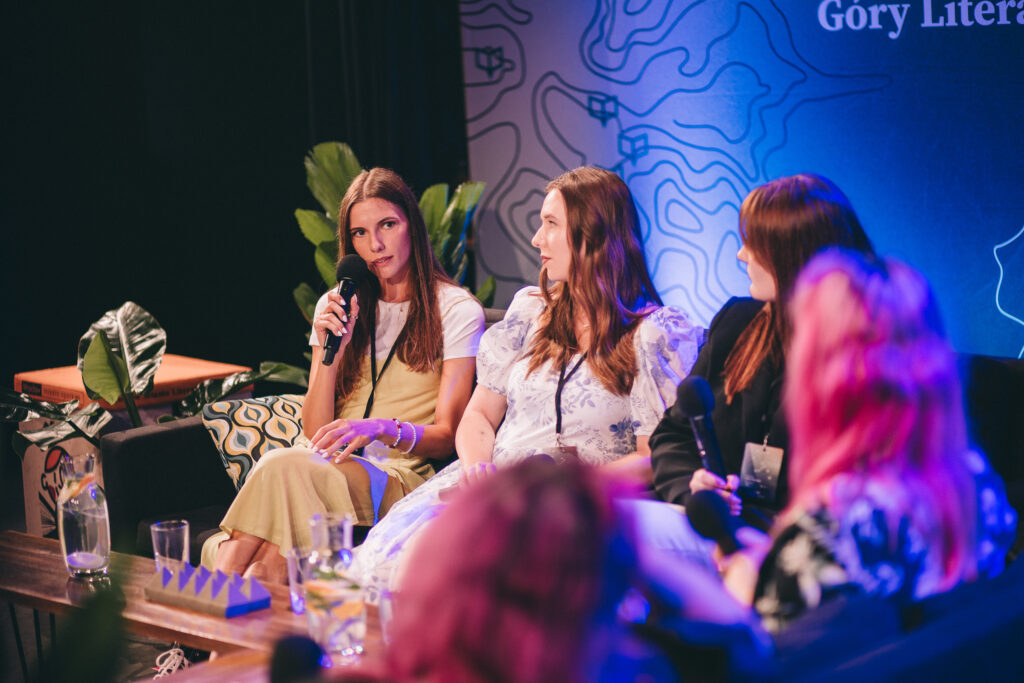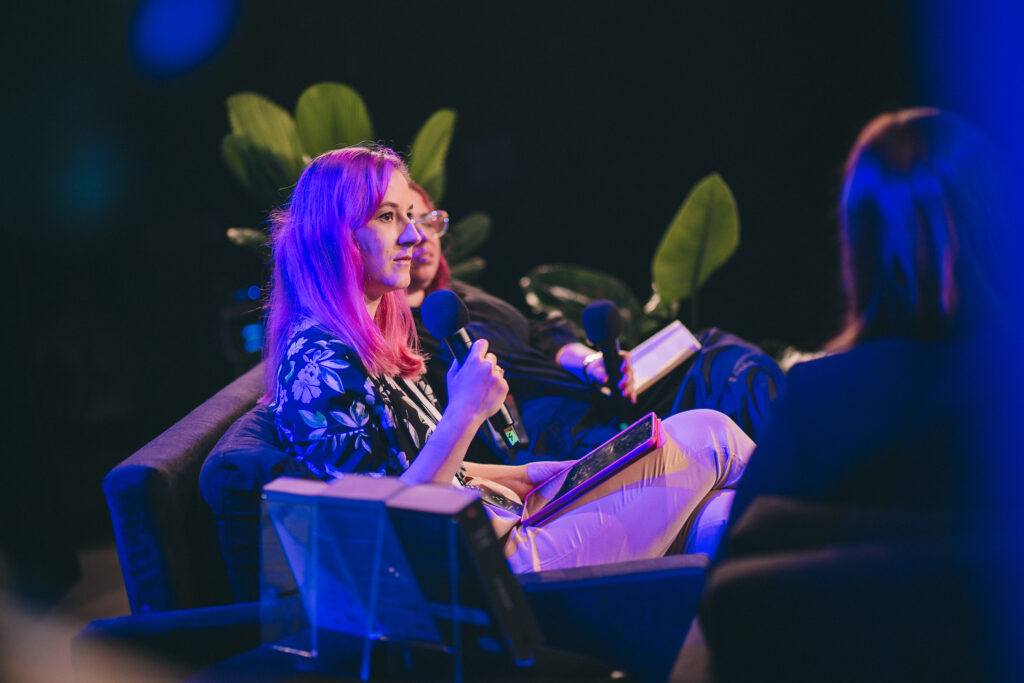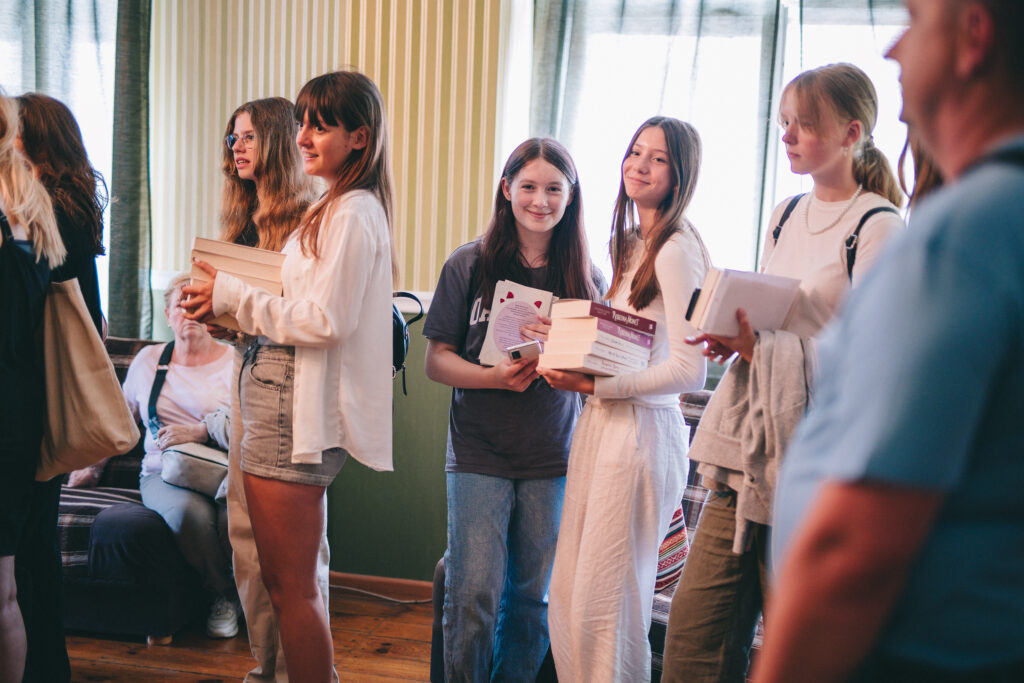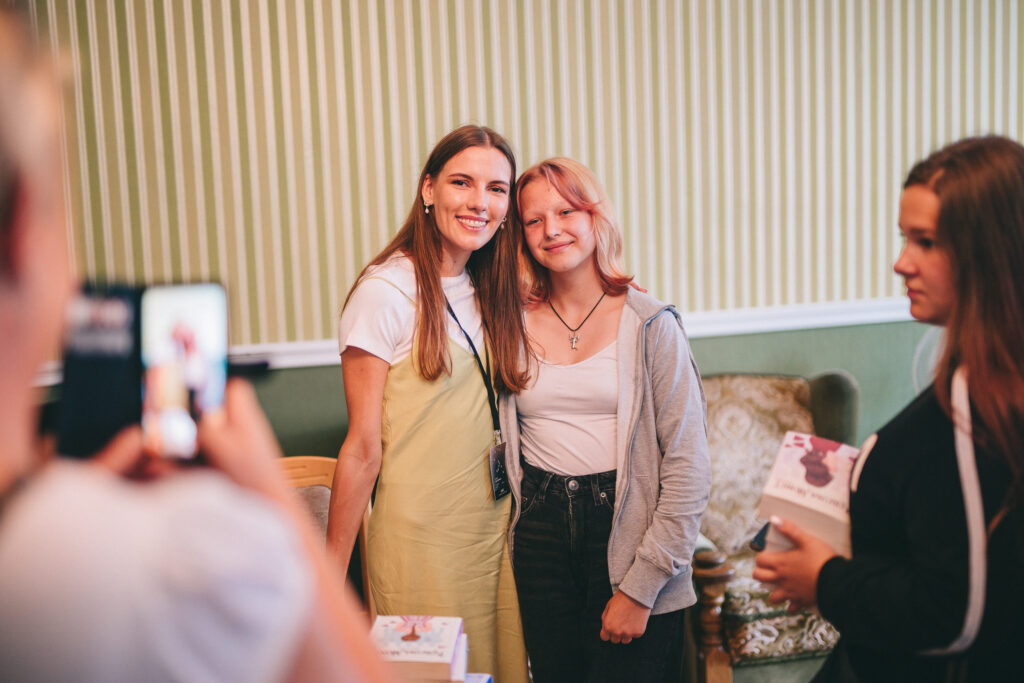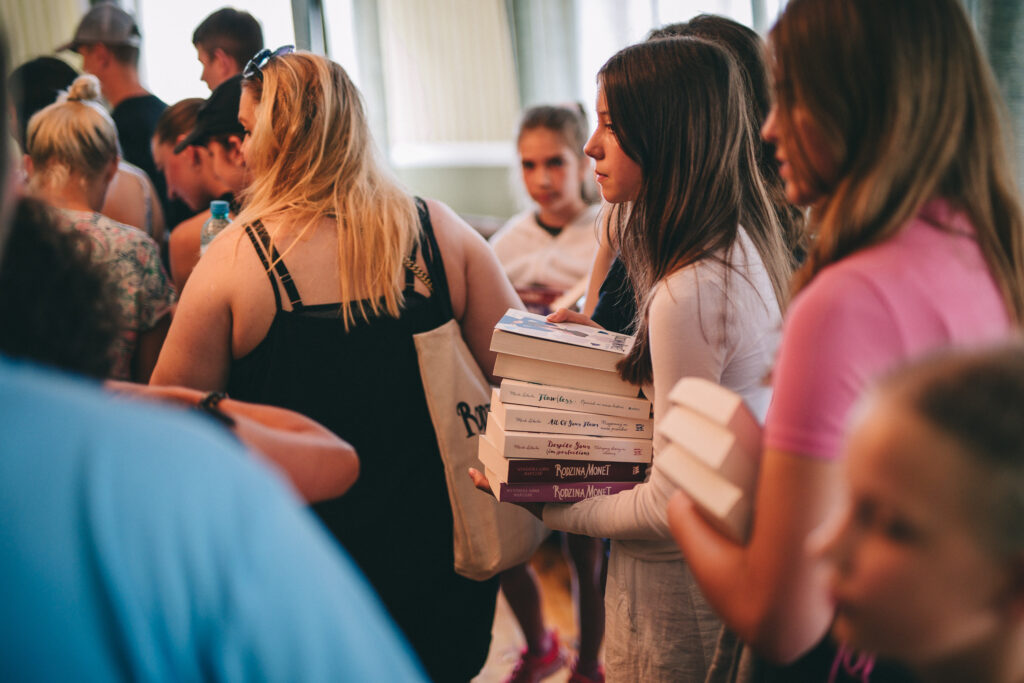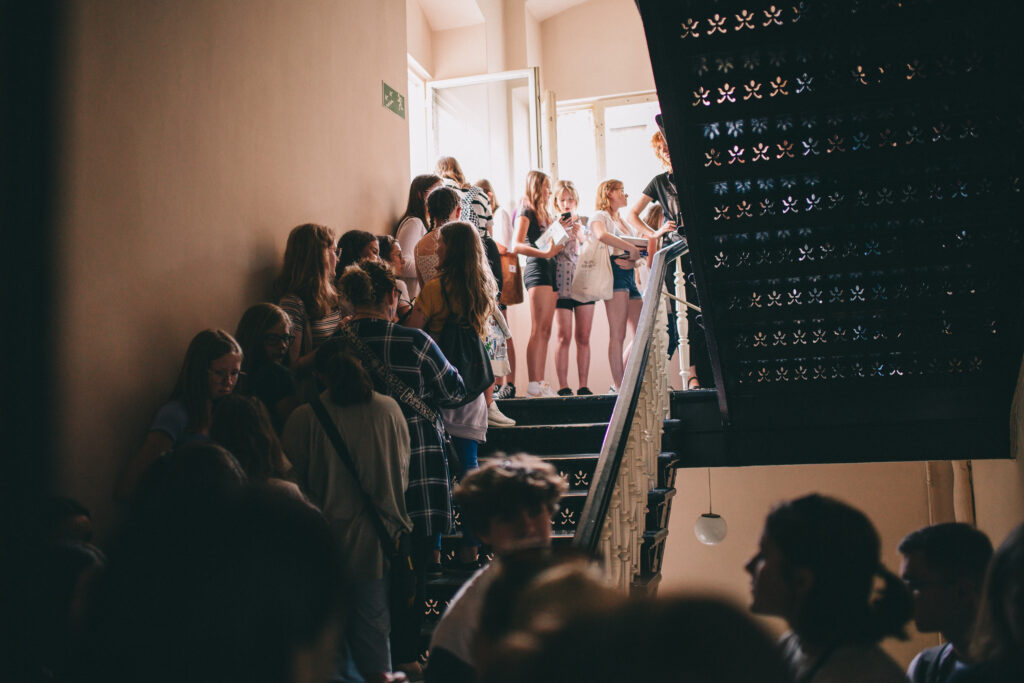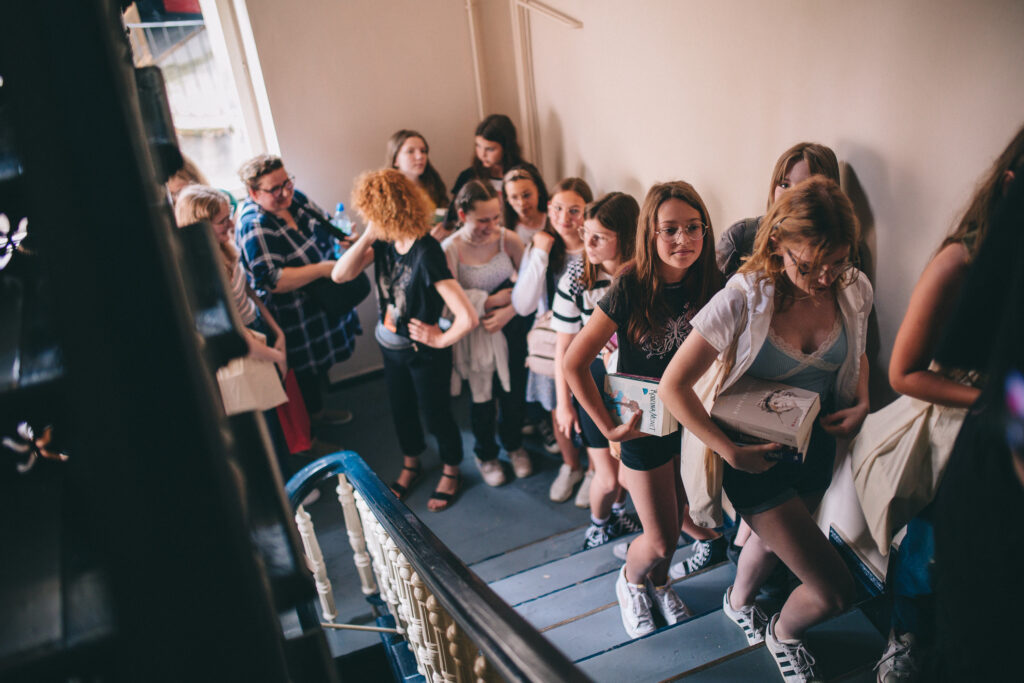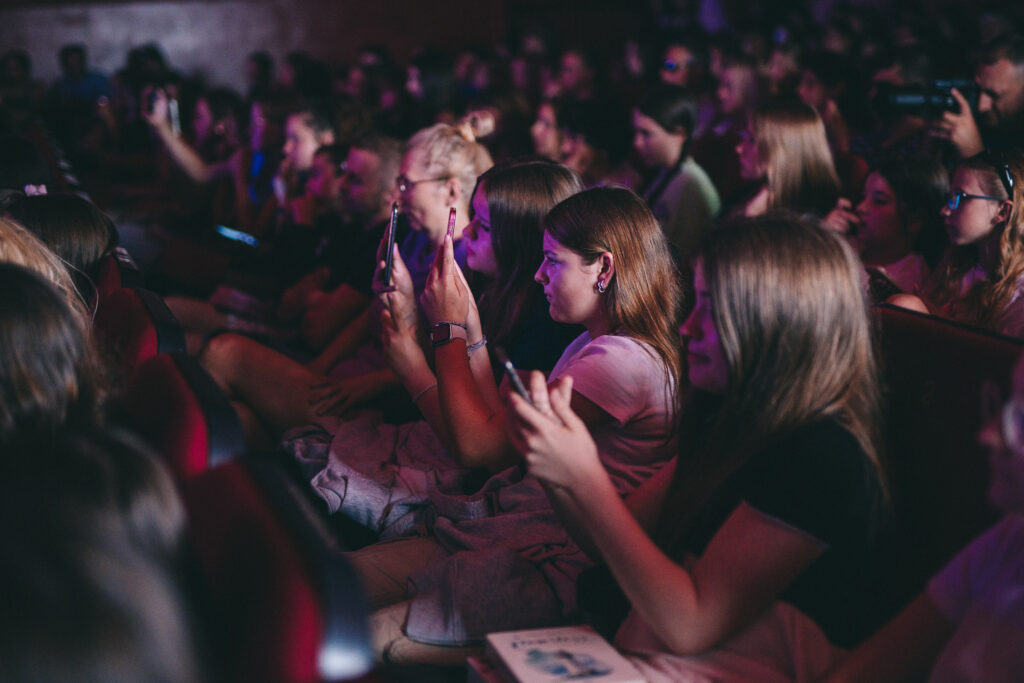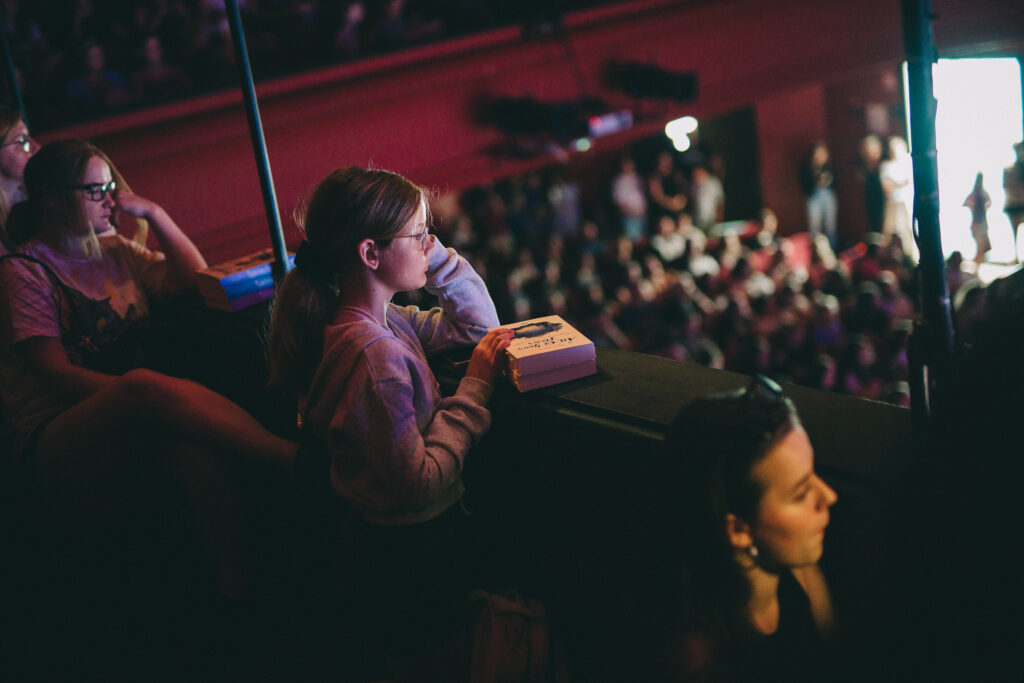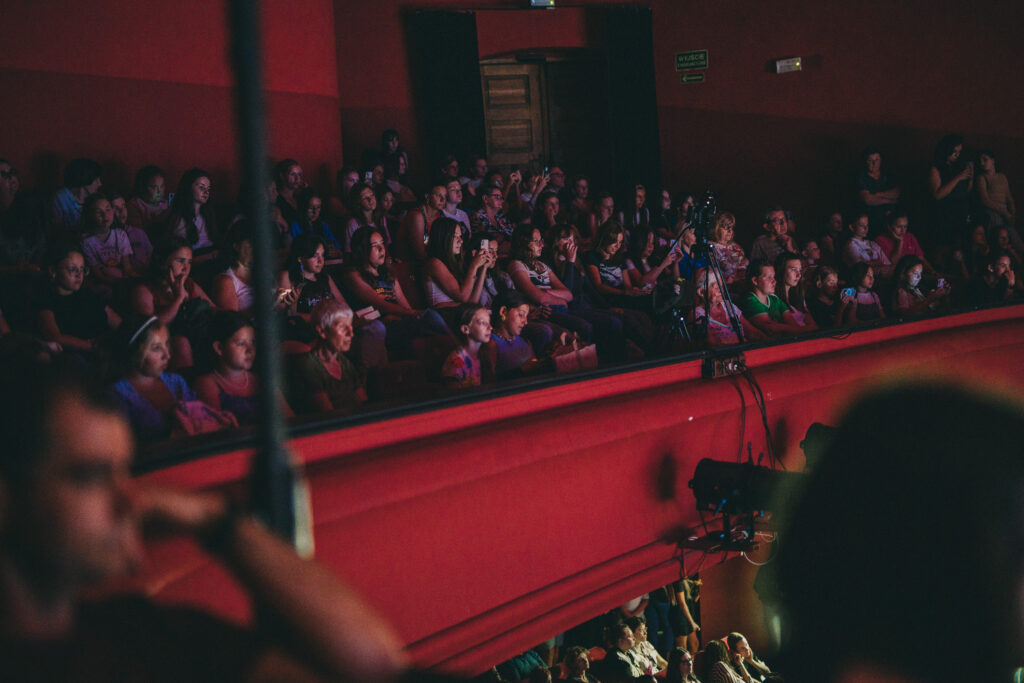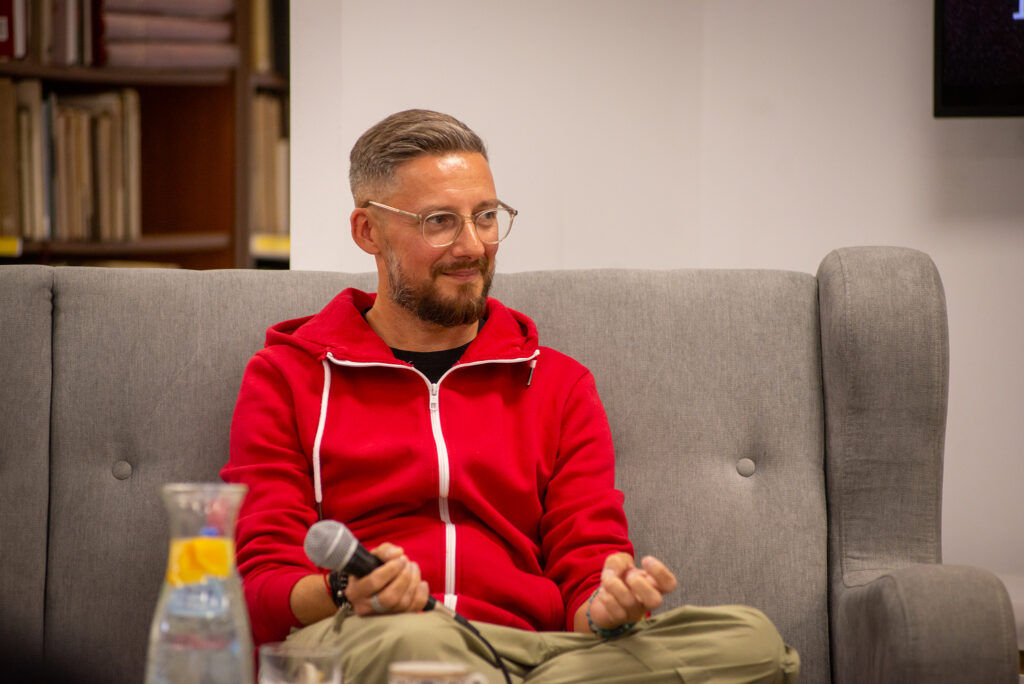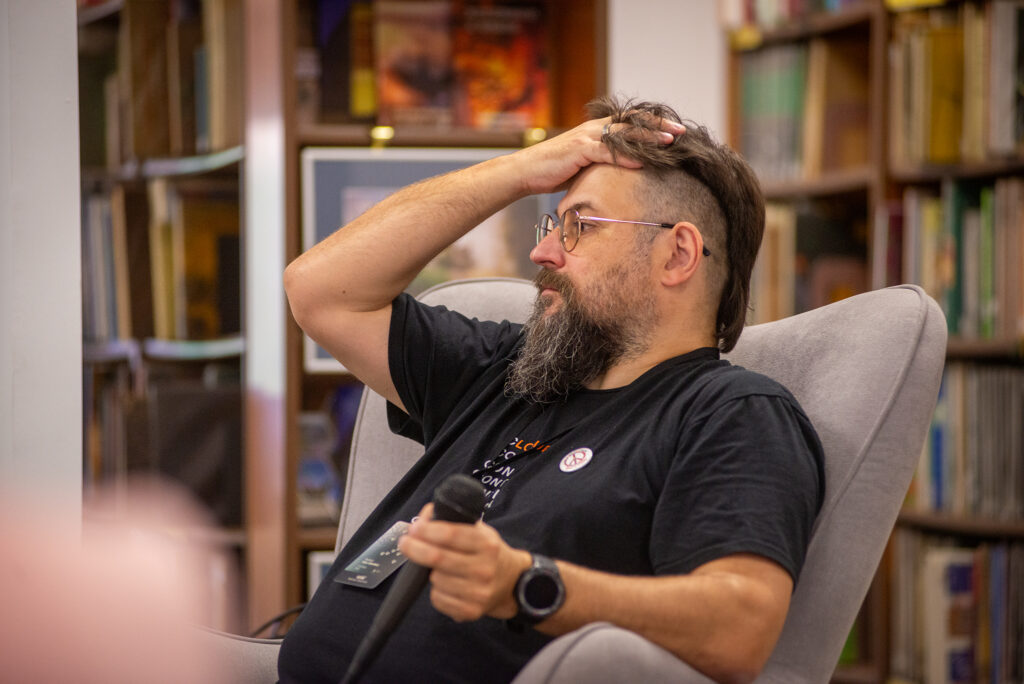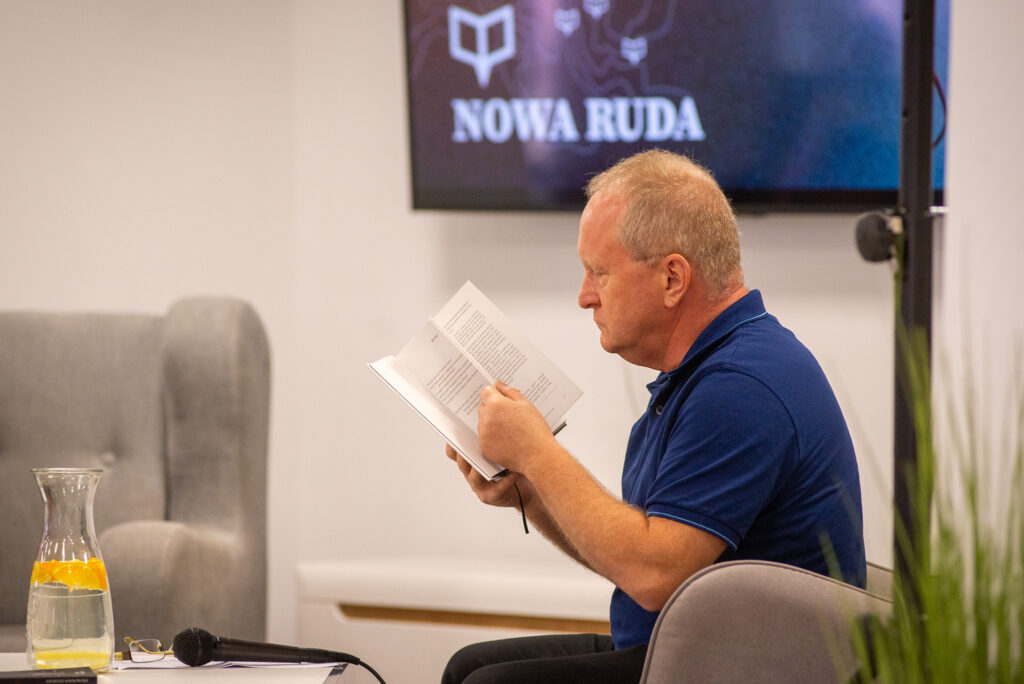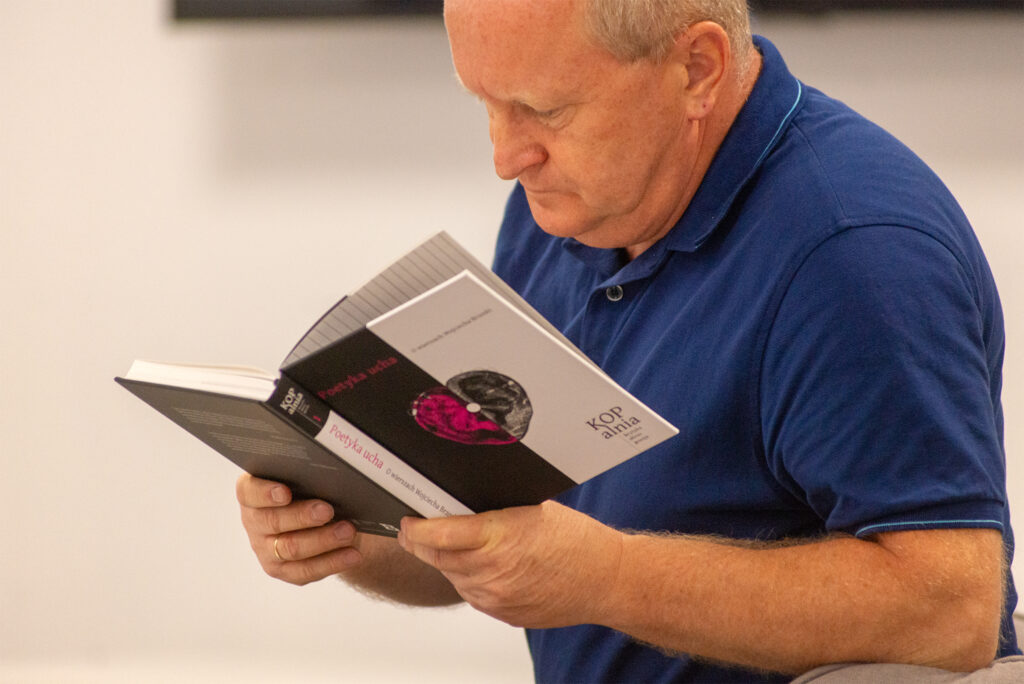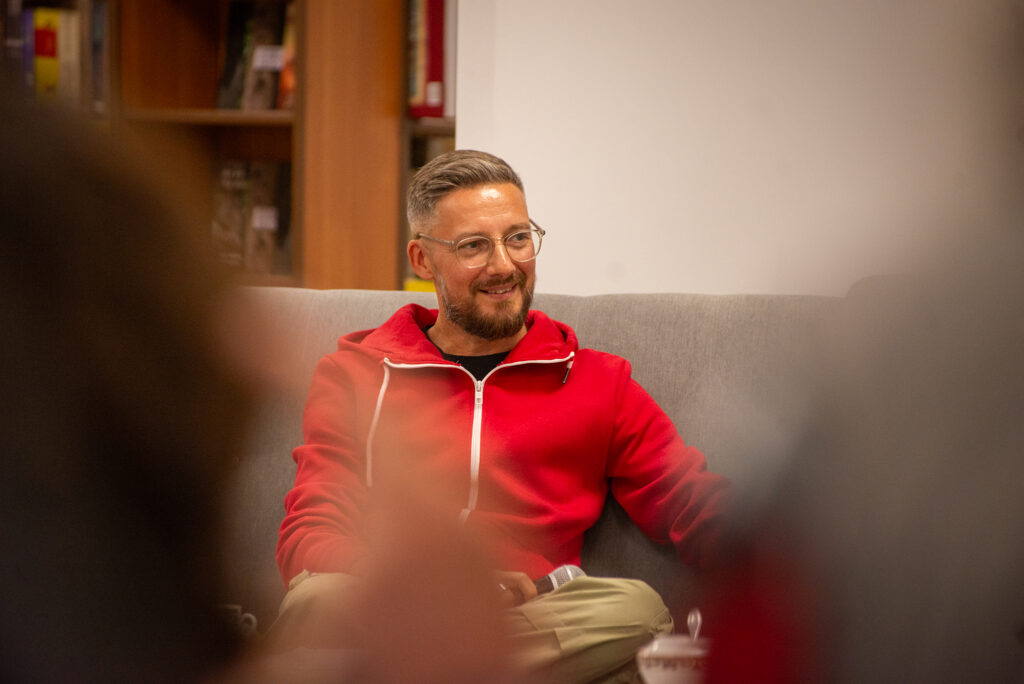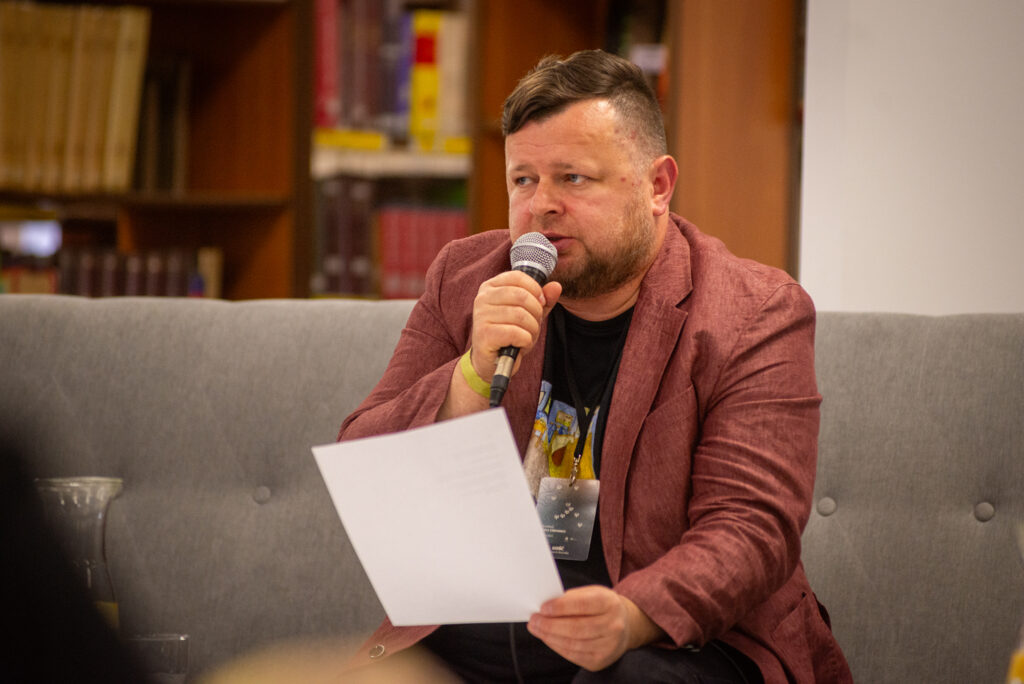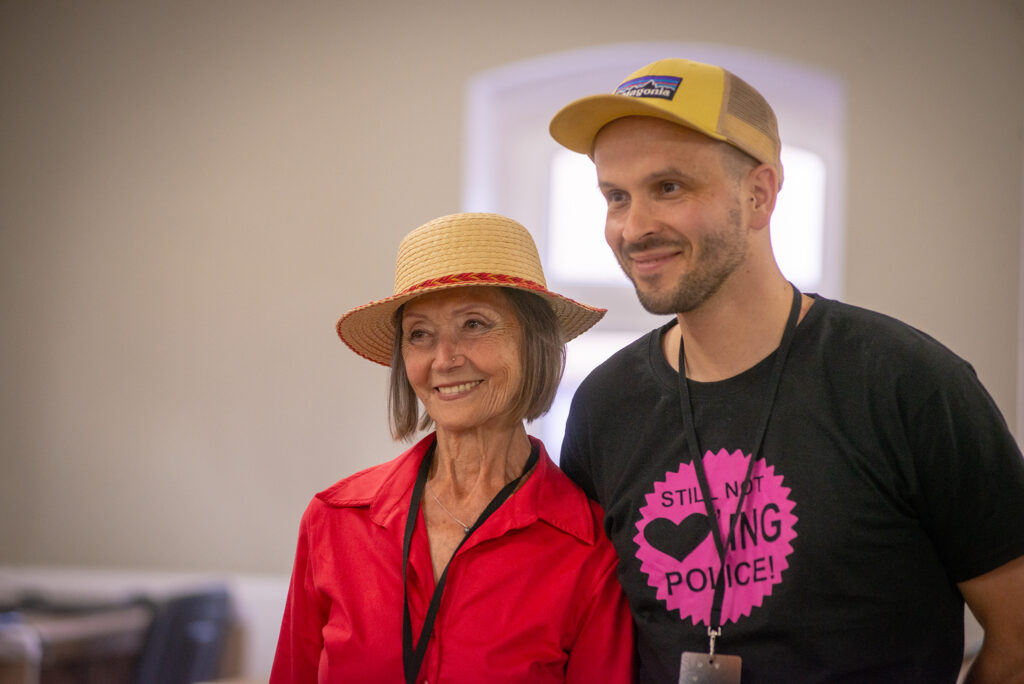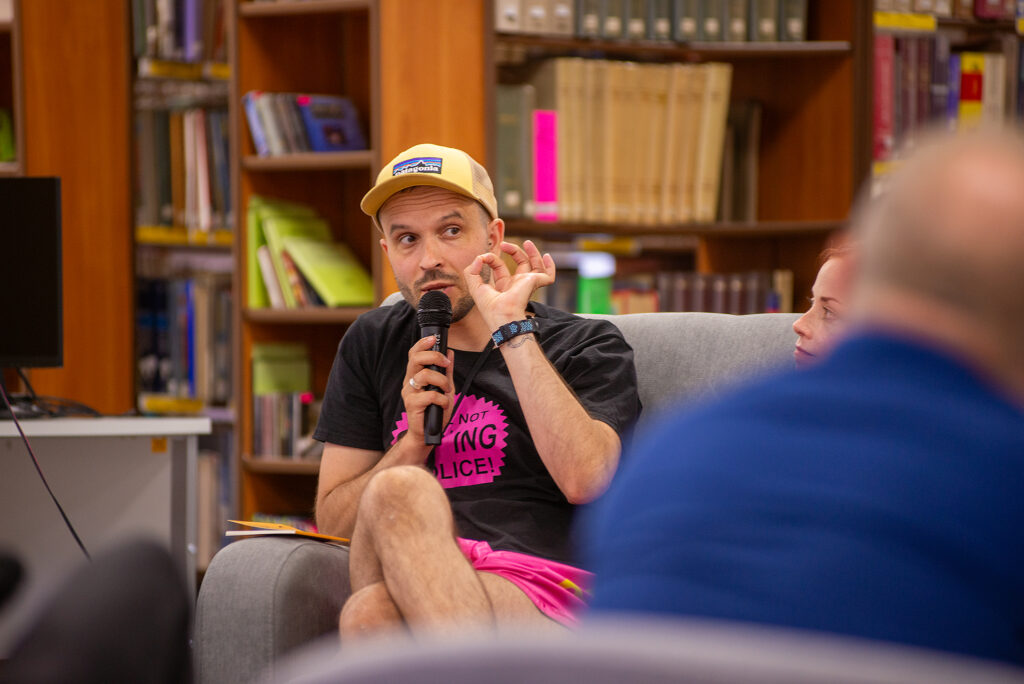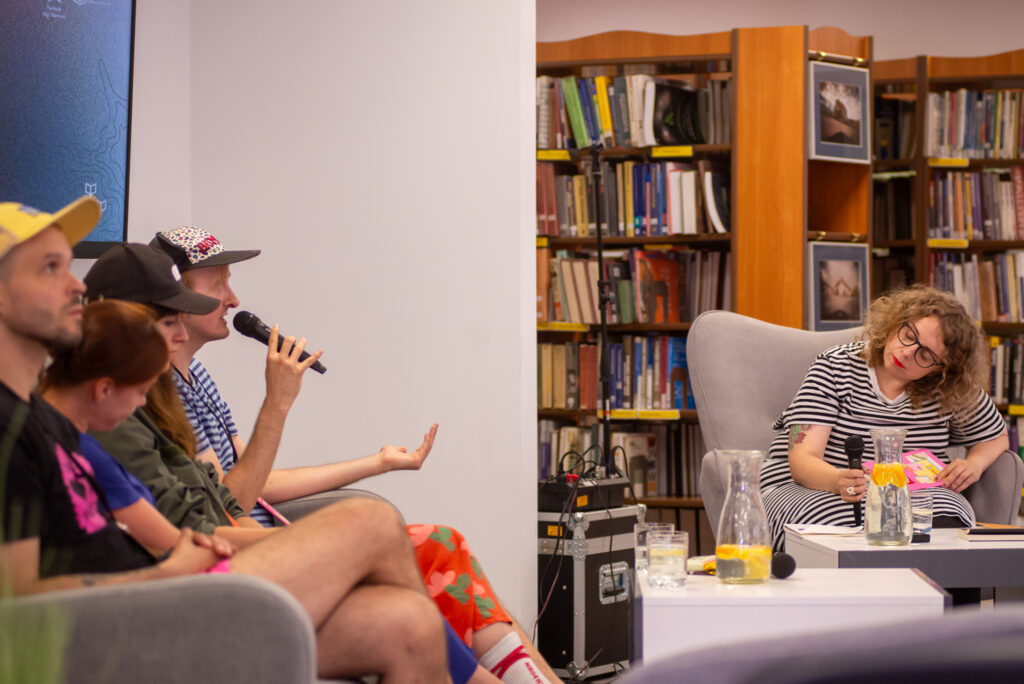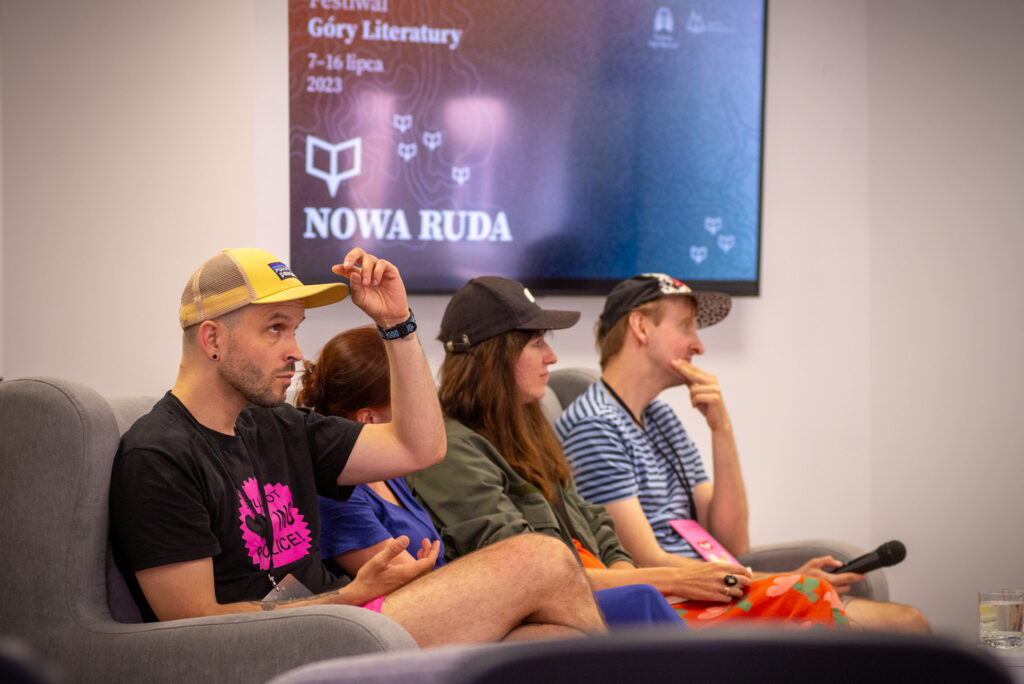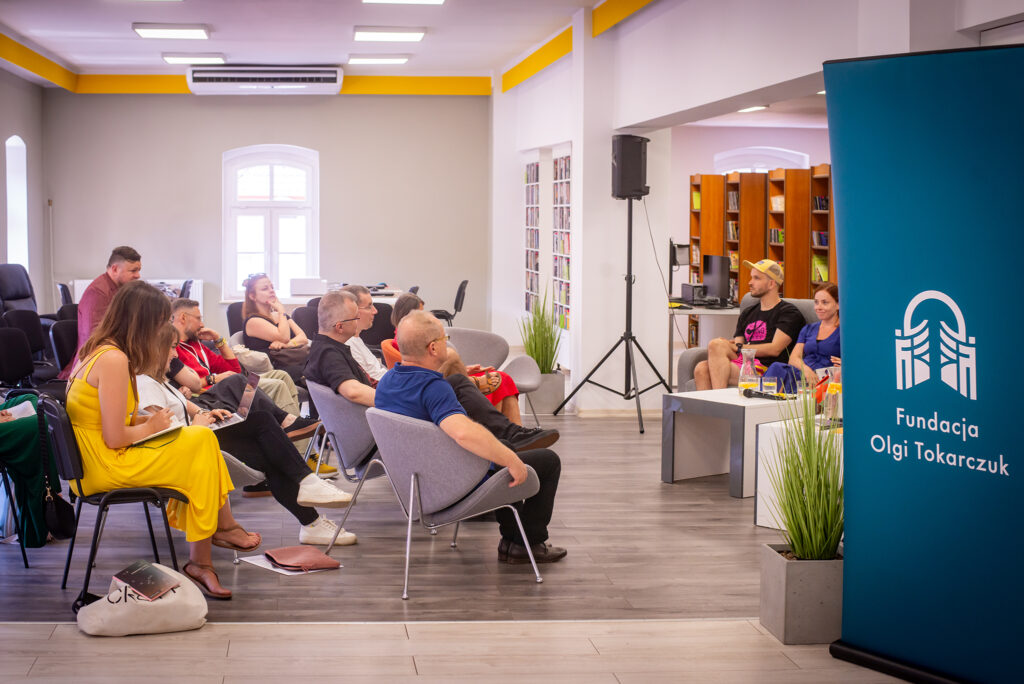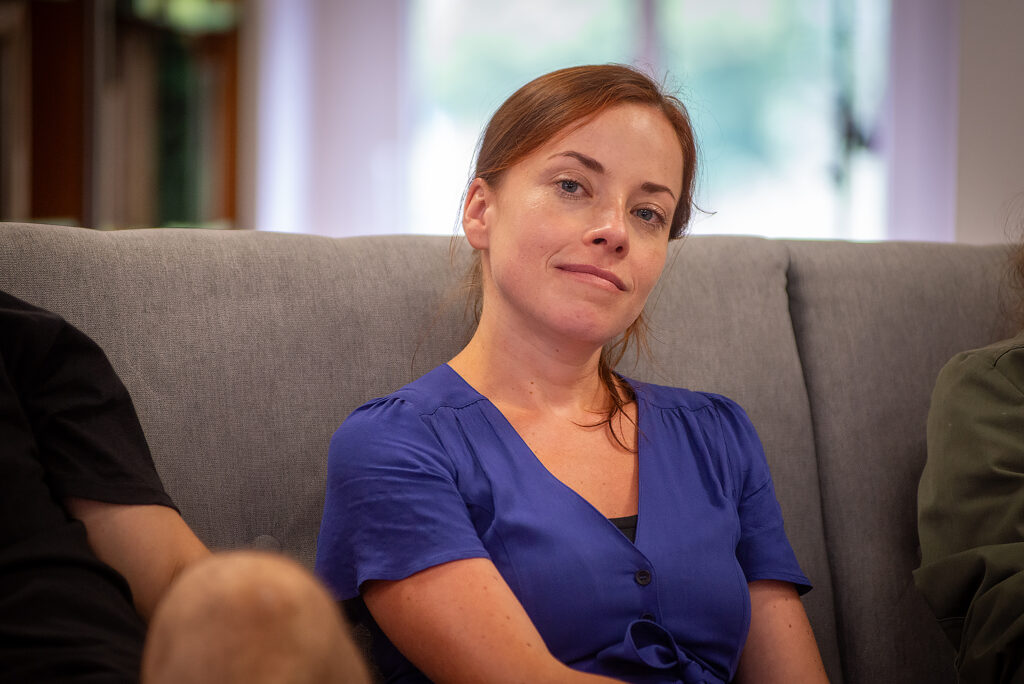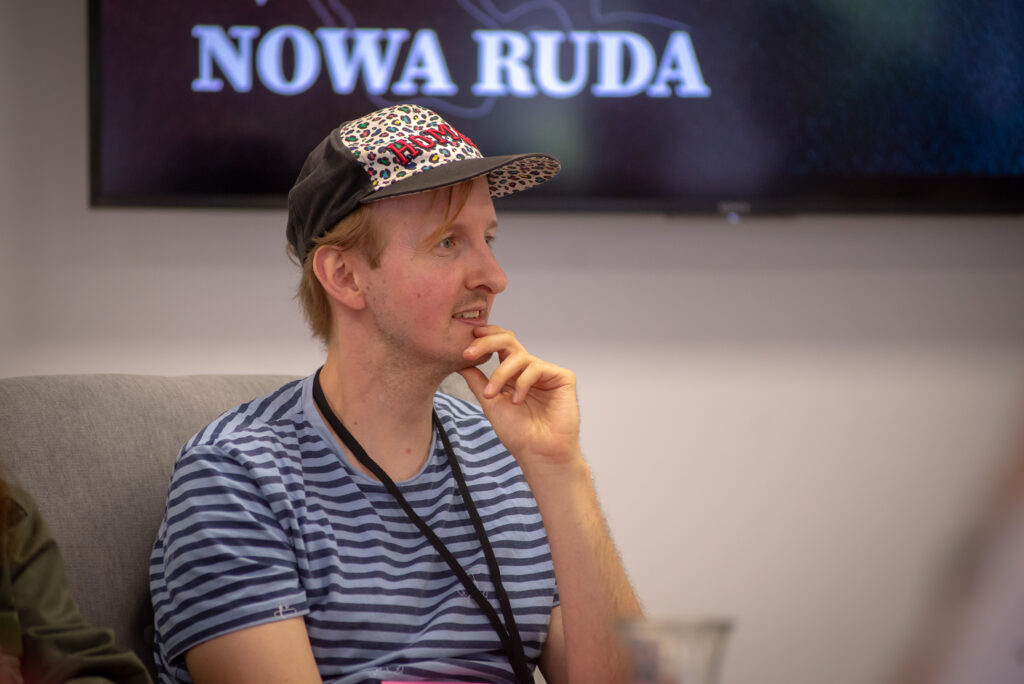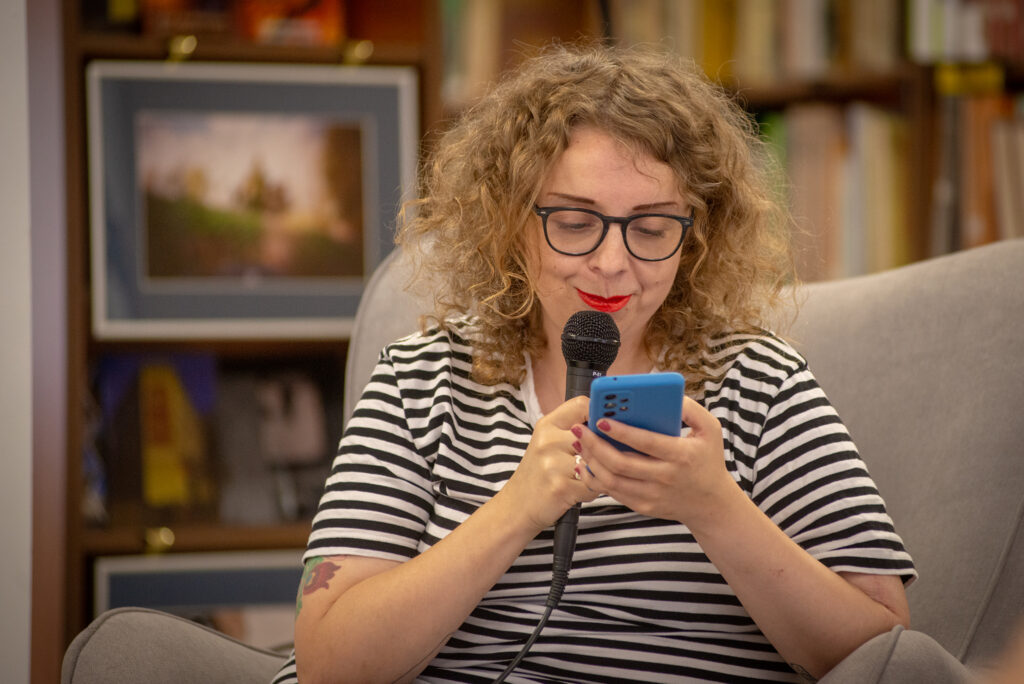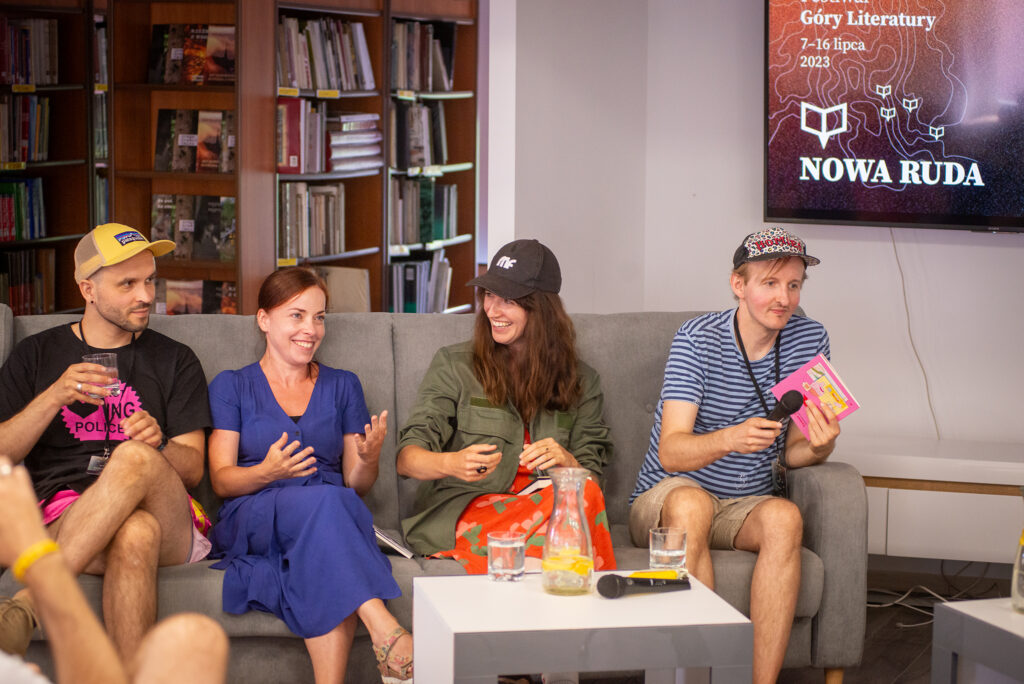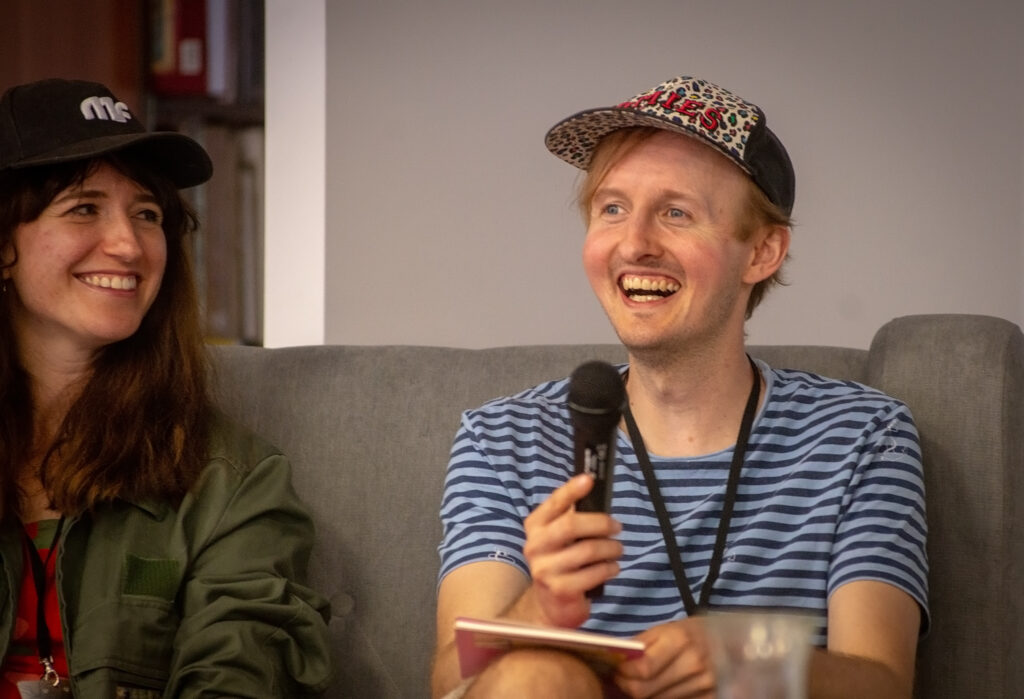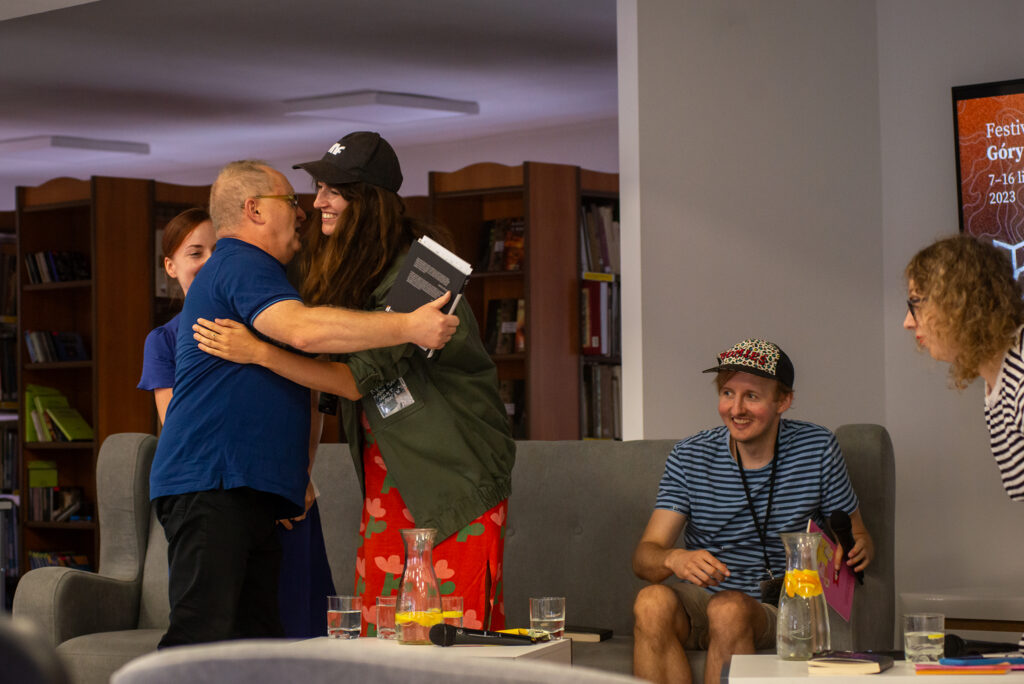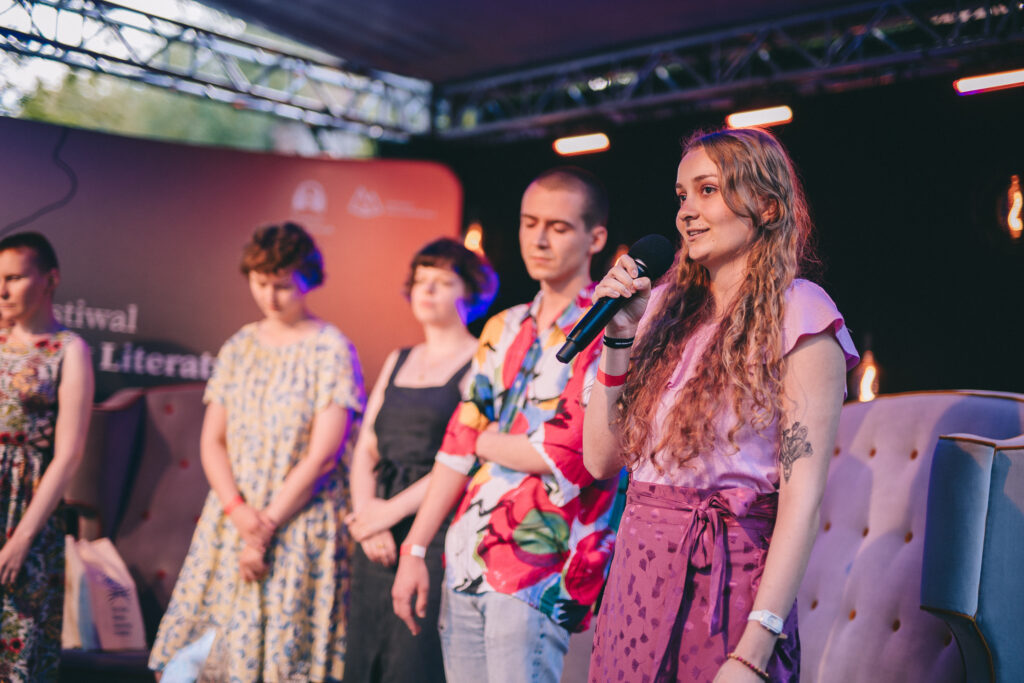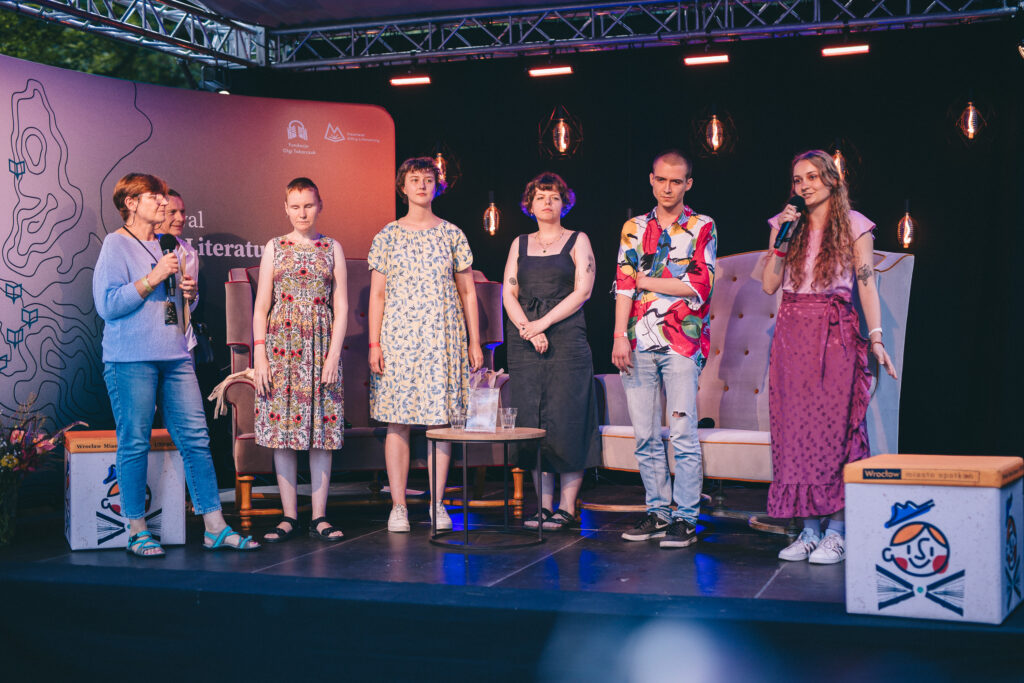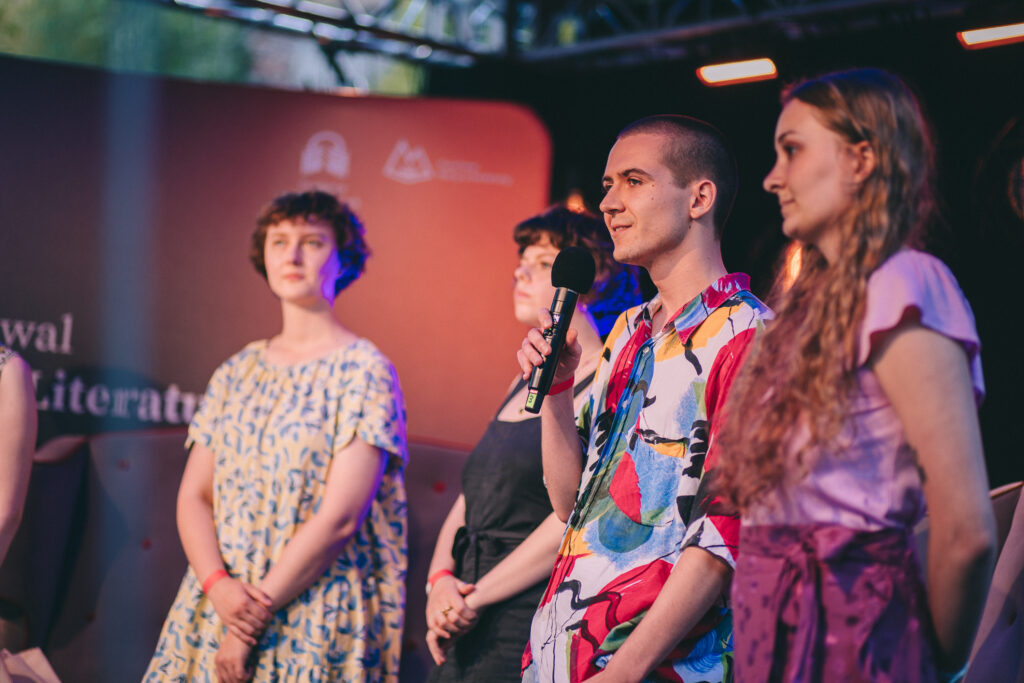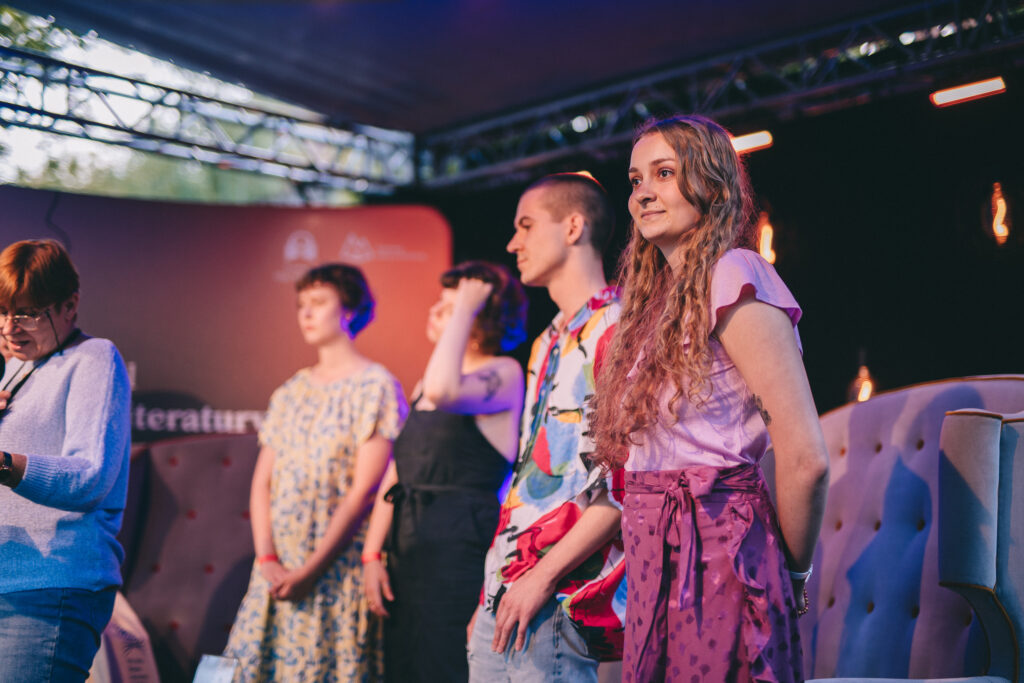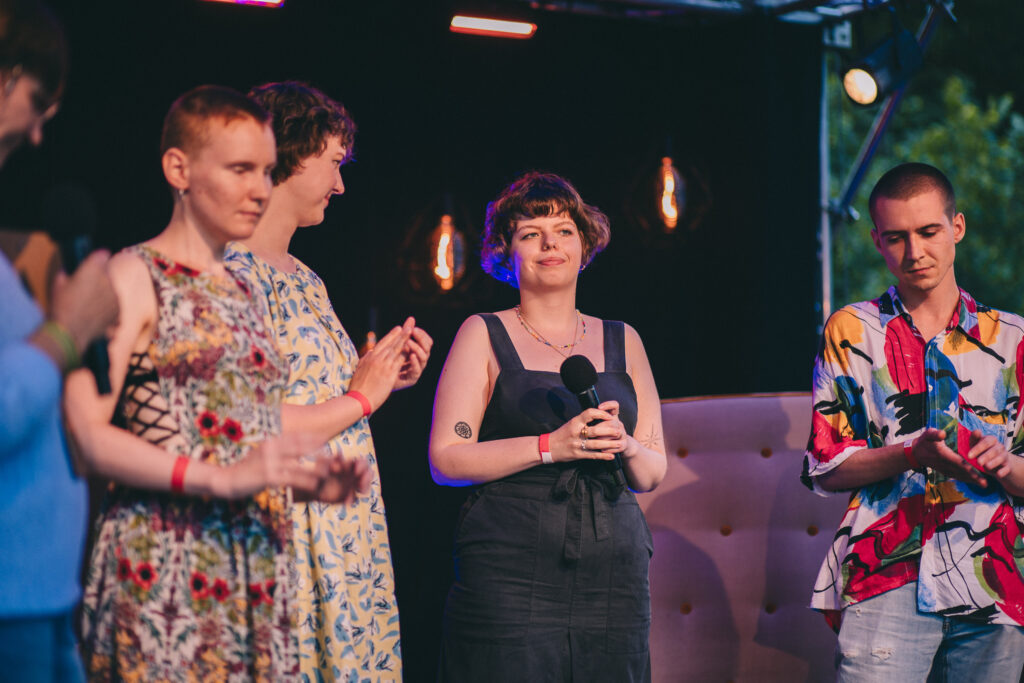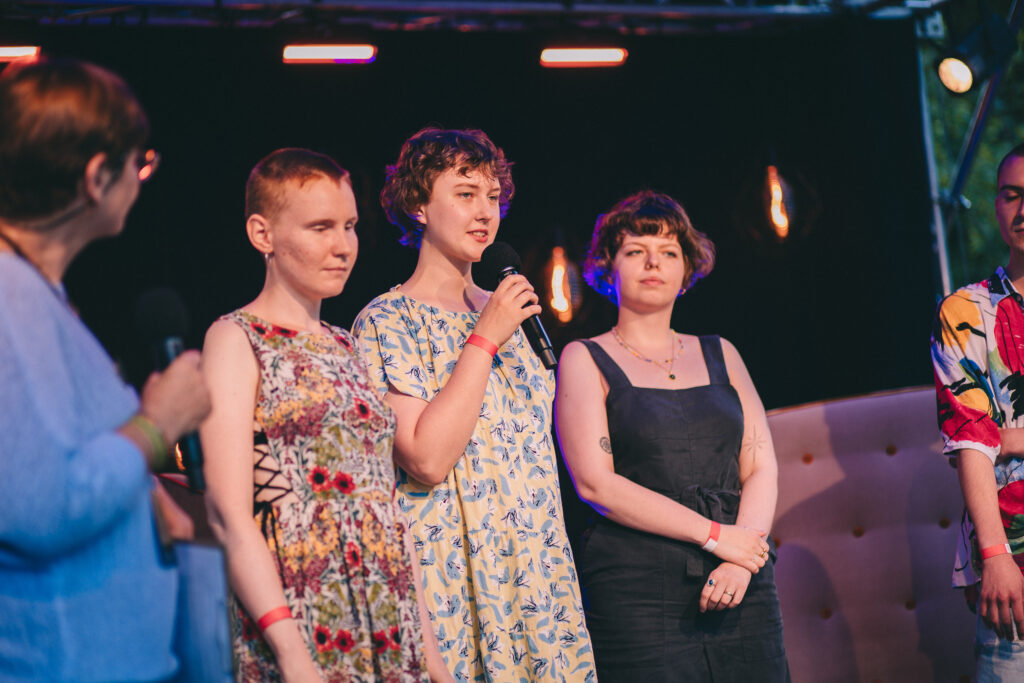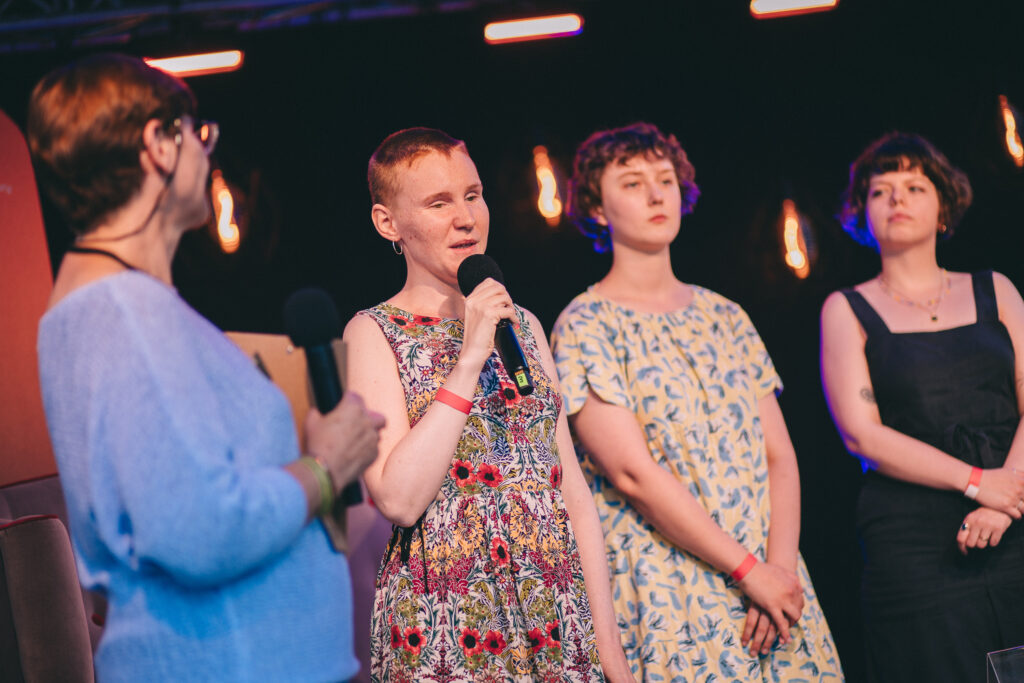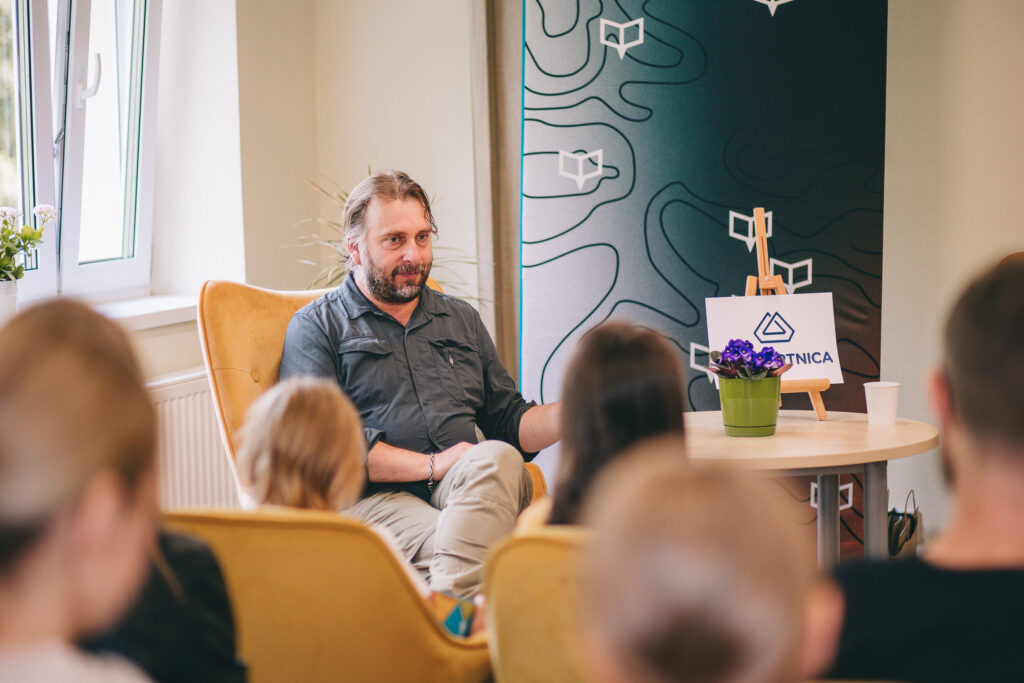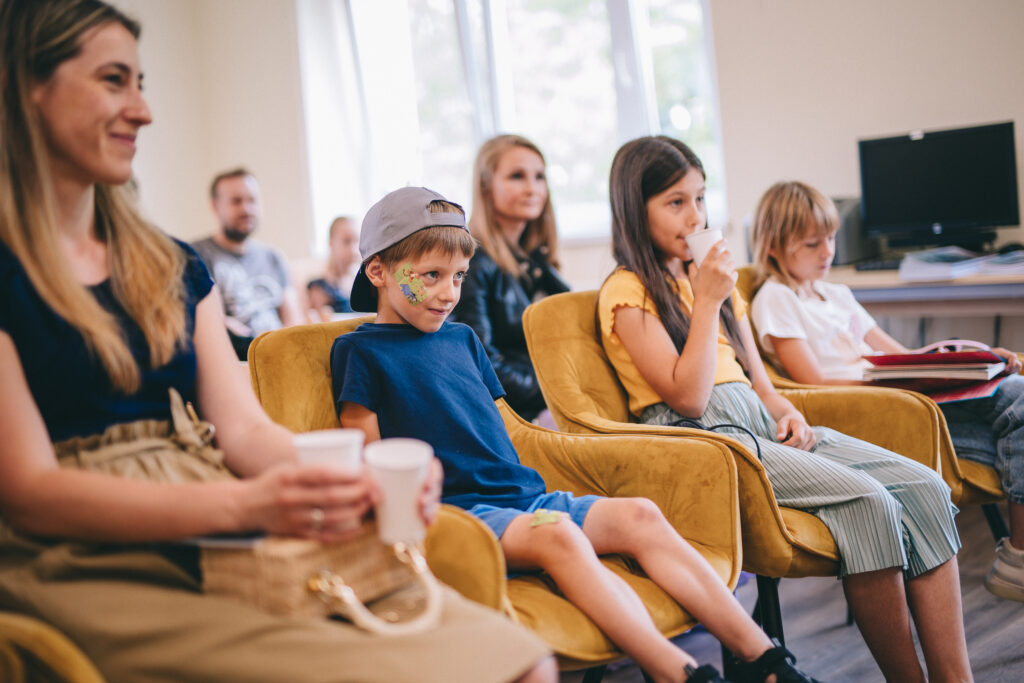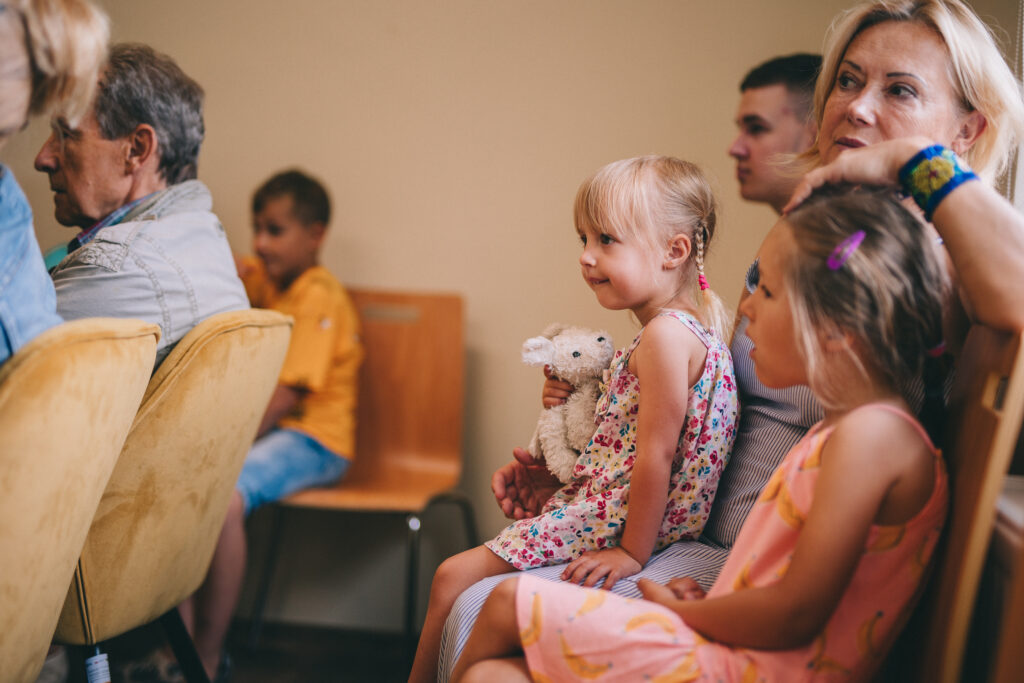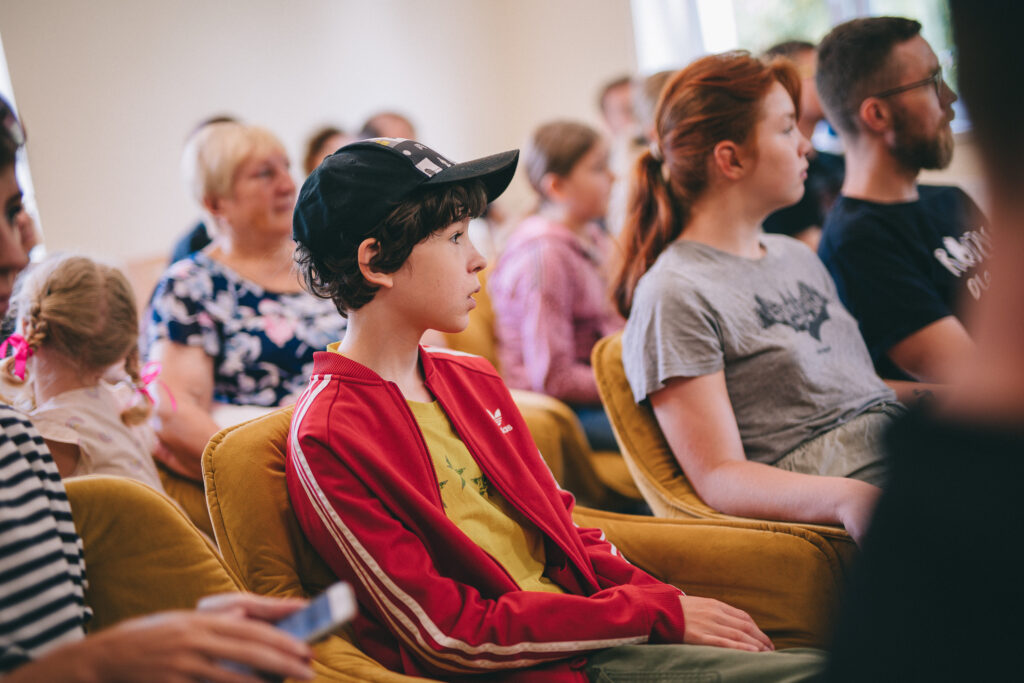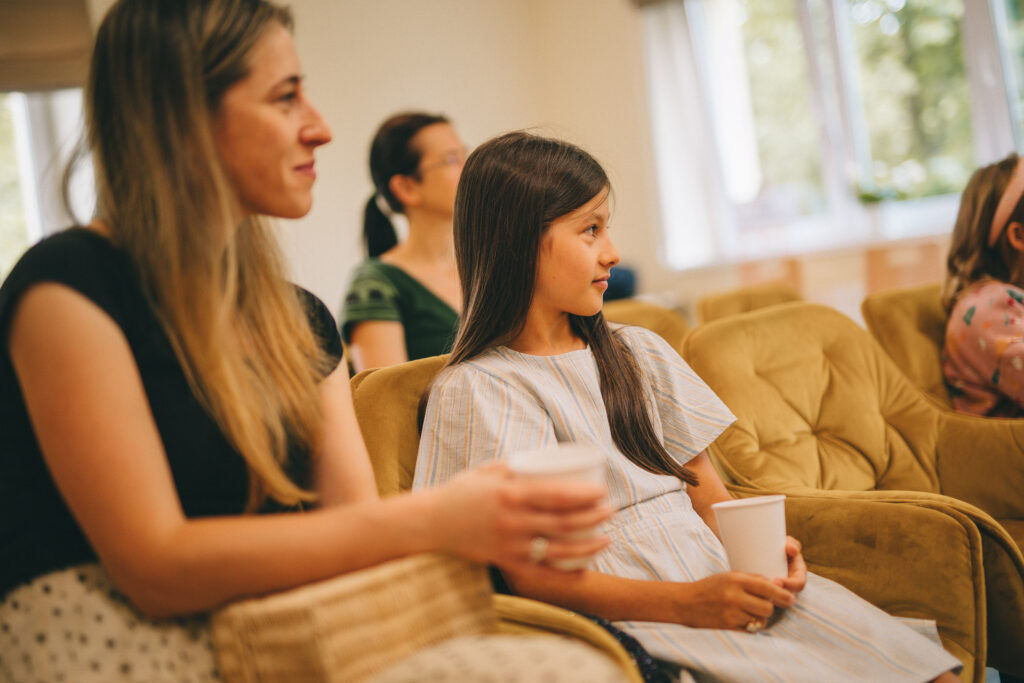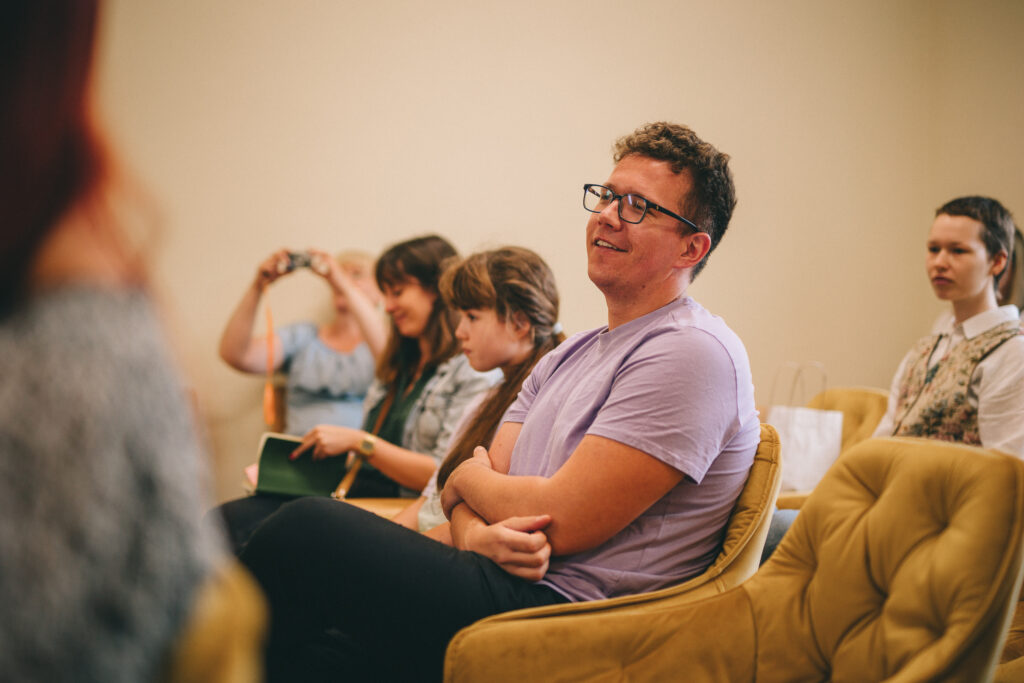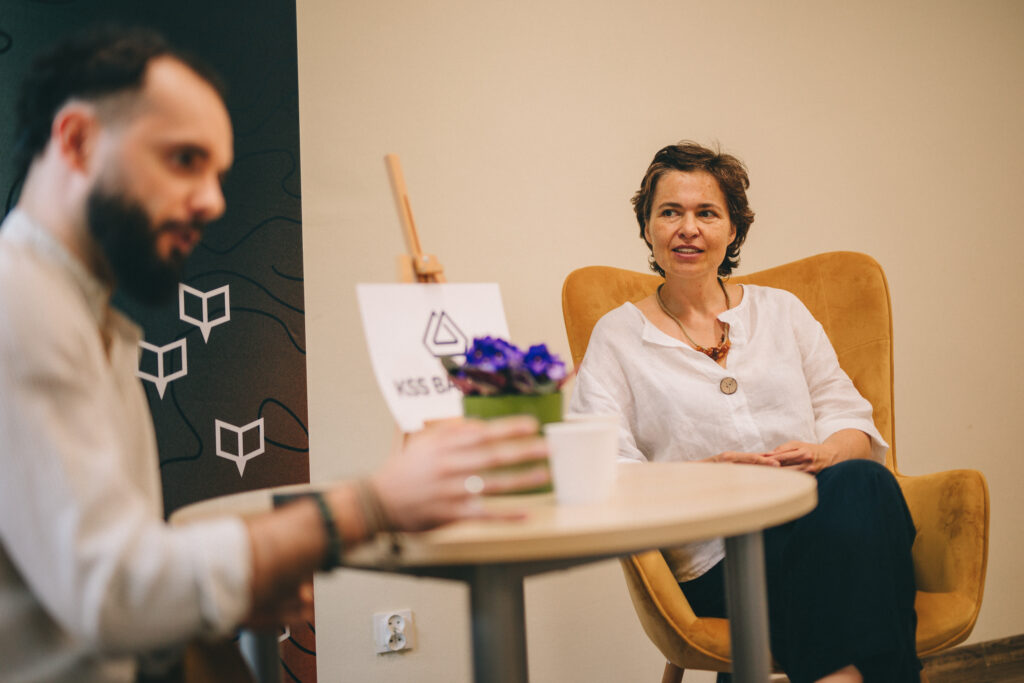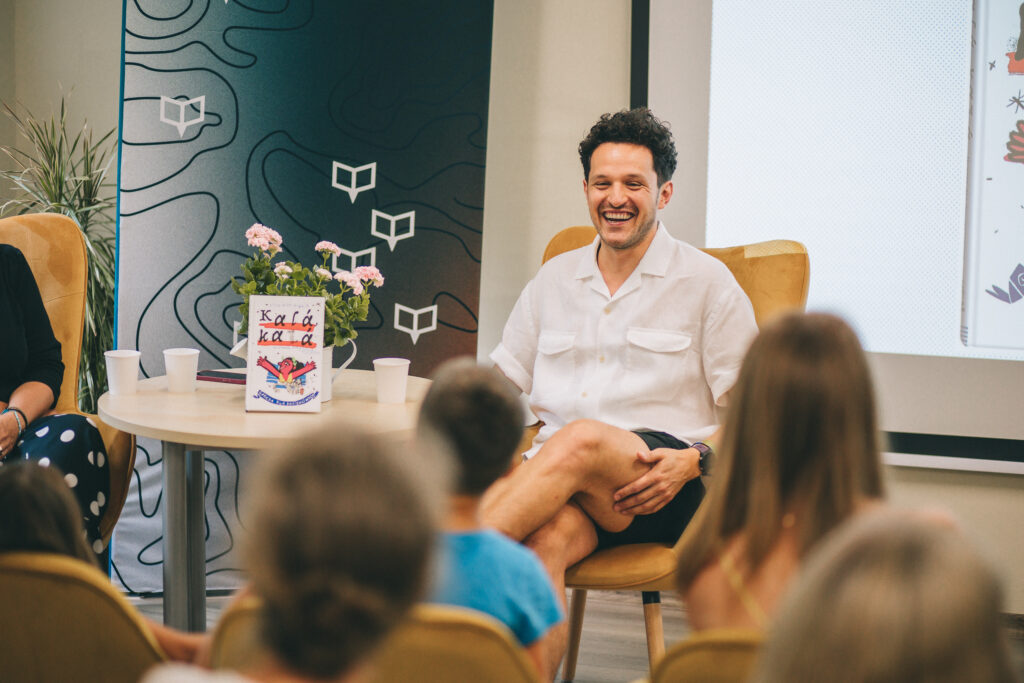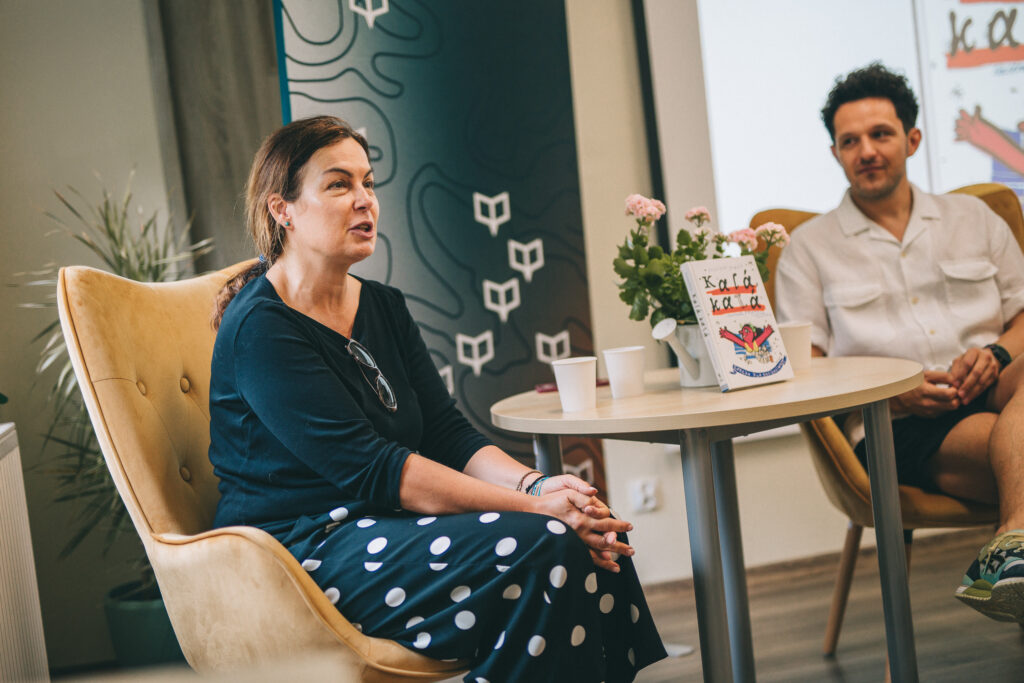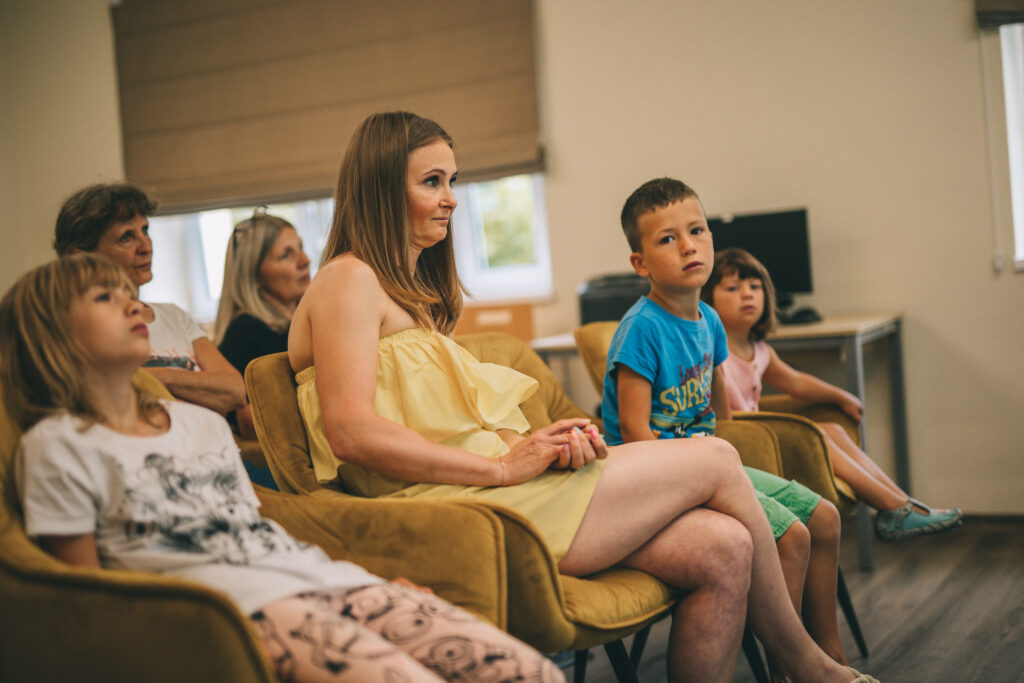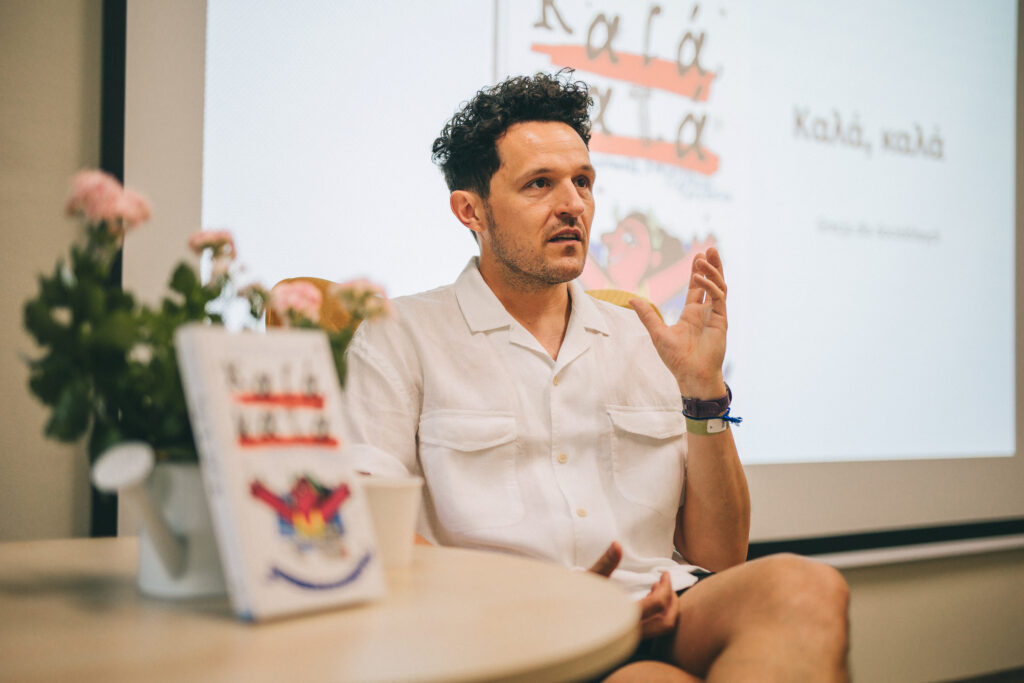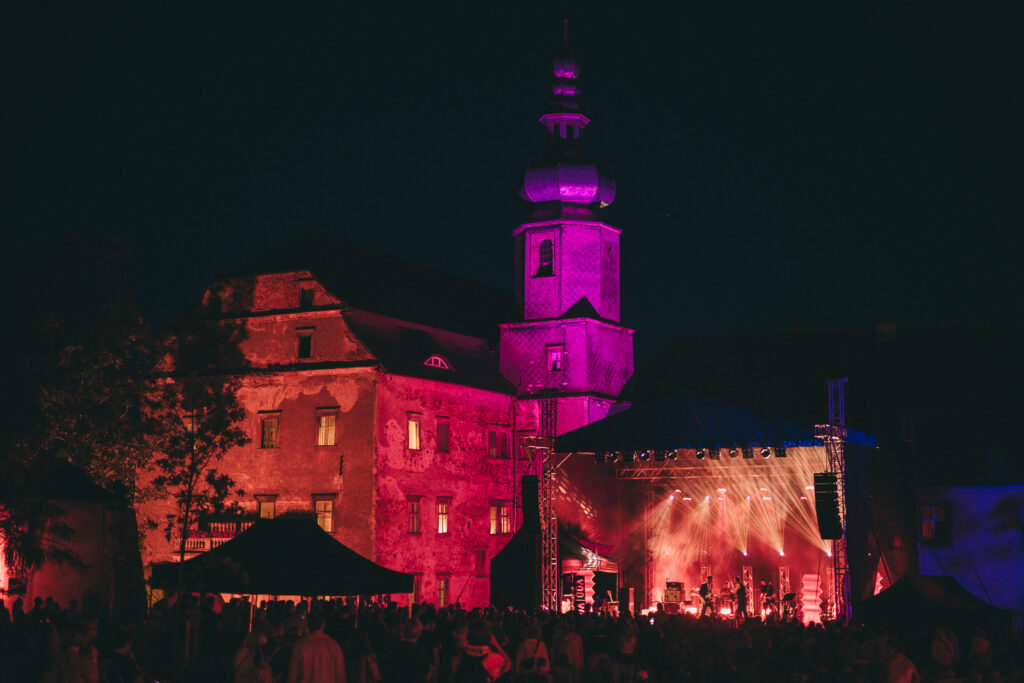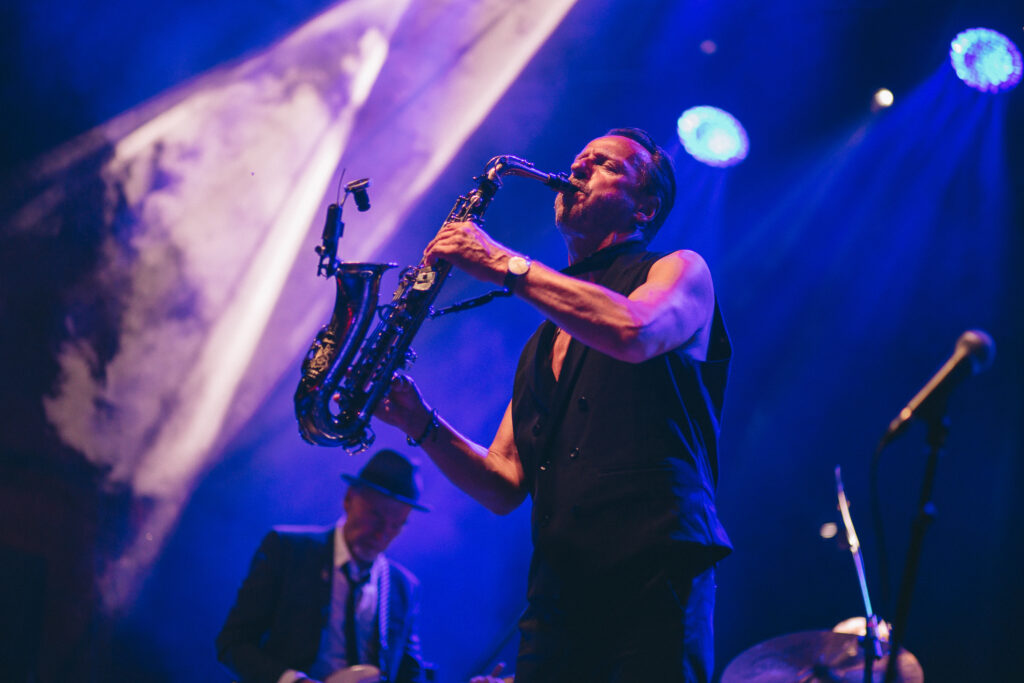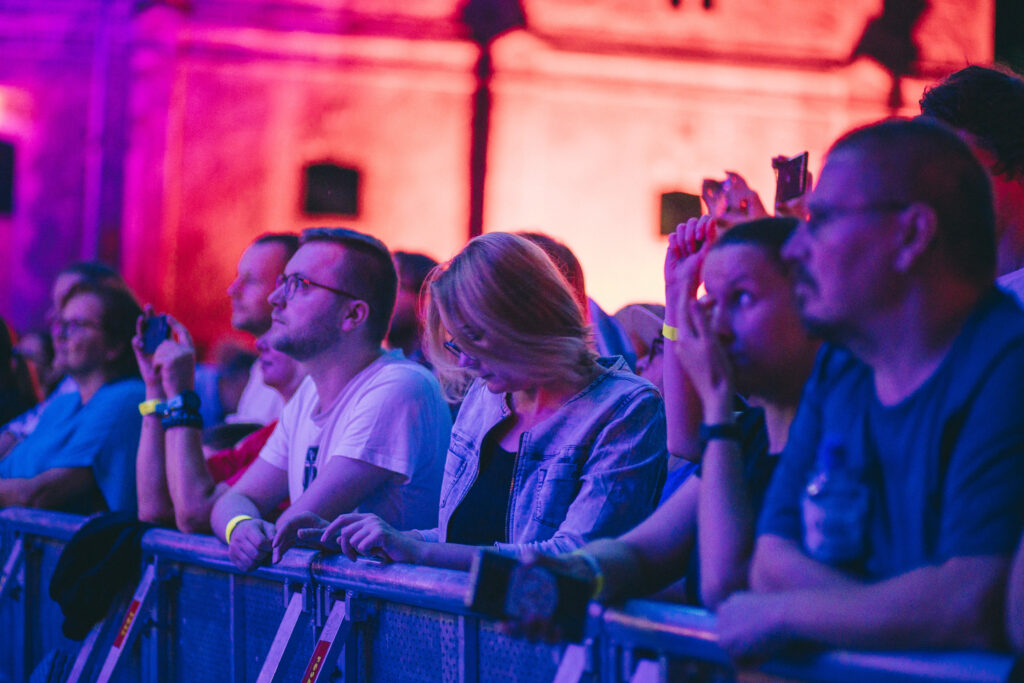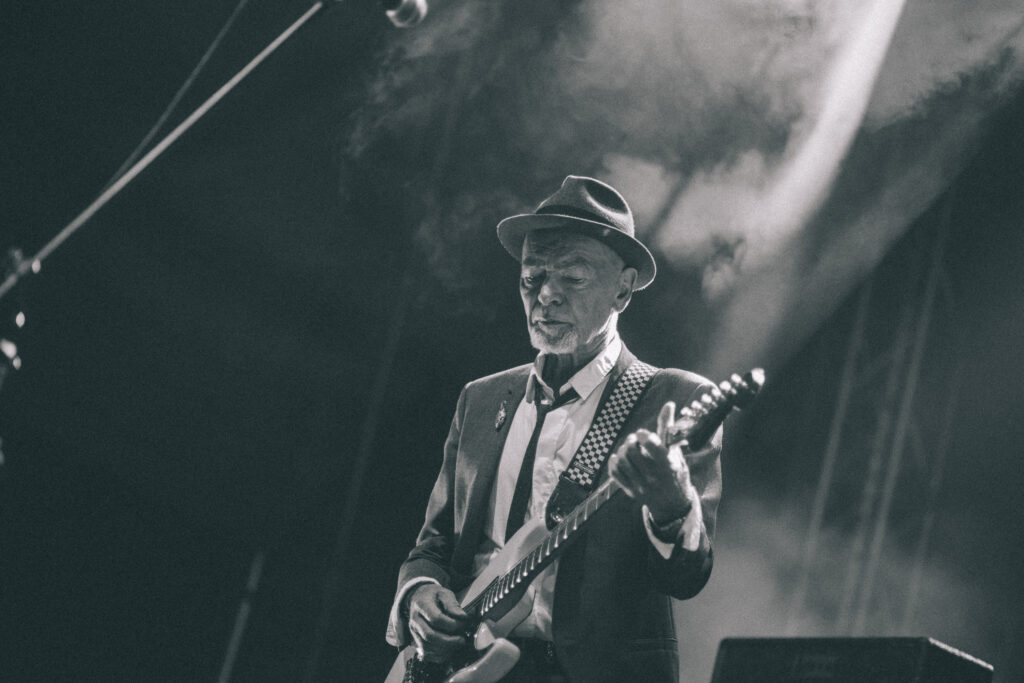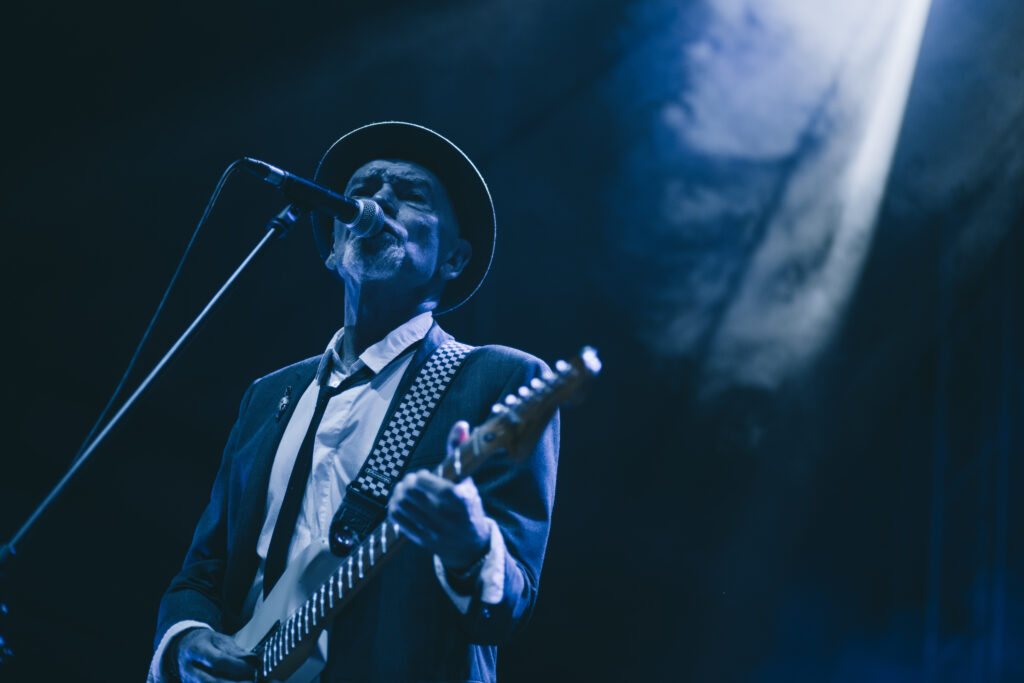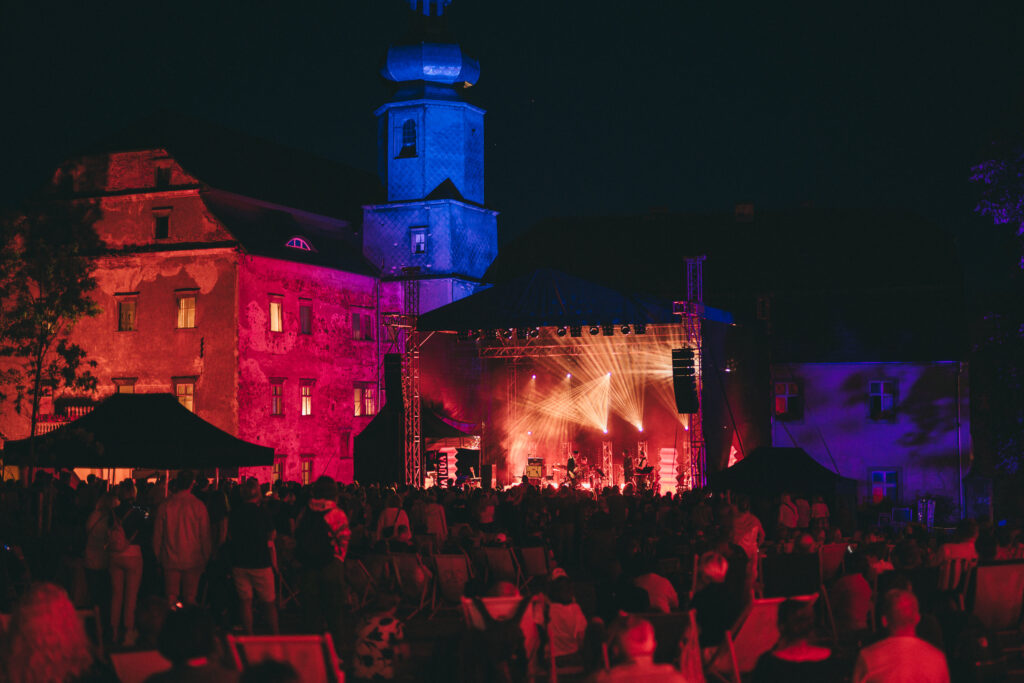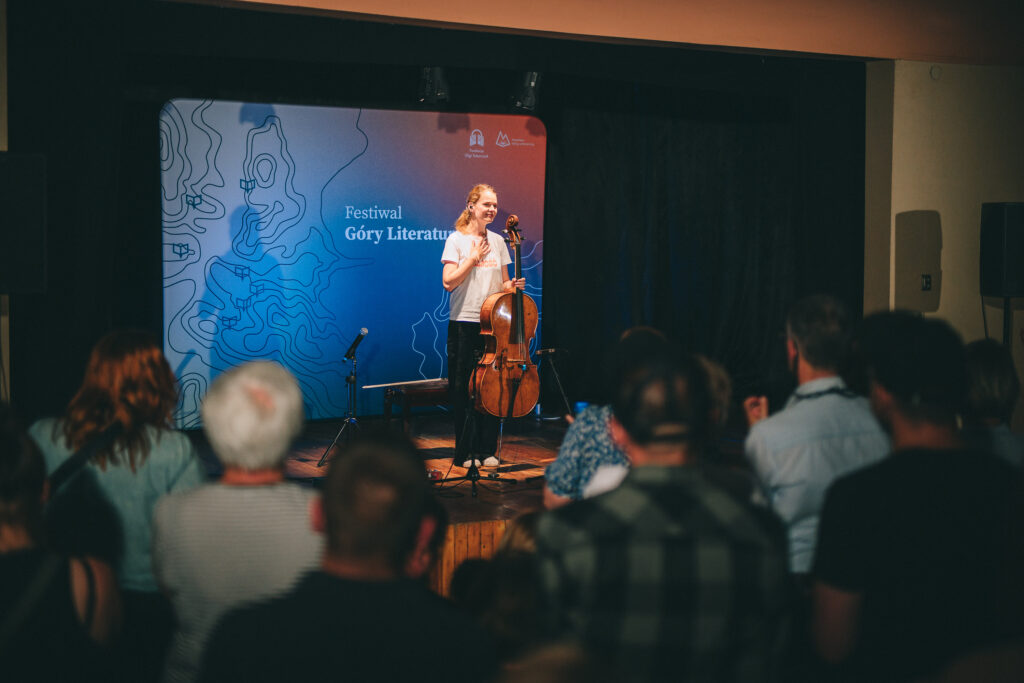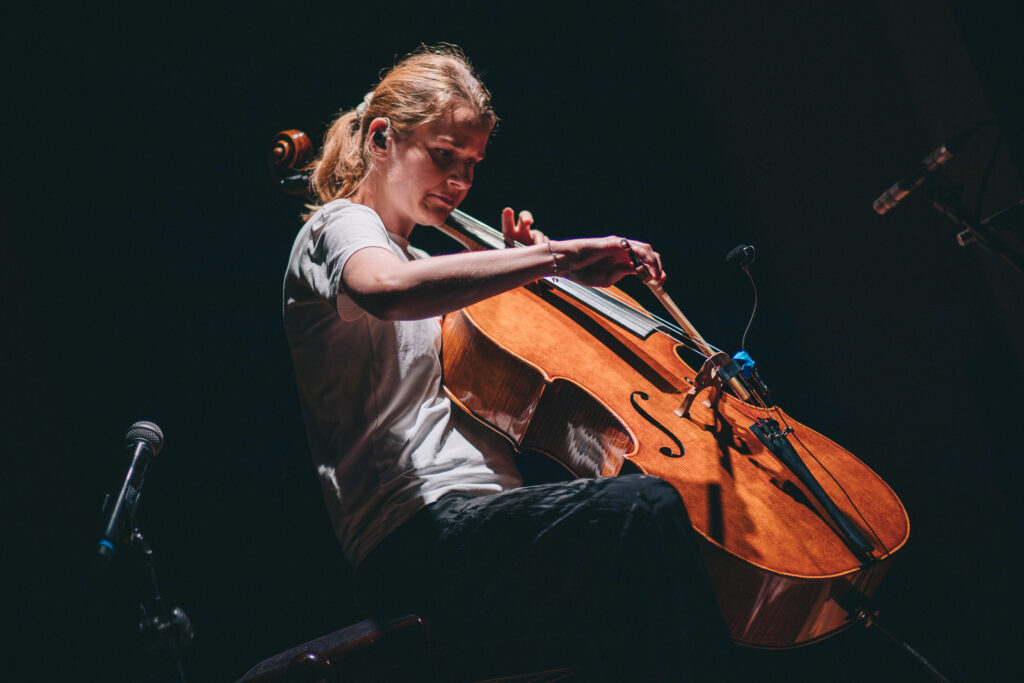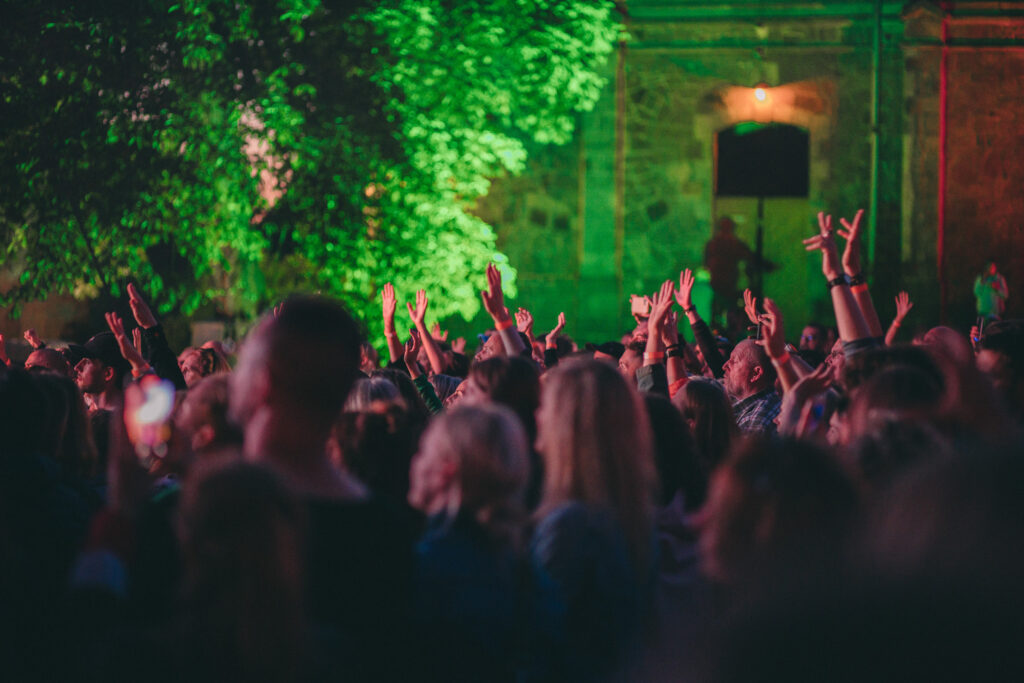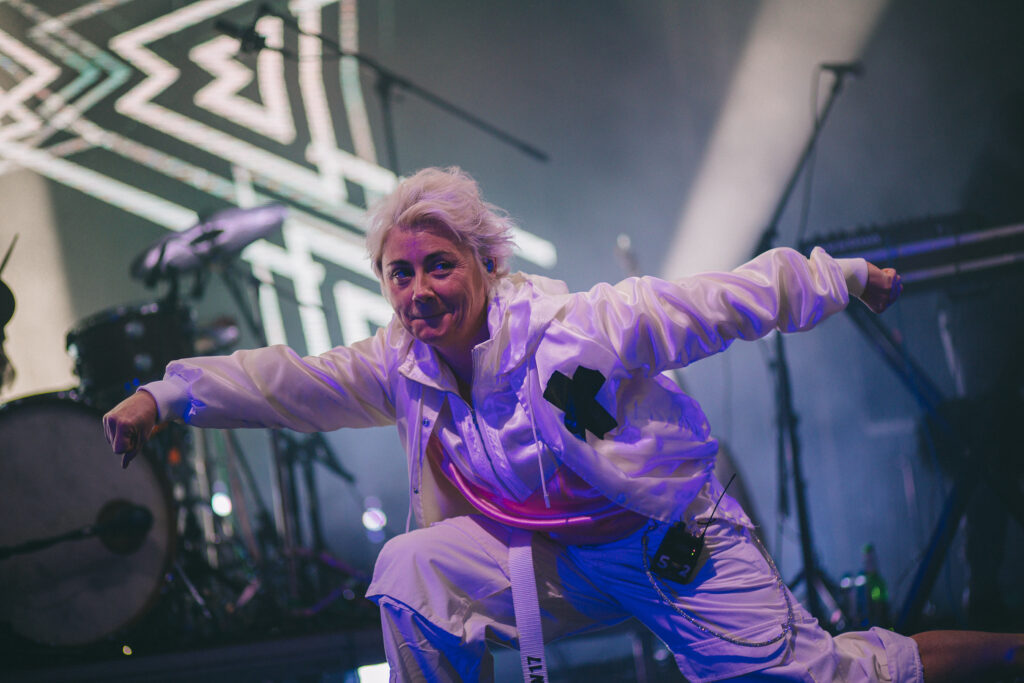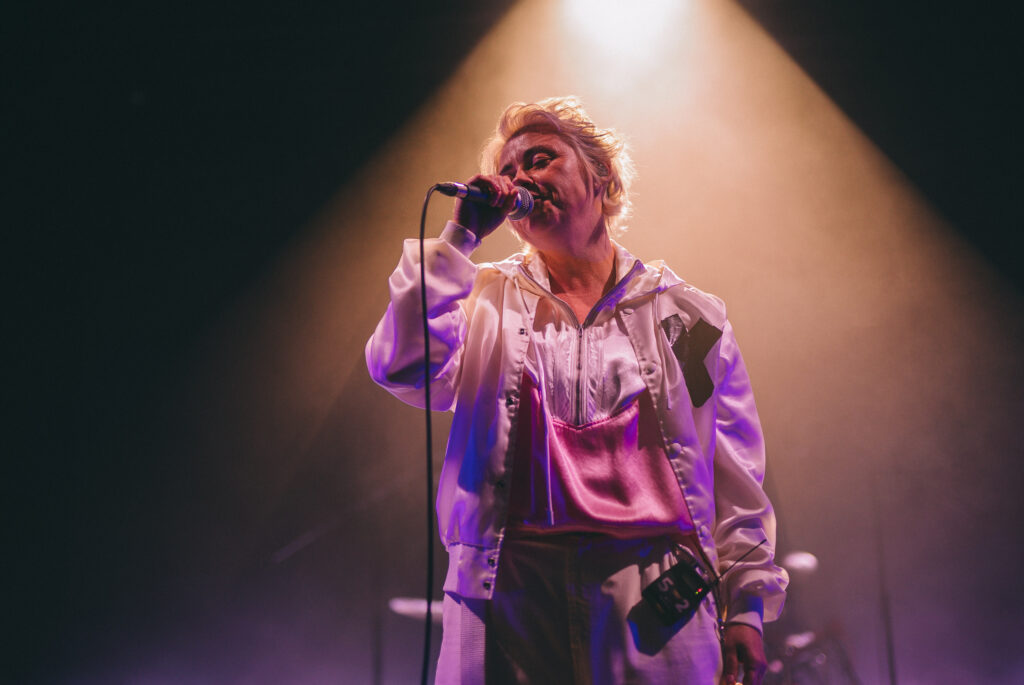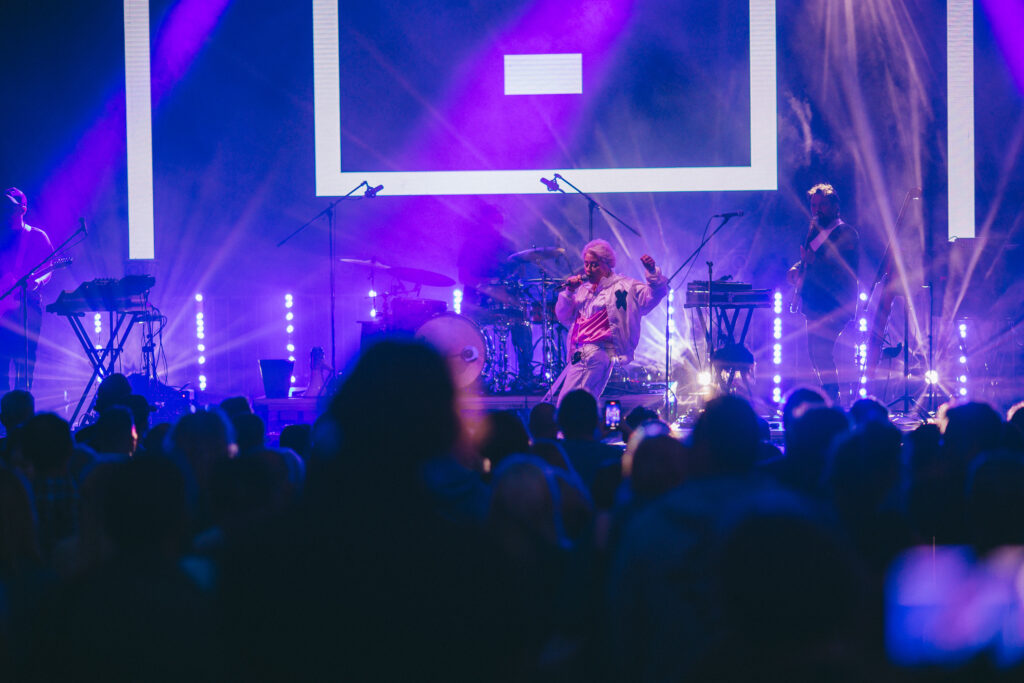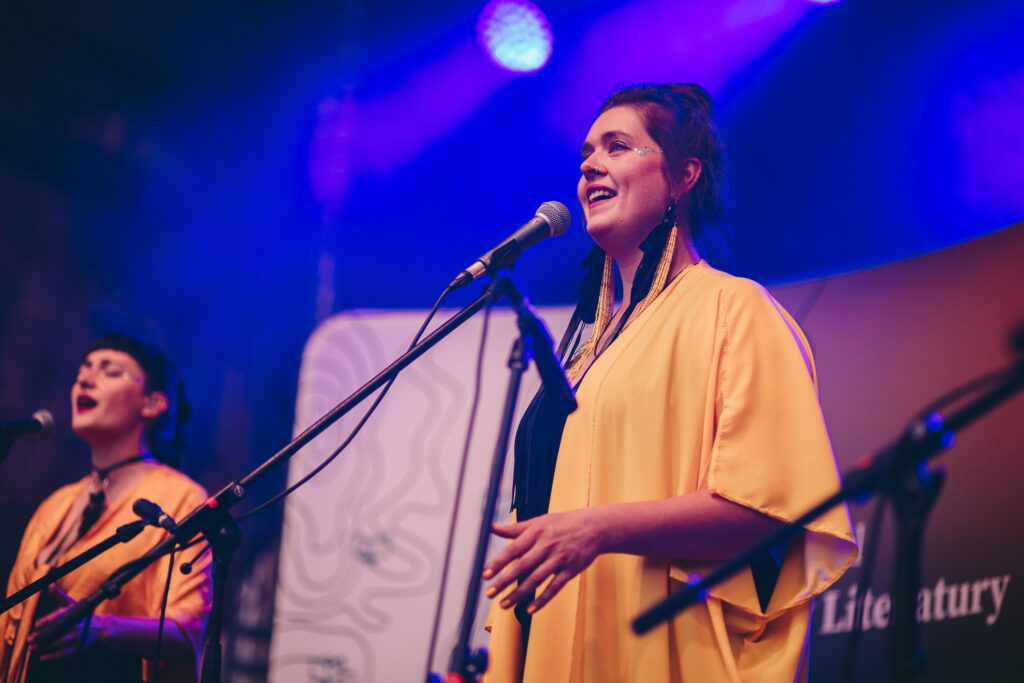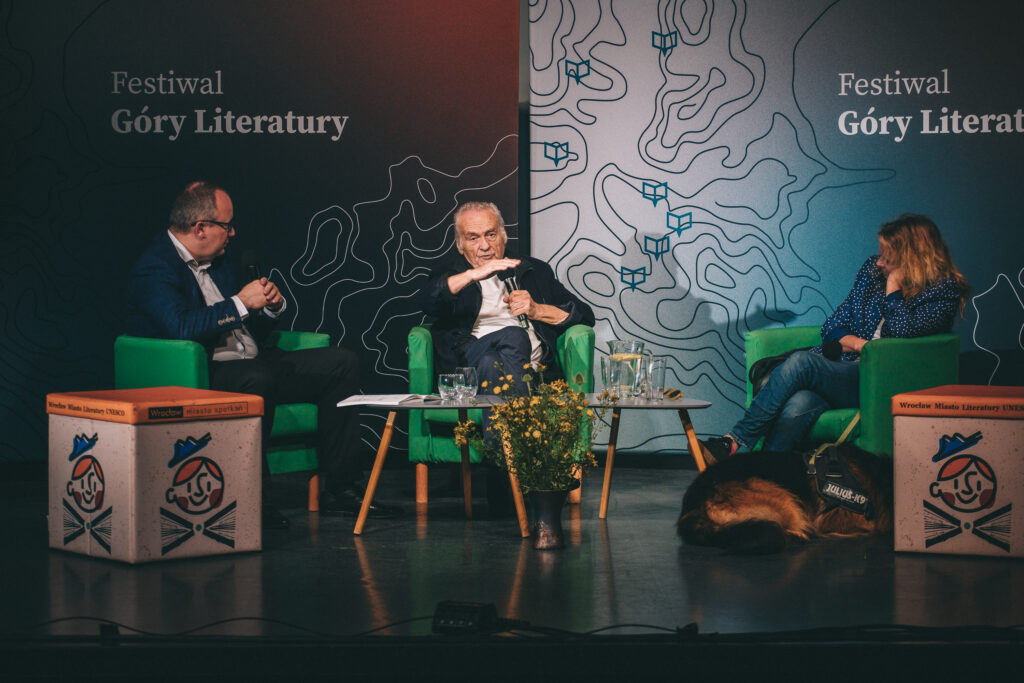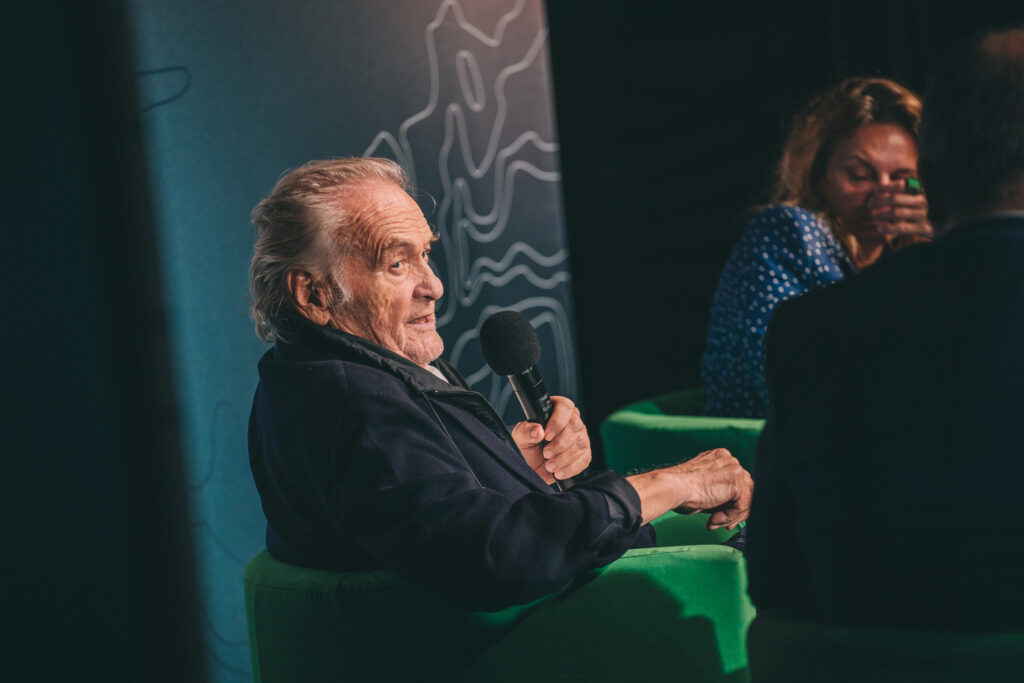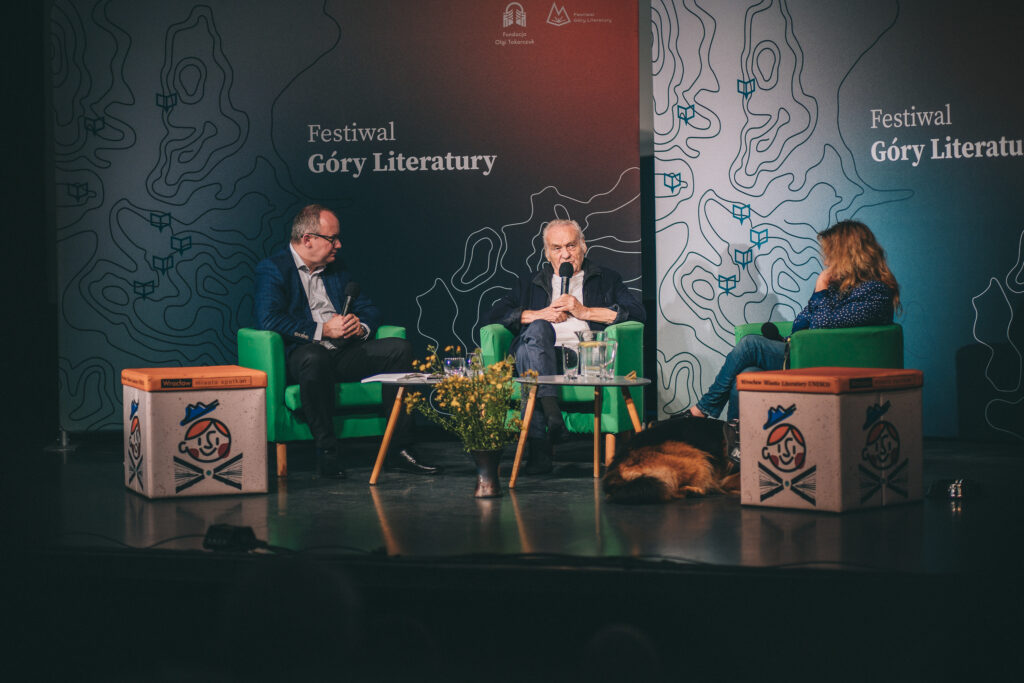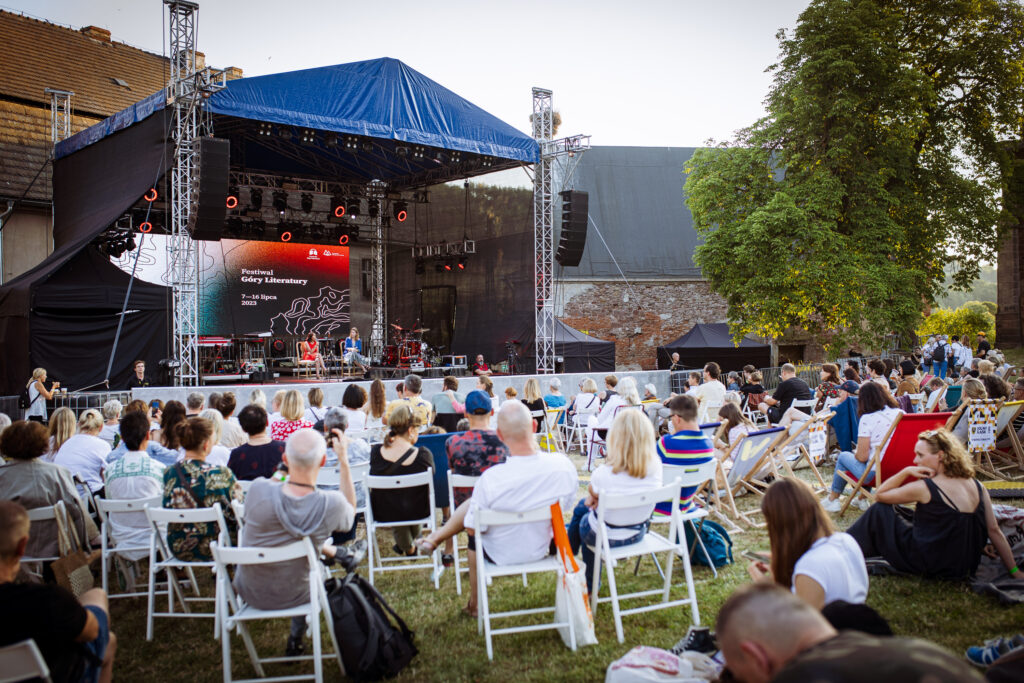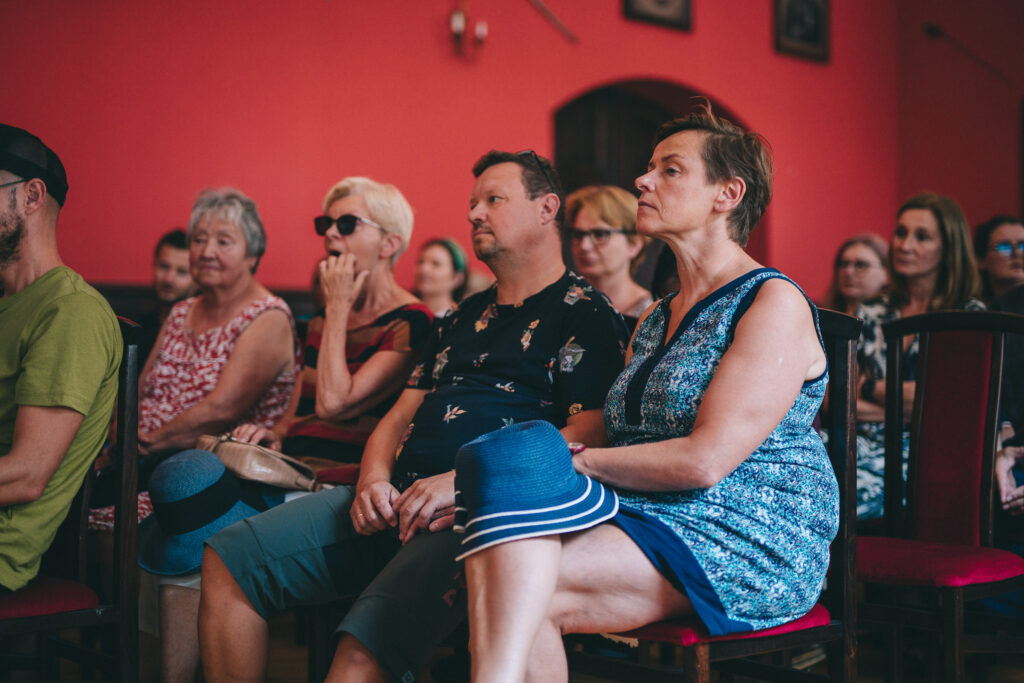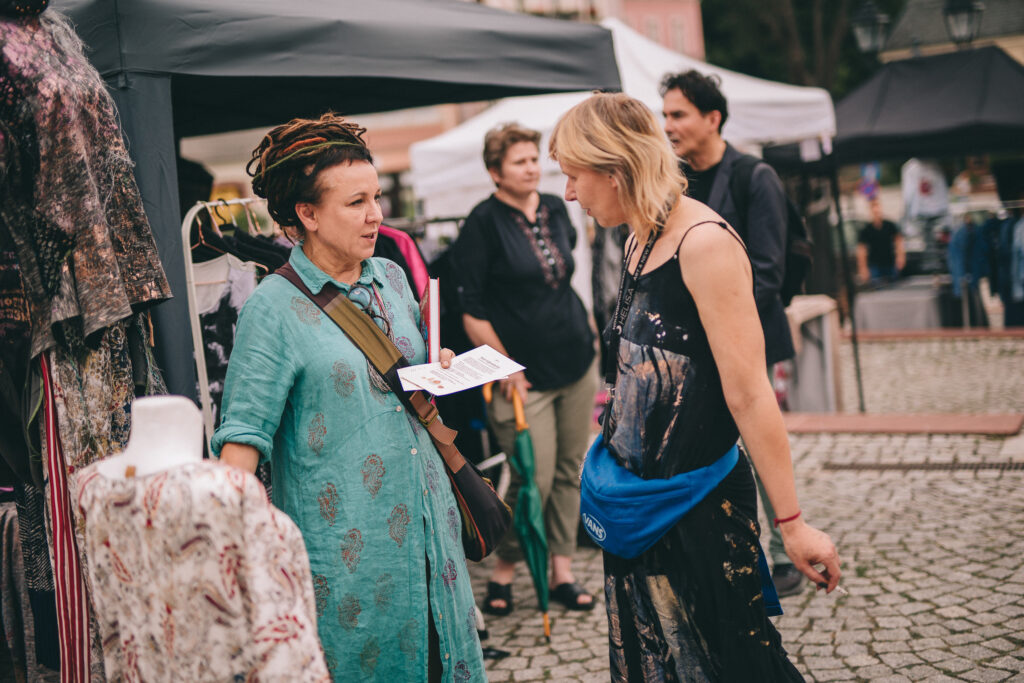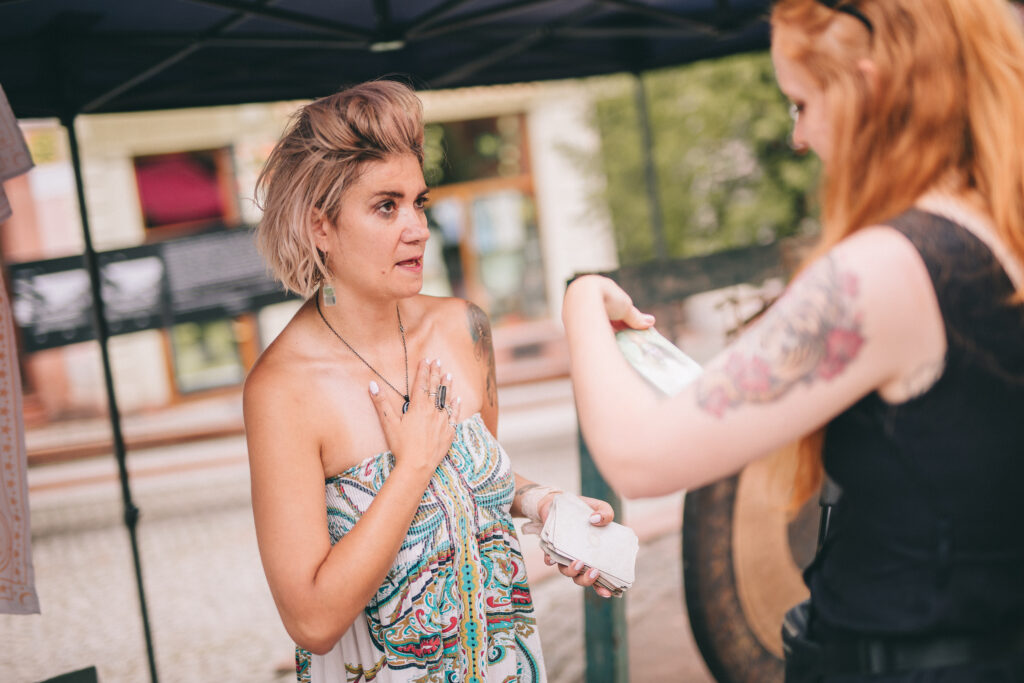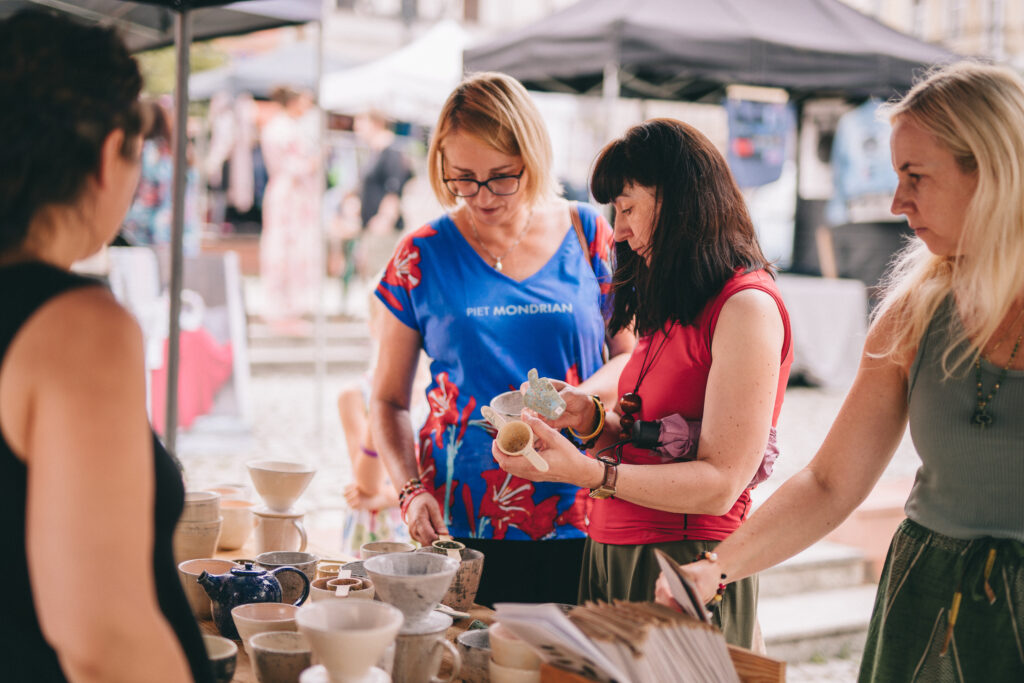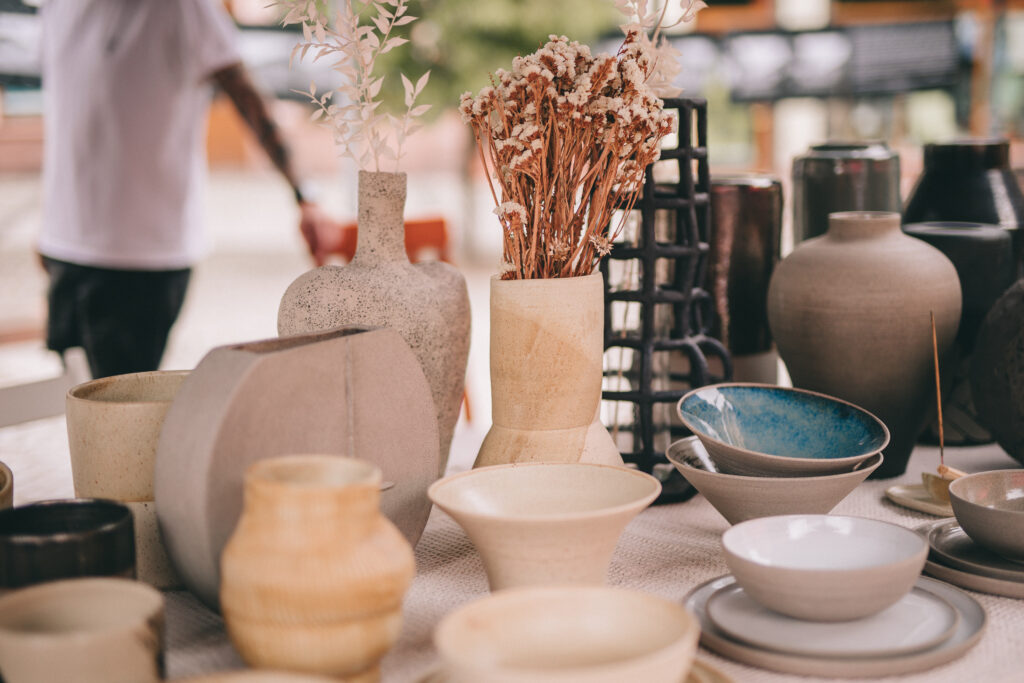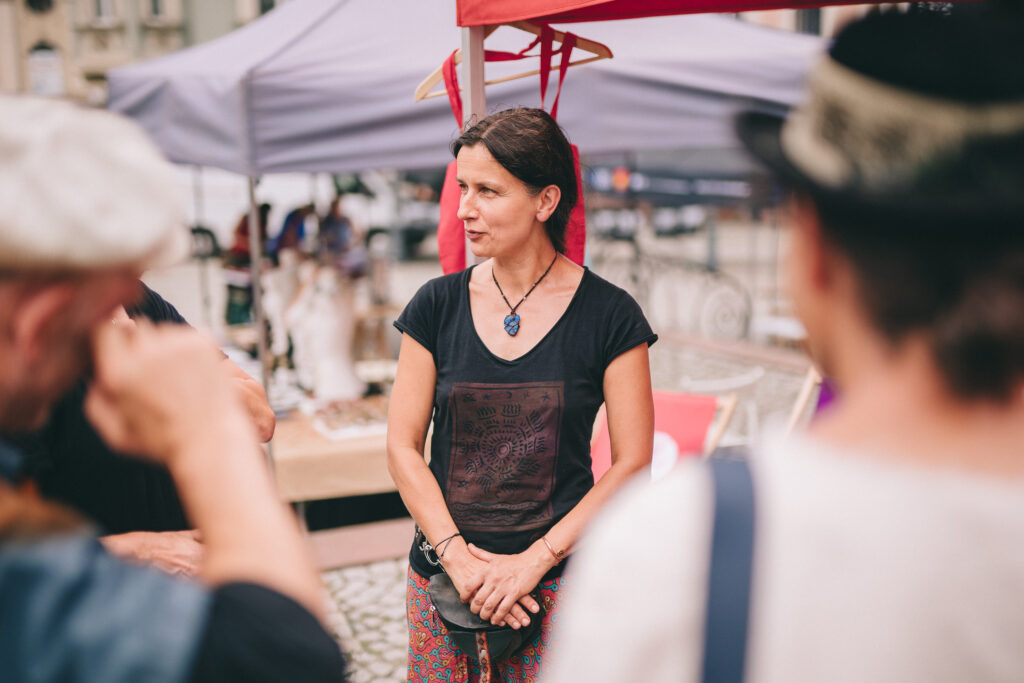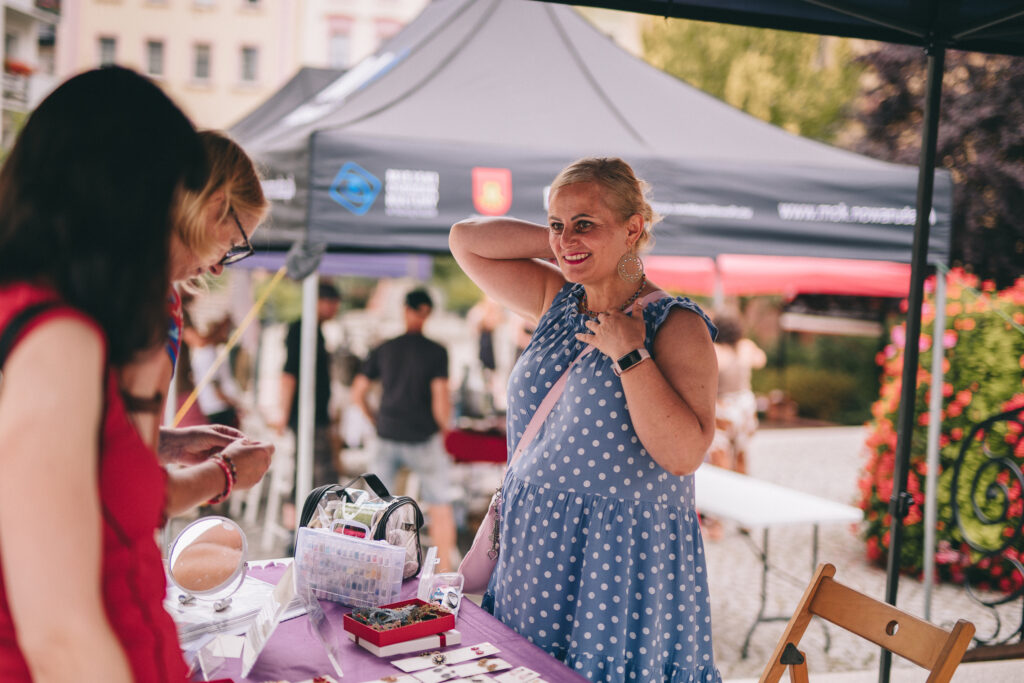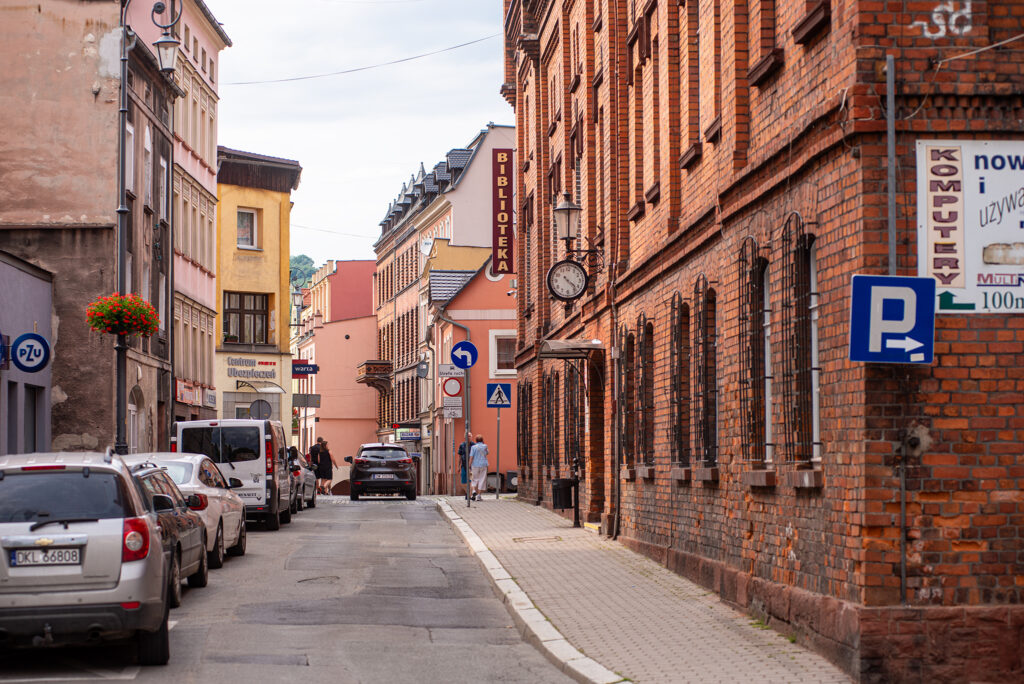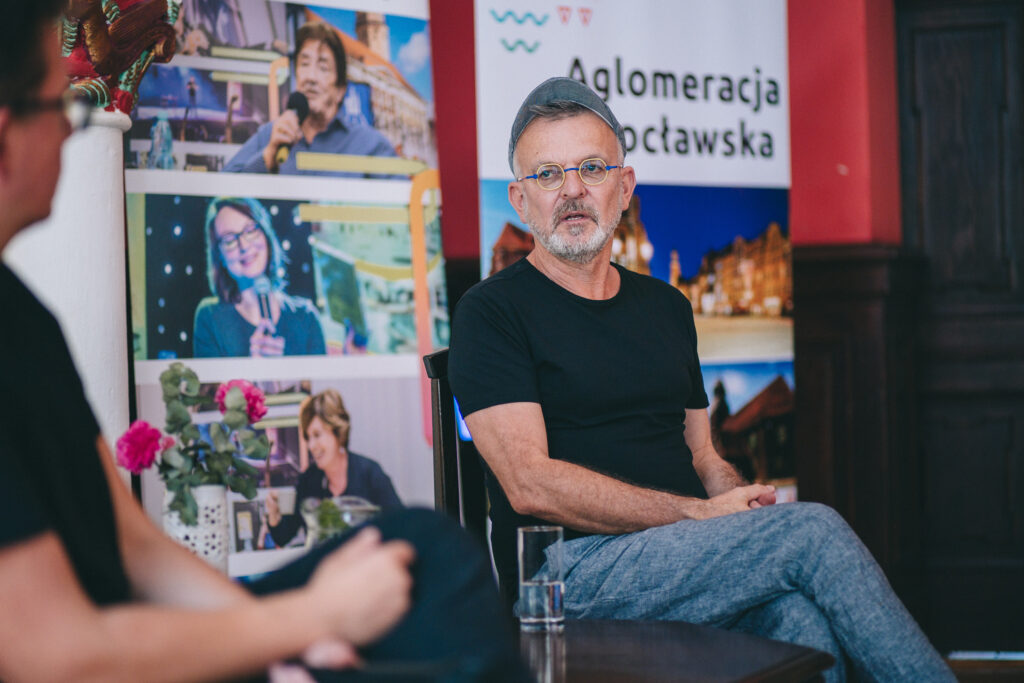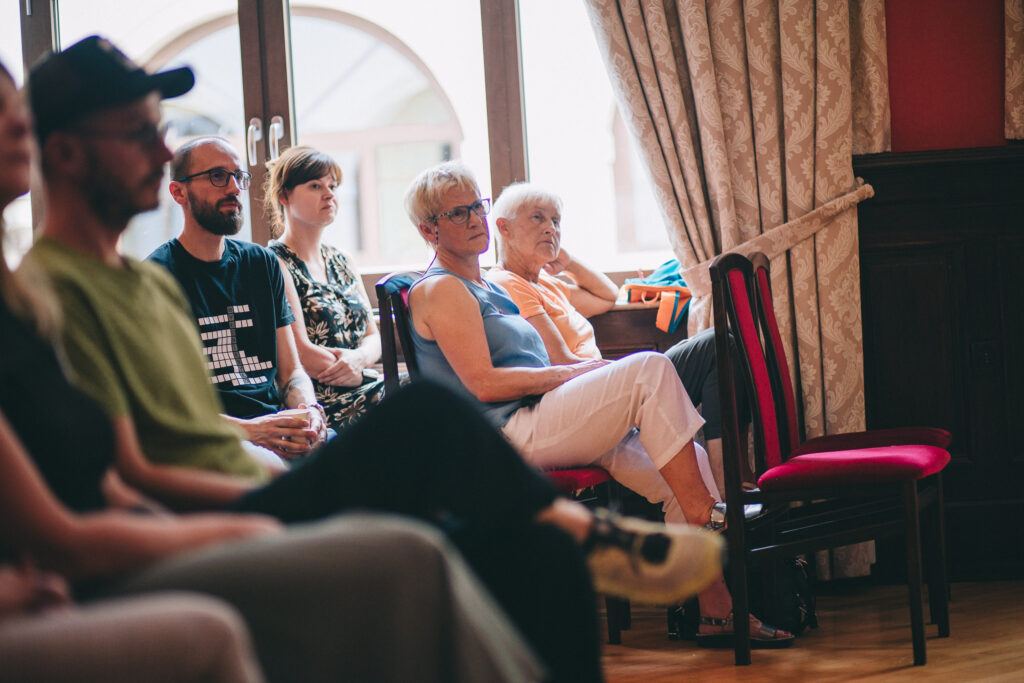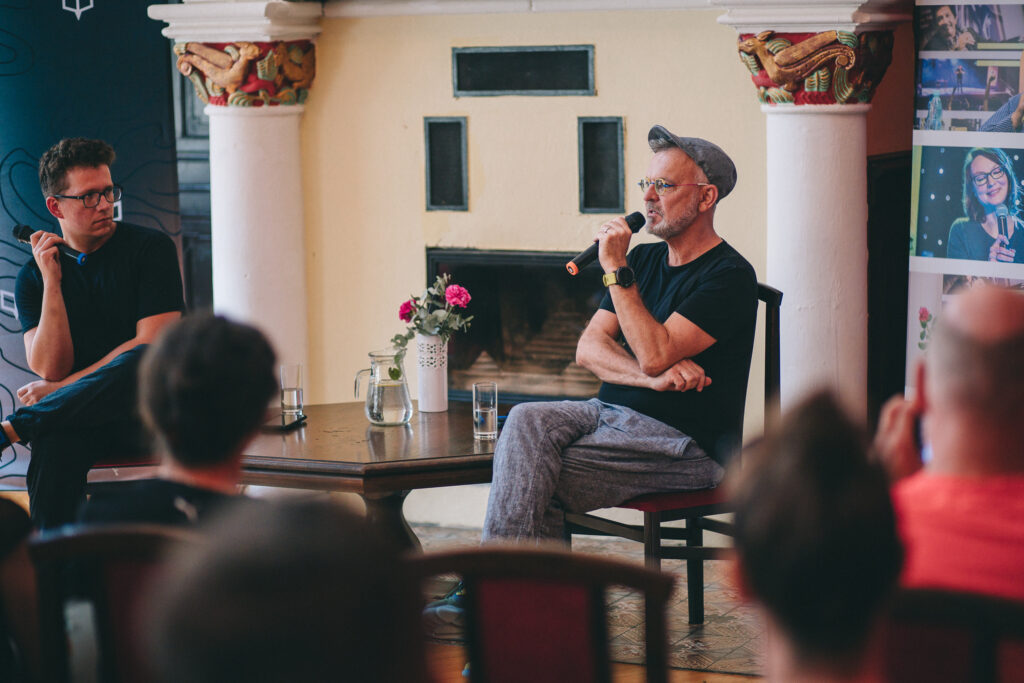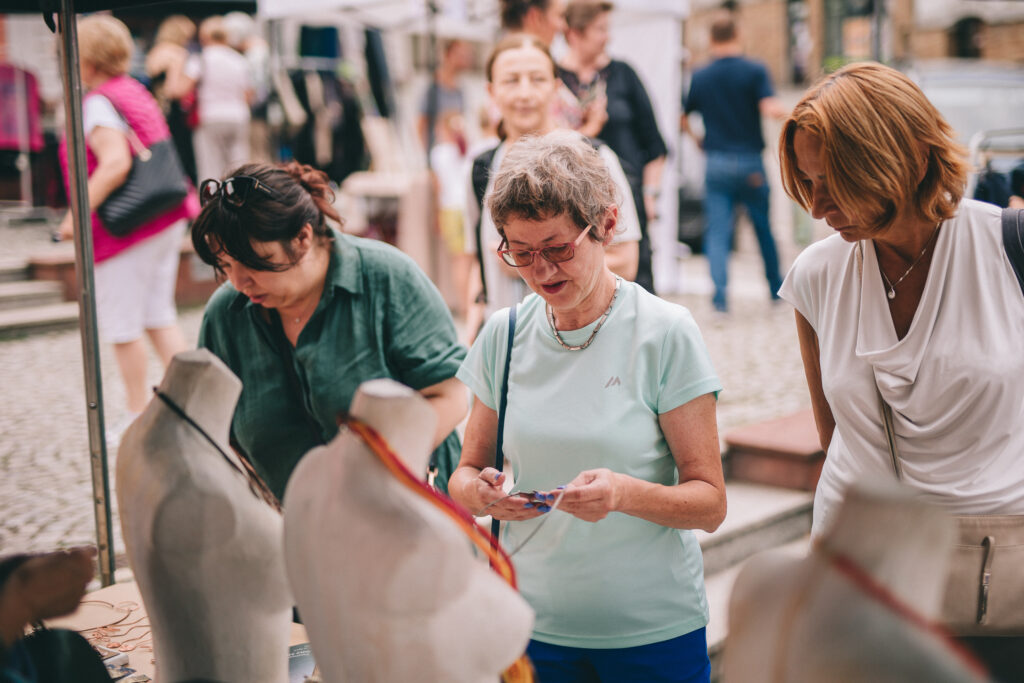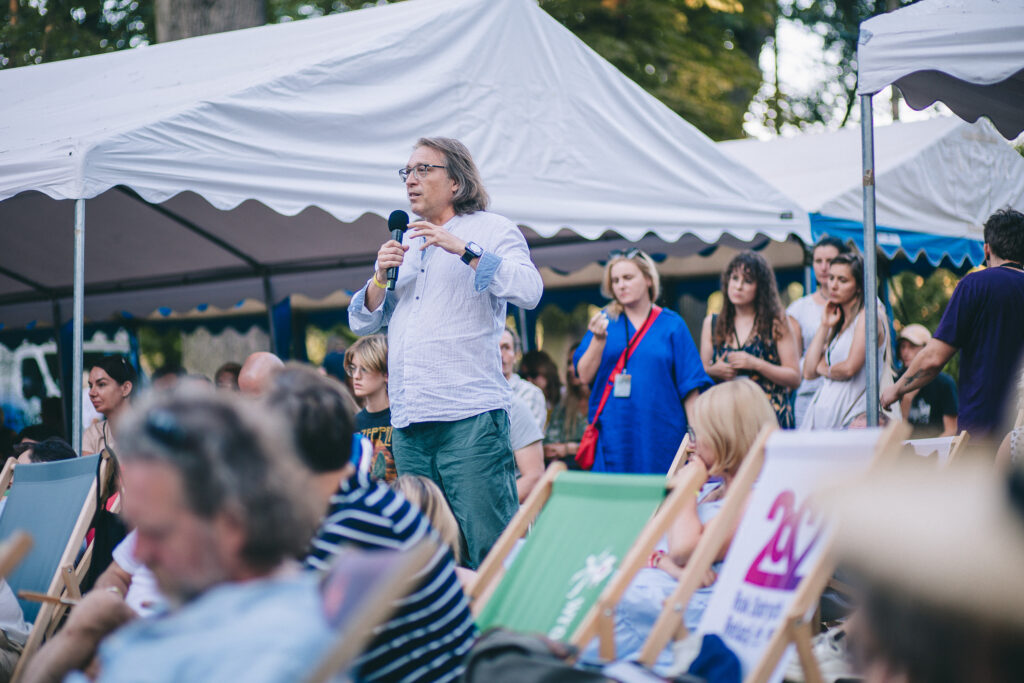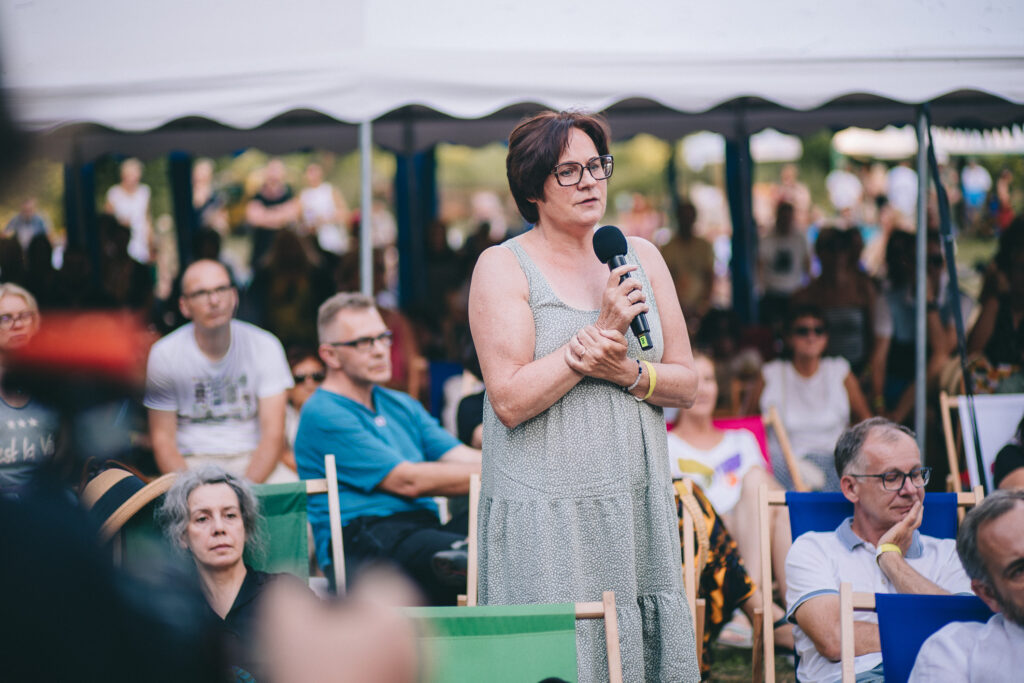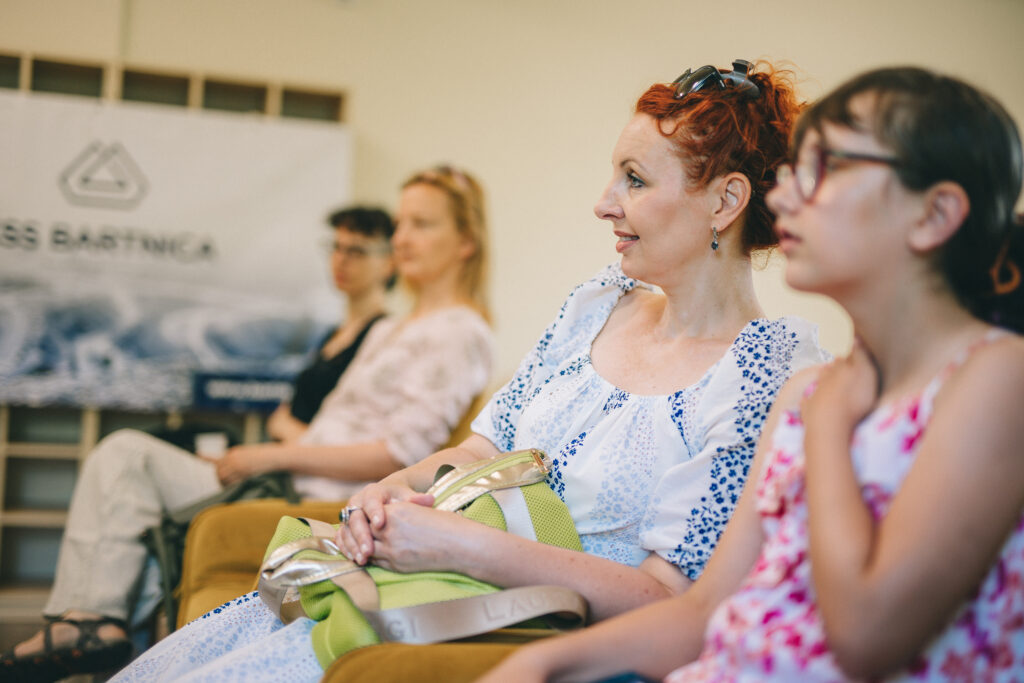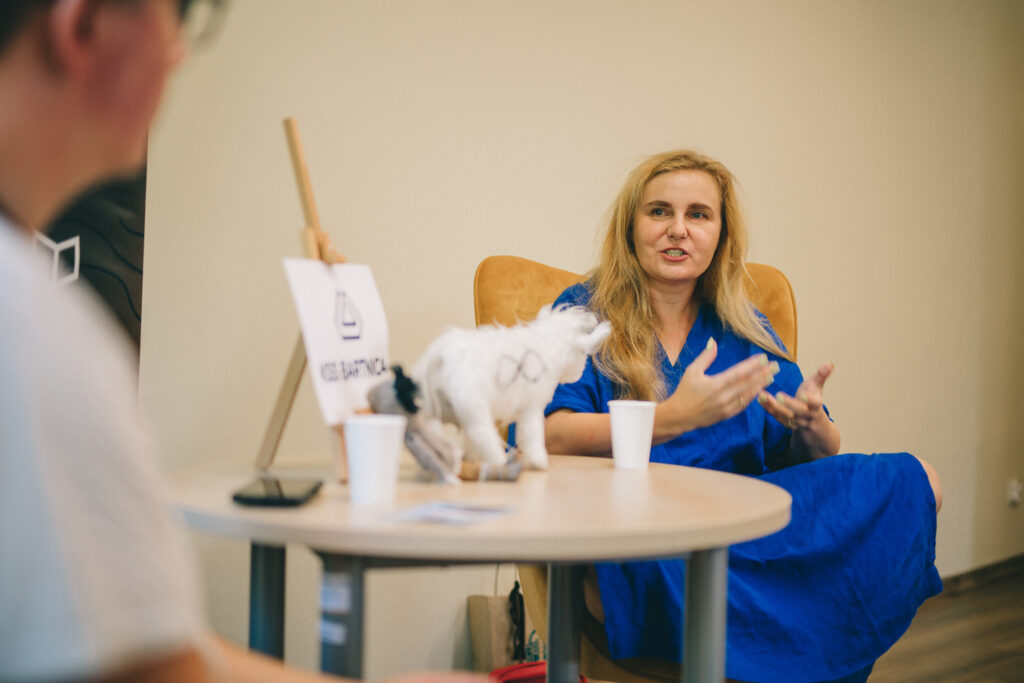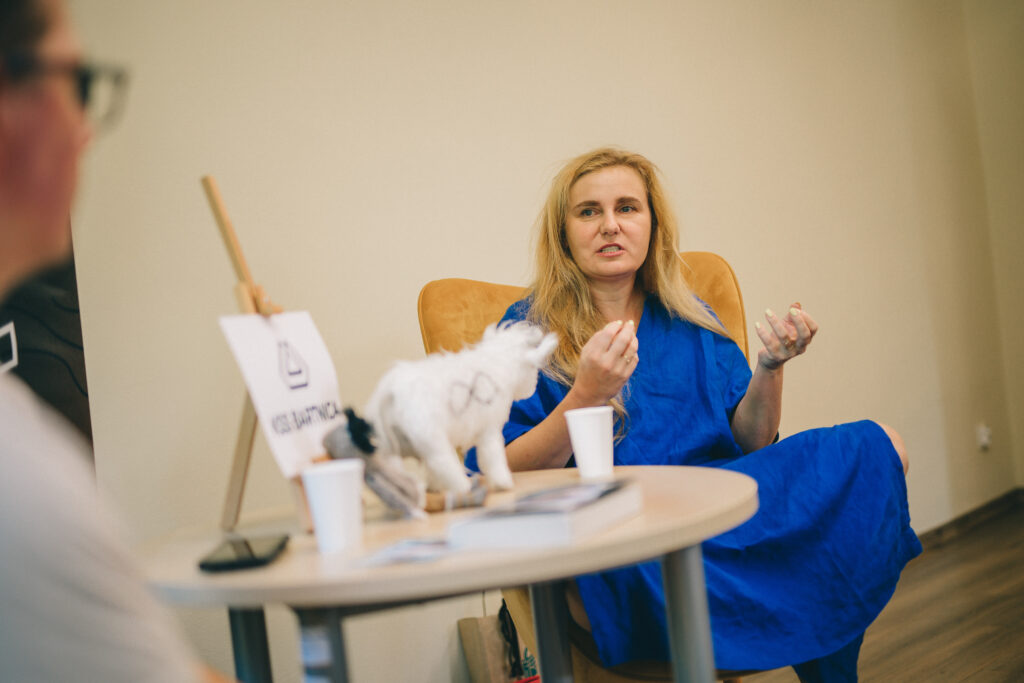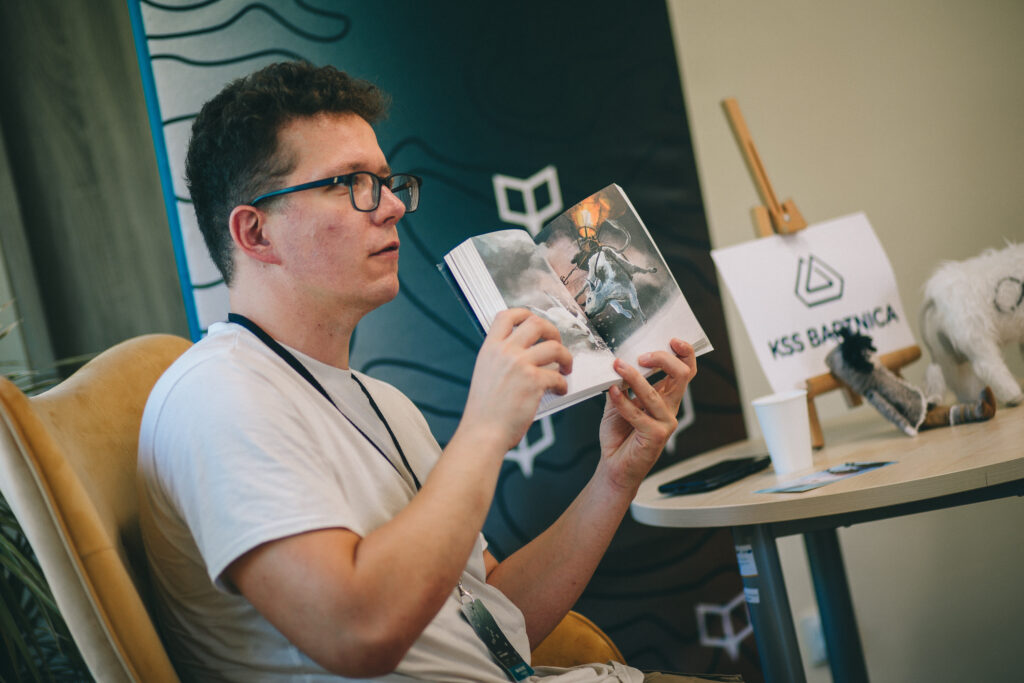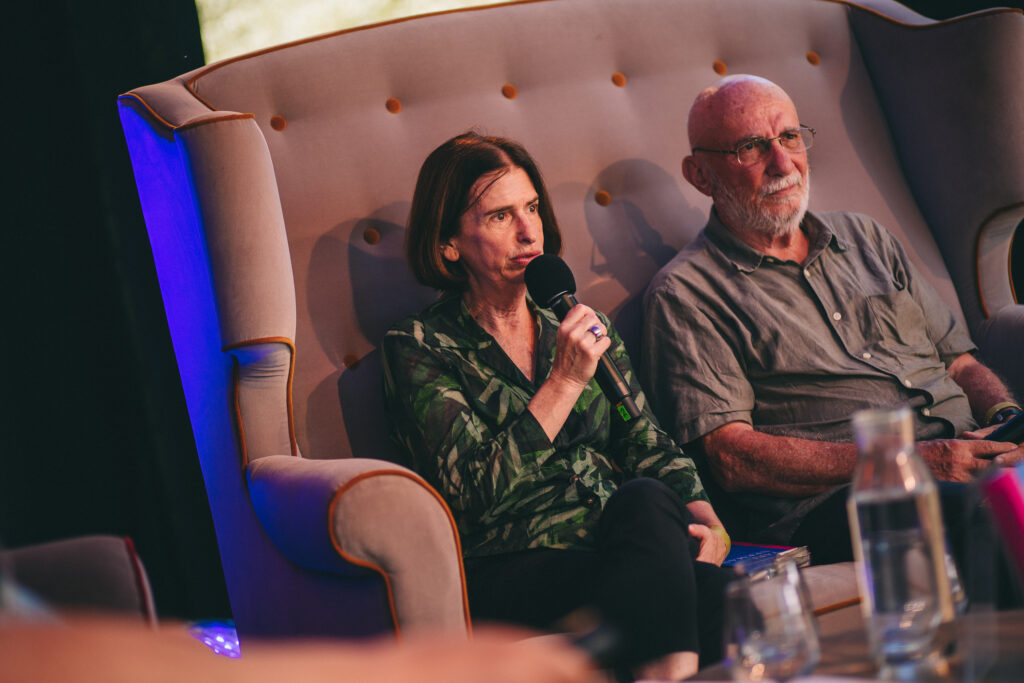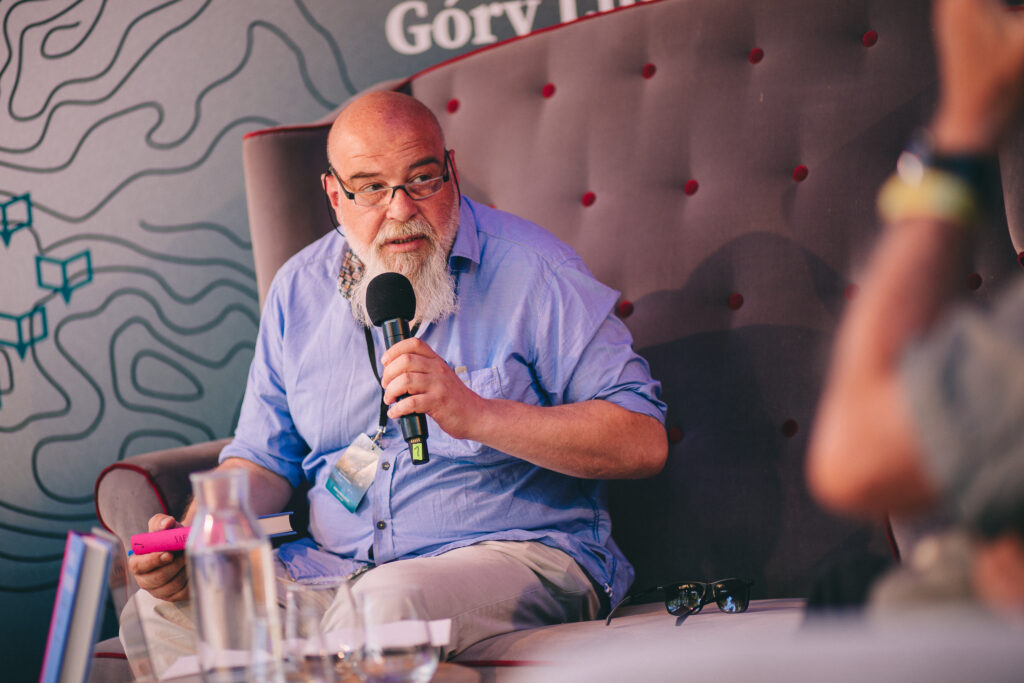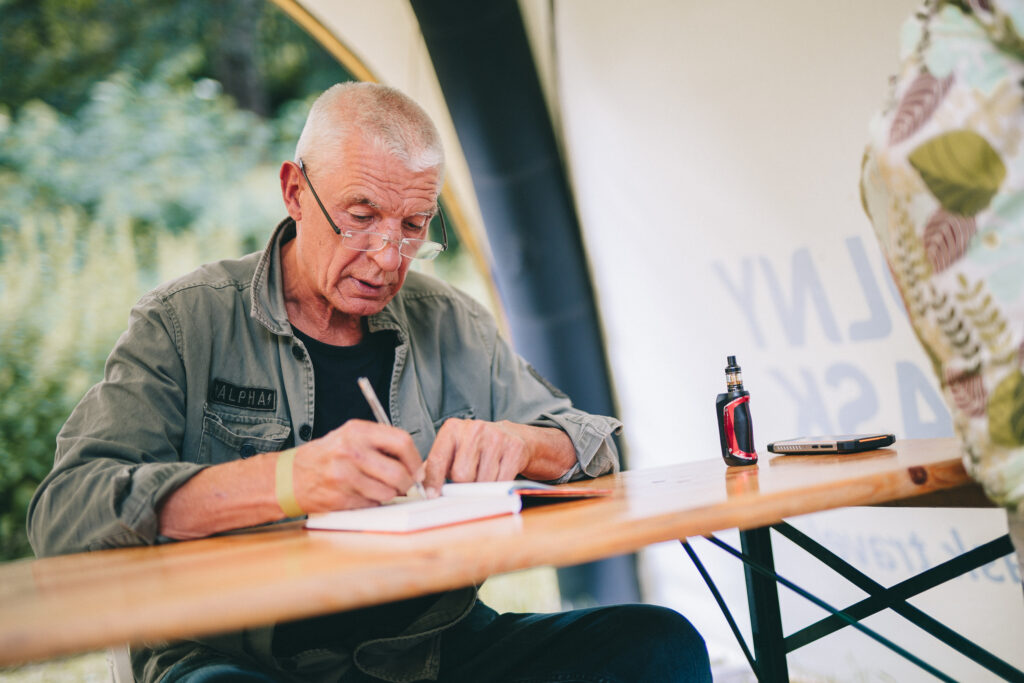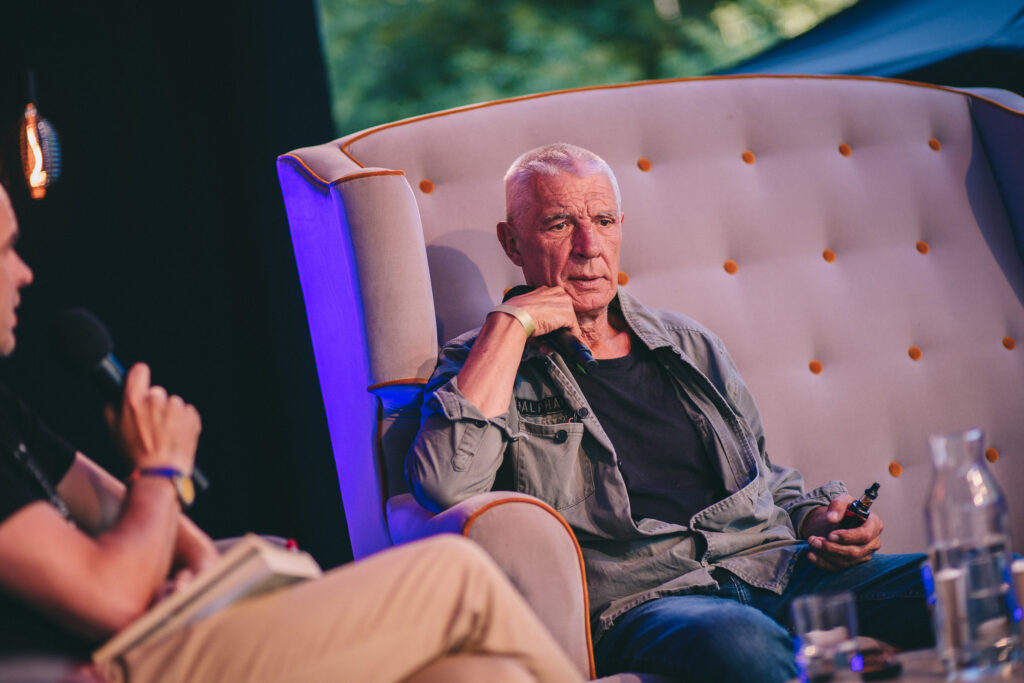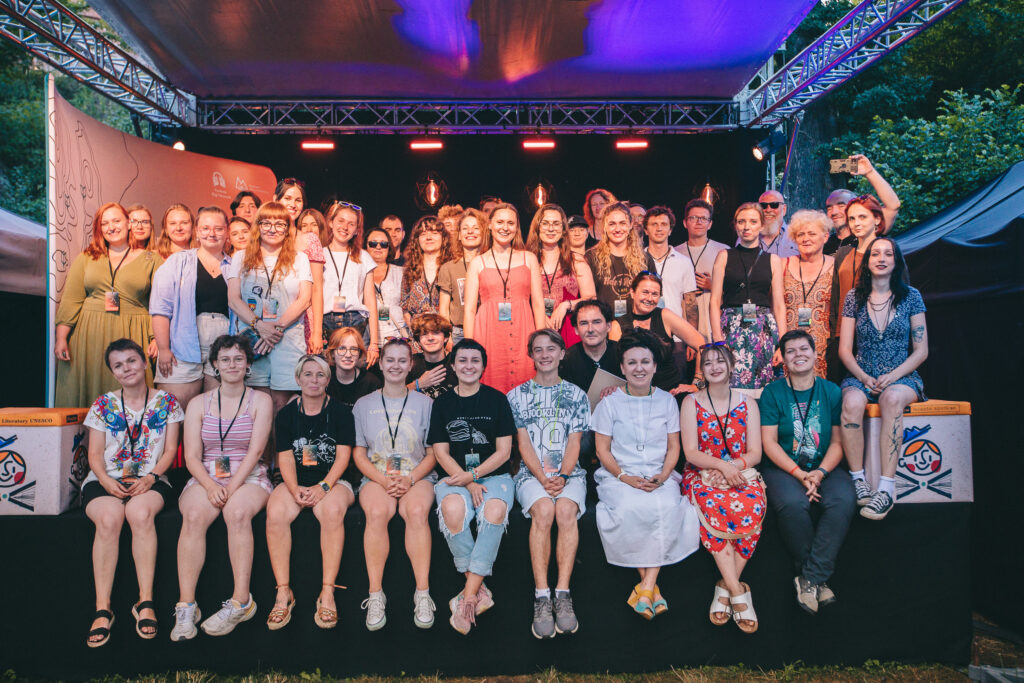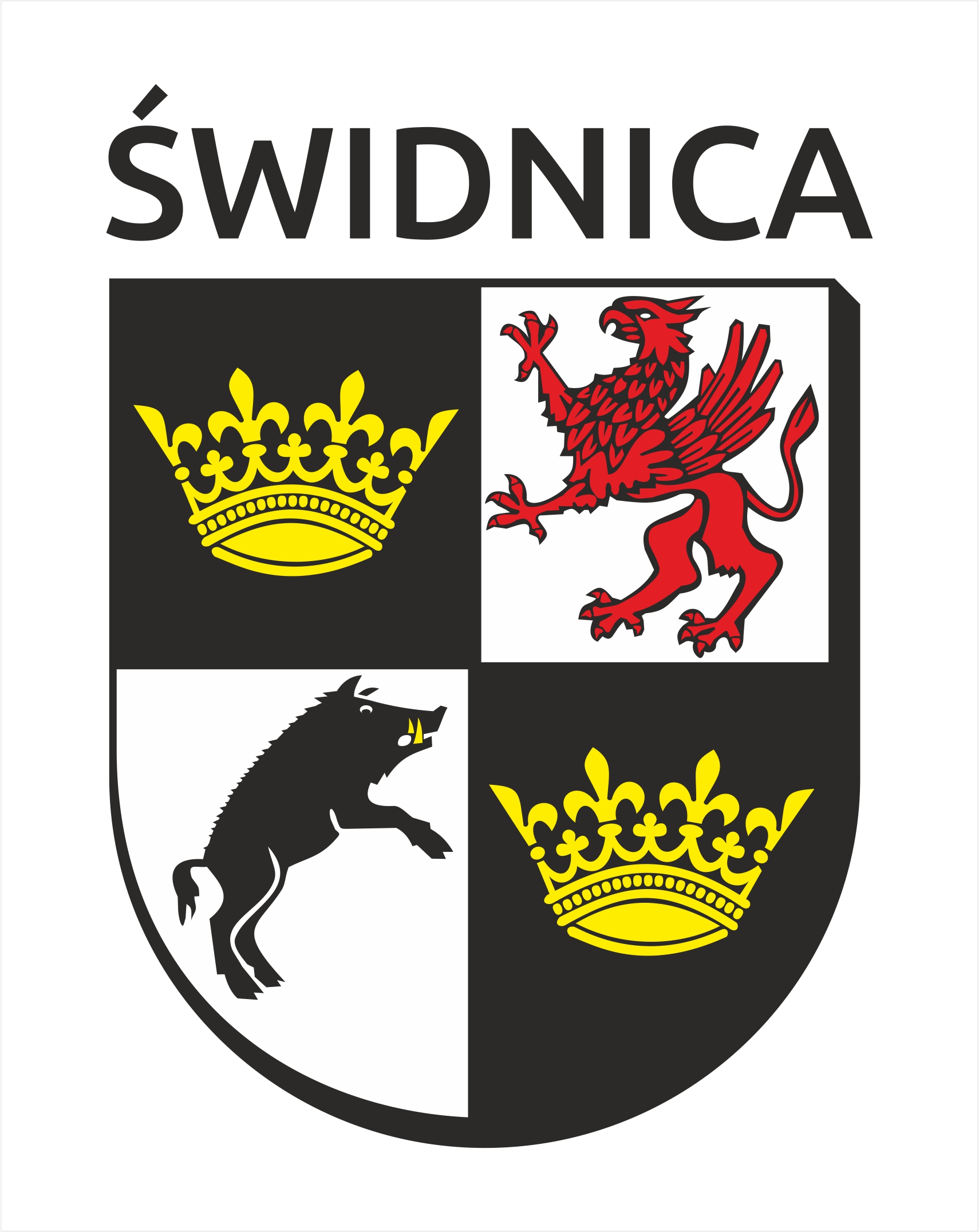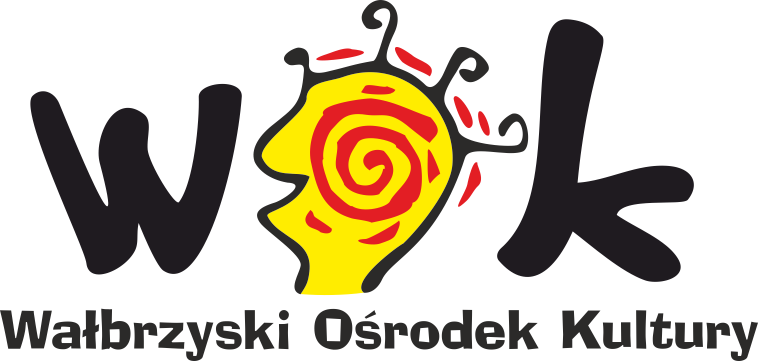Mountains of Literature Festival 2023
The ninth edition of the Mountains of Literature Festival was organized between 7 and 16 July 2023.
Encouraged by massive participation and the enthusiastic response of the audience to the last year’s edition of the Festival, we decided to develop it even more. – It will be the biggest Festival in its history. It is transforming into an interdisciplinary event, although literature remains at the forefront. We already know that in the aspect of participation, we will break another record – said Grzegorz Tokarczuk, president of the board of the Olga Tokarczuk Foundation, opening the Festival.
And indeed, it was a record-breaking edition in many aspects – duration, the number of festival locations, events, guests, participants, tickets sold and viewers of online transmissions.
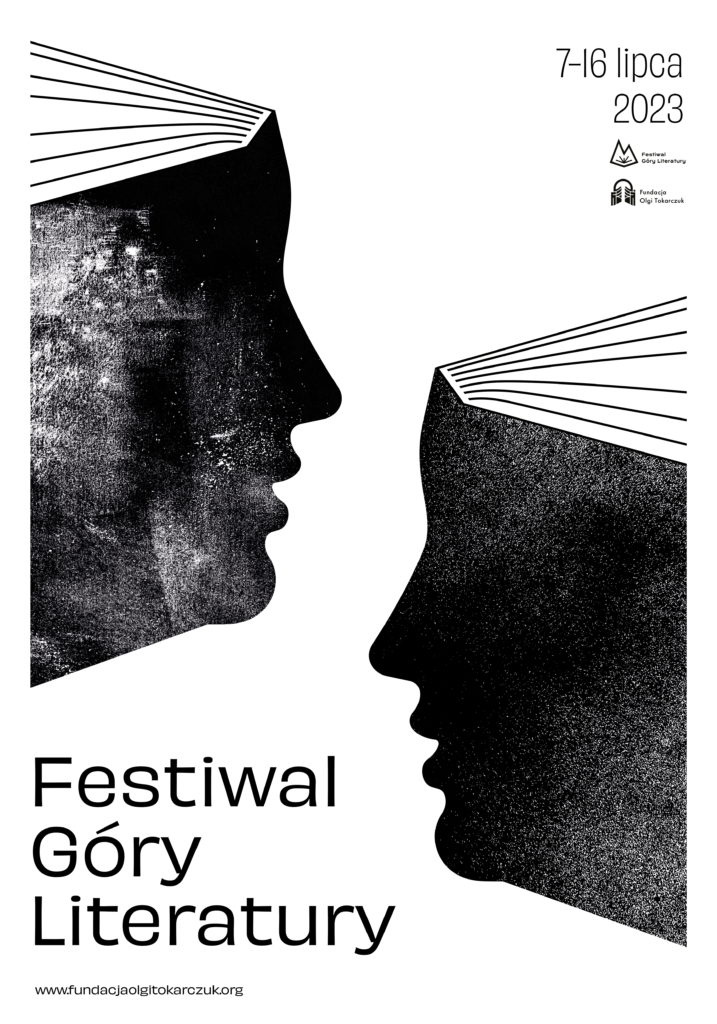
The biggest literary-social event in Poland
The statistics grew over twofold, compared to last year. This edition of the Festival was mentioned in traditional and electronic media over 1.7 thousand times, and we reached over 32 million people with that information.
We organized over 140 events altogether, with the participation of almost 200 guests. Among them artists, including writers, academicians, art historians, psychologists, lawyers, environmentalists, activists, publishers, feature writers and journalists.
We also gathered an excellent group of moderators, eminent specialists in their domains – feature writers, journalists, literary scholars, writers and experts on philosophy, sociology, history and law. Among them, Katarzyna Kasia, Eliza Kącka, Urszula Glensk, Katarzyna Kolenda-Zaleska, Michał Nogaś, Olga Wróbel, Maciej Robert, Amelia Sarnowska, Karolina Kuszlewicz, Robert Karpowicz, Łukasz Pilip and Magdalena Rabizo-Birek.
During the 10 festival days, we met with the audience in 20 locations in the Kłodzko Land, Wałbrzych region in the Lower Silesia and Kąty Wrocławskie district. We were guests at Sarny Castle in Ścinawka Górna, Dzikowiec, Kłodzko, Nowa Ruda, Ludwikowice Kłodzkie, Radków, Sokołowsko, Świdnica, Wałbrzych and Krobielowice Palace.
Almost 35 thousand people participated in person in this year’s Festival, and almost 220 thousand watched or listened to online transmissions on Facebook and YouTube. We streamed live over 60 most important events, and their recordings are still available on our channels in social media (Facebook, YouTube). They are still being played and the number of viewers is constantly growing.
All this confirms the position of the Mountains of Literature Festival as the biggest literary-social event in Poland.
The most popular among the audience was the public reading of “Empuzjon” by Olga Tokarczuk, with guest participation of the author herself. The reading, directed by Irek Grin and entitled “Men’s Talk”, performed by Jan Peszek, Robert Więckiewicz, Arkadiusz Jakubik and Maciej Stuhr, had a live audience of 1700 people.
Almost 600 people participated altogether in all the workshops organized as part of the Flying People’s University, which is also a record.
Our partner, the Tymoteusz Karpowicz Foundation, sold c. 4.5 thousand copies of books in their mobile bookshop.
30 volunteers worked at the Festival.
Future | Equality | Creativity | Tenderness
We organized this edition under the slogan “Future | Equality | Creativity | Tenderness”. Those are the four pillars on which the activity of the Olga Tokarczuk Foundation, the organized of the Festival, is based. We are convinced that new ideas and concepts become necessary, and culture cannot yield to political pressures and censorship. We believe in free exchange of thoughts and inspiration. We believe in the causative power of literature.
The most important inspiration for this year’s Festival were the words of our Founder: I’m convinced … that the human being is in fact just a small part of nature, and their greed, ruthlessness and conviction of being unique among other creatures is a strange cosmic mistake. Our conquest of nature, already resulting in the death of hundreds of animal species, paving huge areas of the globe, the climate disaster, a world in which we’re already dying of smog … and soon will be dying from lack of water and deadly temperatures – it’s the human being’s most terrible crime. We commit it on living organisms (I consider them all that surrounds us, including landscape), on animals, trees, all nature, also inanimate, killing it unthinkingly and at the same time committing a mass suicide of lunatics.
For a long time culture’s been speaking up for nature. But too shyly, I guess, although we’ve known for a long time it’s not its antithesis. Or a better, wiser, more civilised version of nature. It’s time it stood up for its sister, destroyed by humans, with more determination. To pay … our and its debt to nature. Time for both culture and nature to find transdisciplinary ways to examine each other more closely, understand better and help each other. To create together questions about reality and unreality, and try to answer them together.
We also believe that culture is not only one of the key human activities, it can unveil and deconstruct the grotesque and caricatural mechanisms of power and their possible consequences, but also, perhaps most of all, it can demythologize and expose the scale of social manipulations, reveal mechanisms of propaganda, show methods of social engineering. The year 2022 and the beginning of 2023 were marked in Poland not only by the attack of Russia on Ukraine (which will also have unimaginable consequences for the climate), but also by the continuation of the shameful procedure of forceful return of Middle Eastern refugees on the Polish-Belarussian border back to Belarus, and the biggest ecological disaster in the history of Poland – contamination of the Oder River. All those events result from political decisions, and that’s why civic education, opposition to growing authoritarianism, fight with exclusions, raising the residents’ competences and activating them to defend democracy is also fundamentally important in long-term thinking about ecology. All those topics simply had to be present at this year’s Festival.
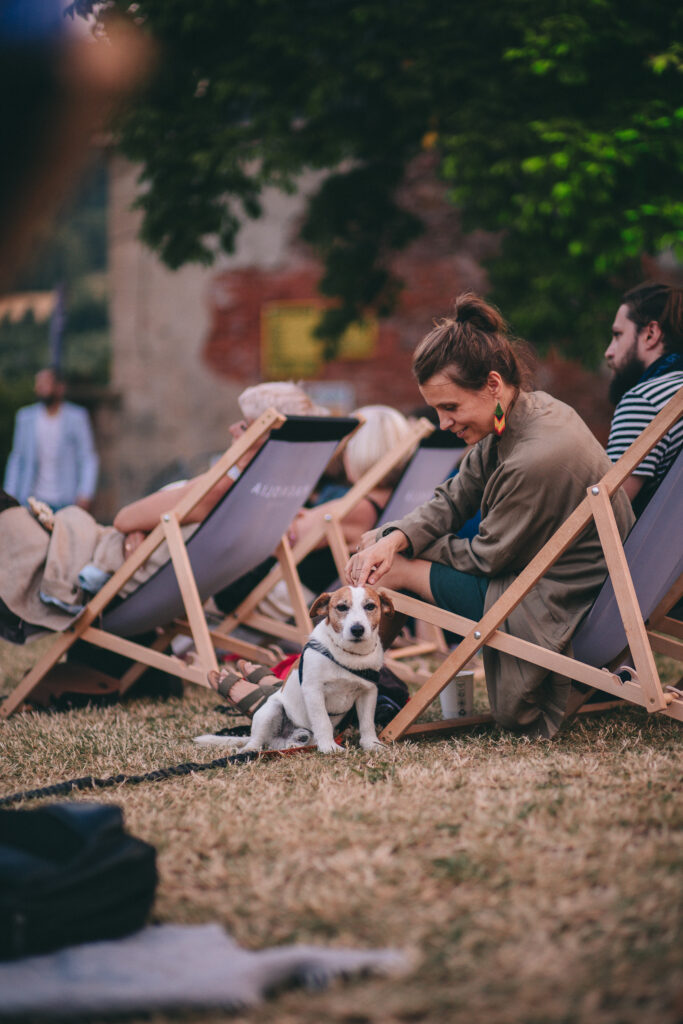
On nature, animals and the ecological disaster
Inspired by the words of the Nobel Prize Winner, we organized many events and discussions concerning the broadly understood ecology.
We talked about the ecological disaster on the Oder River and the initiative of granting it the status of a legal entity. Jerzy Bieluk, Karolina Kuszlewicz and Robert Rient were in conversation with Kinga Dagmara Siadlak.
The panellists explained what it means to give rivers the status of legal entities and how to use the example of similar cases around the world and translate them into Polish reality, taking into consideration the local law. – The Constitution grants no mechanisms for defending rivers, we cannot say ‘no’ to polluting them. That’s why we should create a situation in which the Oder will be able to – legally – defend itself. We should have the possibility to sue those who destroy it and demand compensation for the river. That’s why we fight for the subjectivity of the river – explained Jerzy Bieluk, lawyer, creator of the project of acknowledging the Oder as a legal entity.
We talked about animals and their rights, as well as about human obligations towards them.
Karolina Kuszlewicz, lawyer and creator of Kancelaria and Wisłą, conducted a workshop “In the name of – a workshop on defending animals”. The participants learned about the existing legal tools which can be used to defend the rights of animals and how to use them in practice. In addition, the aim of the workshop was to support those who decide to work for the animals, in accordance with the rule that the rescuer needs to be strong.
The lawyer, privately a dog lover, talked also to the cat enthusiast Aleksandr Zawadzka-Glinka about her book “Zamieszka(ł) ze mną kot” [A Cat (Will) Live with Me] (published by EMG). The second volume in the “Someone not Something” series is an attempt at a detailed description of the often elusive nature of cats. It is also a perfect read for those who plan to introduce a cat’s existence into their everyday life or they’ve already done it.
– Not only human beings are persons – said Paweł Chyc, a cognitive anthropologist, during the discussion on animism in the contemporary world. The meeting with Paweł Chyc and Ewa Domańska, professor of humanities researching the ontology of the dead body and human remains, was moderated by Jana Karpienko. She asked how we can define animism and how we can understand it – not only from the perspective of science, but also (or most of all) – of everyday life. We considered, if in the contemporary world, animism can become an inspiration for changes, if it can become a new – renewed, extracted from the forgotten or far cultures and traditions – image of the world, a certain state of mind, approach to the reality which surrounds us.
Karolina Kuszlewicz moderated a meeting with Adam Wajrak, journalist, environmental protection activist, author of books and articles on nature. They searched for an answer to the question how to speak about the need for environmental protection at the time of the climate disaster; if the awareness of the inevitable global changes influence the perspective of discussions about nature and what the role of journalists is in this story. They also spoke about the Białowieża Forest and the human drama on the Polish-Belarussian border.
We talked about trees as well. Be finally begin to understand and perceive trees as beings much more important and incomparably more complex than we used to think. We already know that trees are not products of nature providing shade and oxygen as well as aesthetic pleasure to humans. We talked on this subject with Iza Klementowska, the author of the book “Cztery strony drzewa” [Four Sides of the Tree], Ewa Mańkowska, editor of the series “Architektura jest najważniejsza” [Architecture Is the Most Important], as part of which the book “Drzewa” [Trees] was published, and Urszula Zajączkowska, botanist and poet.
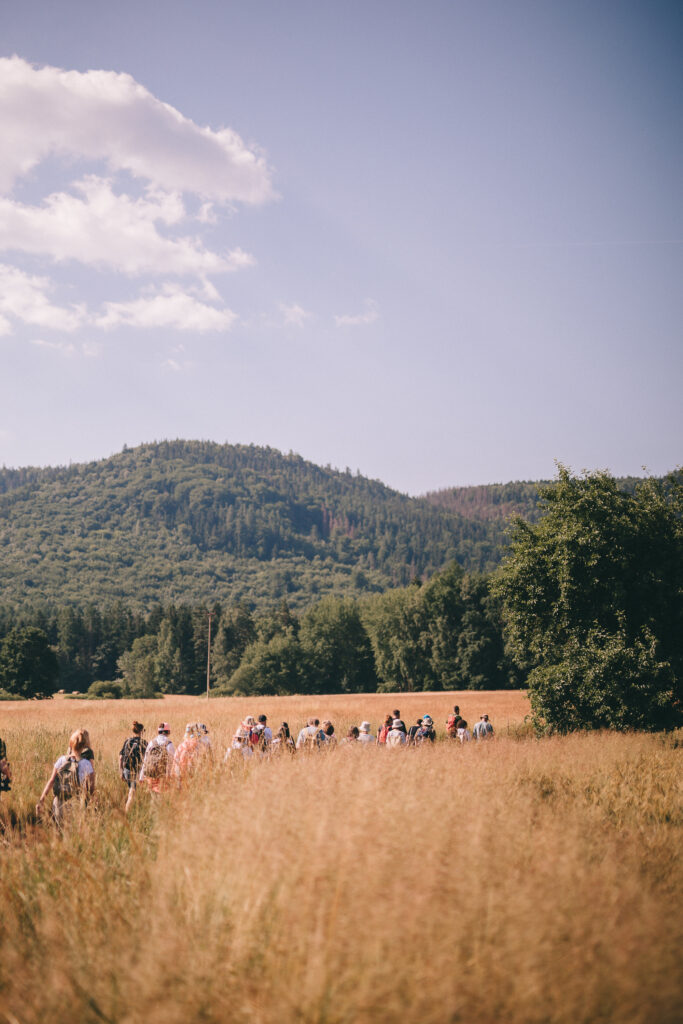
Urszula Zajączkowska conducted also a seminar-hike “Reading the forest, moss and trees”. The participantswandered the forest between Radków and Wambierzyce, between the ridges of Ampuła and Mnich, where the Dog Stream meanders. They looked inside tree trunks, observed, crouched down, looked through a magnifying glass and a microscope. Participants of the hike were also guides from the local Stolovelasy Association: Michał Derencz and Wojciech Grzesiak.
A trip, this time on bicycles, was organized by Filip Springer. During the work on his latest book, devoted to the landscape and entitled “Mein Gott, jak pięknie” [Mein Gott, How Lovely], he looked at archival maps and set on a bicycle-photo journey around the post-German parts of Poland. During the workshop “A camera, a bicycle and an old map,” he talked about his experiences and encouraged to use those tools during individual journeys.
The workshop had the form of a bicycle trip, which started and finished on the Market Square in Nowa Ruda. The participants rode along Włodzica river to Sarny Casle in Ścinawka Górna, and then went towards Słupiec.
During the trip, Filip Springer asked the participants to perform simple photographic tasks and presented tools and methods for using archival maps (available online and offline). He also presented the “flow” concept created by the Hungarian-American psychologist Mihály Csíkszentmihályi, which allows for a total absorption in the performed tasks and drawing even more satisfaction from them.
We wondered how far away is the world described in the debut novel “Ćwirowidło” [Chirping Frenzy] by Damian Kowal (published by Warstwy). He describes a new, apocalyptic reality. We are in Wrocław, where street names, languages and even flora and fauna change. And what is crucial – there’s not enough water. The end of the world approaches with inevitability. Barbara Sadurska talked with the author about ecology, cataclysms, literature as a carrier of hope and solace, and also about activism.
On problems related to the lack of water – its causes, how we can prevent it and how to speak about it in a way which would reach the decision makers – we concentrated also during the discussion with Ewa Ewart, the director of “To the Last Drop”. The meeting after the screening of the film was moderated by Katarzyna Kasia.
We also spoke about ecology through art, on occasion of a series of exhibition openings organized during the Mountains of Literature Festival.
At Sarny Castle, we presented watercolours by Ewa Mańkowska from the series “Landscape as Someone”. Landscapes painted by Ewa Mańkowska have something deeply in common with the landscape described by Olga Tokarczuk in “Empuzjon” – they’re alive.
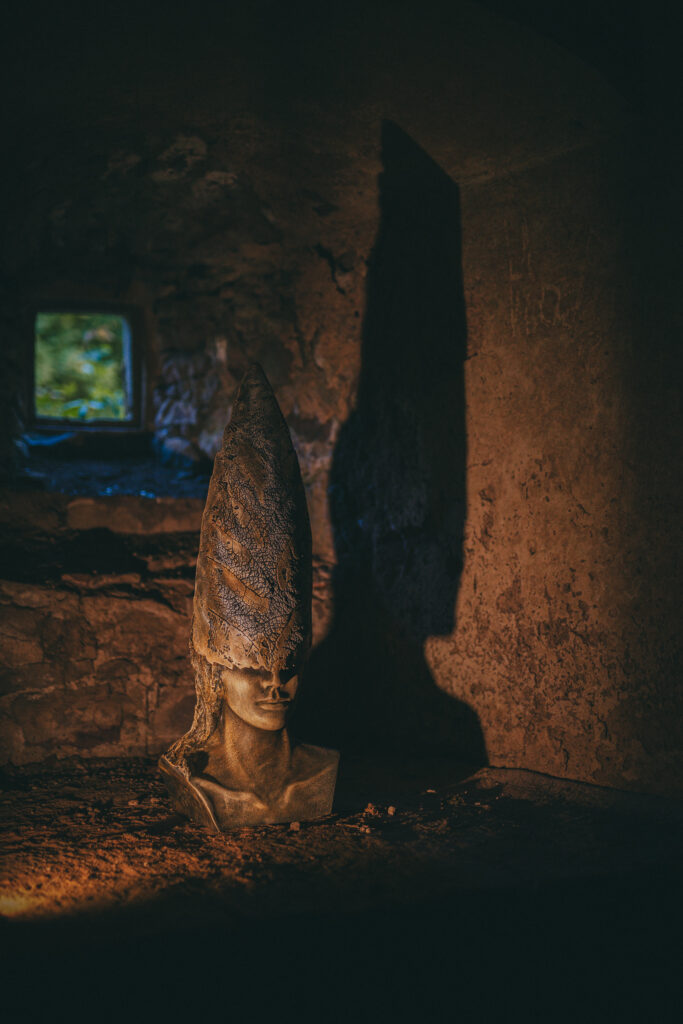
There were vernissages, performances and concerts from the series “Green Art Jaga Hupało in dialogue with artists. The Art of Nature – the Nature of Art”: in NOWA art space gallery, Jaga Hupało’s old workshop and Nowa Ruda Town Cultural Centre, as well as in the rooms and outdoor spaces of the Sarny Castle.
Jaga Hupało invited to the project artists whose works are creatively, ideologically and artistically close to her, as in case of Wanda Czełkowska. The works of both artists are linked by the shared material – human being. The main topic of Czełkowska’s sculptures are large-format heads, and in case of Hupało – the living matter of the human head, on which she creates hairdos, artistic creations and styling for the stage. The head as the key medium gives birth to concepts, various creations and obviously – contains life.
The invited artists understand Green Art as a combination of nature and art, inspiration of art by nature, of which we are a part and which surrounds us, and also art as the most universal tool of communication between humans. Combining those two aspects, they imagine first of all conscious and engaged art, being more than simply a message of beauty, imagination and intellect – but being a manifesto and message using the language of ecology, ideas and actions. Today, art not only draws from nature, but also creates it through a deliberate support.
The motif of kintsugi present in the project inscribes itself into that philosophy – an ancient Japanese art of renovation, for us being a symbol of rebirth. Green Art is a synergy which combines those two worlds through an exchange of thoughts and mutual inspiration – both for the creator, and the spectator.
– The nature of art is to spread around words, images and sounds combined into previously unknown new constellations, and the art of nature – to do it without a beginning and an end, in the cycle of eternal return. Green Art is the art of meanings with which the Planet speaks to us. We try to decode its language and the meanings contained in it, because is speaks more and more quietly. Creating in the Green Art current, we learn to send messages in the same language – the language of that which is alive, pulsates, vibrates – the language of the Earth craving for our care – that’s how Green Art is perceived by Agnieszka Szpila, an artist involved in the project.
Among the invited artists, there were also: Gosia Baczyńska, Tomasz Frasoński, Michał Ignar, Anna Hupało-Sikorska, Korab, Sławomir Siatkowski vel Dede Van der Roove, Marek Straszewski, Katarzyna Tomaszewska, Antonia Wolff, Anna Wysocka, Monique Chmielewska-Lehman, Art. B. Chmielewski, Ewa Dąbrowska, Hanna Derej, Daniel Fedorczyk, Edyta Jungowska, Kasia Korus, Jarek Koziara, Martha Mulawa, Mariusz Przygoda, Antoni Rychłowski, Jan Sajdak, Grzegorz Sierzputowski, Tomek Sikora, Katarzyna Sobocka, Piotr Sobocki, Tatiana Tokarczuk, Łukasz Woźniak and Anna Maria Kramm.
Curators of the majority of exhibitions were Barbara Siatkowska and Sylwia Krzemianowska.
The artists presented also the action “I collect for hair” with photographs by Andrzej Świetlik, which was created together with the Rak’n’Roll Foundation. They touched upon the subject of stigmatization of women, men and children facing cancer and they collected funds to support them.
Green Art also conducted a workshop on creating zero waste stripes for clothes (Karolina Śmiałek), there was performative painting on fabric (Janusz Gilewicz), word and music performance by Jagoda Jabłonowska, a presentation of “Herbarium” by Jaga Hupało, and the series ended with mapping on Martha Mulawa’s sculptures created by Filip Jarosz.
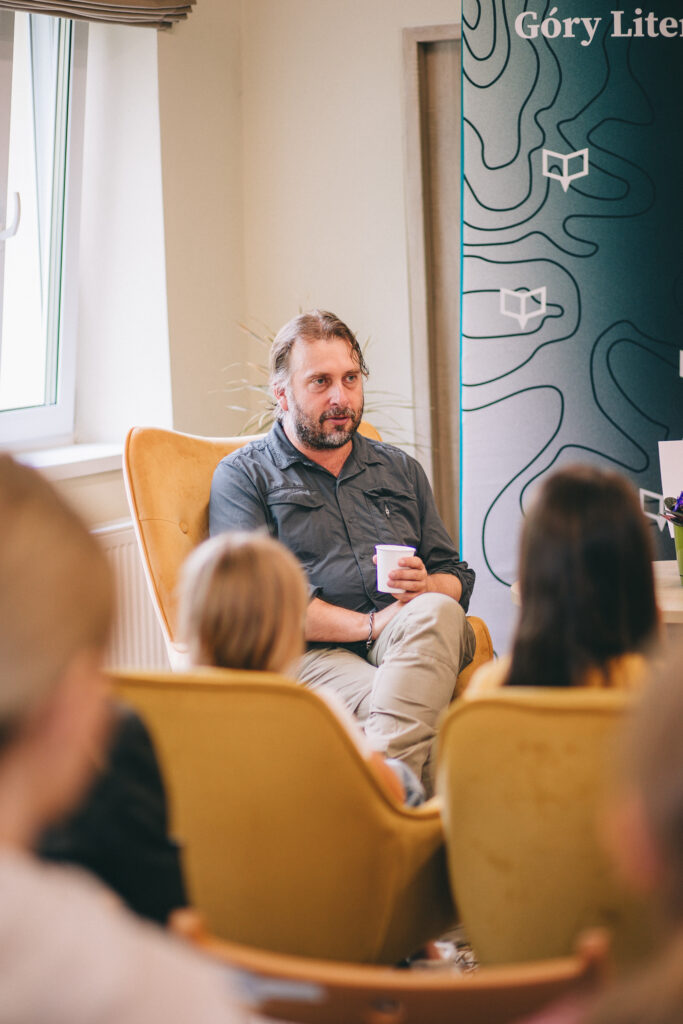
Workshops organized as part of the Little Mountains of Literature, i.e. the part of the Festival for children and young people, concentrated on combining fun and ecological issues.
Tomasz Samojlik conducted a workshop in drawing the forest and forest animals “Come and draw me a forest”. While drawing together, the participants had a chance to learn many surprising facts about the habits and behaviours of animals, as well as the amazing place they live in – the forest.
During the workshop „There’s no garbage, just ideas”, children learned how many interesting objects can be created from things usually ending up in the rubbish bin. They got to know basic information on recycling and the informed approach to waste management. They talked about the influence of human activities on the planet and how everyone can contribute to lowering the negative impact on the natural environment.
“EkoTeka” was a workshop for children combining practical and interactive approach to science, focusing on developing children’s creativity. The participants had the opportunity to learn through experiencing and experimenting. They could learn the rules of environmental protection and create unique objects and decorations from recycled materials.
We also organized a mobile ecological playground with board games, quizzes ang guessing games.
Within the range of social problems
The dynamic development didn’t impede the constant care for the quality and the social role of our Festival. One of the key speakers of this year’s edition was Marian Turski, who reminded us that we cannot be indifferent.
We are very proud that the historian, journalist and social activist of Jewish origin, former prisoner of Auschwitz-Birkenau and KL Buchenwald camps, who survived two death marches, accepted our invitation. The meeting entitled “Don’t be indifferent” was moderated by Urszula Glensk, literary scholar, critic, professor at the Wrocław University, who established the No Border Foundation, helping refugees on the Polish-Belarussian border. Before the meeting started, Marian Turski was greeted by Irek Grin, the director of the Olga Tokarczuk Foundation, who described him as the most important guest of the Festival.
– A small correction, not the most important, but the oldest – answered the 97-year-old Turski, laughing. – I am lucky to have lived to this moment to come here.
Grin’s enthusiasm was shared by the Festival audience, gathered in large numbers at Sarny Castle, which not only welcomed and said goodbye to the author with standing ovation, but also applauded many of his statements.
Marian Turski spoke about his childhood and the establishment of Łódź ghetto – he was 14 when he was sent there. He was taken to Auschwitz-Birkenau camp in one of the last transports. There, Germans murdered his father and brother. In 1945, survived two death marches: in January – from Auschwitz to Buchenwald, in April – from Buchenwald to Theresienstadt, where on 8 May, when he was nearing agony, the camp was liberated by the Red Army.
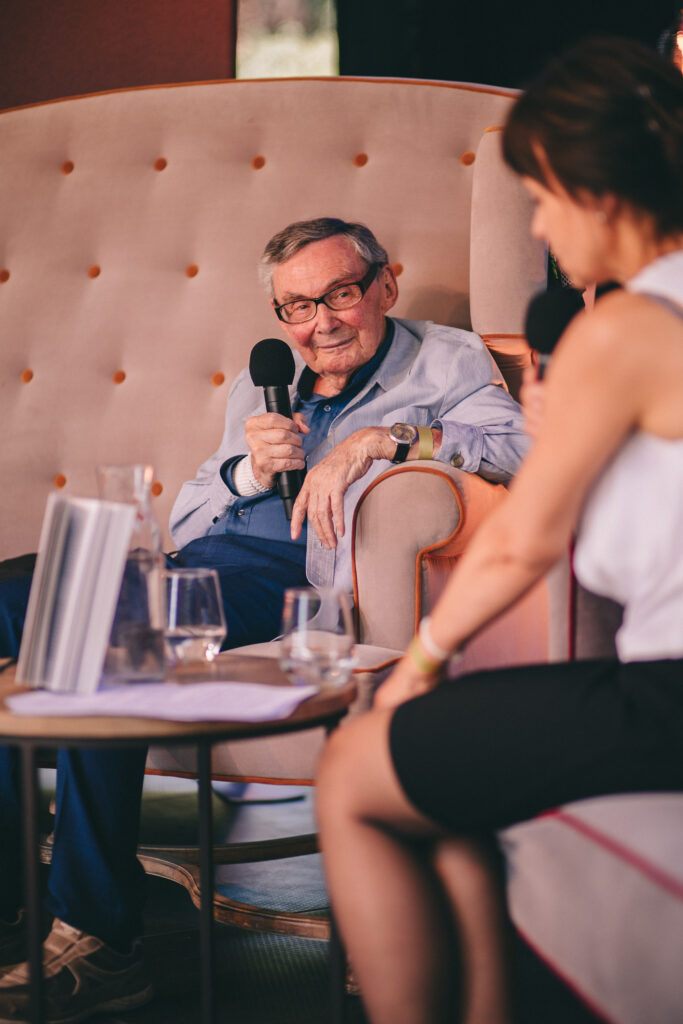
Glensk asked about the famous speech he gave during the ceremony for the 75th anniversary of the liberation of Auschwitz. During that event, Marian Turski appealed to people not to be indifferent to historical lies and discrimination of minorities. He recalled the words the president of Austria, Alexander van der Bellen, said to him that Auschwitz didn’t appear from nowhere. He noticed that the Third Reich in its politics managed to fulfil demands of the working class, overcome unemployment, and appeal to national dignity, and at the same time that these rulers recognized that the people are slowly being overtaken by insensitivity, by complacency. They no longer respond to a sense of evil. He appealed – If you become complacent, some kind of Auschwitz will suddenly appear from nowhere.
– If we assume that Auchwitz means totalitarianism, deprivation of human rights, depriving minorities of rights, it happens very slowly – he said during the Mountains of Literature Festival. – Unfortunately, it happens successfully when people get used to it. When the executioners get used to it. That’s what this tragedy is about. Some callous indifference appears. People lack that which Olga Tokarczuk speaks about: tenderness. Auchwitz will look different in Poland, Russia, South America, Asia, but the road to it is always getting used to, lack of protest, being a bystander. I see many fears right now, the vision of apocalypse, hunger, lack of water, diseases, epidemics. People are often helpless and they search for someone to lead them, to show them a model of life. This is what leaders striving to introduce a regime count on. Democracy demands active – it’s a cliché – participation of everyone who’s sitting here. Without it, we fall. Since Bucha, since 24th February, you are the witnesses of history, so remember about your responsibility for the history today.
Marian Turski participated also in the ceremony for the commemoration of Helena and Władysław Grzegorczyk, which took place during the Festiwal. During World War II, that couple saved at least 18 people of Jewish origin, staring the moment the Germans entered Borysław, where Władysław lived, in 1941. In the small attic of their house, according to the statements of the saved ones, there were aways new people hiding.
In 1942, the Grzegorczyk couple took in their care a 6-week-old baby, Lili Fuchsberg, whose parents, after the establishment of the ghetto, decided to join the partisans (they were denounced and put before a firing squad), and older siblings of the girl joined them in the forest. The girl was given new names – Zdzisława Katarzyna. She was adopted by the Grzgorczyks after the war and given their family name.
The Grzegorczyk couple saved also Lili’s 11-year-old sister Minka, who emigrated to Palestine when she was 14. The sisters didn’t see each other for years, but they exchanged letters. In 2021, Lili Fuchsberg’s book was published “Listy do mojej siostry 1947–1973” [Letters to My Sister 1947–1973], about which Marian Turski wrote: What a joy that the letters written in Polish for decades were not thrown out. Collected in an old shoe in an Israeli kibbutz, they got a new life. It is the best novel I’ve read recently, the best drama I’ve seen. The author was our guest and spoke about her book during the last year’s edition of the Festival.
In 1965, Helena and Władysław Grzegorczyk received the title of Righteous Among the Nations, awarded by the Israeli Yad Vashem to people of non-Jewish origin who risked their lives to save Jews during the Holocaust. Posthumously, they were also awarded the Commander Cross Order of Polonia Restituta for the heroic conduct and extraordinary courage in saving the lives of Jews during Worl War II, for outstanding achievements in the defence of human dignity and human rights.
Now, Helena and Władysław Grzegorczyk were commemorated in Nowa Ruda, where they lived and were buried in the local cemetery. Their name, in accordance with the resolution of the Nowa Ruda City Council, was given to a park in Nowa Ruda which was revitalised last year, located at Strzelecka Street. The name of the park will allow to preserve in the memory of the society unique persons, ready to sacrifice their lives to save the lives of others.
Olga Tokarczuk Foundation put forward a motion to honour the Grzegorczyks, as according to its statute, it wants not only to promote the region, but also to remind of unique personalities, determined to provide aid to the weaker and threatened ones, regardless of the time and circumstances in which they live.
Marian Turski spoke during the ceremony, movingly describing both the Jewish and the Polish parents of Lili Fuchsberg, their unimaginable sacrifice and courage. Right after him spoke Olga Tokarczuk, an honorary citizen of Nowa Ruda. – The history of the Grzegorczyks shows us how important it is to do good in the face of all the evil which is outside, to go against the tide, as our conscience commands. And that it works – she said.
And Catherine Ravet – i.e. Lili Fuchsberg – during a special session of the City Council, received the title of the Honorary Citizen of Nowa Ruda for her activities in the area of promoting the town, including the promotion of patriotic attitudes on the local and international level by commemorating activities of Polish people who saved people of Jewish origin during World War II, and the propagation of Polish culture and history in the world.
On the war and against violence
We do not forget history, also that which unfolds right outside our eastern border. Our Foundation is a child of the pandemic, growing up in the times of war and an economic crisis unheard of in Poland for 30 years. For some, it is the time of inhuman struggle, for others – a test of their humanity.
During the Festival, we raised almost 7 thousand PLN for the purchase of off-road vehicles for Ukrainian soldiers fighting in the area of Bakhmut and Kramatorsk. We organized the collection together with Linia Frontu [Front Line] Foundation. The chairman of the Council of that Foundation is Andrzej Stasiuk, who came to the Festival straight from Kramatorsk. The cars will be used, among others, to save the civilian population.
When the war in Ukraine broke out, many social and political issues were moved aside. But even in such a critical situation, we cannot forget about what women have managed to achieve so far, that one needs to know how to give help, and that accepting it is nothing bad. That’s why during this year’s Festival we organized a discussion on women’s rights and helping women refugees from Ukraine, with the participation of the Saxon State Minister of Justice and for Democracy, European Affairs and Equality Katja Meier and Katarzyna Kolenda-Zaleska. The speakers agreed that the current situation is a huge challenge for democracy. There appeared even a question about the fall of western democracy, but we didn’t receive an explicit answer.
Many firm and blunt words were spoken during the meeting on the inhuman pushbacks of refugees back to Belarus on the Polish-Belarussian border.
We presented the installation “Zone of Hidden Violence” created by Border Emergency Collective. The aim of their work is a detailed documentation and reconstruction of individual histories which happened in the border zone between Belarus and Poland, called the death zone. With the use of digital forensic methodology and tools, an audiovisual material was created, documenting histories of two individuals who experienced violence and pushbacks, as well as violation of human rights by Polish and Belarussian officers.
A digital reconstruction in the form of a film presents evidence gathered during the investigative process using situated testimonies, geolocation data mapping, audiovisual materials and 3D reconstruction. All that evidence revealed methods of violence used by officers from both countries towards migrants crossing the border in an unregulated manner during the humanitarian crisis.
After the presentation, the situation on the Polish-Belarussian border was discussed by Katarzyna Czarnota, a researcher in the Helsinki Foundation for Human Rights, Hanna Machińska, one of the creators of the Border Group, lawyer, and deputy for the Polish Ombudsman Adam Bodnar, as well as Przemysław Wielgosz, a left-wing columnist.
– Turning your eyes away is nothing new – said Anna Dąbrowska about the reaction of the Polish government to the pushbacks. They also spoke about the role of artificial divisions in a transborder and capitalist world, as well as about media, information and the idea of money. And about the outcomes of the militarisation of states parallel to globalisation. They speculated if it is possible to save multiculturalism in the face of the recurrence of xenophobia and ethnic resentments. And whether, as the climate crisis increases, the ‘fortress Europe’ – or its smaller counterpart: ‘fortress Poland’ – has any future at all.
– The fight for human life goes on at the Polish-Belarussian border. It’s an absolute disgrace for our country that we allow such situations. Today, we are writing the history of Poland. If we don’t acknowledge this impotence, we’ll end up in a tragic situation. Let’s keep an eye on the authorities. Activists – they are the ones who save human lives and they need our support – appealed Hanna Machińska from our stage.
The same problem was discussed during the meeting with Mikołaj Grynberg, writer, photographer and psychologist, which focused on his latest reportage “Jezus umarł w Polsce” [Jesus Died in Poland] (published by Agora). In the book, he documents the situation on the border, speaks to those who provide help and those who guard the borderline. Most of all, he portrays those who do not turn their eyes away, but go to the forest and give help. – There are those who still have the strength to do it and those who are psychologically overwhelmed. Some lost their families and jobs. But the executioners always explain their actions in the same way, like in Nuremberg: those were the orders – he said.
The pretext for the meeting with Adam Bodnar, former Polish Ombudsman, was the book “Nigdy nie odpuszczę” [I Will Never Give Up] (published by Agora). It is more than a memoir, but also an analysis of the current situation, including the dramatic events related to Russia’s attack on Ukraine and the very important role to be played by the Polish society in this context. The meeting was moderated by Robert Karpowicz.
I look, I feel, I talk
A conversation on the language of contemporary politics was inspired by a book by Michał Rusinek entitled “Ptak Dodo, czyli co mówią do nas politycy” [Dodo or What Politicians Say to Us] (published by Znak). In one of the texts collected in this book, the author writes that there are times and situations in our life when we cannot remain indifferent towards the surrounding reality. When things go wrong, we need to actively oppose them in the most effective way we can. For Michał Rusinek – an academic teacher, linguist, theoretician of rhetoric, writer with a gift for humour, the secretary of Wisława Szymborska and president of her foundation – the weapon in the political fight became the feature article, of which he is a true master. His latest book collects texts written between 2020 and 2023 – the time of the refugee crisis on the Polish-Belarussian border, COVID pandemic and Russian aggression on Ukraine. The author critically vivisects the language of the Polish ruling camp and the Russian propaganda. He analyses various protest strategies: of Ukrainians, their sympathisers around the world, Polish demonstrators, the vox populi of the Internet. And he is more than a critical observer; he also pertinently attacks, shotting his adversaries from his greatest guns: linguistic knowledge, literary and cultural erudition and the deadly sense of humour. The meeting was moderated by Magdalena Rabizo-Birek.
We also gave voice to graphic artists and illustrators, authors of the exhibition #WatchingFeelingDrawing, presented originally in the Eryk Lipiński Museum of Caricature in Warsaw. The opening of the exhibition was organized in Ludwikowice Gallery, in a former evangelical church. It is an exhibition built from women’s everyday lives – sometimes surprising and funny, but also difficult and painful. From everyday observations of reality – intimate, private, public, media and political. Ten different artists: Marta Frej, Matylda Damięcka, Magdalena Danaj, Małgorzata Halber, Kamila Szcześniak, Agnieszka Szczepaniak, Maria Apoleika, Monika Szydłowska, Marta Zabłocka, Karolina Plewińska – ten different perspectives of the same world. The world of women who aren’t indifferent towards what’s happening around them, but also a world determined by norms and circumstances which apply to women in particular. We hosted two of them during the Mountains of Literature Festival – Marta Frej and Maria Apoleika (“Psie sucharki”/Dog’s biscuits). The conversation was moderated by Olga Wróbel, who also wrote the text accompanying the exhibition. It’s impossible not to notice that the authors, seemingly enclosed in their private, intimate worlds, are at the same time observant commentators of the reality, reacting to current events, proving once again that the ‘private’ and the ‘political’ merge all the time and on many levels – she wrote in it.
For most of the Festival, in various locations, we were accompanied by the educational initiative Tour de Constitution. It is a continuation of the civic educational and information activity conducted by the Congress of Civic Democratic Movements Foundation for two years now. The goal of the project is to explain the nature of the rule of law and principles of democracy and to motivate citizens to participate in elections. Creators of the initiative emphasize that the current political situation and considerable impairment of democracy in Poland demand resolute civic actions. They accompanied us in their bus, they encouraged to read the Constitution thoroughly, and they gave away copies of it. They also handed out the Constitution in the version for children, as well as numerous educational materials. Among them, there was Danuta Przywara from the Helsinki Foundation for Human Rights and judge Igor Tuleya.
We also hosted lawyers from the #freecourts initiative: Maria Ejchart-Dubois, Sylwia Gregorczyk-Abram, Paulina Kieszkowska-Knapik and Michał Wawrykiewicz. They are not only a group of very active and effective defenders of the rule of law. They also document lawlessness, which slowly robs us of the guarantee that we live in a country where democratic standards are observed. #freecourts for years have been making us aware that, in Poland, the guardians of the constitution break it all the time, and the idea of the separation of powers, trias politica, becomes fiction and a meaningless phrase used by politicians and not the foundation of the functioning of the state.
We spoke about the institution of the Catholic church with the authors of books devoted to this subject, Artur Nowak and Stanisław Obirek. After the renowned book “Gomora. Władza, strach i pieniądze w polskim Kościele” [Gomora. Power, Fear and Money in the Polish Church] they returned with a new publication, “Babilon. Kryminalna historia kościoła” [Babylon. The Criminal History of the Church], in which they explore yet another rather unpleasant face of the Catholic church. Staying true to facts, the authors paint a criminal history of the church, which robbed and murdered victims of the colonial oppression in Canada, taught women in Ireland the culture of rape, cynically persuaded through the mouth of ‘saint’ Mother Theresa that suffering sanctifies, so it shouldn’t be eased. The authors present a corrupt church, entangled in political wars, afraid of the vision of the synod during which the faithful would decide its future together with the priests. – The church preserves a certain system which is pathological in nature. It is an institution which tolerates no criticism. We are sometimes accused of waging a war on the church. It is not a war. It is catharsis. A help for the society to become a civic society, and not a terrorized one – said Artur Nowak during the meeting moderated by Waldek Mazur.
Choosing between religion and science, the relativity theory and faith was the topic of a conversation between Jerzy Sosnowski, critic and journalist, and Krzysztof Meissner, eminent scientist, cosmologist and theoretical physicist. The starting point was a book published recently, an extended interview “Fizyk w jaskini światów” [A Physicist in the Cave of the Worlds] (published by Biblioteka Więzi) on physics, its relationship with life and the possible consequences of the contemporary science for our outlook on life. The festival meeting was moderated by Edwin Bendyk, the president of the Stefan Batory Foundation.
Krzysztof Meissner also participated in a debate with Jan Woleński “Science and transcendence”. Katarzyna Kasia asked about the important and not necessarily clear division between physics and metaphysics and whether contemporary science is able to measure and weigh everything. – I believe religion is a form of social control. The existence of evil and good is an embarrassment for God. The fact that a million children were killed during the Holocaust is an embarrassment for transcendence. If I see a sentence on the wall of a concentration camp, written in a child’s hand, ‘Mum, I was good”, I consider God underserving of respect. There’s no theology to explain it – said professor Jan Woleński.
Similar topics were discussed during the conversation between the astrophysicist Marek Abramowicz, a theoretical physicist, philosopher, theologist and active Catholic clergyman Michał Heller and a physicist and politician Ludwik Turko. Katarzyna Kasia asked if the advancing secularisation led to a change in the relationship between science and religion and if there is a possibility to preserve, in the rational world, a space for forms of spirituality falling outside of not only reason, but also institutionalised churches. – It’s worth looking at faith and science as entangled orders. And this entanglement is a riddle we might never understand, but it’s ok. We simply cannot refuse to acknowledge this mystery of being – said Marek Abramowicz.
We devoted two meetings to cancel culture, attempting to recognize and define the problem.
On the legal and social perspective, Katarzyna Kasia talked to social psychologist Michał Bilewicz and a lawyer, former Polish Ombudsman Adam Bodnar. They considered mechanisms working within a culture which constantly attempts to renegotiate its correctness; if cancelling people who do not fit into the canons of what is acceptable results from the need to protect marginalised groups, the oppressed, deprived of access to common goods – including, significantly, culture. They also searched for an answer to the question about legal and social consequences of erasing individuals and groups. They debated if cancel culture can be treated as a finally awoken and rightfully strengthened voice against discrimination, or if that mechanism got out of control and no one can be certain when they would be placed on the side of the oppressors.
The self-censorship perspective was discussed by Amelia Sarnowska with the writer Inga Iwasiów, writer and columnist Wojciech Orliński, ethicist Magdalena Środa and writer Krzysztof Varga. She asked if artists, teachers, institutions and organizations are afraid of statements which can result in ostracism, and as a consequence cancelling by harmed communities or individuals? Are they afraid of becoming victims of cancel culture? Do they start to self-censor, limit themselves not to become an object of cancelling?
Breaking the taboo – on suicides, sensitivity and the strength for life
The publication “Cała siła, jaką czerpię na życie” [The Whole Strength I Draw for Life] (published by Karakter) was a starting point for a conversation about coming out. Three authors – Olga Górska, Kamil Pasiecznik, Michał Safianik – whose texts were included in a thousand-page-long anthology of queer diaries and statements from Poland, published last year, talked with the co-editor of the volume Łukasz Mikołajewski and the audience. They provided intimate answers to questions what ‘coming out’ actually is; when it starts, when it ends – and if it ever ends, as well as what is the meaning of its importance in the autobiographical testimonies of LGBTQ+ persons.
Sensitivity and diversity was the topic of a conversation with Ewa Woydyłło, a psychotherapist holding a Ph.D. in clinical psychology and specialist in addiction therapy, a pioneer in neurodiversity research. She writes psychological books in which she focuses less on human problems and more on solutions for them. The starting point for a conversation moderated by Łukasz Pilip was her latest book “Nasz bieg z przeszkodami. O wrażliwości i inności” [Our Obstacle Race. On Sensitivity and Diversity] (published by Literackie). We heard a story on how difficult it is for us to understand someone’s otherness. – Everyone is different from everyone else – emphasized Ewa Woydyłło.
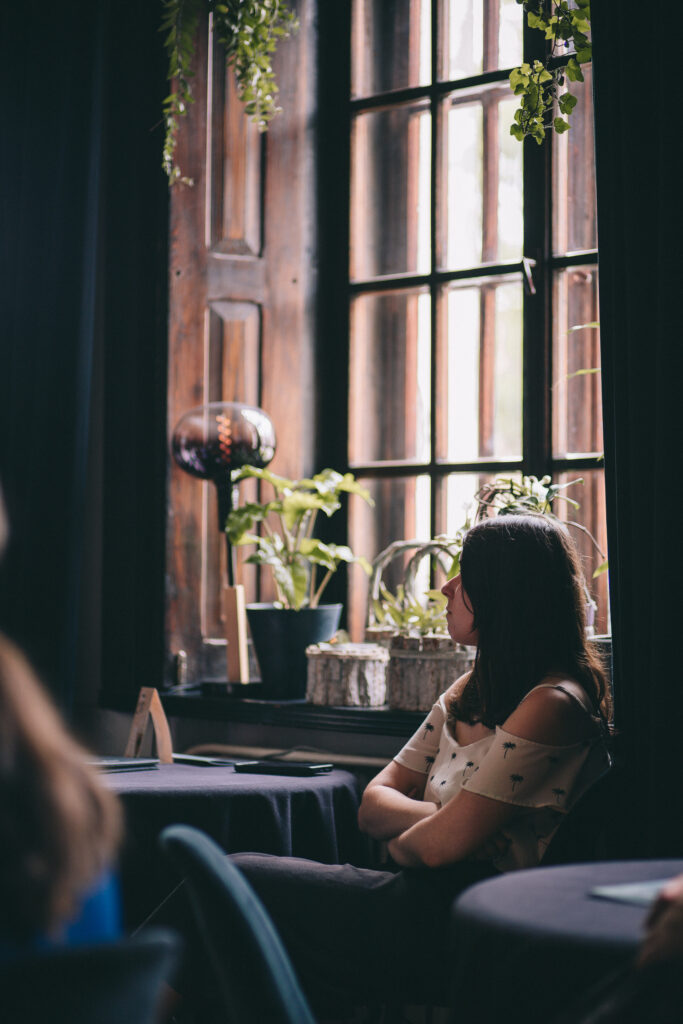
We also invited Halszka Witkowska, a specialist in suicidology.
Suicide is a difficult and sensitive subject. But it doesn’t mean we should avoid it. Halszka Witkowska knows very well how to talk about tabooed phenomena. Maciej Robert spoke to her about her book “Życie mimo wszystko. Rozmowy o samobójstwie” [Life Despite Everything. Conversations on Suicide] (published by Prószyński Media).
Witkowska also gave a lecture “A small person, a big problem. Suicidal behaviours among the youth”, after which suicidologist and crisis counsellor Jolanta Palma explained how to notice a crisis in a child and how to react to it.
We spoke about feminine gender forms in the Polish language, and especially about their legal aspect. Many important social changes start with language. We pondered the issue why, according to the Polish law and regulations, a female director, lawyer, architect and president have to use masculine forms of their titles. Irek Grin spoke about those issues with the lawyer Sylwia Gregorczyk-Abram, linguist Michał Rusinek and Plenipotentiary of the Mayor of Wrocław for Equal Treatment Alina Szeptycka.
We also looked far into the west and considered problems of the contemporary United States of America. Their intricacies were explained by reporter Ewa Winnicka, as well as specialist in American studies and political scientist Piotr Tarczyński, author of a very well received book “Rozkład. O niedemokracji w Ameryce” [Decomposition. On Non-Democracy in America] (published by Znak Literanova). The title of the meeting – “America” – as broad as possible, allowed us to combine two perspectives during the discussion: a direct experience of America, as well as thinking and speculating about it in the ideological, geopolitical context. The meeting was moderated by Eliza Kącka.
Flying People’s University
The educational section of the Festival, Flying People’s University, develops dynamically. This development is not accidental. For a long time, we’ve observed a growing need for more broad extracurricular education, which. For several years now, the official school education in Poland has been changing into a tool for implementing the ultra-conservative goals of the authorities. The Polish school system – by e.g. a radical change in the list of obligatory reading and implementation a new historic policy – is being transformed into a place of indoctrination and exclusion of ethnic minorities, it deepens and exacerbates social divisions, it avoids discussion and censors debates on, among others: sexual minorities, environmental protection, climate disaster, violence of religion and the state, fluid identity, the rule of law and many other topics, undermining the foundations of freedom and democracy, and in return propagating authoritarian, nationalist, xenophobic and homophobic ideas. A radical growth in the number of suicide attempts among teenagers also results from “gagging” in school and the media topics uncomfortable for the ideologized authorities, emphasizing their unnatural character and contradicting them with “traditional” Polish values and teachings of the Catholic church. It also results from administrative decisions limiting various forms of help.
In September of this year, the Olga Tokarczuk Foundation will transform the Flying People’s University into a year-long project of classes for children, the youth and adults. The experience of the recent years proves that only systemic and consistent extracurricular education, especially in smaller towns and villages, will allow us to prevent the growth of dangerous tendencies, faced by Poland and many countries in the world. We need to restore the proper meaning of such notions as the rule of law, equal rights, respect for diversity. We need to teach about the mechanisms of populism, hate speech, xenophobia and nationalism. We need to educate in order to prevent and fight any form of exclusion.
– I believe that education never ends. We live in a time when tomorrow is totally different from yesterday, and that’s why we need to constantly participate in discussions and a permanent process of learning – explained the Nobel Prize Winner during a meeting devoted to the plans of the Olga Tokarczuk Foundation.
Other participants were project coordinator Jana Karpienko, president of the Board of the Foundation Grzegorz Tokarczuk and president of the Foundation Council Irek Grin.
The huge interest in this year’s seminars, lectures and workshops (there were 19 of them altogether) confirmed our conviction that there is a deep need to develop the educational component. Over 600 people registered for the workshops of the main FPU series, but due to limited number of places, we couldn’t accept everyone.
A seminar by professor Magdalena Środa entitled “Defiance, resistance, rebellion – a workshop on being progressive” was hugely popular. The first thing they tell us when we are children, at school, in a state, is to be obedient. Parents, officials, authorities demand obedience, and probably without it families, communities and states would fall apart. But would they develop? Defiance, resistance, rebellion – those are the tools for a change and both a social and moral progress. Tools not easy to use, because you need a strong willpower, vision and courage to use them. Participants in the workshop looked at various forms (literary, philosophical, social) of defiance, resistance and rebellion, as well as the values they defend, the visions they serve.
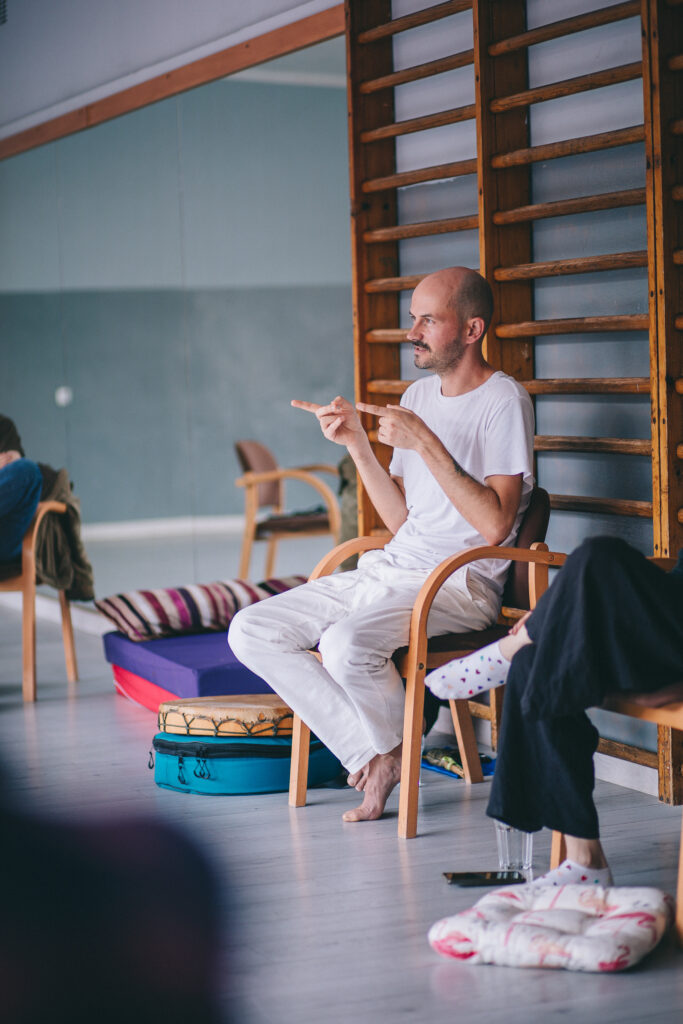
Equally popular were meetings with Edwin Bendyk, who continued the “Ex-centre” series, organized also during previous editions, this year under the slogan “Future regained. Strength and sources of hope in the time of chaos”. Edwin Bendyk encourages to get used to the notions of ‘policrisis’ and ‘permacrisis’, because they accurately describe the condition of the world at present and in the nearest future. It is from those notions that the complexity of challenges and their interdependence result: the climate disaster is related to the massive loss of biodiversity, which in turn translates into the possibilities to produce food and grant access to safe water. The case is similar with access to energy carriers and other resources necessary to maintain and develop civilisation – their exploitation is related to growing ecological and social costs. The development of new technologies more and more frequently starts to cause fear that humanity might become a victim of its own creativity and innovation. All those crisis impulses and processes influence the life of societies and politics. When good solutions for growing challenges are no longer available, violence and wars return to the repertoire of political means.
Edwin Bendyk believes that humanity crosses with no return consecutive checkpoints on the road to a catastrophe, but future can be regained, and we have the necessary tools, knowledge and resources at our disposal. But a good future doesn’t mean continuing the contemporary status quo, when the quality of life is measured with quantitative indicators of consumption of goods and services. It means a world in which everyone can live in dignity and at the same in accordance with the capabilities of the ecosystem of the Earth.
We also spoke about the social responsibility of contemporary urbanism and architecture. A workshop on revitalisation of cities was conducted by Dorota Jarodzka-Śródka and Kazimierz Śródka. They presented their vision of a person professionally dealing with architecture and urbanism as a creator of various “shared spaces” – understood both as spaces for rest, recreation and meetings of residents, as well as community thinking about buildings, estates and cities in the context of social needs and expectations. The participants discussed a participatory model in design and revitalisation.
Jana Karpienko and Robert Rient conducted a workshop entitled “The shamanism of stories”. It was a meeting inspired by contemporary shamanism, its practice in the reality surrounding us, as well as basic notions, phenomena and processes related to the practice of shamanism. The moderators consider shamanism a spirituality needed by the contemporary world – beyond religious paths. Spirituality of freedom, health, discipline and love. Spirituality of considering the spirit, mind and body as important and interconnected. Spirituality accepting the right of people to live in their full diversity and accepting plants, stones, rivers, mountains, fire, wind, earth as alive.
We also attempted to learn how to write a script for a computer game and how the career path in the world of computer games looks like. Computer games – by the end of the last century an entertainment of the few – are now a powerful medium, reaching circa three billion people around the world. Some games are for relaxation, other tell stories in which the player is immersed. Aleksandra Bieluk, Carlos Castañon, Mateusz Błaszczyk and Zbyszko Fingas, creators of the Sundog company working on the game “Ibru” on the basis of “Anna In in the Tombs of the World” by Olga Tokarczuk, spoke also about their fascination with the gaming universe and its diversity. They spoke about the process of creating a game from scratch. Telling a story is one thing, but adjusting it to become to a script and a narrative for a computer game is something completely different. It turns out that a game creator has more storytelling tools and their disposal than a writer.
Literary events
As part of the literary component of the Festival, we organized numerous meetings devoted to a broad spectrum of contemporary literature, not only Polish. We hosted both bestselling writers and debutants, authors of prose, poetry, non-fiction, popular fiction and young adult literature. We talked about committed literature, whose authors – just like we do – believe in its power to change the world.
A special event which, as we already mentioned, gathered the biggest audience, was the performative reading of dialogues from “Empuzjon”(published by Literackie), the latest novel by Olga Tokarczuk, which is located in Görbersdorf spa – currently Sokołowsko.
The adaptation was prepared by Irek Grin, and participants in the event, which we entitled “Men’s Talk”, were: Jan Peszek, Robert Więckiewicz, Arkadiusz Jakubik and Maciej Stuhr
It was a multilayered and very detailed adaptation, because – as we can read in the Nobel Prize winner’s novel: All the misogynist views on women and their place in the world are paraphrases of texts by the following authors: Augustine of Hippo, William S. Burroughs, Bernard of Cluny, Joseph Conrad, Charles Darwin, Émile Durkheim, Henry Fielding, Sigmund Freud, Henry Rider Haggard, Hesiod, Cato, Jack Kerouac, David Herbert Lawrence, Cesare Lombroso, William Somerset Maugham, John Milton, Friedrich Nietzsche, Publius Ovidius Naso, Plato, Ezra Pound, Jean Racine, François de La Rochefoucauld, Jean-Paul Sartre, Arthur Schopenhauer, William Shakespeare, August Strindberg, Jonathan Swift, Algernon Charles Swinburne, Simonides of Ceos, Tertullian, Thomas Aquinas, Richard Wagner, Frank Wedekind, John Webster, Otto Weininger, William Butler Yeats.
We also took the participants of the Festival on a walk following the traces of “Empuzjon”. Jerzy Marek showed them selected locations in Sokołowsko, an inconspicuous village in the Sudetes, the German Davos, hidden between woody hills. Before the First World War, people afflicted with ‘chest and throat’ illnesses came here, to cure their ailments using the innovative climate-dietary method, overseen by the best specialists in doctor Brehmer’s spa.
The trip started outside “Zdrowie” cinema, to see the huge walls of the former sanatorium, which is now the International Laboratory of the InSitu Foundation. It followed the paths walked by Mieczysław Wojnowicz (the main character of the novel, a student of plumbing engineering from Lviv, suffering from tuberculosis) with other residents of the Pension for Men.
The participants could also experience the atmosphere of the narutopathic horror story, entering deep into the forest.
During this year’s edition, we hosted the eminent poet Ryszard Krynicki, one of the best known representatives of the so called New Wave in Polish poetry. The occasion for the meeting, the title of which we took from one of his poems, “waiting in line for bread”, was the poet’s 80th birthday. – When we learn to read and write, we lose our innocence – said the poet in conversation with Ilona Witkowska.
Andrzej Stasiuk talked to Maciej Robert during a meeting entitled “Rivers and borders”. Space is very important in their work – both the real one, and the one being its cartographic reproduction. In each of them a significant role is played by rivers, as they are a borderline location. During the discussion we crossed a river. More than one.
Supposedly, it is poetry which can react to reality quickly, while prose writers need distance towards the events – that’s at least how eminent Ukrainian writers explained their silence in the face of war. Inga Iwasiów is one of the first Polish prose writers who decided to depict phenomena afflicting Poles in the most recent times – the pandemic and the nearby war. She did it using the convention of dystopia – her novel “Późne życie” [Late Life] (published by Drzazgi) projects a scenario of a near, alternative future after the apocalypse. Iwasiów follows Miłosz’s statement from “A Song on the End of the World” that there will be no other end of the world, other than ours, poor, experienced every day, filled with a surplus of objects (including books, so important for a writer who’s also a literary scholar) produced by our civilisation, with neurotic characters, tired of work or unsuccessful attempts at finding it, failed relationships, toxic families, fighting inner crises with alcohol, drugs and psychotropics. The scenery of “The Late Life” is outstanding – a deserted small resort by the Baltic sea out of season with a towering gigantic, ultramodern, luxurious H’otel. The conversation with the author on various topics from the novel was moderated by Magdalena Rabizo-Birek.
With Julia Fiedorczuk, we spoke about both poetry and prose, on occasion of her two new books: the novel “Dom Oriona” [Orion’s House] (published by Literackie) and a volume bringing together and commenting on her entire poetic oeuvre “Astrostrada z girlandami. Wiersze zebrane” [Astralway with Garlands. Collected Poems] (published by Warstwy). The author herself described “Orion’s House” as the most difficult to write of all her books. Marcin Baniak and Waldek Mazur asked if there are subjects for which prose is not enough and you have to reach for poetry. –Poetry is made of particles of sense and sound – answered the author.
It’s impossible to imagine the Mountains of Literature Festival without Karol Maliszewski, who’s been co-creating it from the very beginning. This time he spoke about his latest book “Diabeł z Wilkowca” [The Devil from Wilkowiec] (published by Warstwy), in which he once again unveils mysteries of Lower Silesia. This area, and especially the region around Nowa Ruda, between the Stołowe Mountains in the south and the Owl Mountains in the north, is full of stories, tales and legends. Karol Maliszewski decided to collect them and present them anew. The first part of his work was included in “Czarownica nad Włodzicą” [The Witch by Włodzica] published in 2021. With the help of the illustrator Tatiana Tokarczuk, he returns to the subject, he discovers more sources and tales. In particular, he searches for information and materials in German-language works published by the end of the 19th and in the first decades of the 20th century. The authors of the book – also thanks to the fantastic illustrations – not only draw the readers into the extraordinary world of fairy tales, but also broaden their knowledge about the region and its past. And also encourage everyone to search on their own, to take both literary and outdoor walks and discover Lower Silesian mysteries. – I think there was a reason why my parents, repatriates, got off the train exactly here. There’s something here which defines me – he said about his fascination with the mysteries of Lower Silesia during the meeting moderated by cultural studies specialist Piotr Jakub Fereński.
Mysteries of the region, especially historical in nature, are the focus of the work of Joanna Lamparska, reporter, writer, regionalist, creator of the Lower Silesian Festival of Mysteries. In her latest book “Ostatni świadek. Historie strażników hitlerowskich skarbów” [The Last Witness. Stories of the Guardians of Nazi Treasures] (published by Znak Koncept), about which she talked during the Mountains of Literature, she takes readers to the world of hunters of secrets, looks into forgotten archives, explores castles and palaces, on the way learning dramatic histories. It’s hard to believe how far some of us are willing to go to discover “lost treasures”. The meeting was moderated by Waldek Mazur.
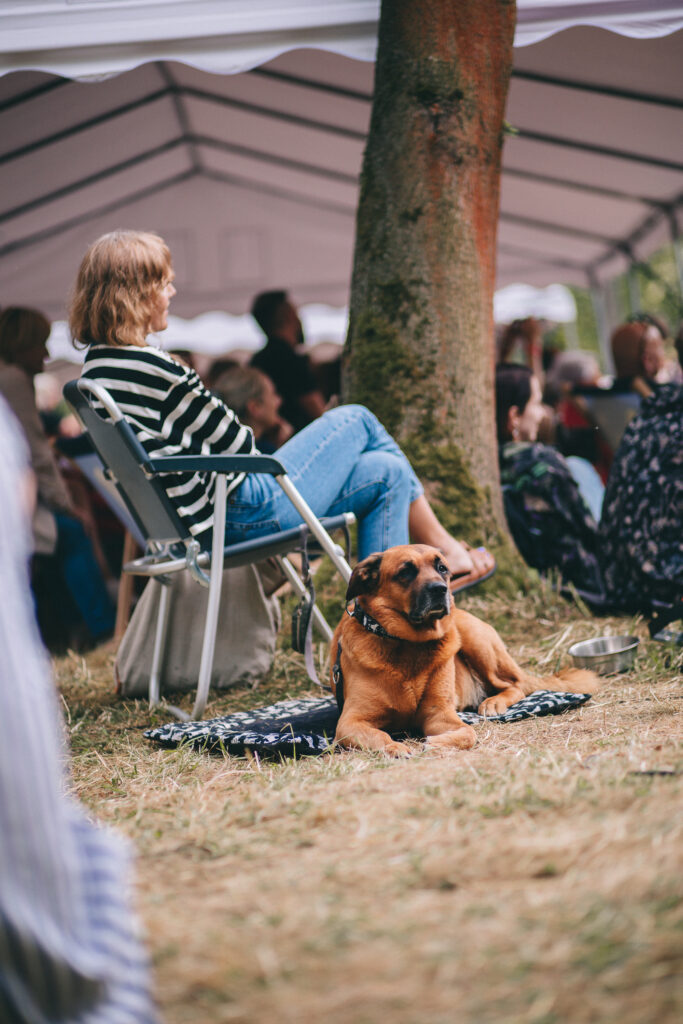
Joanna Lamparska participated also in a panel discussion “Lost identity” with Filip Springer, moderated by Magdalena Barbaruk and Piotr Jakub Fereński. The conversation was obviously about Lower Silesia, the cultural identity of which is a challenge for the contemporary residents of the region, among them writers, researchers and artists. The past seems to be still the most important task, as it is ‘lost’, it is where we search for ‘post-German treasures’ – although they can mean different things, sometimes a bottle cap in Miedzianka, sometimes hidden gold. The topic of the discussion were different kinds of the regional experience, various views on Lower Silesia, various methods of working on the ‘Lower Silesian affection’, an important role in which is played by the feeling of uneasiness. We asked about the role of the research of historic sources, the search for archives, the meaning of sensual and bodily cognition, and also about the meaning of imagination.
Joanna Bator, originally from Wałbrzych, met with the public twice – in conversation with Eliza Kącka and Magdalena Rabizo-Birek. The occasion was “Ucieczka niedźwiedzicy” [Escape of the Female Bear] (published by Znak), the latest book of prose by Bator, a narrative constructed from many stories. We wondered if it is a collection of short stories or an atypical, episodic novel. It definitely is a great introduction to the literary universe created by the writer, in which this time we find more traces and reminiscences of her personal life. The centre of the book is a dilapidated monument of the Socialist times – the Sudety hotel in Wałbrzych; that’s where characters from the book, gone missing in mysterious circumstances, meet. In following short stories/episodes we travel not only around the corners of the writer’s hometown, but also to Warsaw and outside it, to Japan, Switzerland and a small Greek island, where refugees coming by sea from Asia and Africa end up. We also get to know a new place on the literary map of Poland – the Lower Silesian village Imbramowice, along the train line Wałbrzych-Wrocław, which the writer decides to include in her world. Losers, people in serious life trouble, on the verge of a breakdown and desperately trying to change and reverse the fate chasing them – those are the people we meet in the novel. The writer explained why she reaches for the inexplicable, experiments with weirdness, and asks about freedom – its limits and possibilities.
Boundaries were also the subject of the meeting with Maciej Hen – both imposed in the form of various social norms, and those more private. Amelia Sarnowska asked the author of “Segretario” also about what can make it easier for a person to undertake the fight for the truth, including the truth about one’s own identity. She also looked at the tender tool a letter can be in this situation.
We also hosted Edward Pasewicz, winner of the Angelus Central European Literature Award for the novel“Pulverkopf” (published by Wielka Litera). It is one of those mysterious texts which take the reader to the difficult, afterwar time, the state of identity, historical and existential loss; a world in which the postwar fates of the characters intertwine – Poles, Jews, Germans, Soviets and their descendants. It is not easy to label this book, which is a good recommendation for demanding seekers of captivating literature. The reader can expect the wonderful language of a well-known poet, an unusually oneiric image and amazingly constructed narrative. The conversation with the author was moderated by Milka Malzahn.
We spoke about memory with Adam P. Salina, author of the novel “Judej albo Testament Ony” [Judej or Ona’s Testament] (published by Rider). Ona from the title is a Polish woman buried in a German cemetery, where the main character of the book encounters her, who was sentenced to work camp for hiding Jews. The woman speaks about an executed Jewish family and a promise to find a boy who was lost in the ghetto. As a farewell, she leaves the stones which were to be placed on the grave of the victims. Tom discovers a code in Ona’s words and understand them as a testament. To fulfil it, he decides to find the place of the murder and burial of the Jews and solve the riddle of the lost boy’s fate.
Amelia Sarnowska asked the author about the nature of memory (including memory about the most difficult events) and the roads history sometimes needs to take to keep that memory. They also considered together how trauma and crime can influence the grown-up life of the victim – and what can be the place of literature in all of this.
Jacek Dehnel came with his latest volume of poetry “Bruma” (published by a5), the title of which means winter solstice in Latin. It is a unique book – both in the context of the poet’s oeuvre and the most recent Polish literature. Not only because of a strong presence of sociopolitical issues, which – however – do not transform that poetry into versed journalism. The ‘bruma’ of the title says much about the condition of the world, the human being, and finally – the condition of the ‘I’ speaking to us in those poems and through those poems (and poetic proses). It is dark, that’s beyond doubt. But paradoxically, in “Bruma” the darkness sharpens our vision, it intensifies the suggestiveness of images and the power of the word. And it gives us hope we can come out of the darkness. – It wouldn’t be possible for me to write those texts in Poland, I needed the perspective of emigration – said Jacek Dehnel in conversation with Eliza Kącka.
Weronika Murek, playwright, writer, author of the book “Dziewczynki. Kilka esejów o stawaniu się” [Girls. Several Essays on Becoming] (published by Czarne), talked about her work on the publication. It’s a collection of essays which free the titular characters (including Dorothy from “The Wonderful Wizard of Oz” and Lolita from Nabokov’s novel) from poisonous cultural convictions that they are frivolous and mean nothing. The author explains and proves that the life of girls is trying on, pretending, transforming, a game, and there is a huge power hidden behind this constant becoming. In her brilliant and unruly narrative, the author regains that which is the most precious in girlhood: a dream which just a moment before seemed to be a whim.
We asked Murek about digging through piles of cultural patterns, thoughtlessly repeated texts and male prejudices and also how bizarre they are. The meeting was moderated by Michał Nogaś.
Michał Nogaś moderated also a tender and funny conversation with a daughter and a father, i.e. Maria Peszek and Jan Peszek, in relation to Maria’s book “Naku*wiam zen” [I F*cking Load Up Zen] (published by Marginesy). The book, which is a kind of a conversation itself, captures an unconventional and reassuring relationship between a daughter and her father, but also between two artists, experienced and at the same time sensitive. Nogaś asked about family relations, how to speak to each other, how to get down from a barricade and how not to give up when, in the most difficult moment, health problems appear. – Many people asked me to write a biography or an extended interview. I didn’t want to, I was afraid no one would ask me bold questions. When Maria asked me, I instantly agreed to jump into this totally unpredictable abyss. Our conversations, which were very long, had a therapeutic function, although they certainly didn’t give Maria exhaustive answers. That book surpassed my boldest expectations. It means that our relations didn’t go to waste – revealed Jan Peszek.
Tenderness and laughter were present in the meeting with Filip Zawada, who was interviewed by Olga Wróbel, mainly about his work on the latest novel “Weź z nią zatańcz” [Go Ahead and Dance with Her] (published by Znak), a story of accepting death and loss. – Writing books is an unreal thing. You are inside something that isn’t there. For me it’s like peeing. I definitely need to do it. I cannot stop myself. I write even when I don’t write – said Zawada.
Among our guests, there were also eminent authors of reportages and non-fiction.
Wojciech Tochman spoke about his latest book “Historia na śmierć i życie” [A Story for Life and Death] (published by Literackie), in which he pays tribute to the eminent reporter Lidia Ostałowska. She was the first to start documenting the tragedy of “Osa”, the first woman to be sentenced to life imprisonment in Poland. It was one of the most sensational and brutal crimes in the new Poland. Three secondary school students – two boys and a girl – murdered a young woman in January 1996. We talked with the author about fear and violence, but also about revenge and longing. Wojciech Tochman participated in three meetings, one was moderated by Ewa Winnicka, and the remaining ones – by Waldek Mazur.
Mariusz Szczygieł not only talked about his new book “Fakty muszą zatańczyć” [The Facts Need to Dance], but also caused bursts of laughter from the audience with his stand-up vibe. He met his readers twice, and the meetings were moderated by Ewa Winnicka and Maciej Robert.
Filip Springer answered questions prepared by Ilona Witkowska about his new book “Mein Gott, jak pięknie” [Mein Gott, How Lovely] (published by Karater). It’s a partly fictionalized, partly documentary story the main character of which is the landscape. Travelling on a bike around former eastern provinces of Prussia, later called the Regained Lands, the author follows people who – inspired by the vision of progress – joined the industrial revolution, gradually transforming the world around them. A part of that story takes place by the Oder – the first engineered big river in Europe; a part in Prakwice forests, where emperor Wilhelm II, fighting his own demons, killed off the entire population of deer. Springer looks at the landscape in the way it was observed by the 19th century lithographers, builders of the Prussian rail and the father of Polish photography Jan Bułhak. In this way, he tries to understand where he got the feeling, so difficult to ignore, that he was in that place before. We asked him what it means to “discover a place” and if it’s at all possible.
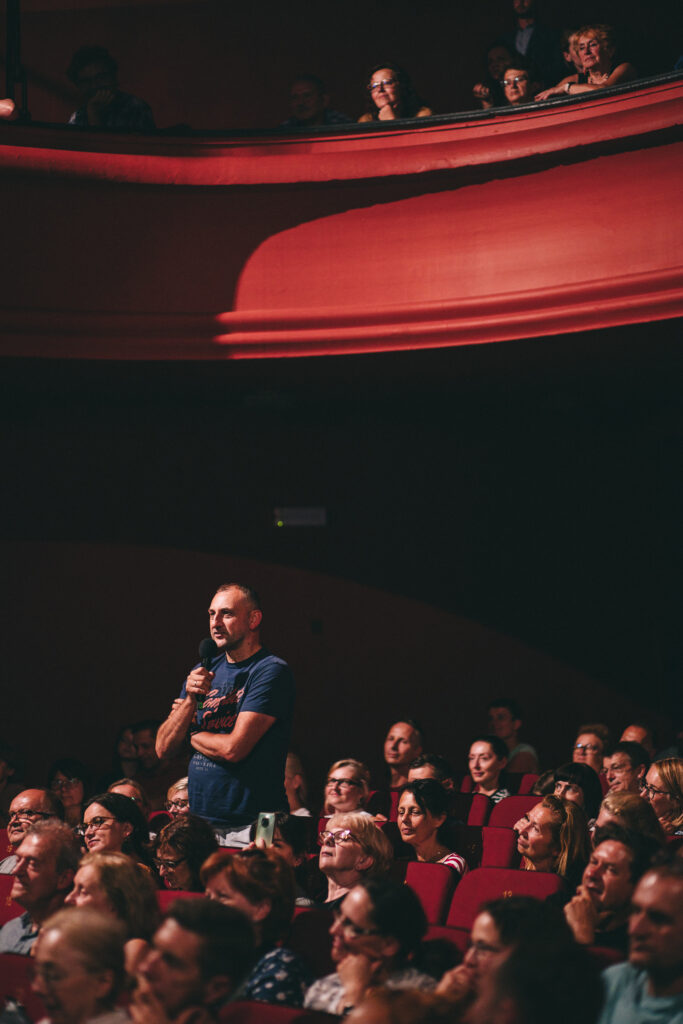
Wojciech Orliński spoke about his work on the revolutionary biography of Nicolaus Copernicus. He talked about the half-orphan from Toruń, the location where the theory was created, the Middle Ages, the Renaissance and counterreformation, and also a little bit about Poland. Questions about “Kopernik. Rewolucje” [Copernicus. Revolutions] were asked by Paweł Goźliński.
Joanna Kuciel-Frydryszak spoke about working on the book “Chłopki. Opowieść o naszych babkach” [Peasant Women. The Story of Our Grandmothers] (published by Marginesy). There, she gave voice to our grandmothers and great grandmothers, she allowed them to speak about their life, showing the strength of village women, their endless devotion to their families, but also the desire for a change and the unequal fight for themselves in a patriarchal society. Injustice and heroism, poverty and love – all that was hidden behind the doors of peasant cottages. – It seems it was 300 years ago and not in the generation of our grandmothers – she said during the discussion with Olga Wróbel.
The meeting with Konstanty Gebert circled around his book “Pokój z widokiem na wojnę. Historia Izraela” [A Room with a View on War. The History of Israel] (published by Agora). Urszula Glensk asked how in the past Israel fought for its independence and how today a part of the society fights for democracy. Konstanty Gebert looks at Israel from a peculiar perspective: that of a religious Jew, and at the same time a liberal democrat, who is personally involved in fighting various forms of oppression in Poland and around the world.
We spoke about the book “Kwestia charakteru. Bojowniczki z getta warszawskiego” [The Question of Character. Women Fighters from the Warsaw Ghetto] (published by Czarne). Fourteen women (Kalina Błażejowska, Katarzyna Czerwonogóra, Agnieszka Dauksza, Patrycja Dołowy, Agnieszka Glińska, Hanka Grupińska, Agnieszka Haska, Natalia Judzińska, Magdalena Kozłowska, Joanna Ostrowska, Karolina Sulej, Anna Szyba, Karolina Szymaniak and Monika Tutak-Goll) set a shared goal: to put together – from crumbs of information scattered in archives, witnesses’ testimonies and fragments of historic publications – a full history of other women, the fighters from the Warsaw ghetto. So far, we’ve often known them only by name and always as companions in their male colleagues’ fights. “The Question of Character” presents them as full-scale heroines. – They were normal girls who simply wanted to survive and live. They really fought for they group, but they were written out of history. We try to bring them back to the centre – said Agnieszka Dauksza.
The book was discussed by its editors and two of the authors (Sylwia Chutnik, Monika Sznajderman, Agnieszka Dauksza and Hanka Grupińska).
Katarzyna Bonda, called the queen of Polish crime fiction, this time created a series of books based on facts. She plays in them a kind of a game with the reader, because she doesn’t reveal the line between truth and narrative fiction. We asked the author about “Wiara”, “Nadzieja”, “Miłość” [Faith, Hope, Love], the nature of fascination and tensions appearing during the confrontation with different value systems. And also about if (and when) human weakness can achieve great things. – Evil means lack of good, which means lack of love – she said during the meeting.
And she met the festival audience twice, once talking to Amelia Sarnowska, and then – to Olga Wróbel.
Anda Rottenberg, art historian, critic and curator, came to the Mountains of Literature as the author of the book “Rozrzut” [Scattering]. It is a richly illustrated picture of the culture of the 20th and 21st century – where we meet more and less known artists – and at the same time a captivating guide to the art of those times and the present. This book, opening doors to understanding fundamental issues: what do we need art and artists for, with the author, was discussed by the author with Małgorzata Omilanowska-Kiljańczyk.
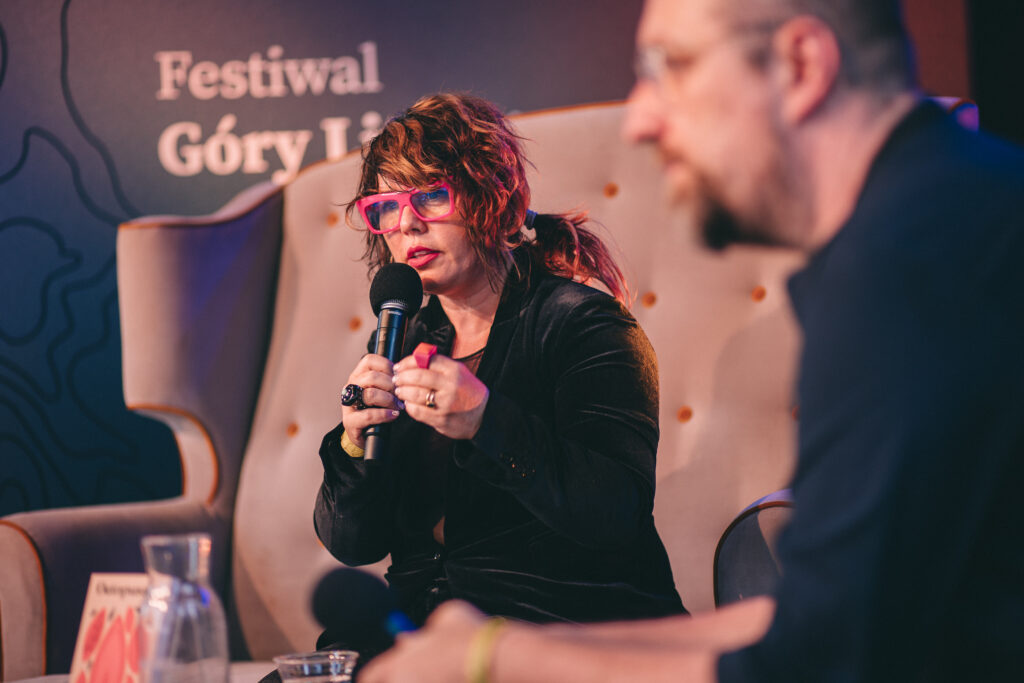
Olga Tokarczuk and Marcin Baniak from Literackie Publishers told us about a new publishing series, consisting of books selected and recommended by the Nobel Prize Winner. The first in the series is “The Hearing Trumpet” by Leonora Carrington. – The main character of the novel is an eccentric old loony, who tells her story with an unusual sense of humour. She inspired me to write “Drive Your Plow Over the Bones of the Dead” – said Olga Tokarczuk, recommending the book to the audience. The next title in the series will be published in September: “The Descent of Woman” by Elaine Morgan.
Very popular among the audience was the meeting with Katarzyna Nosowska, not only a singer and songwriter, but also an author of humorous books “A ja żem jej powiedziała…” [And I Told Her…] and “Powrót z Bambuko” [The Return from Fools’ Land] (published by Wielka Litera). The meeting was moderated by Karolina Korwin-Piotrowska.
Agnieszka Szpila, a daring ecofeminist and cultural studies specialist, writes not only for others to read; she writes also to cause controversies and chase away taboos. She considers literature a socio-cultural project, definitely not shunning political contexts. Her latest book consists of five stories about the end of romantic love, the end of porn. We asked, if it is also about the end of humans separated from their own sexuality. The book “Octopussy. Opowiadania postporno” [Octopussy. Post-porn Short Stories] (published by W.A.B.) was a staring point for two very emotional meetings, one moderated by journalist Michał Nogaś, and the other – by sexual educator specializing in menstruation Barbara Pietruszczak.
Crowds of young readers attended the meeting with three authors of young adult literature – Katarzyna Barlińska, Marta Łabęcka and Weronika Marczak. Those authors are very popular among young readers, debunking the myth about the non-reading youth. It all started with the international Wattpad platform, and ended on Empik bestseller lists. The meeting was moderated by Magdalena Adamus and Katarzyna Czajka-Kominiarczuk, known for their podcast Czytu Czytu.
During this year’s Festival, we wanted to shed strong light on less known Polish literature. Meetings with the invited authors were moderated by Karol Maliszewski and Radosław Wiśniewski.
With Wojciech Brzoska, whose poems are a story of a passionate and painful unity, we talked about his considerable poetic oeuvre. Brzoska is the author of eleven poetry books, including “Blisko coraz dalej”, “Niebo nad Sosnowcem”, “W każdym momencie, na przyjście i odejście”. Last year, Biblioteka Śląska in Katowice published the monography “Poetyka ucha. O wierszach Wojciecha Brzoski”. The poet also sings in, for example, Brzoska Kolektyw and Piksele. For 20 years, he’s been professionally involved with the prison system. He organized many literary meetings and concerts there, he is the creator of the Jean Genet National Poetry Competition, addressed to inmates.
On poetry, living in a niche and cutting off social media we talked to Marcin Zegadło, a poet, columnist, reviewer, whose latest collection of poems “Martwe i Ozdobne” (Instytut Mikołowski) was published last year.
Our guest was also Jakub Pszoniak, poet and graphic designer, who received Wrocław Silesius Poetry Award 2020 for the book
“Chyba na pewno” (Biuro Literackie). He published also “Lorem Ipsum” (Biuro Literackie), a selection of Miron Białoszewski poems “Z dnia robię noc” (Biuro Literackie), translations of poems by Katerina Michalicyna (“Głosy”, Fundacja Pogranicze) and Olena Pryłucka (Fundacja Pogranicze).
We organized a conversation of two poets about themselves – Emilia Konwerska and Ilona Witkowska, entitled “I want to tell you everything”. They spoke both about poetry and life.
While in a conversation of two writers about themselves – “Performative reading of signs” – we confronted an experienced author, winner of i.e. Gdynia Literary Award, Piotr Janicki and the author of two novels Mateusz Górniak (“Trash story”, Korporacja Ha!art; “Dwie powieści w ruchu”, Filtry), called one of the biggest talents in the Polish prose in recent years.
And finally, we gave voice to debutants and beginner writers. Poet Emilia Konwerska spoke to Tomasz Gromadka (winner of “Połów” and “Pierwsza książka wierszem” competitions organized by Biuro Literackie, author of the poetry book “Komunizm, gówno i może cię kocham”, Biuro Literackie), Klaudia Pieszczoch (winner of the short story competition at the Mountains of Literature Festival 2021; in early 2023 her poetry debut, “ruń”, was published by Biuro Literackie), Katarzyna Szaulińska (author of a short story collection “Czarna ręka, zsiadłe mleko”, Filtry; a poetry book “Druga osoba”, Biuro Literackie; a scrip for a graphic novel on depression “Czarne Fale” and a monodrama “Córcia”) and Andrzej Woźniak (in 2022, papierwdole published his debut book “aikido”). She asked about intimacy in literature, trauma and capitalism.
Poet and prose writer Julia Fiedorczuk talked to debuting poets: Karolina Kapustaa (“fuzja bordo”, Biuro Literackie), Michał Krawczyk („Nice, cosie i duchy”, Pewne Wydawnictwo and „Ekspansja ech”, Instytut Mikołowski), Paulinaa Pidzik (“(wejście w las”), Kontent and “(miejsca ich jesiony)”, Biuro Literackie) and Julek Rosiński (“streszczenie pieśni”, Biuro Literackie). Fiedorczuk noticed that those four distinctive poetic voices share the tendency to emphasize the material nature of the body, world and language, to explore their multidimensional entanglements. She asked about how poems relate to the world, if they react to changes taking place there, if – and why – it’s worth constantly searching for new forms. The authors also read their poems.
We also invited international authors, although for many different reasons, we didn’t host – like in 2022 – three winners of the Booker Prize during one festival, or – like a year earlier – two winners of the Nobel Prize in literature. From Israel, came Yael Neeman – writer, literary scholar and editor. She was born in Yehiam Kibbutz in Galilee, which she left when she was 23-year-old to settle in Tel Aviv. She studied literature and philosophy at the university there. She worked as an editor in literary magazines and publishing houses. In 2011, she published “We Were the Future” (published in Poland by Czarne) – an autobiographical story about her childhood and growing up in the kibbutz. The book became a literary and publishing phenomena and was nominated to the Sapir Prize. This year, the translation of her novel “There Was a Woman” was published by Próby, in which she speaks about Pazit, a daughter of Polish Jews, who settled in Israel, in time becoming a respected editor and translator, but she still tried to hide from the world, from painful memories. The author spoke about difficulties related to memory, on speaking up and the effort to create one’s biography. The meeting was moderated by Irek Grin.
The translator Zofia Bałdyga spoke to Marie Iljašenko, a Czech poet and writer of Ukrainian origin. The starting point was Iljašenko’s debut volume of poetry “Osip podąża na południe” [Osip Goes South] (published by WBPiCAK), translated by Bałdyga and Agata Firlej. They talked about time, the past, space, crossing borders, roots and wandering.
Literary competitions
Creative writing workshops are an inseparable element of the Festival. The participants register in advance, sending short stories on a given subject. This year, the meetings, always taking place in the Nowa Ruda Town Public Library, were entitled “Mrs Oder and Mr Bug”, and moderated by Karol Maliszewski, Miłka Malzahn and Zbigniew Kruszyński. From the received applications, they selected six best texts and invited their authors for the workshop. The moderators encouraged them to create stories about inhuman beings, to look at the world remembering about ognosis, multifaceted perception of reality, empathy and imagination, as well as to present the subject from a mythological, animistic or even fairy-tale perspective.
We presented awards in the fifth edition of the Tymoteusz Karpowicz Literary Review Competition, which is organized for those aspiring to become a literary critics by Wrocław Literature House and Olga Tokarczuk Foundation. The winner was Jagoda Maciejczyk.
We also spoke about the books nominated in the 3rd edition of the Hestia Literary Journey competition for the best Polish book for the youth. Teenagers are the most active group of readers in Poland, and at the same time it is very difficult to write for them, because they have very high expectations. Two members of the Jury of the competition – Katarzyna Kasia and Michał Rusinek – spoke about what they read and what they admired, which texts moved them. The results of the competition will be announced in September.
Little Mountains of Literature
It is very important for us to include the youngest readers in the Festival, and that’s why we organized a series of events called Little Mountains of Literature, encompassing meetings with authors and workshops.
Our guest was Dionisos Sturis, author of reportage books, who’ve recently written about Greece for a children’s series “World for the Curious”. In this book, as well as during the Festival, he proved that this country is more than antiquity, mythology, philosophy and holidays in the sun.
Michał Rusinek spoke about his book “Szalik. O Wisławie Szymborskiej dla dzieci” [Scarf. On Wisława Szymborska for Children]. In relation to the life of the Nobel Prize Winner he said that in order to grow up, you don’t really need to stop being a child.
We spoke to Barbara Sadurska about her debut novel for children “Srebrny smok” [Silver Dragon]. The two naturalists from the Białowieża Forest, Tomasz Samojlik and Adam Wajrak, spoke about their work together on the latest comic book “Detektyw Wróbel i złamane pióro” [Detective Sparrow and the Broken Feather].
Karolina Lewestam, author of the fantasy novel “Silla”, spoke to young readers about adventures of their peer, who, during a journey full of dangers, meets new friends and experiences something that will change his life forever.
The musical segment
We also extended the musical segment of the Festival, we invited ten eminent Polish performers. Most of the concerts were organized on the main music scene at Sarny Castle.
The opening event was a sensational concert by Maria Peszek, with guest participation of Jan Peszek.
There was also a performance of Me and That Man, which is a less-known face of Adam “Nergal” Darski in a duet with John Porter – an original meeting of rock, folk and country music.
We invited the band Kosy, four singers Aleksandra Gronowska, Katarzyna Pakosa, Anastazja Sosnowska and Katarzyna Szetela-Pękosz. They decided to work on old songs from Lower Silesia, and accompanied by harmonium, hurdy-gurdy, frame drums, violin, viola, sansula and percussion, they give them new life in the contemporary times.
An artist whose work is described as a mix of alternative music and sung poetry, with a distinct Slavic note, performed as well – Renata Przemyk.
Two concerts of Dobrawa Czocher were organized, the main celloist at Neue Philharmonie Berlin and the soloist at the Szczecin Philharmonic Symphony Orchestra. One od them we had to move – due to the weather – from the Market Square in Radków to the District Centre for Culture, Sports and Tourism, the aula of which was bursting.
There was also a concert by Kazik, singer, composer and songwriter who never minces his words and whose uncompromising attitude is controversial.
Material from their latest album entitled “Premiere,” which includes pieces with guest appearance of artists such as Hania Rani and Masha Natanson, was presented by Voo Voo.
We also had a performance by a musical-literary project based on the mix of improvised music and Polish contemporary poetry. i.e. Andrzej Sosnowski & Chain Smokers. Their third album “Where the End of the Rainbow Doesn’t Touch the Earth” is characterised by the instrumental improvisation of musicians (Patryk Zakrocki, Mateusz Rybicki, Zbyszek Kozera) following the natural pace and rhythm of poems by Andrzej Sosnowski, for whose reciting the musical space was created. They presented music from this album in Grunwald Sanatorium in Sokołowsko.
The last event of the Festival was a performance by Kasia Nosowska, who won the audience at Sarny Castle with songs from her latest album “Degrengolada” [Moral Decay], as well as those from her previous albums.
The film segment
The majority of the film segment was devoted to a retrospective of films by Jerzy Skolimowski. The director was the guest of the Festival, and he met the audience twice. After the screening of “Identification Marks: None” (1964) in Wałbrzych, he spoke to Robert Karpowicz about life choices, which were marked by politics, about films, which after many years become strikingly current, and also about defeats and successes, which have no meaning in the face of the omnipresent harm. And in Nowa Ruda, after the screening of the war thriller “Essential Killing” (2010) – a story of a prisoner of war from some undefined Arab country who escapes from a secret CIA base in Poland – the discussion was moderated by the former Polish Ombudsman Adam Bodnar.
We also presented “Walkover” (1965), a follow-up to his debut “Identification Marks: None” and twice, in Kłodzko and Świdnica, we screened the film “IO” (2022), nominated to the Academy Award for the best international feature film.
There was also a screening of short films by Marcin Giżycki: “Sicilian Flea”, “Panta Rhei”, “Stone Story”, “Kinefaktura”, “Tide”, “Sunset”, “Aquatura”, “Theatrum Magicum”, “Arrow Board Game”, “Haiku” and “White Curtain”. Marcin Giżycki, who died on 20 October 2022, reveals his new faces, for example as an author of limericks. After the screening, there was a meeting with Agnieszka Taborska, writer, a longstanding partner and coworker of Giżycki. She cast a new light on the life and work of the eminent artist and intellectual, director, photographer, art critic and art historian, author of many books on cinema, media and contemporary art.
We also screened the film “Treasure” by Andrzej and Michał Łagoda, who were our guests. The film is an adaptation of Olga Tokarczuk’s play from 1999 of the same title. It was produced by the amateur group of the Lokomotywa Theatre from Świdnik, which in 2020 staged the play “Żurek”.
The final event of the film segment was the screening of “To the Last Drop” by Ewa Ewart. The event had such a huge audience that we decided to move the discussion with the director from the hall in Sarny Castle to the music scene.
Wandering Mountains of Literature
The statute of the Olga Tokarczuk Foundation particularly emphasizes the promotion and support of a versatile development of Poland, in particular Wrocław, Lower Silesia, the Lubusz Land and Wałbrzych and Kłodzko districts. That is one of the reasons we organize the Mountains of Literature Festival in Kłodzko Land and Wałbrzych region.
We are attracted by the history and ambiguous identity of this place, also often mentioned by guests invited to this year’s edition. We pay attention to the richness of nature in this area, and to the still not yet fully discovered diverse potential of that land.
But what draws us to those places and confirms our decision to organize following editions here are people. Their involvement, energy, openness and inventiveness. Without the commitment of dozens of people working in local cultural centres and non-governmental organizations, this Festival could never be a success.
As we wrote at the very beginning, this year the Festival took place in a record-breaking number of 20 locations. In Nowa Ruda, we were guests in NOWA art space gallery, the Helena and Władysław Grzegorczyk park at Strzelecka Street, the Town Cultural Centre, the Town Public Library, Glass House, Jaga Hupało’s Old Workshop and on the Market Square. In Radków, events took place in Łąkowa 1 Centre, Graniczna Restaurant and the District Centre for Culture, Sports and Tourism, and in Sokołowsko – in “Zdrowie” Cinema, Doktor Brehmer’s Park and Sanatorium Grunwald.
We were also in Nowa Ruda District Public Library Branch in Dzikowiec, Kłodzko Cultural Centre and Kłodzko Market Square, Ludwikowice Gallery in Ludwikowice Kłodzkie, Sarny Castle in Ścinawka Górna, City Municipal Library in Świdnica, Former Mine Science and Art Centre in Wałbrzych, Krobielowice Palace in Krobielowice.
Organizing the Mountains of Literature Festival, we pay attention to details which, even though small, are not less important. We don’t only speak about nature, but we try to promote pro-ecological solutions.
To limit the carbon footprint and make it easier to move between festival locations, we organize and recommend to guests group transport, reaching the most popular festival places. We also encourage to use public transportation services to travel between towns.
We try to limit the production of rubbish. We don’t print entry tickets and we don’t demand it from participants. We don’t use plastic products. Badges for organizers, guests and media are made of cardboard. We also use paper bags and folders for documents.
In festival locations, there was also a shop with this year’s gadgets available for purchase – T-shirts and bags made from organic cotton, with graphic design made by Ewa Mańkowska, and notebooks with the logo of the Olga Tokarczuk Foundation made from recycled materials.
We also gave those objects as gifts to our guests, as well as honey from a local apiary in Krajanów.
In the food area of the Festival, and also in our catering, we don’t serve meat, we propose vegetarian and vegan dishes. We do our best to use local and seasonal products.
We organize a fair presenting local handicraft, art and food products. All the products are made in the spirit of ecodesign, with respect to plants and animals. In Nowa Ruda, over 20 artists and artisans from the region presented their work. You could see and buy, among others, artistic pottery, tatting jewellery, pictures from flowers, wooden furniture, ecological candles and soaps, vegan preserves and honey from a forest apiary.
Partners and sponsors of the Mountains of Literature Festival
Organization of such a huge event wouldn’t be possible without the support and involvement of our partners and sponsors, and this year their number was also record-breaking – 70.
We organized the Festival together with the following local governments: the town of Nowa Ruda, rural district of Nowa Ruda, the city of Wałbrzych, the city of Kłodzko, the town of Radków, the city of Świdnica, Wrocław the Meeting Place, the Capital City of Warsaw, local Kłodzko government, the district of Mieroszów, as well as institutions active in those locations: Nowa Ruda Town Cultural Centre, Kłodzko Cultural Centre, Nowa Ruda District Cultural Centre, Former Mine Science and Art Centre, the Cyprian Kamil Norwid City Municipal Library in Świdnica, Nowa Ruda Town Public Library, Wałbrzych Cultural Centre, District Centre for Culture, Sports and Tourism Radków.
We were supported also by: Allianz Foundation, Sowie Mountains Foundation, Heinrich Böll Foundation, Sarny Castle in Ścinawka Górna, Łąkowa 1 Centre , Stolovelasy Association Proactive Radków, Jaga Hupało Art Sanctuary, Marshal’s Office of Lower Silesia, Radków – the Land of Stołowe Mountains, Free State of Saxony, The Embassy of Denmark in Warsaw, Wrocław Literature House, Wrocław UNESCO City of Literature, Old House of Culture in Warsaw, Wrocław Social Development Centre, Krobielowice Palace, Wrocław Agglomeration, Literackie Publishers, Agora Publishers, Warstwy Publishers, Marginesy Publishers, Próby Publishers, EMG Publishers, Someone Not Something Festival, Tajne Komplety bookshop, Dobra Nowina café, Nowa Art Space gallery, Olga Tokarczuk Ex-Center. Academic Research Center, Tour de Constitution initiative of the Congress of Civic Democratic Movements Foundation, The Reading Agglomeration Programme, Theatre Notebook, Literary Notebook, the Eryk Lipiński Museum of Caricature, ZPAS company, Ergo Hestia Insurance Agency, KRUK S.A., Merida – producer of sanitary fittings and supplies, FOSA security company, Anna Szywała training-advisory company, Kazimierz and Dorota Śródka, Ewa and Krzysztof Folta, TIGER-BUS transport company, Association of the Friends of the Town and Garden Podkowa Leśna, Fracht transport company, Cement Ożarów company, FineArtPrints, Advertis Group, Université Paris Sorbonne, le département de polonaise.
We also cooperated with: BWA Sokołowsko, Sokołowsko Group Association, InSitu Foundation of Contemporary Art, International Culture Lab Sokołowsko.org, Bardo the Town of Wonders.
